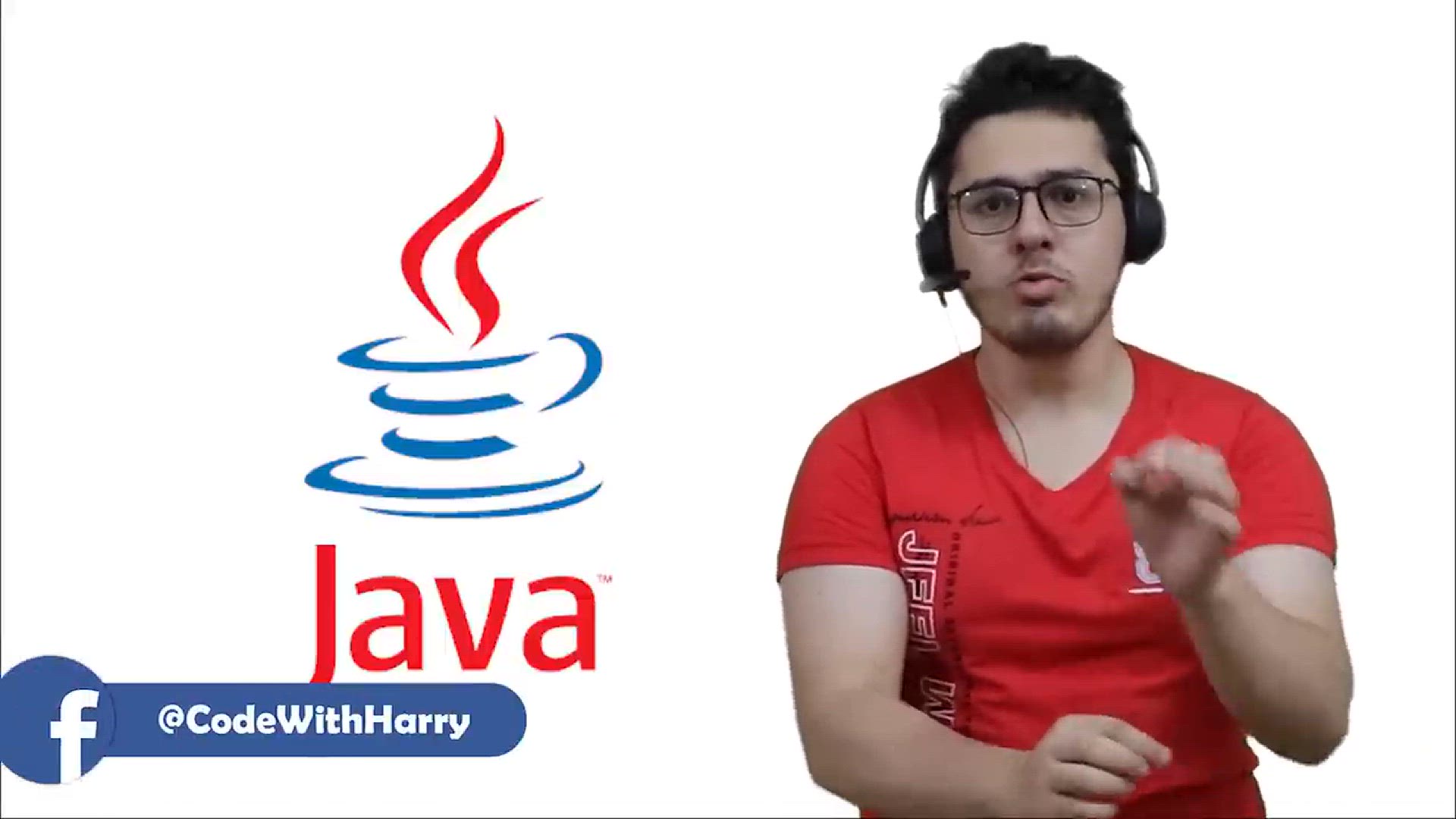
Introduction to Java + Installing Java JDK and IntelliJ IDEA...
19K views · Feb 12, 2024 codehunter.online
"Introduction to Java + Installing Java JDK and IntelliJ IDEA for Java" is a tutorial video aimed at beginners interested in learning Java programming. The video provides an overview of Java programming language and its significance in software development. It then walks viewers through the process of installing Java JDK (Java Development Kit) and IntelliJ IDEA, a popular integrated development environment (IDE) for Java programming. By following the step-by-step instructions in the video, viewers can quickly set up their development environment and start writing Java code efficiently. This video serves as a foundational resource for anyone looking to begin their journey into Java programming.

Java Tutorial_ Variables and Data Types in Java Programming
27 views · Feb 12, 2024 codehunter.online
The "Java Tutorial: Variables and Data Types in Java Programming" is an instructional video designed to teach viewers about fundamental concepts in Java programming. The video covers topics such as variables and data types, essential elements for understanding how to store and manipulate data in Java programs. Viewers will learn about different types of variables, such as integers, floating-point numbers, characters, and booleans, as well as how to declare and initialize them. Additionally, the video explains the importance of choosing appropriate data types based on the requirements of a given programming task. With clear explanations and examples, this tutorial serves as a valuable resource for beginners looking to gain a solid understanding of variables and data types in Java programming.
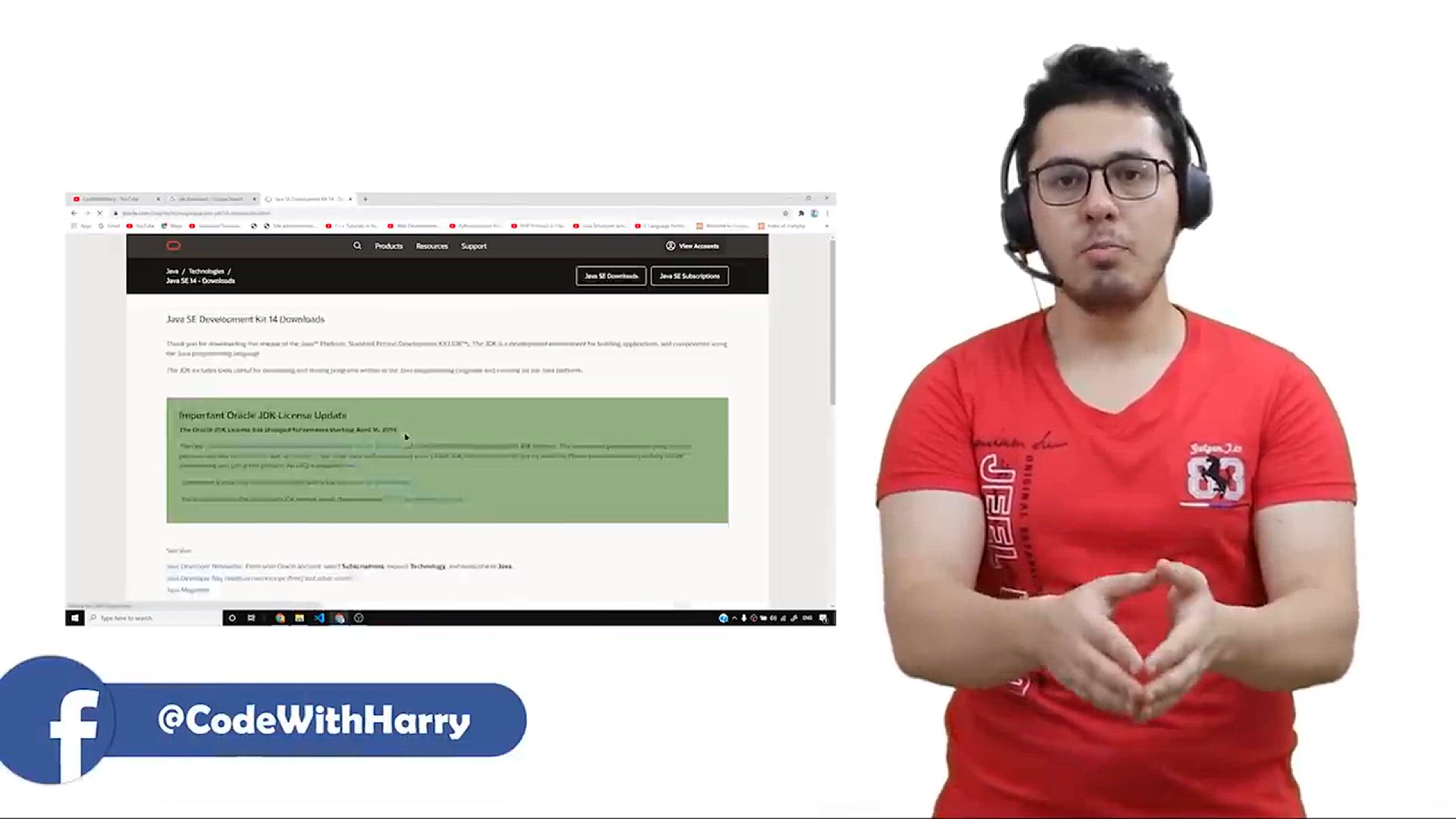
Basic Structure of a Java Program_ Understanding our First J...
85 views · Feb 12, 2024 codehunter.online
The video "Basic Structure of a Java Program: Understanding our First Java Hello World Program" is a beginner-friendly tutorial aimed at introducing viewers to the foundational structure of Java programs. It walks through the creation and execution of a simple "Hello World" program, a customary starting point for learning any programming language. The tutorial explains key components such as class declaration, main method syntax, and the println() function for displaying output. By following along with the step-by-step instructions, viewers will gain a solid grasp of the basic structure of Java programs, setting the stage for further exploration and learning in Java programming.
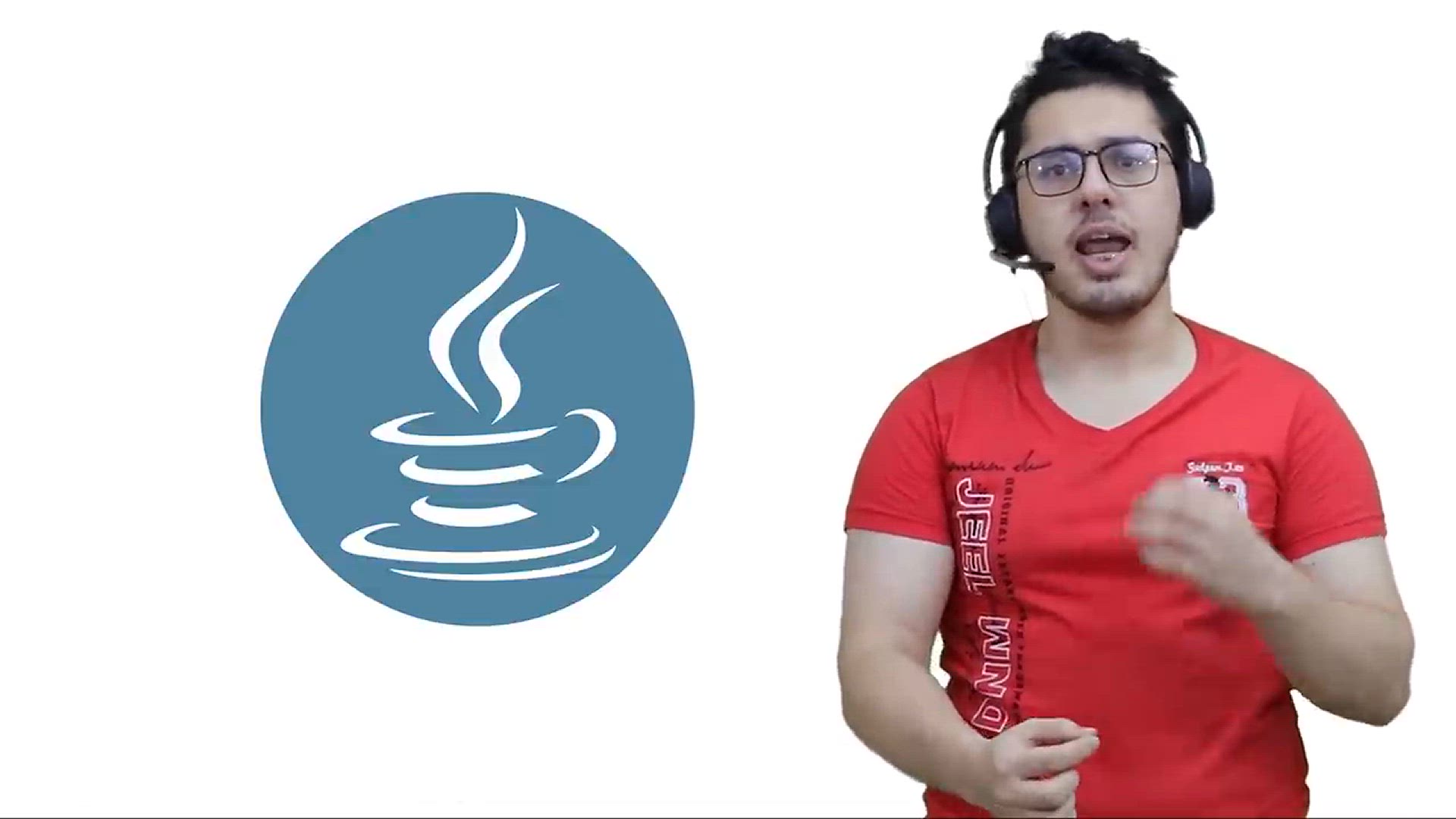
Java Tutorial_ Literals in Java
181 views · Feb 12, 2024 codehunter.online
The "Java Tutorial: Literals in Java" video is an instructional resource that delves into the concept of literals within the Java programming language. It provides a comprehensive overview of what literals are and how they are used to represent fixed values directly in code. The video covers various types of literals in Java, including integer literals, floating-point literals, character literals, string literals, and boolean literals. Through clear explanations and practical examples, viewers will learn how to effectively utilize literals in their Java programs to represent different types of data. This tutorial serves as a valuable resource for beginners and intermediate learners aiming to strengthen their understanding of Java programming fundamentals.

Java Tutorial_ Getting User Input in Java
11 views · Feb 12, 2024 codehunter.online
The "Java Tutorial: Getting User Input in Java" video is a practical guide aimed at Java programmers who want to learn how to interactively receive input from users during program execution. This instructional resource covers various methods and techniques for prompting users to input data, including the Scanner class and the BufferedReader class. The video demonstrates step-by-step instructions on how to implement these methods effectively, along with best practices for error handling and input validation. By following along with the examples provided, viewers will gain a solid understanding of how to incorporate user input into their Java programs, enabling them to create more interactive and dynamic applications.

Java Programming Exercise 1_ CBSE Board Percentage Calculato...
2K views · Feb 12, 2024 codehunter.online
The "Java Programming Exercise 1: CBSE Board Percentage Calculator" video presents a practical exercise for Java programming learners. In this tutorial, viewers are guided through the creation of a program that calculates the percentage of marks obtained in the CBSE (Central Board of Secondary Education) board exams. The video covers key programming concepts such as variables, user input, arithmetic operations, and output formatting. By following the step-by-step instructions provided in the video, viewers can develop their Java programming skills while creating a useful tool for calculating CBSE board exam percentages. This exercise serves as an excellent hands-on practice opportunity for beginners and intermediate learners alike, helping them reinforce their understanding of Java programming fundamentals in a real-world context.
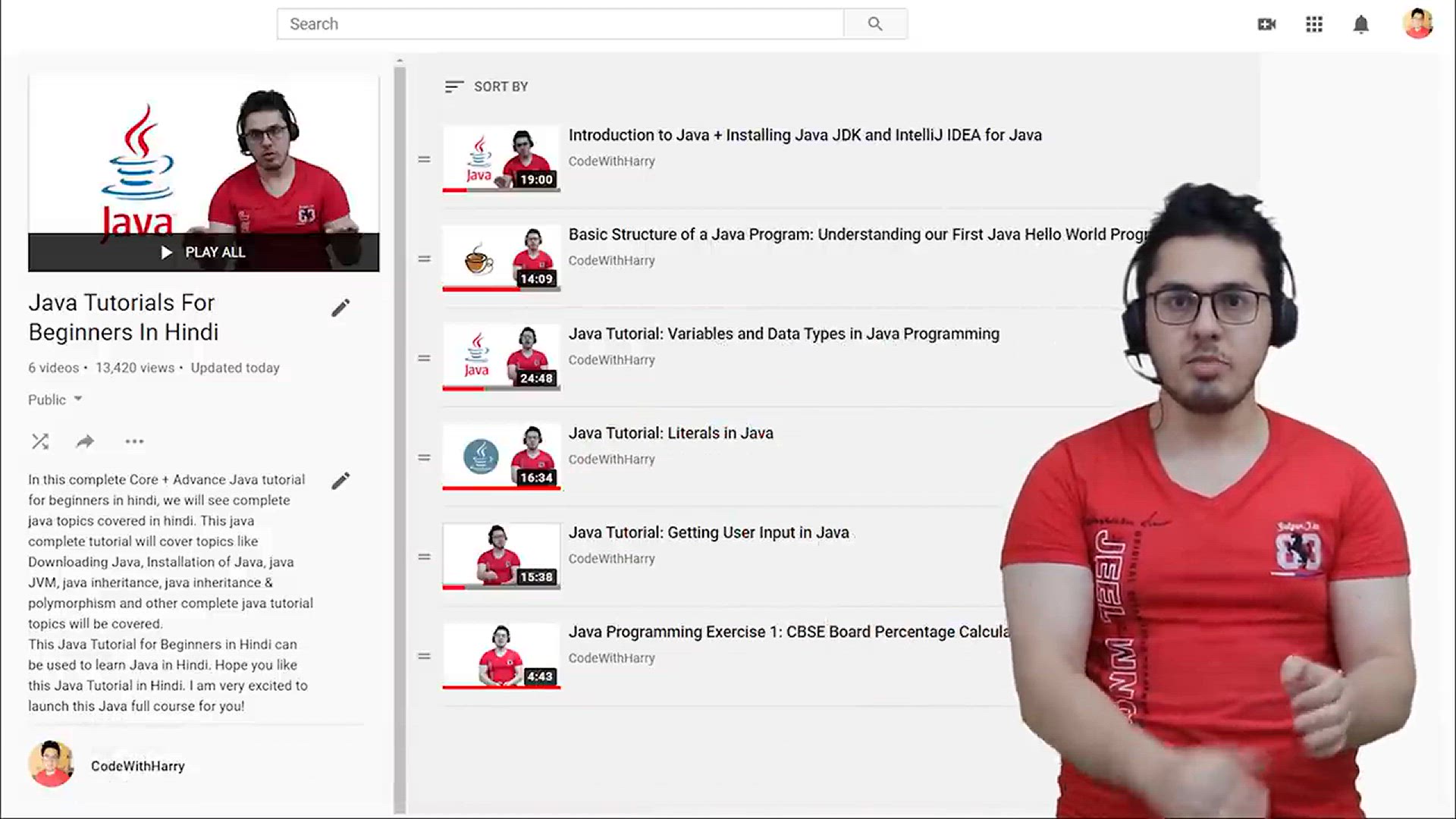
Java Tutorial_ Chapter 1- Practice Set _ Java Practice Probl...
57 views · Feb 12, 2024 codehunter.online
The "Java Tutorial: Chapter 1 - Practice Set - Java Practice Problems With Solution" video offers a set of practical exercises aimed at reinforcing Java programming concepts covered in the first chapter of a tutorial series. The video presents a series of Java programming problems along with detailed solutions, providing learners with hands-on practice to solidify their understanding of fundamental Java concepts such as variables, data types, operators, control structures, and methods. By actively engaging with these practice problems and following the provided solutions, viewers can enhance their problem-solving skills and gain confidence in applying Java programming techniques. This video serves as a valuable resource for beginners looking to build a strong foundation in Java programming through guided practice.
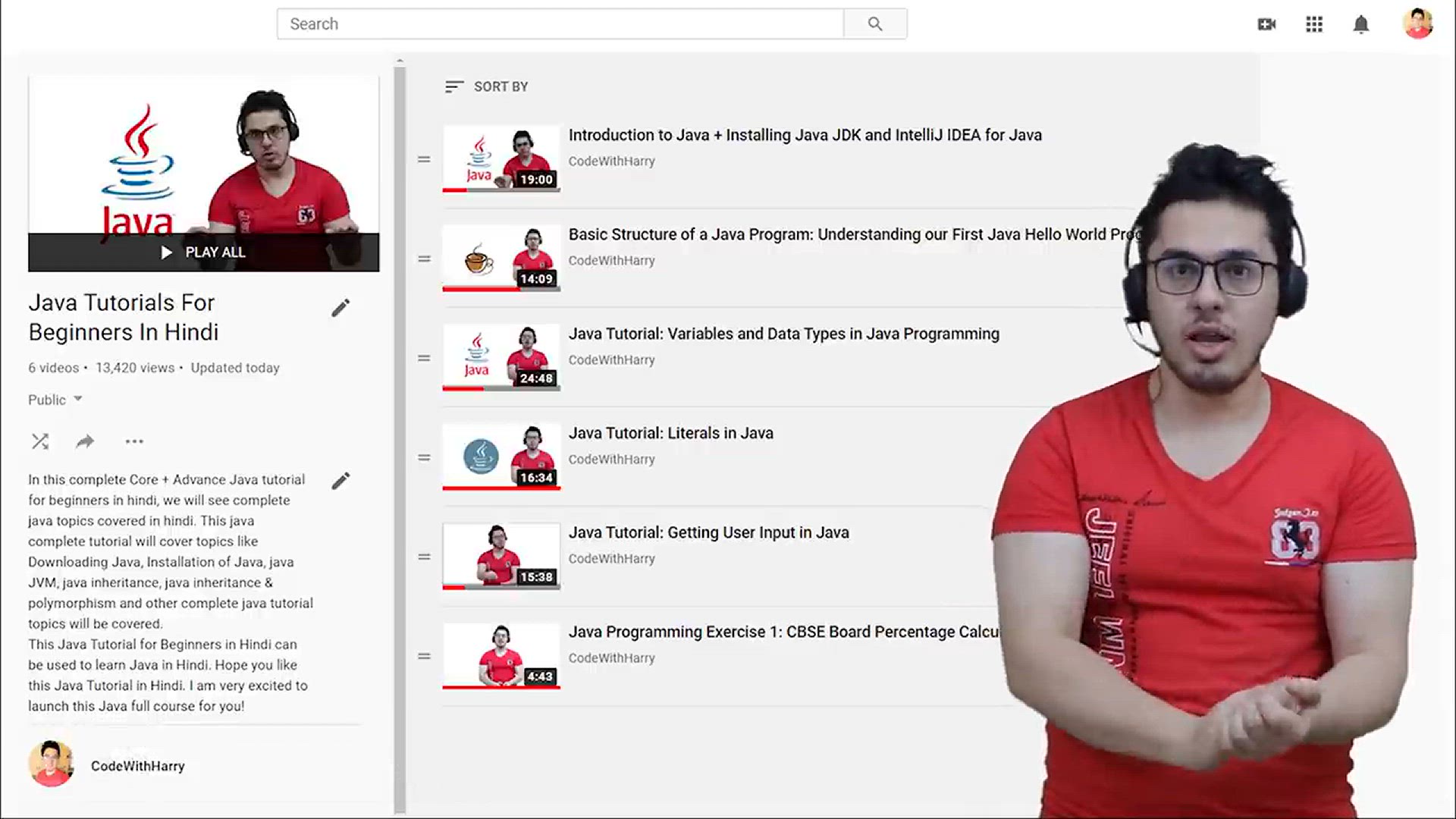
Java Tutorial_ Operators, Types of Operators & Expressio...
1K views · Feb 12, 2024 codehunter.online
The "Java Tutorial: Operators, Types of Operators & Expressions in Java" video serves as a comprehensive guide to understanding the various types of operators and expressions in the Java programming language. It covers essential concepts such as arithmetic, relational, logical, assignment, and bitwise operators, explaining their functionality and usage through clear explanations and practical examples. Additionally, the video explores the concept of expressions, which are combinations of operators and operands that produce a result, illustrating how they are used in Java programming to perform computations and make decisions. By watching this tutorial, viewers will gain a solid understanding of operators and expressions in Java, enabling them to write more efficient and expressive code.
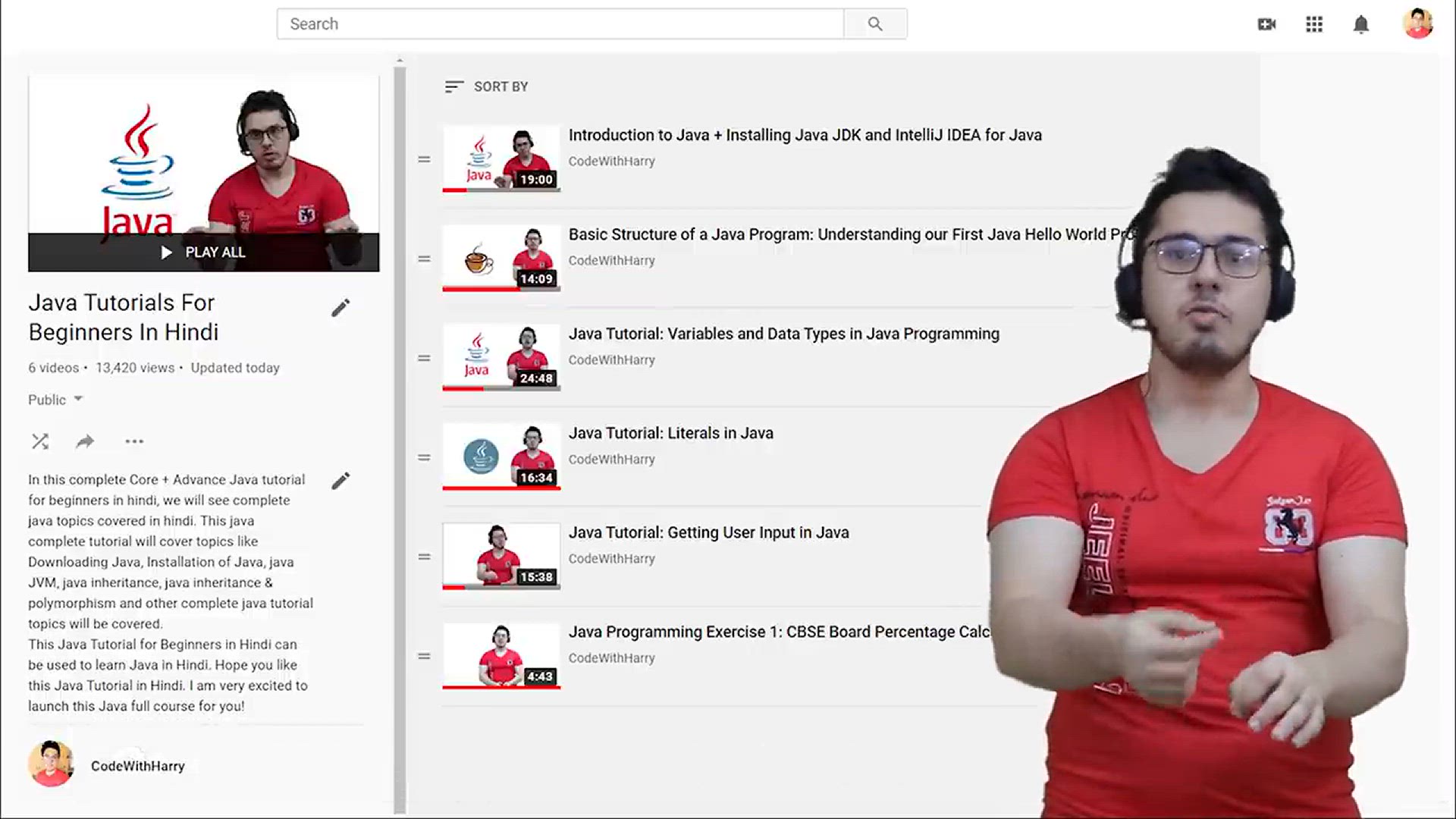
Java Tutorial_ Associativity of Operators in Java
423 views · Feb 12, 2024 codehunter.online
The "Java Tutorial: Associativity of Operators in Java" video provides an in-depth explanation of the concept of operator associativity in Java programming. It delves into how operators are grouped and evaluated within expressions, highlighting the importance of understanding associativity for writing clear and predictable code. The video covers both left and right associativity, explaining how they determine the order of evaluation when multiple operators of the same precedence appear in an expression. Through detailed examples and demonstrations, viewers gain a comprehensive understanding of how associativity influences the behavior of operators in Java, empowering them to write more efficient and logically structured code.
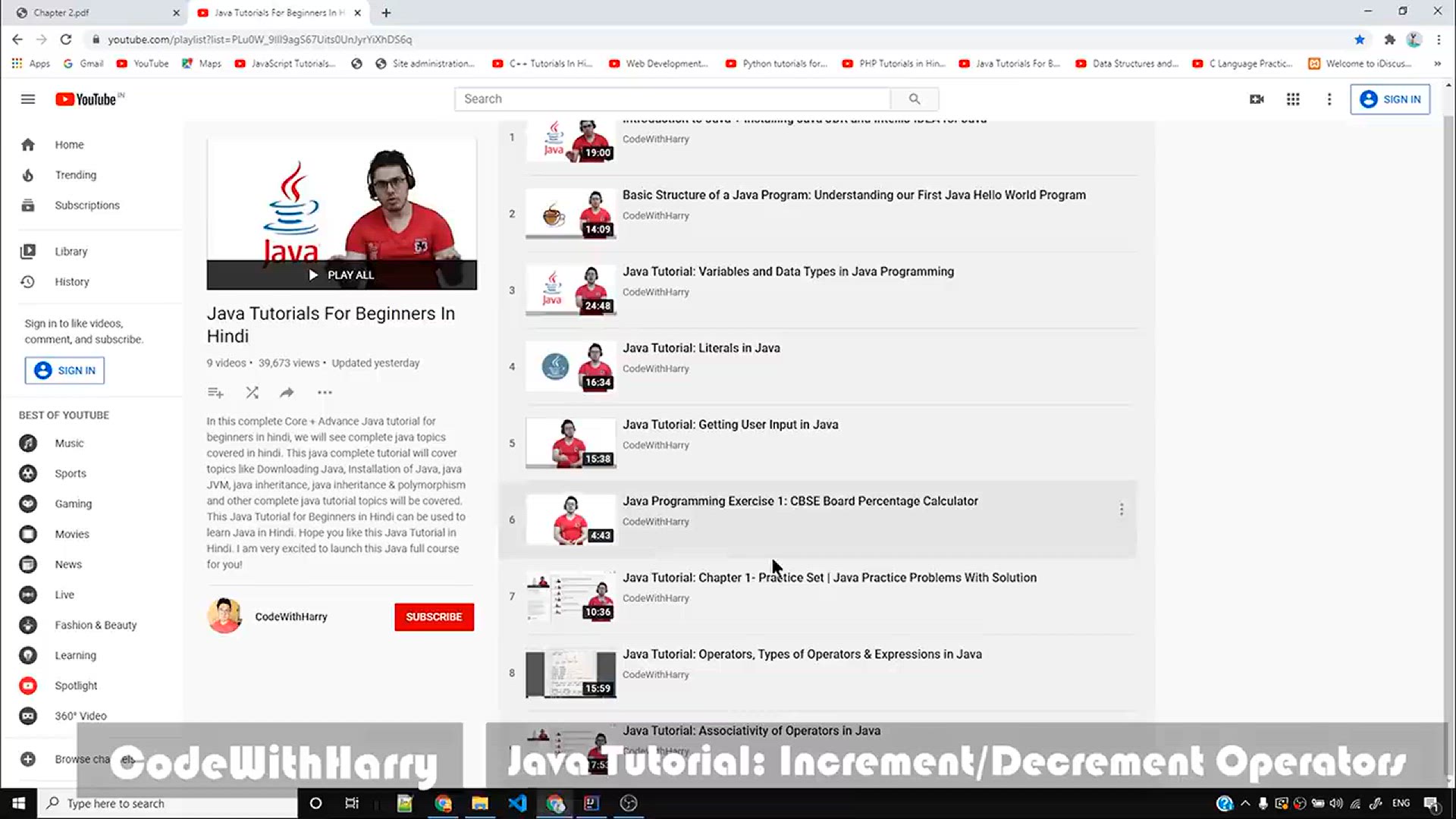
Java Tutorial_ Data Type of Expressions & Increment_Dec...
50 views · Feb 12, 2024 codehunter.online
The "Java Tutorial: Data Type of Expressions & Increment_Decrement Operators" video provides a detailed exploration of data types in expressions and the usage of increment and decrement operators in Java programming. It covers how data types influence the result of expressions, emphasizing the importance of type compatibility for accurate computation. Additionally, the video elucidates the functionality and nuances of increment and decrement operators (++ and --), illustrating their impact on variable values and expressions. Through practical examples and explanations, viewers gain a comprehensive understanding of how data types and increment/decrement operators interact within Java programs, enabling them to write more effective and concise code.
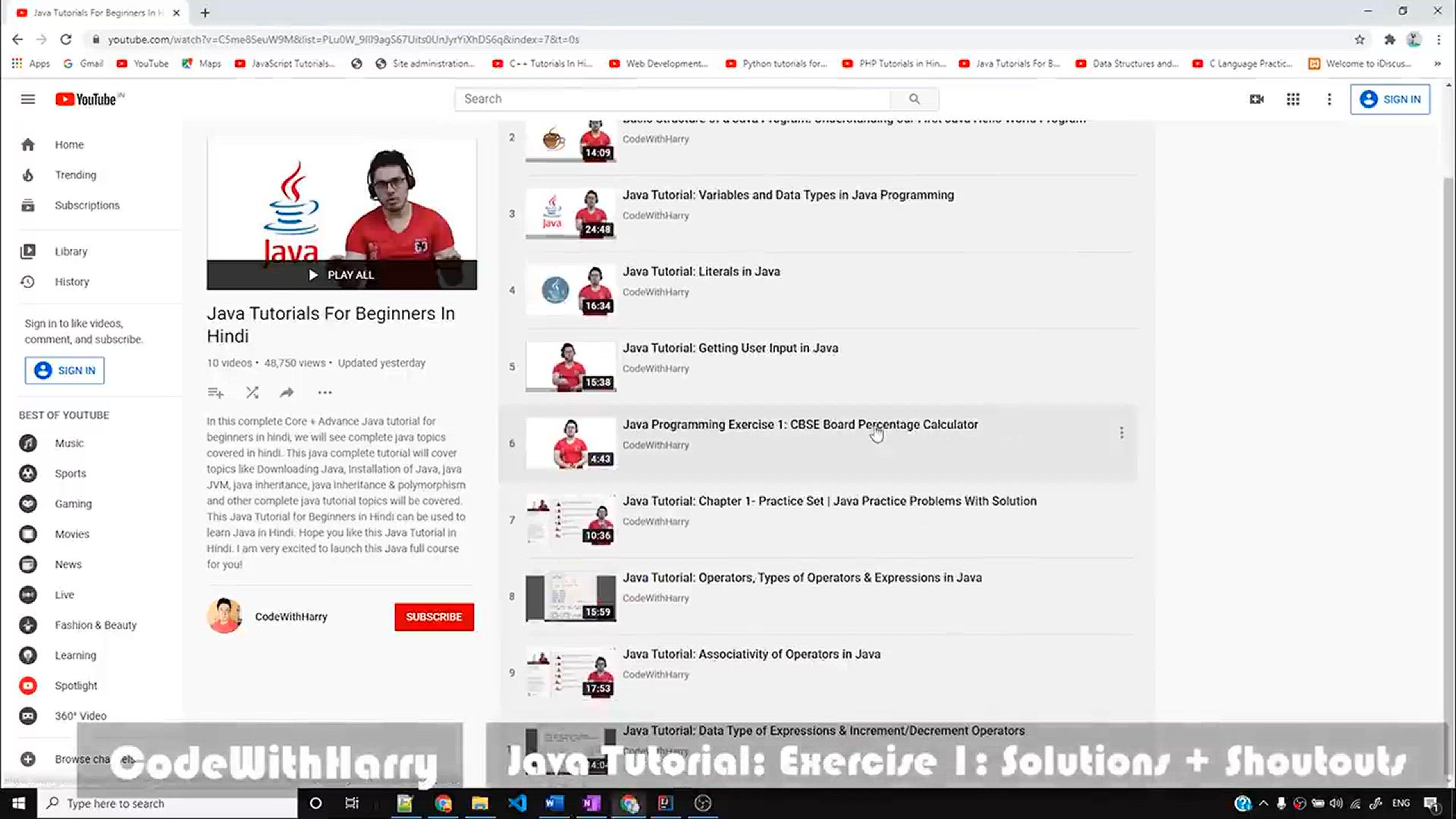
Java Tutorial_ Exercise 1 - Solutions + Shoutouts
61 views · Feb 12, 2024 codehunter.online
The "Java Tutorial: Exercise 1 - Solutions + Shoutouts" video offers solutions to exercises provided in a previous Java tutorial session, along with shoutouts to viewers or contributors. In this video, the instructor reviews and explains the solutions to exercises, providing insights into problem-solving approaches and best practices in Java programming. Additionally, the video acknowledges and appreciates viewer engagement by giving shoutouts to individuals who have participated in discussions, contributed code snippets, or provided valuable feedback. Through this interactive format, viewers not only gain a deeper understanding of Java programming concepts through practical examples but also feel encouraged and motivated to engage with the tutorial community.
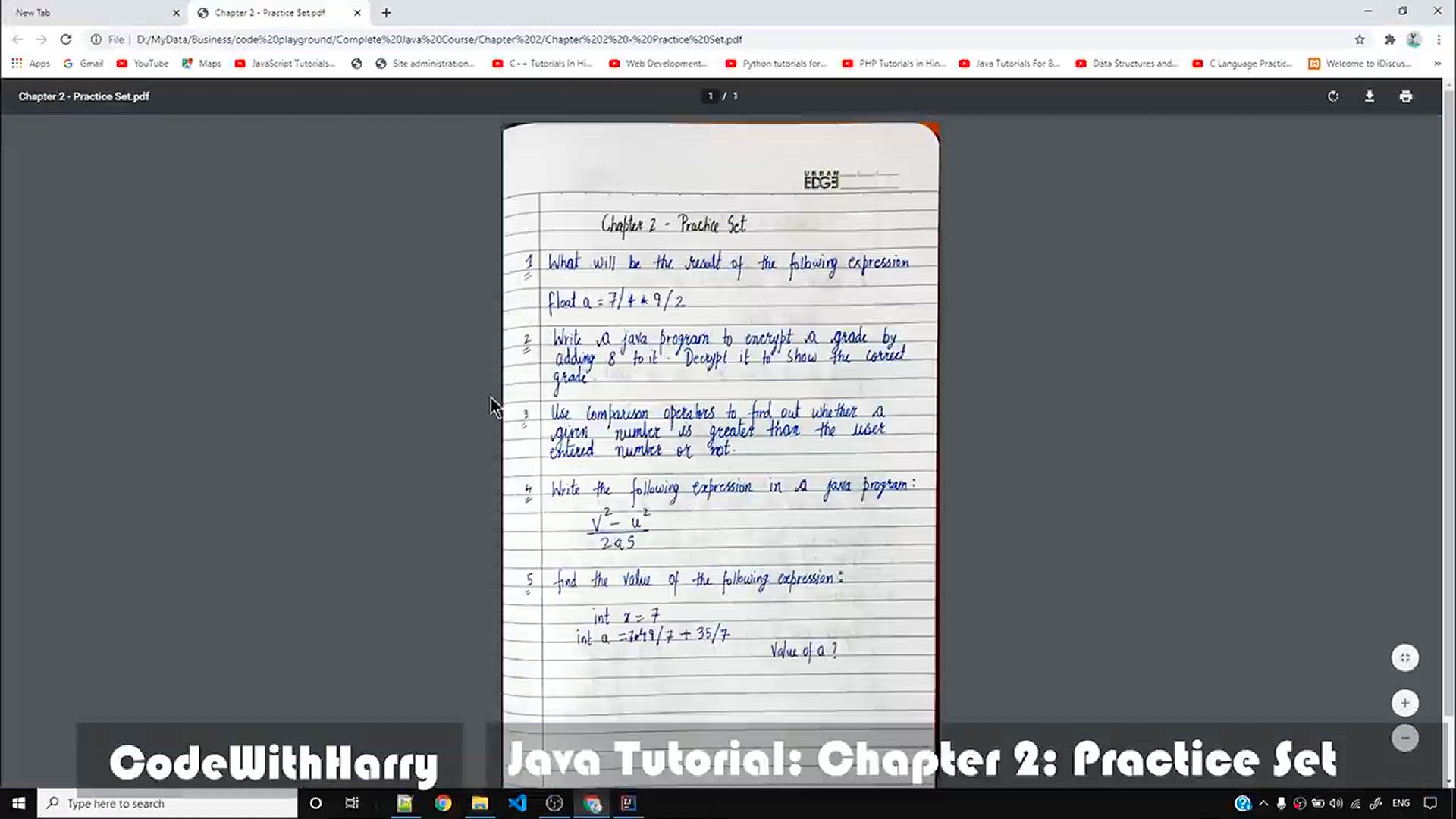
Java Tutorial_ Chapter 2 - Practice Set (Java Practice Quest...
21 views · Feb 12, 2024 codehunter.online
Java Tutorial_ Chapter 2 - Practice Set (Java Practice Questions)
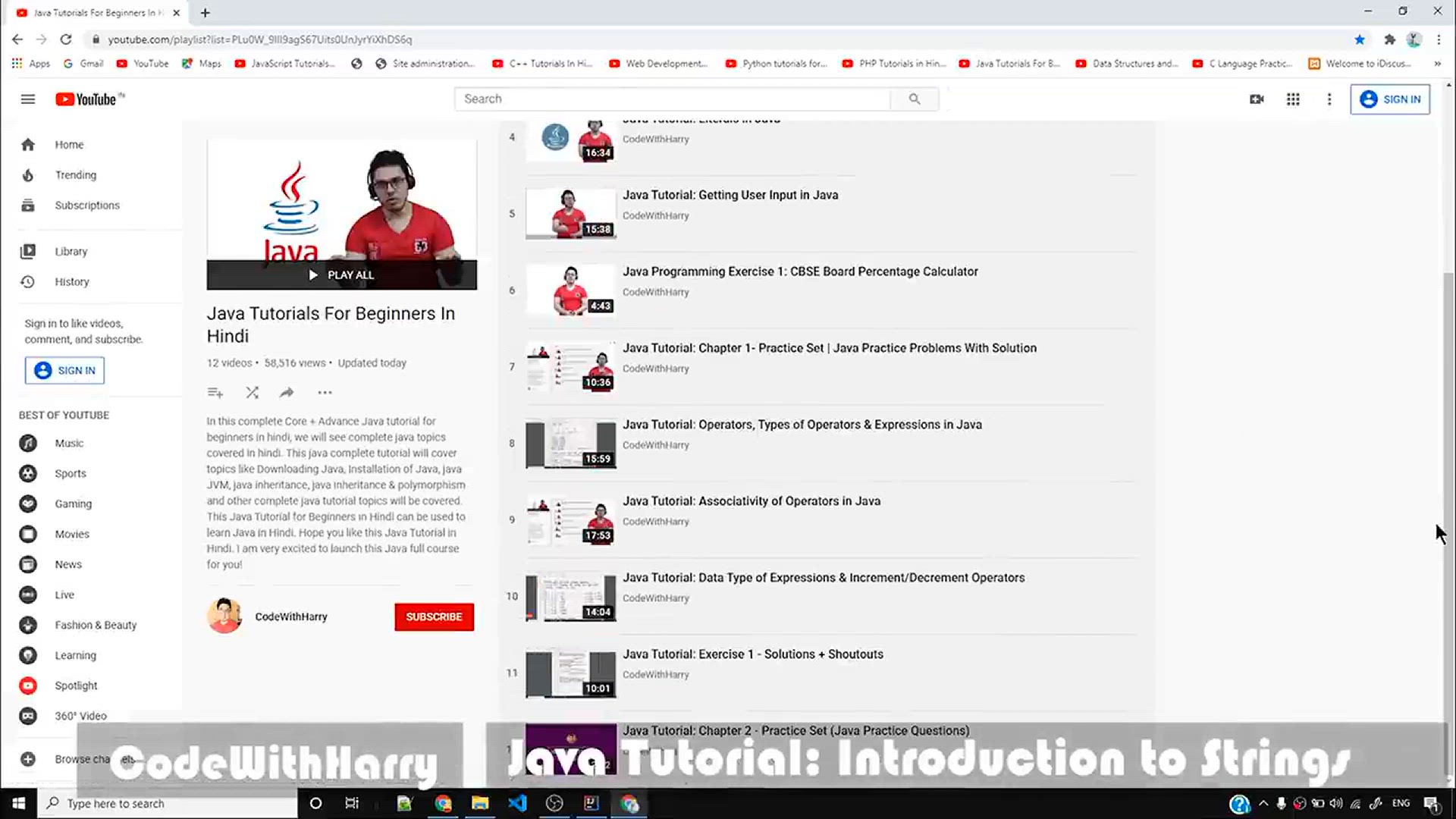
Java Tutorial_ Introduction to Strings
14 views · Feb 12, 2024 codehunter.online
The "Java Tutorial: Introduction to Strings" video serves as a foundational guide to understanding the concept of strings in Java programming. It explores how strings are used to represent sequences of characters and covers essential operations and methods for working with strings, such as concatenation, length determination, and substring extraction. The video provides clear explanations and practical examples to illustrate the versatility and importance of strings in Java programming. By watching this tutorial, viewers will gain a solid understanding of how to manipulate and utilize strings effectively in their Java programs, enabling them to work with textual data more efficiently.
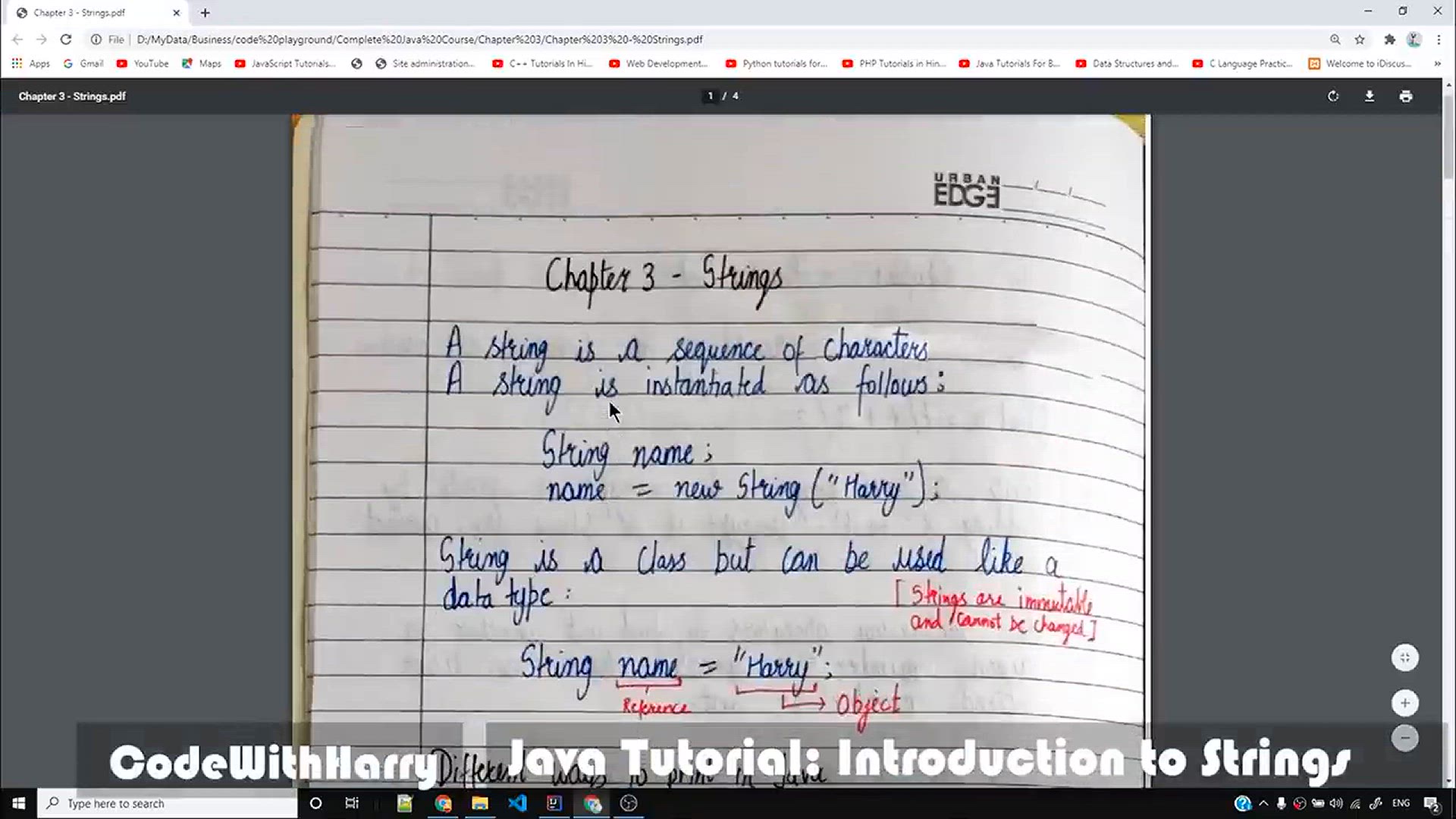
Java Tutorial_ String Methods in Java
26 views · Feb 12, 2024 codehunter.online
The "Java Tutorial: String Methods in Java" video offers an in-depth exploration of the various methods available for manipulating strings in Java programming. It covers a wide range of string methods provided by the Java String class, including methods for concatenation, comparison, extraction, modification, and more. Through clear explanations and practical examples, viewers learn how to leverage these methods to perform common string operations efficiently. The video also highlights the importance of understanding and utilizing string methods effectively in Java programming to streamline code and improve readability. By watching this tutorial, viewers can enhance their proficiency in working with strings and develop a deeper understanding of string manipulation techniques in Java.
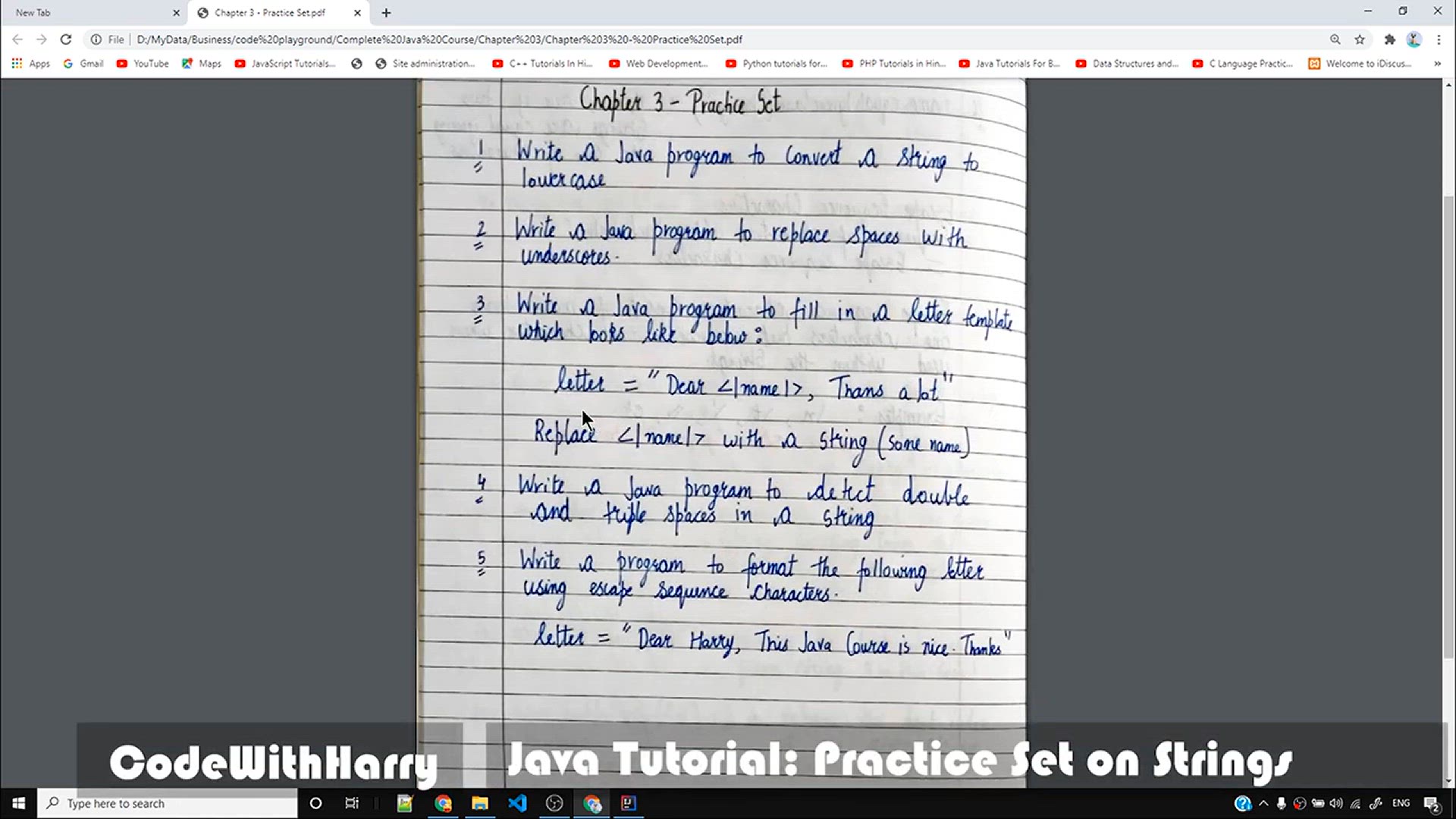
Java Practice Questions on Strings_ Practice Set on Java Str...
671 views · Feb 12, 2024 codehunter.online
The "Java Practice Questions on Strings: Practice Set on Java Strings (Must Solve!)" video presents a comprehensive set of practice questions focused specifically on string manipulation in Java programming. These questions cover a wide range of topics, including string concatenation, substring extraction, character manipulation, string comparison, and more. The video encourages viewers to actively engage with the material by attempting to solve the practice questions independently. By providing these practice questions, the video aims to reinforce viewers' understanding of string manipulation concepts and enhance their problem-solving skills in the context of Java programming. This resource serves as a valuable tool for learners looking to strengthen their proficiency in working with strings in Java.
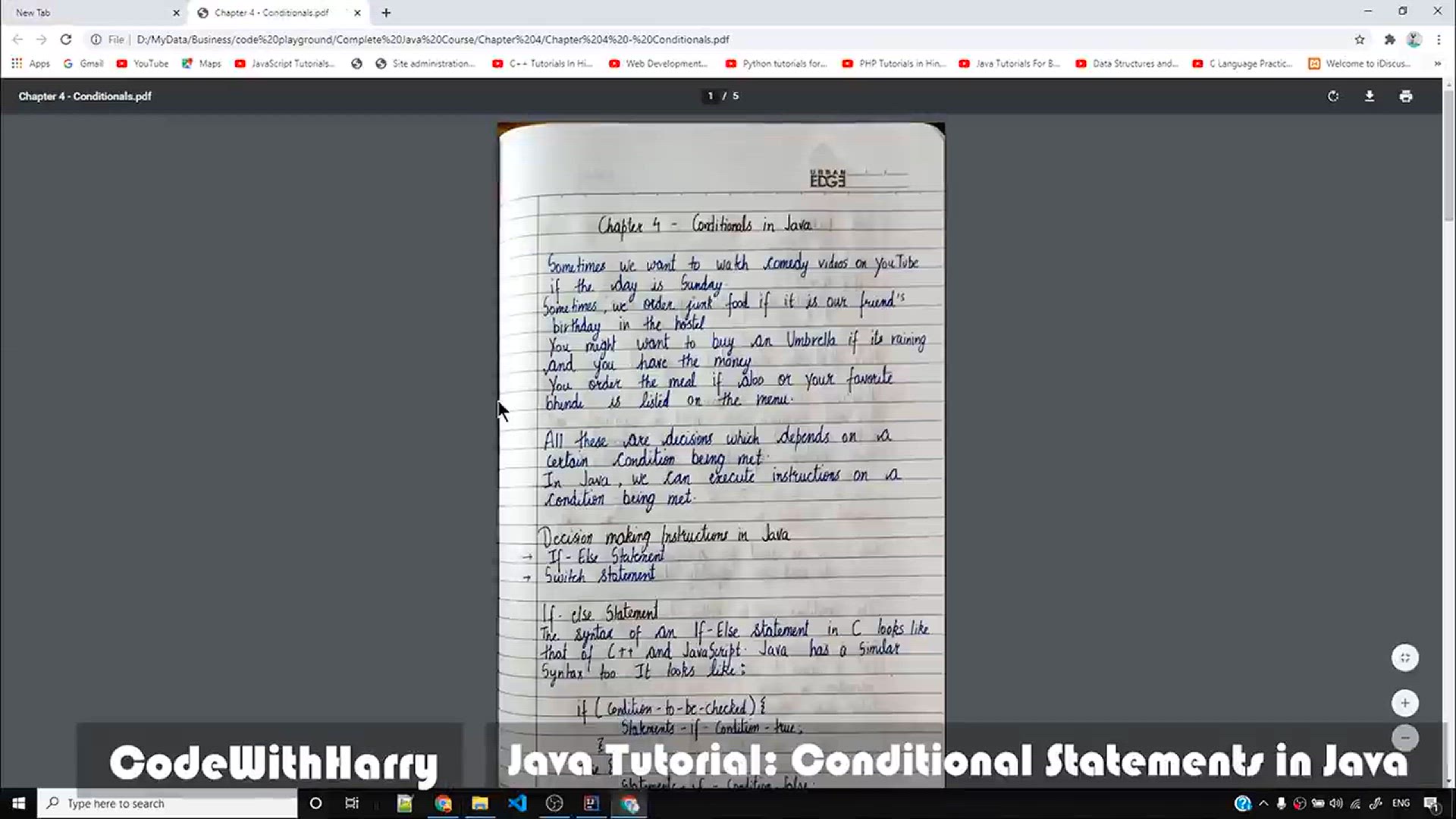
Java Conditionals_ If-else Statement in Java
573 views · Feb 12, 2024 codehunter.online
The "Java Conditionals: If-else Statement in Java" video provides a comprehensive explanation of the if-else statement, a fundamental conditional control structure in Java programming. It covers how to use the if-else statement to make decisions based on certain conditions, allowing for the execution of different blocks of code depending on whether the condition evaluates to true or false. The video offers clear explanations and practical examples to illustrate the syntax and usage of if-else statements in Java. By watching this tutorial, viewers will gain a solid understanding of how to effectively implement conditional logic in their Java programs using if-else statements, enabling them to write more dynamic and responsive code.
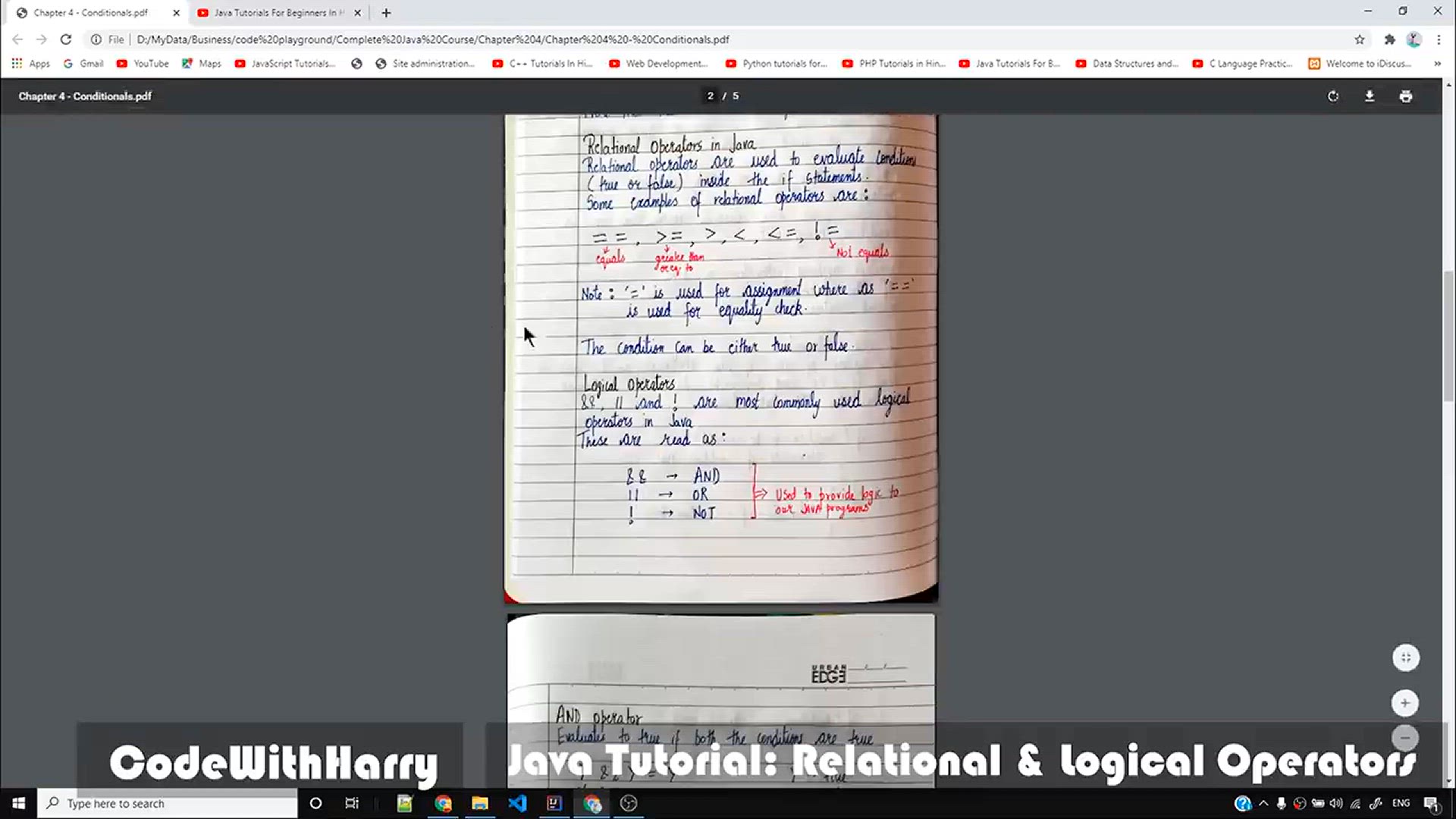
Java Tutorial_ Relational and Logical Operators in Java
22 views · Feb 12, 2024 codehunter.online
The "Java Tutorial: Relational and Logical Operators in Java" video provides an in-depth exploration of relational and logical operators, key components of Java programming. It covers how relational operators are used to compare values and produce boolean results, while logical operators are employed to combine multiple conditions and perform logical operations. Through clear explanations and practical examples, the video demonstrates how to use relational and logical operators effectively to make decisions and control program flow in Java. By watching this tutorial, viewers will gain a solid understanding of these essential operators, enabling them to write more robust and flexible Java code.
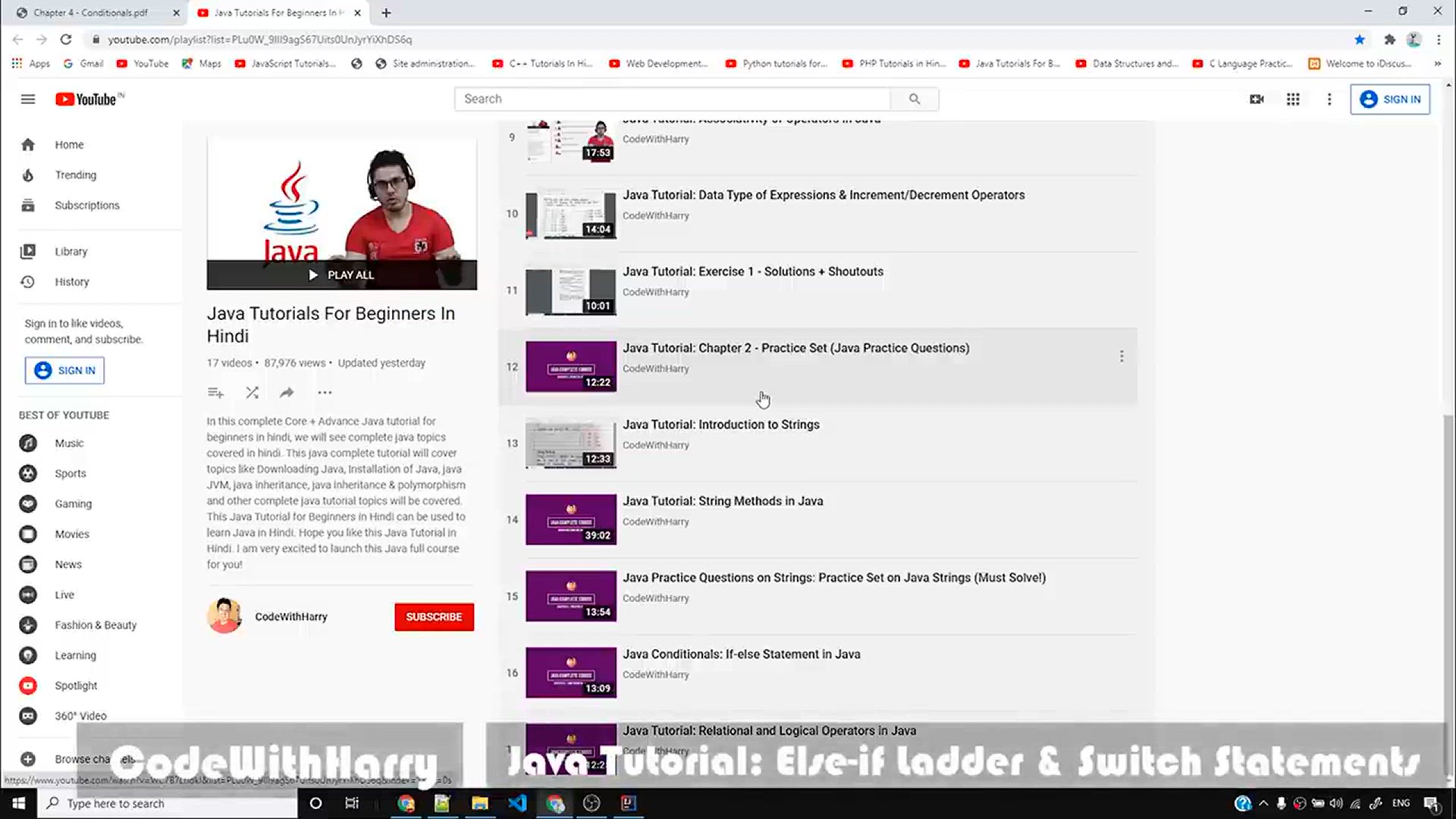
Java Tutorial_ Switch Case Statements in Java
27 views · Feb 12, 2024 codehunter.online
The "Java Tutorial: Switch Case Statements in Java" video is a comprehensive guide to using switch-case statements in Java programming. It covers how switch-case statements offer a structured approach to handling multiple conditions, allowing for efficient branching based on the value of a variable or expression. The video provides clear explanations of the syntax and usage of switch-case statements, along with practical examples to illustrate their versatility in Java programming. By watching this tutorial, viewers will gain a solid understanding of how to effectively implement switch-case statements to streamline decision-making processes and enhance code readability in Java programs.
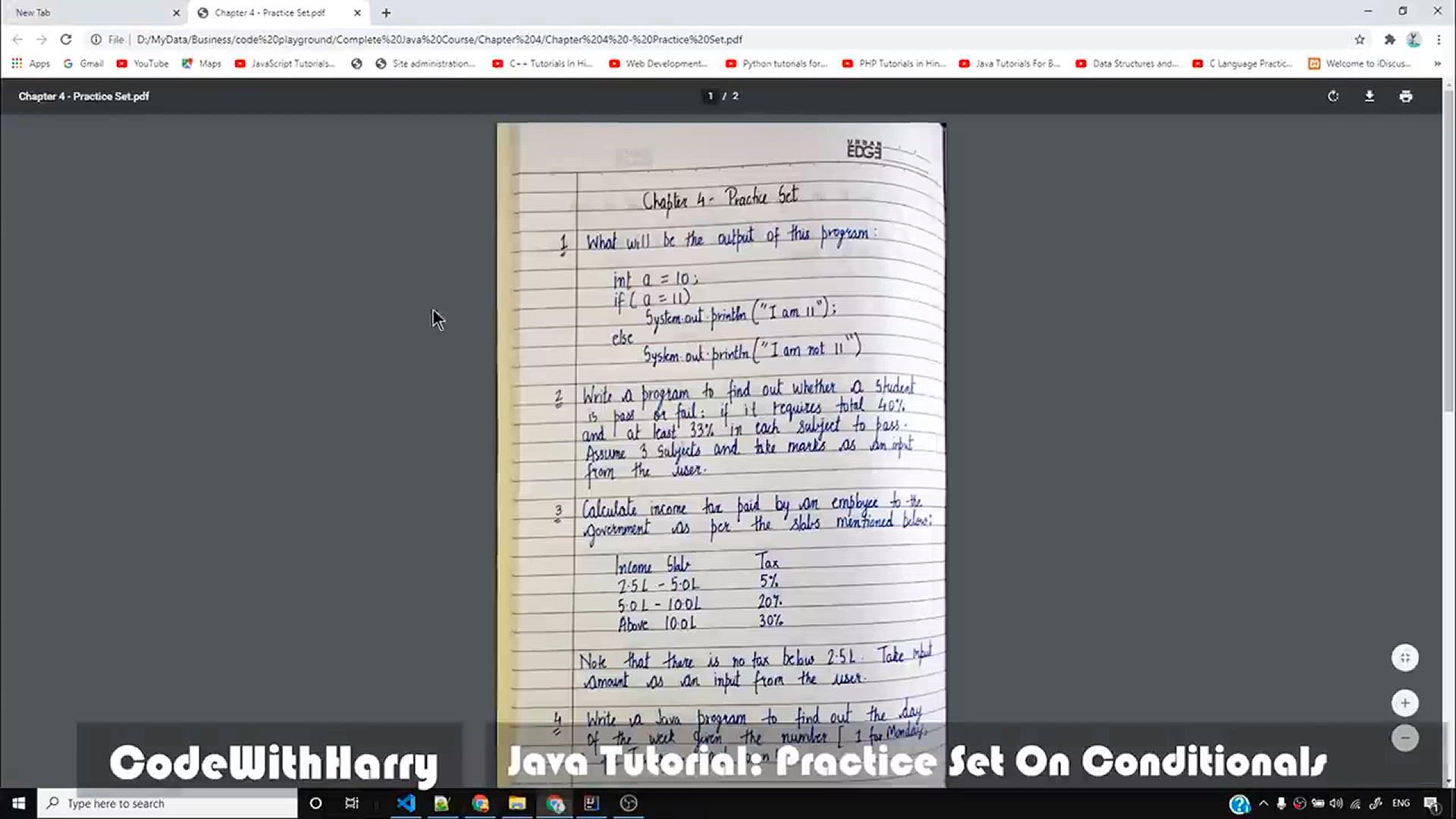
Java Tutorial_ Practice Questions On Conditionals & Swit...
49 views · Feb 12, 2024 codehunter.online
The "Java Tutorial: Practice Questions On Conditionals & Switch Case" video presents a series of practice questions focused on reinforcing understanding of conditional statements and switch-case constructs in Java programming. These questions cover various scenarios where conditional logic is required, challenging viewers to apply their knowledge of if-else statements and switch-case structures effectively. By encouraging viewers to solve these practice questions independently, the video aims to deepen their understanding of conditional programming concepts and enhance their problem-solving skills. This resource serves as a valuable tool for learners seeking to solidify their grasp of conditionals and switch-case statements in Java.
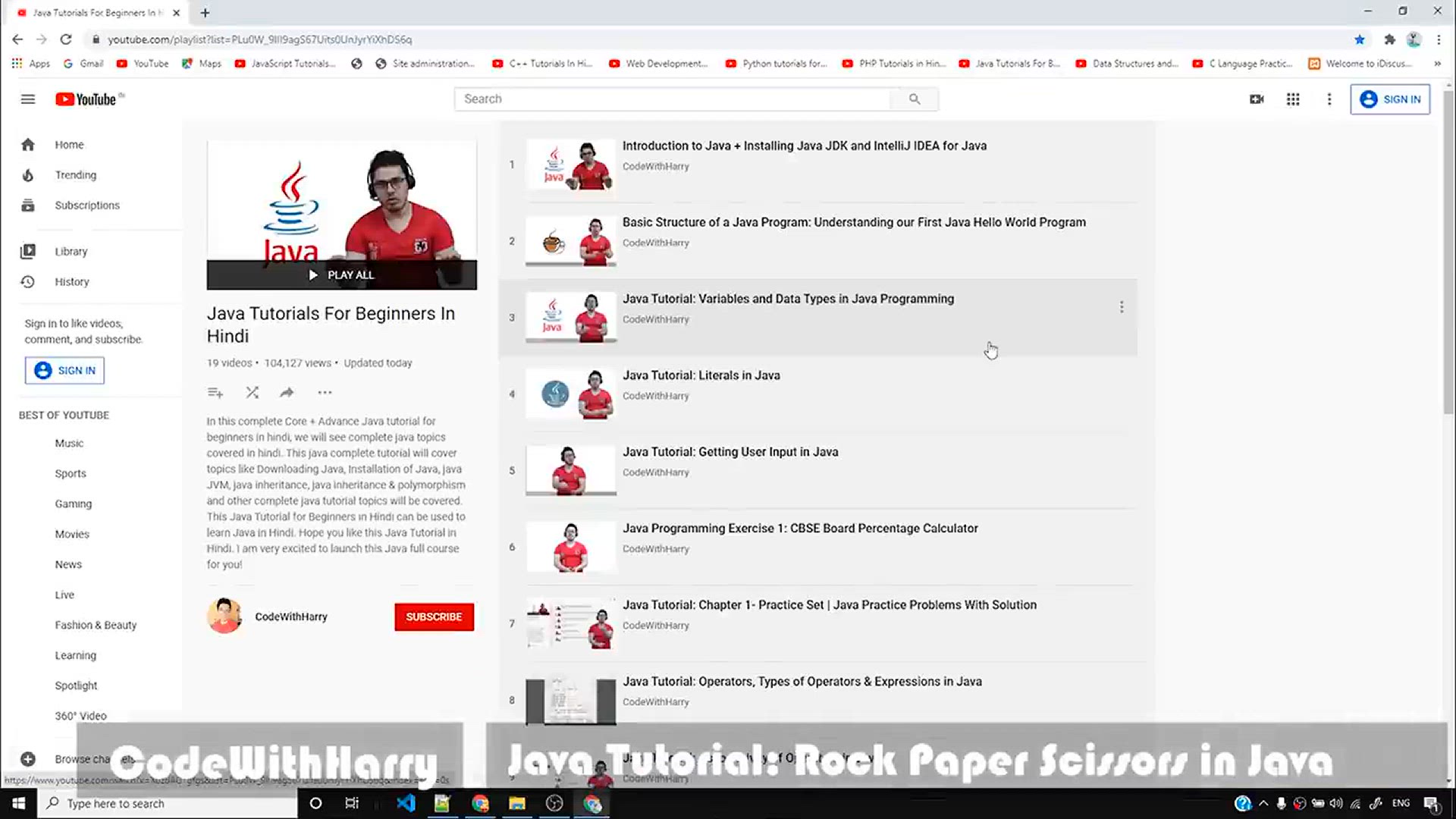
Java Programming Exercise 2_ Rock, Paper Scissors Game in Ja...
10K views · Feb 12, 2024 codehunter.online
The "Java Programming Exercise 2: Rock, Paper, Scissors Game in Java" video guides viewers through the creation of a classic game using Java programming. The tutorial demonstrates how to implement the rules and mechanics of the rock-paper-scissors game, allowing players to choose their move and compete against the computer. Through step-by-step instructions and explanations, viewers learn how to utilize fundamental Java concepts such as conditional statements, user input, random number generation, and loop structures to create an interactive game experience. By following along with this tutorial, viewers can enhance their understanding of Java programming principles while developing a fully functional game application. This exercise provides an engaging and practical way for learners to apply their Java skills in a fun and interactive project.
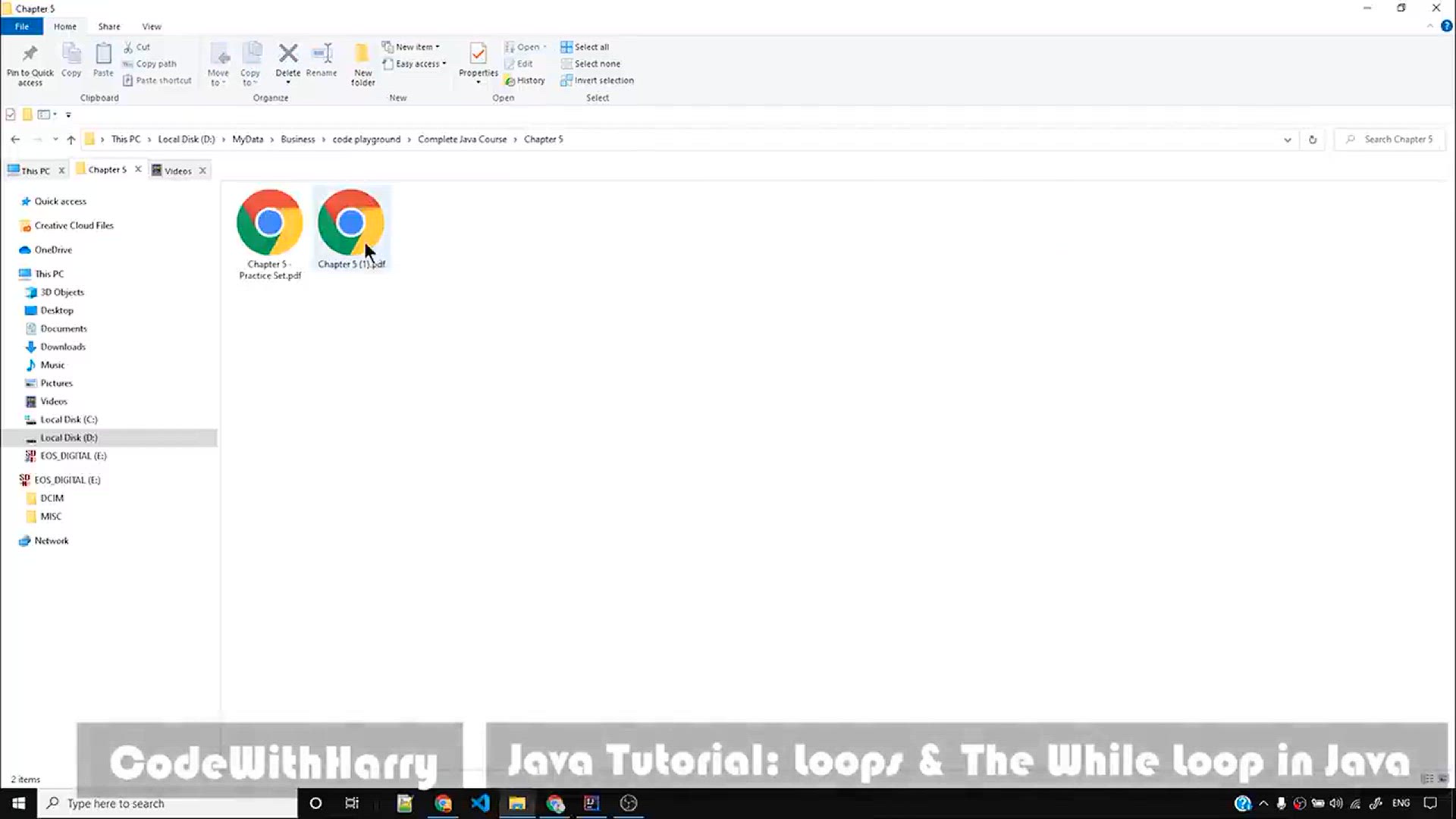
Java Tutorial_ While Loops in Java
26 views · Feb 12, 2024 codehunter.online
The "Java Tutorial: While Loops in Java" video provides a comprehensive overview of while loops, a fundamental looping construct in Java programming. It covers how while loops are used to repeatedly execute a block of code as long as a specified condition is true. The video offers clear explanations of the syntax and usage of while loops, along with practical examples to illustrate their versatility in Java programming. By watching this tutorial, viewers will gain a solid understanding of how to effectively implement while loops to automate repetitive tasks and control program flow in Java programs.
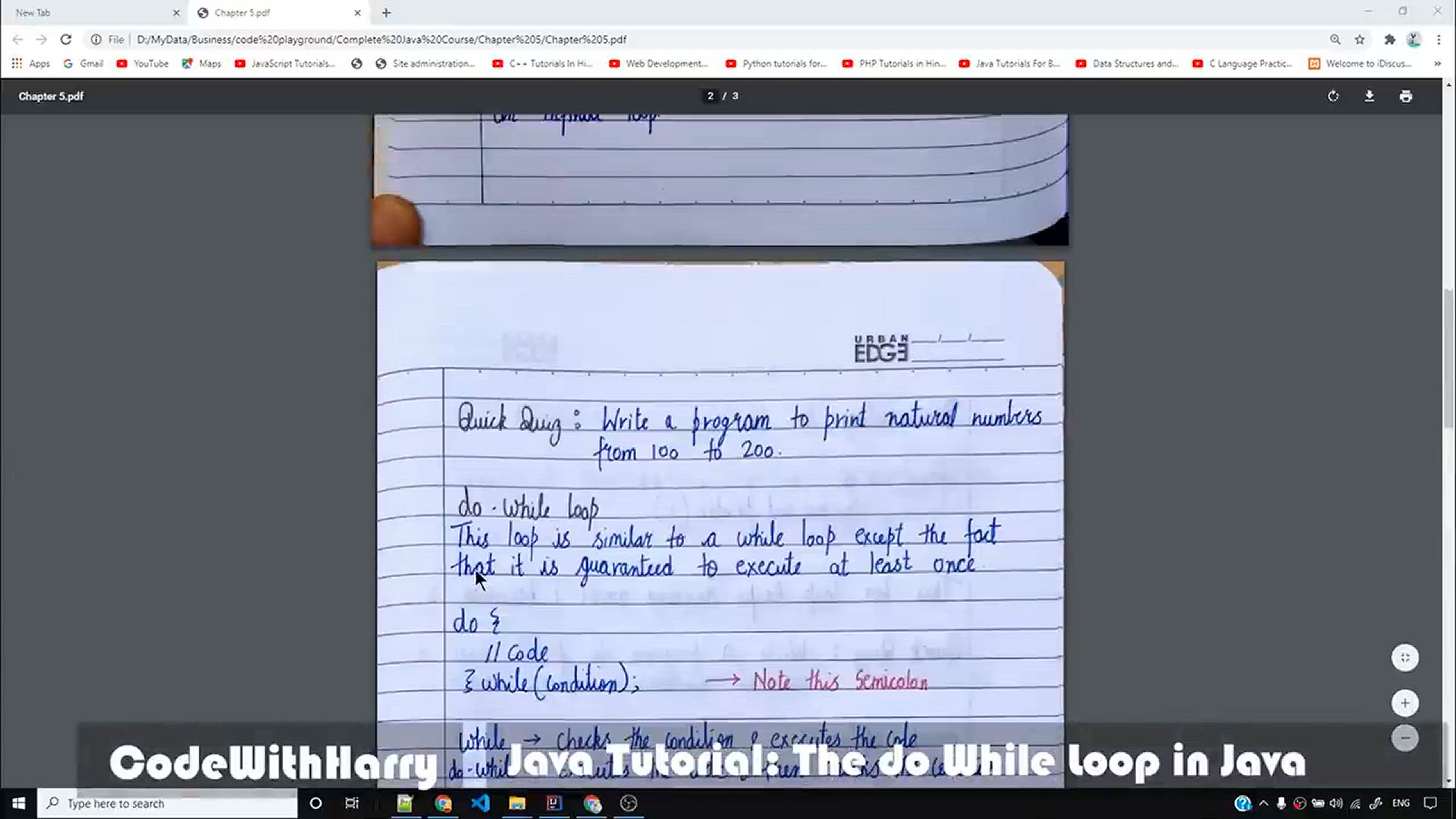
Java Tutorial_ The do-while loop in Java
57 views · Feb 12, 2024 codehunter.online
The "Java Tutorial: The do-while loop in Java" video is an instructional resource that explores the do-while loop, a looping construct in Java programming. Unlike the while loop, the do-while loop guarantees that its block of code is executed at least once, as the condition is evaluated after the loop body. The video provides clear explanations of the syntax and usage of the do-while loop, along with practical examples to illustrate its application in various scenarios. By watching this tutorial, viewers will gain a comprehensive understanding of how to utilize the do-while loop effectively to automate repetitive tasks and control program flow in Java programs.
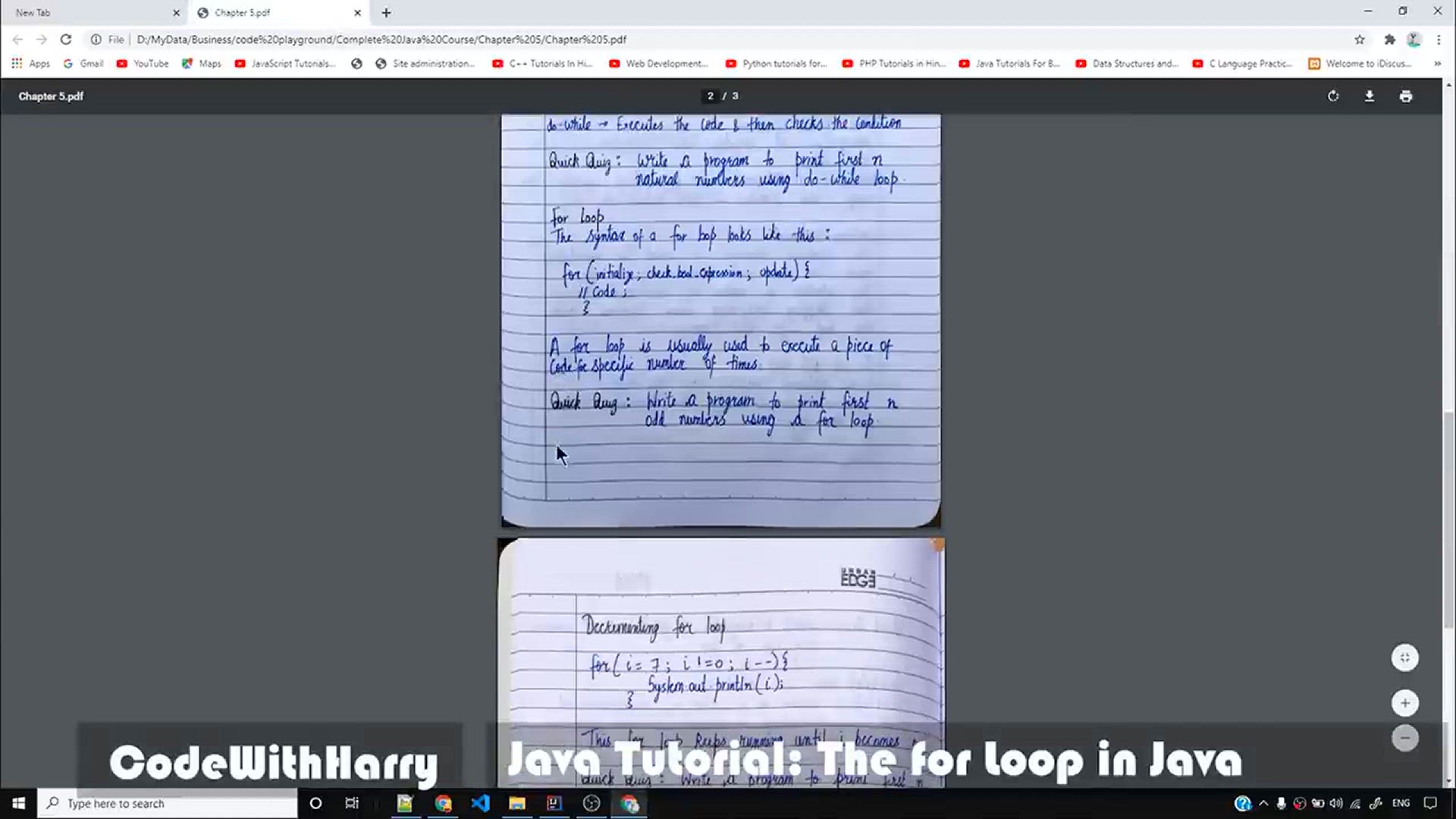
Java Tutorial_ The for Loop in Java
22 views · Feb 12, 2024 codehunter.online
The "Java Tutorial: The for Loop in Java" video is an instructional guide that delves into the for loop, a fundamental looping construct in Java programming. It provides a comprehensive overview of the syntax and functionality of the for loop, which is commonly used to iterate over a range of values or to execute a block of code a predetermined number of times. The video offers clear explanations and practical examples to illustrate how to utilize the for loop effectively in Java programming. By watching this tutorial, viewers will gain a solid understanding of how to implement and leverage the for loop to automate repetitive tasks and control program flow in Java programs.
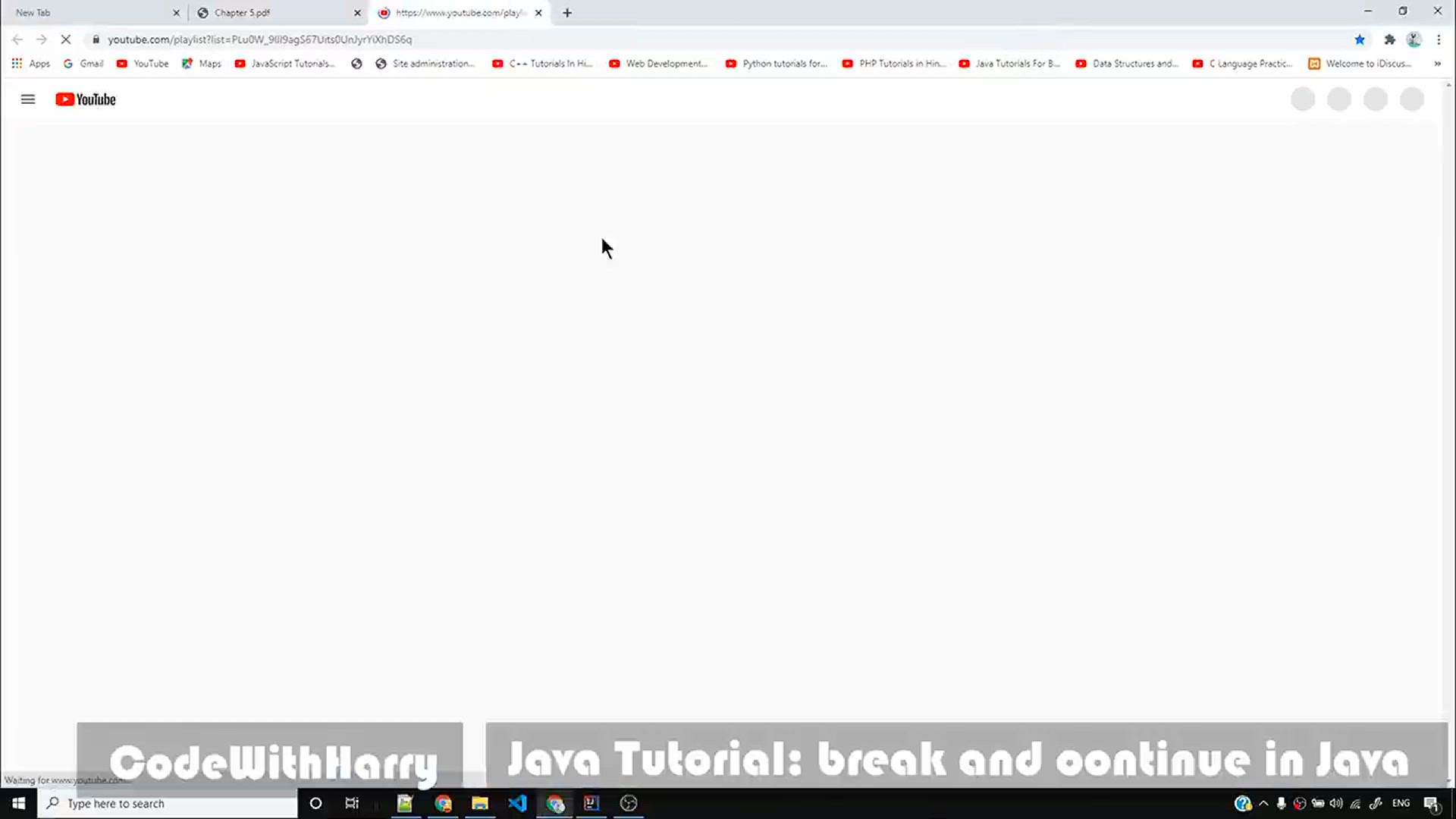
Java Tutorial_ break and continue in Java
8 views · Feb 12, 2024 codehunter.online
The "Java Tutorial: break and continue in Java" video offers a comprehensive explanation of the "break" and "continue" statements in Java programming. These statements are crucial for controlling the flow of loops. "break" terminates the loop prematurely when a certain condition is met, while "continue" skips the current iteration of the loop and continues with the next iteration. The video provides clear examples and use cases for both statements, demonstrating how they can be effectively utilized to enhance the efficiency and readability of Java code. By watching this tutorial, viewers will gain a solid understanding of how to use "break" and "continue" statements to manage loops and improve the control flow of their Java programs.
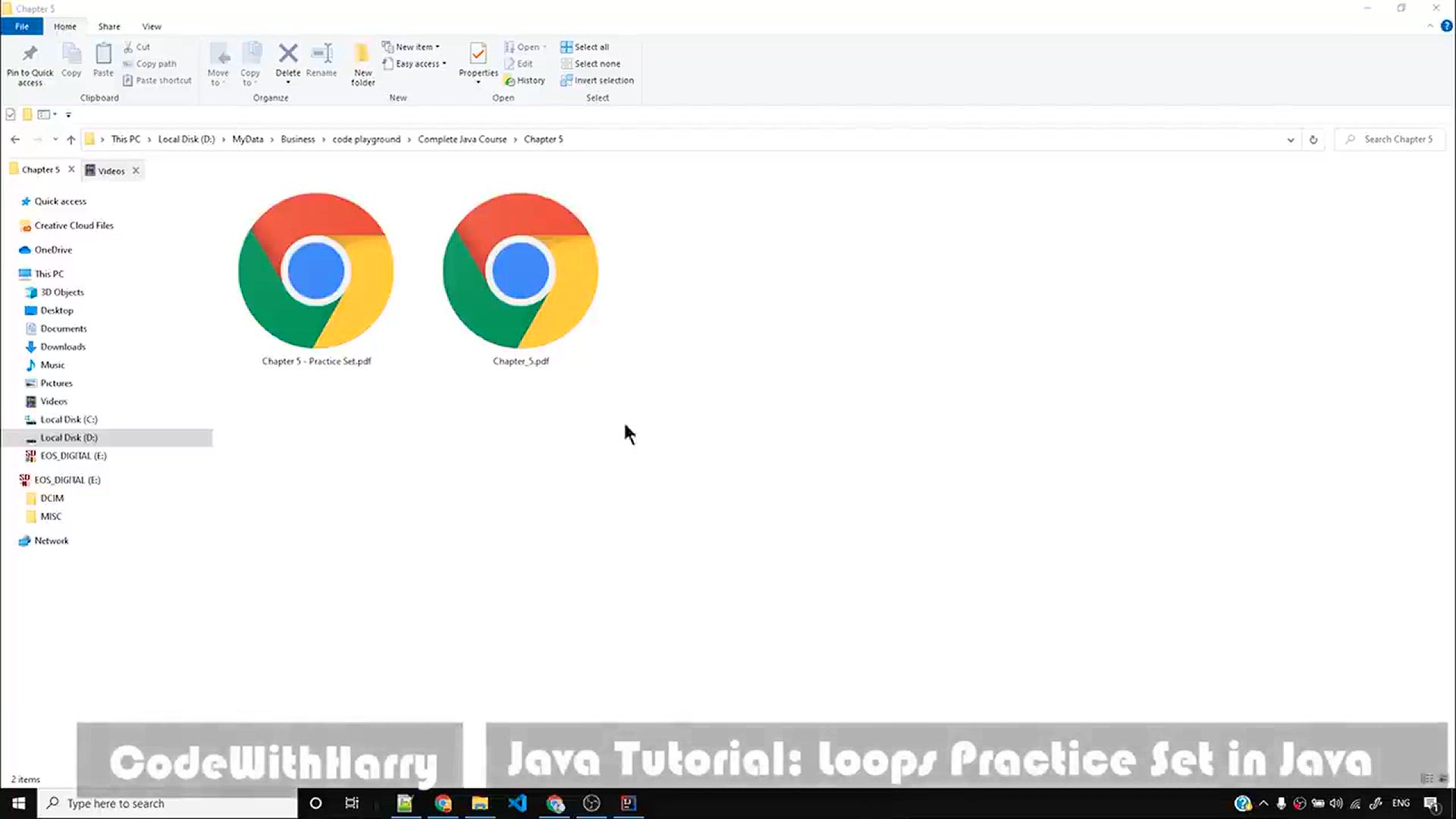
Java tutorial_ Practice Questions on Loops
7 views · Feb 12, 2024 codehunter.online
The "Java Tutorial: Practice Questions on Loops" video presents a series of practice questions focused on reinforcing understanding and proficiency in working with loops in Java programming. These questions cover various scenarios where loops are essential for iterative tasks and control flow. By challenging viewers to solve these practice questions independently, the video aims to enhance problem-solving skills and deepen understanding of loop constructs such as "for", "while", and "do-while". This resource serves as a valuable tool for learners seeking to strengthen their grasp of loop structures and their application in Java programming.
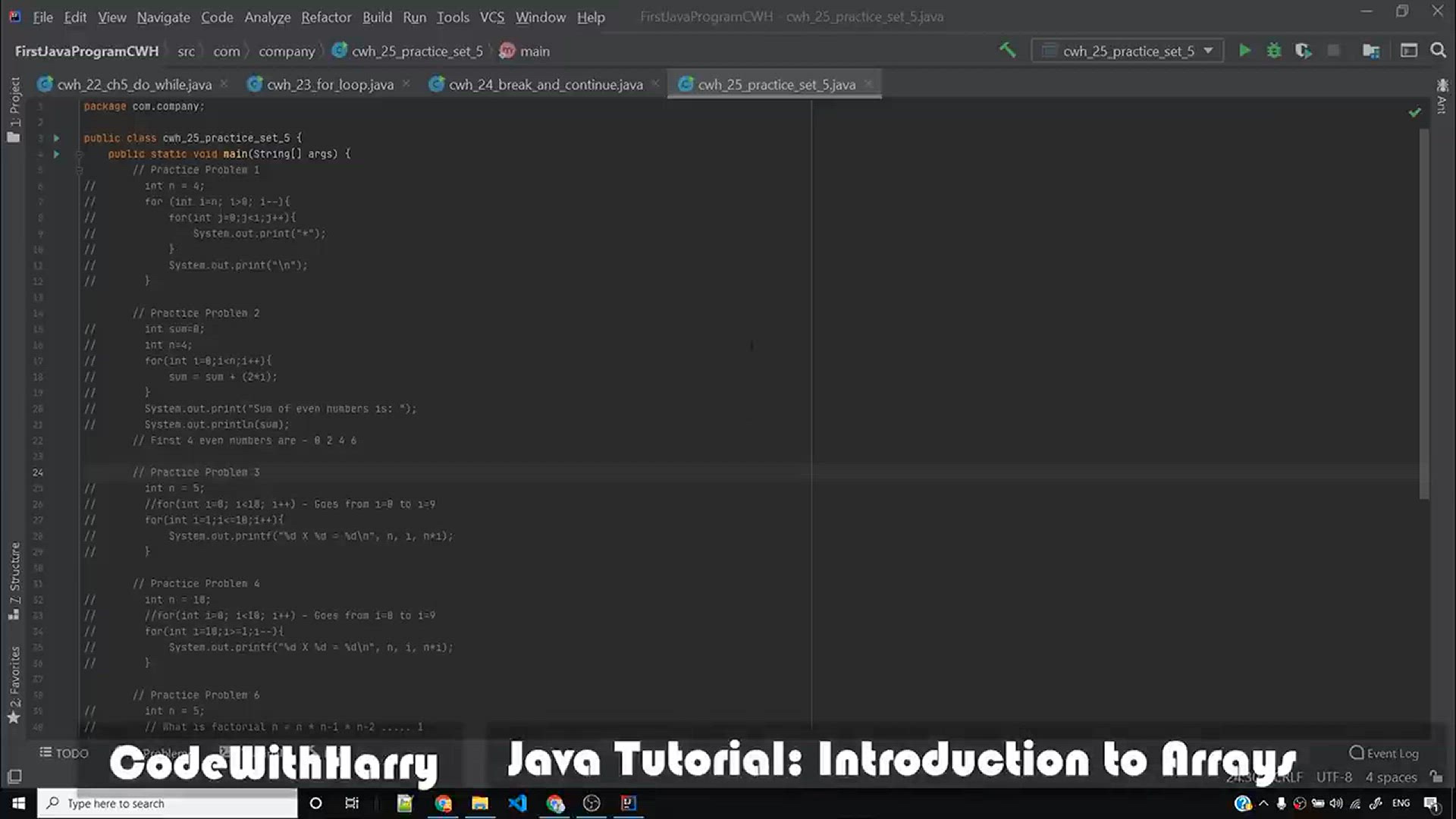
Java Tutorial_ Introduction to Arrays
7K views · Feb 12, 2024 codehunter.online
The "Java Tutorial: Introduction to Arrays" video provides an essential introduction to arrays in Java programming. It covers how arrays allow for the storage of multiple values of the same data type in a single variable, providing a convenient way to manage collections of data. The video explains the syntax for declaring and initializing arrays, accessing individual elements, and performing common operations such as iteration and modification. Through clear explanations and practical examples, viewers learn how to effectively utilize arrays in Java programming to streamline code and manage data efficiently. By watching this tutorial, viewers will gain a solid understanding of the fundamentals of arrays, enabling them to leverage this powerful data structure in their Java programs.
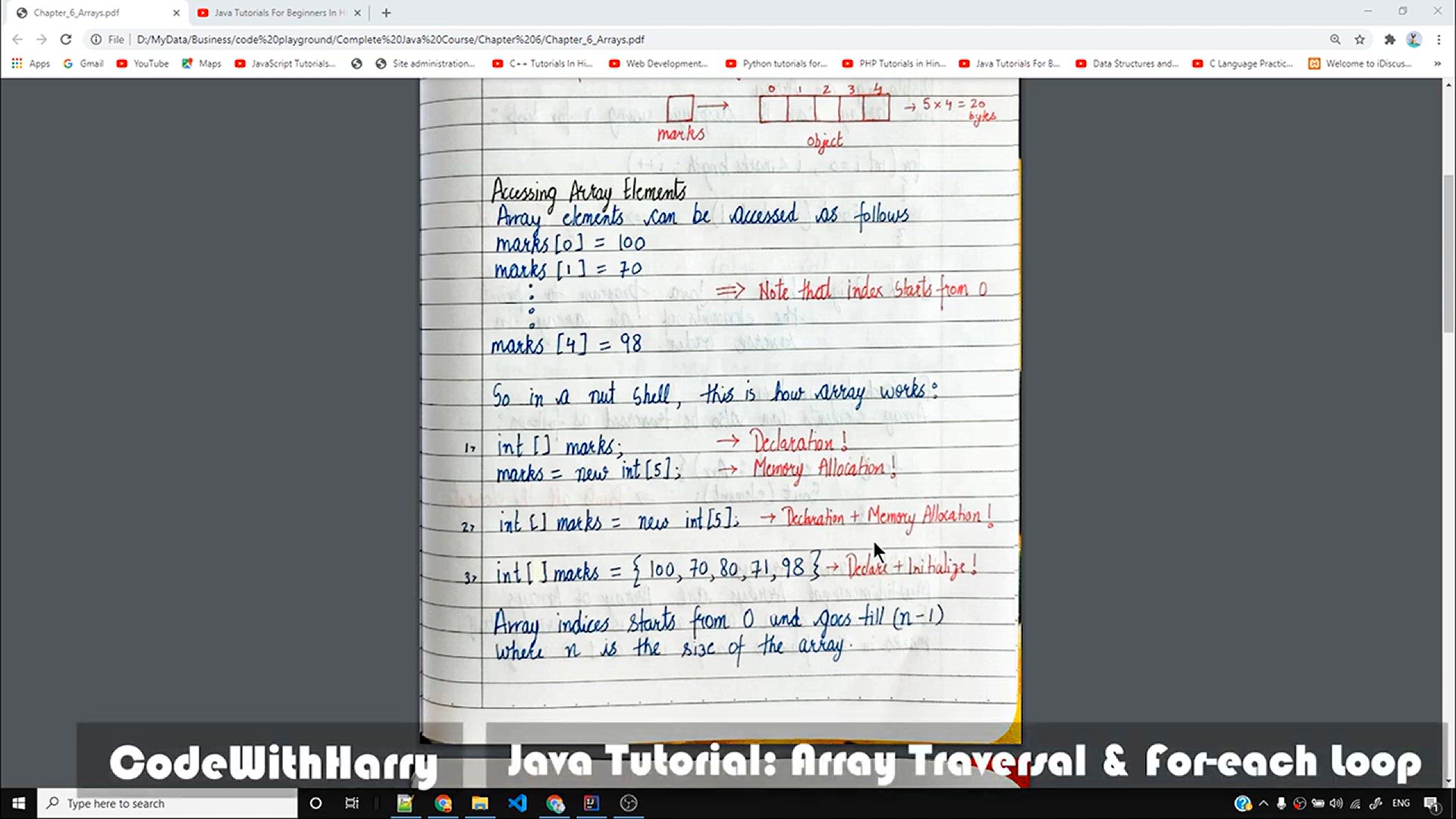
Java Tutorial_ For Each Loop in Java
0 views · Feb 12, 2024 codehunter.online
The "Java Tutorial: For Each Loop in Java" video explores the for-each loop, also known as the enhanced for loop, in Java programming. It provides a detailed explanation of how this loop simplifies the process of iterating over arrays and collections by eliminating the need for manual indexing and bounds checking. The video covers the syntax and usage of the for-each loop, demonstrating how it can iterate over each element of an array or collection sequentially. Through clear explanations and practical examples, viewers learn how to leverage the for-each loop to streamline iteration tasks and improve code readability in Java programs. By watching this tutorial, viewers will gain a solid understanding of how to effectively use the for-each loop in their Java programming projects.
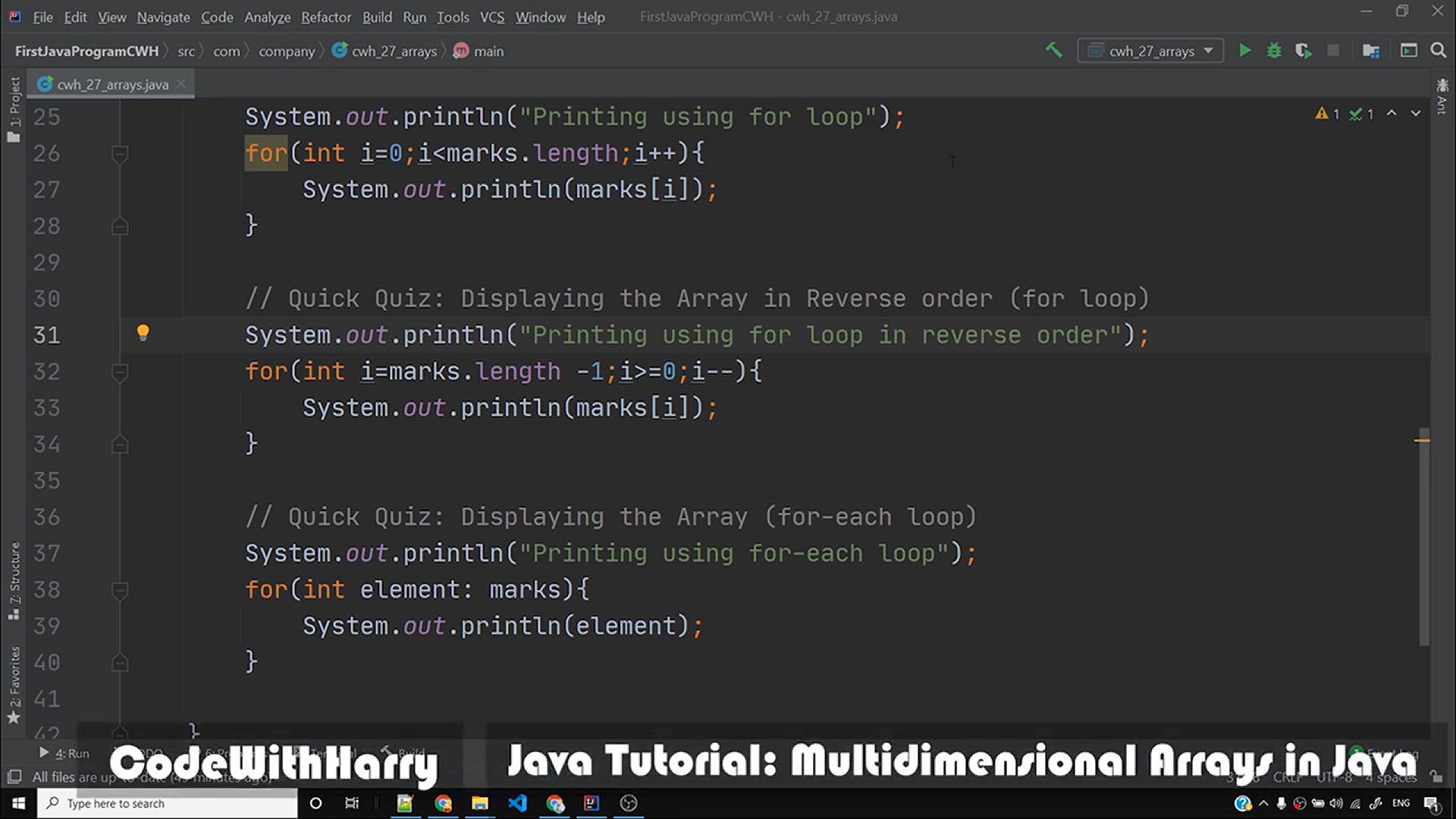
Java Tutorial_ Multidimensional Arrays in Java
12 views · Feb 12, 2024 codehunter.online
The "Java Tutorial: Multidimensional Arrays in Java" video offers an in-depth exploration of multidimensional arrays, a fundamental data structure in Java programming. It covers how multidimensional arrays allow for the organization of data in multiple dimensions, providing a convenient way to represent tables, matrices, and other complex structures. The video explains the syntax for declaring and initializing multidimensional arrays, accessing individual elements, and performing common operations such as traversal and manipulation. Through clear explanations and practical examples, viewers learn how to effectively utilize multidimensional arrays in Java programming to handle complex data sets and solve various computational problems. By watching this tutorial, viewers will gain a solid understanding of how to work with multidimensional arrays and leverage them in their Java programs.
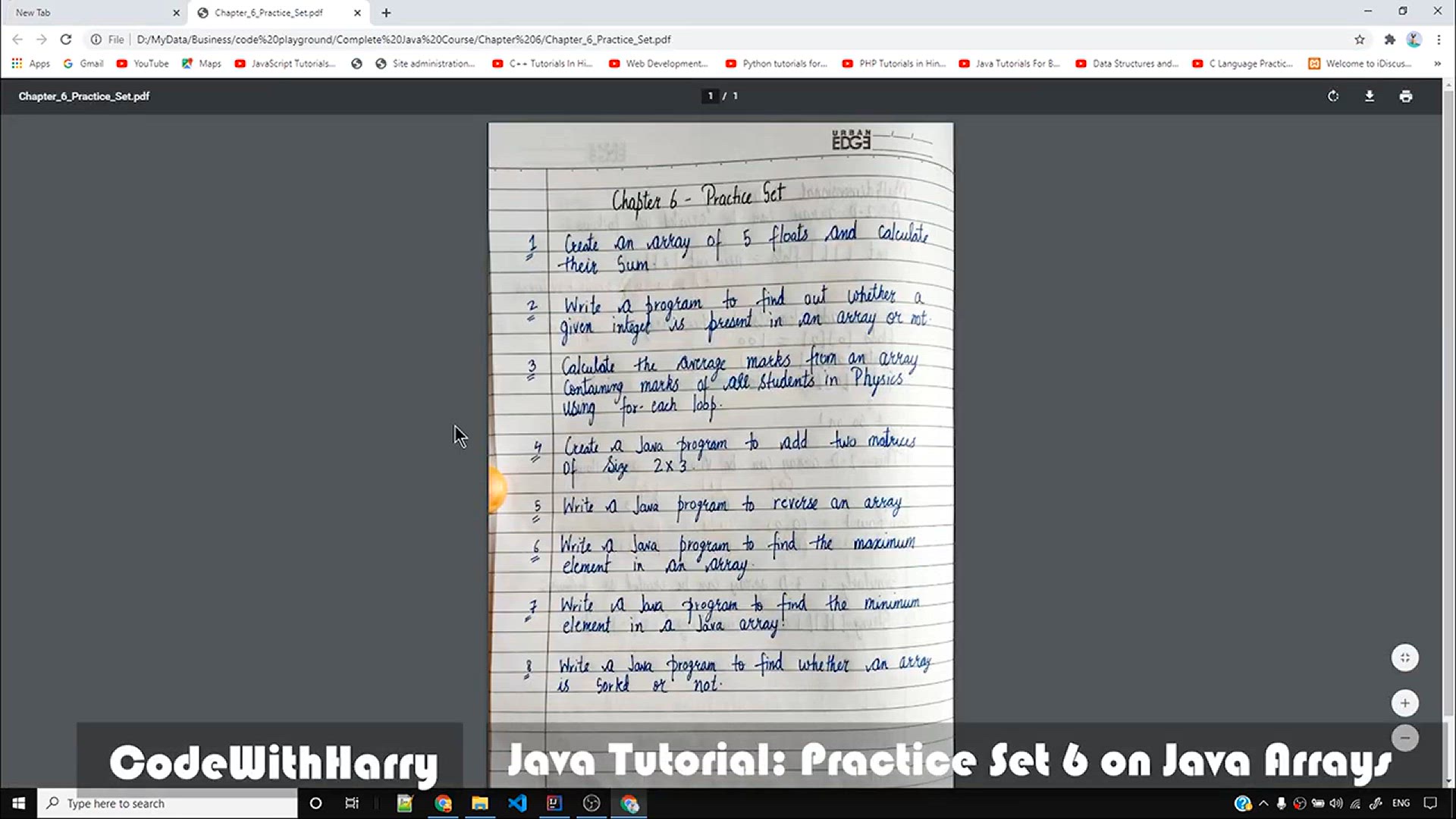
Java Tutorial_ Practice Questions on Arrays in Java
392 views · Feb 12, 2024 codehunter.online
The "Java Tutorial: Practice Questions on Arrays in Java" video presents a series of practice questions focused on strengthening understanding and proficiency in working with arrays in Java programming. These questions cover a wide range of array-related concepts, including declaration, initialization, traversal, manipulation, and searching. By challenging viewers to solve these practice questions independently, the video aims to enhance problem-solving skills and deepen comprehension of array structures and their application in Java programming. This resource serves as a valuable tool for learners seeking to solidify their grasp of arrays and their usage in Java programming.
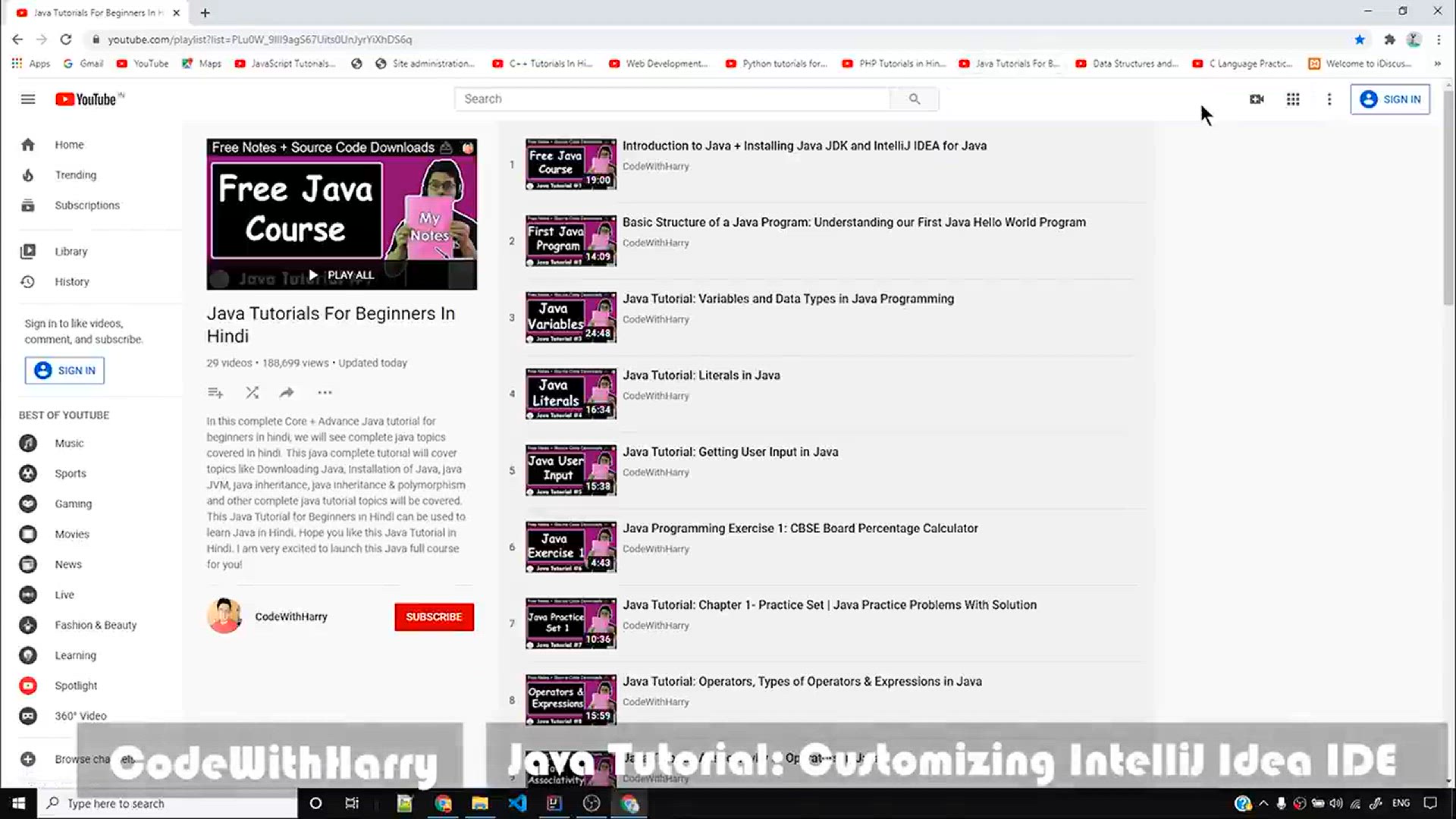
How to Make IntelliJ IDEA look Amazing!
446 views · Feb 12, 2024 codehunter.online
The "How to Make IntelliJ IDEA look Amazing!" video provides viewers with tips and tricks to customize the appearance of their IntelliJ IDEA Integrated Development Environment (IDE). The video covers various customization options, including themes, color schemes, fonts, and icon packs, to enhance the visual appeal and usability of IntelliJ IDEA. Through step-by-step instructions and demonstrations, viewers learn how to personalize their IntelliJ IDEA setup to suit their preferences and improve their coding experience. Whether it's adjusting the color scheme for better readability or installing plugins for additional functionality, this video offers practical advice to help users make their IntelliJ IDEA workspace look and feel amazing.
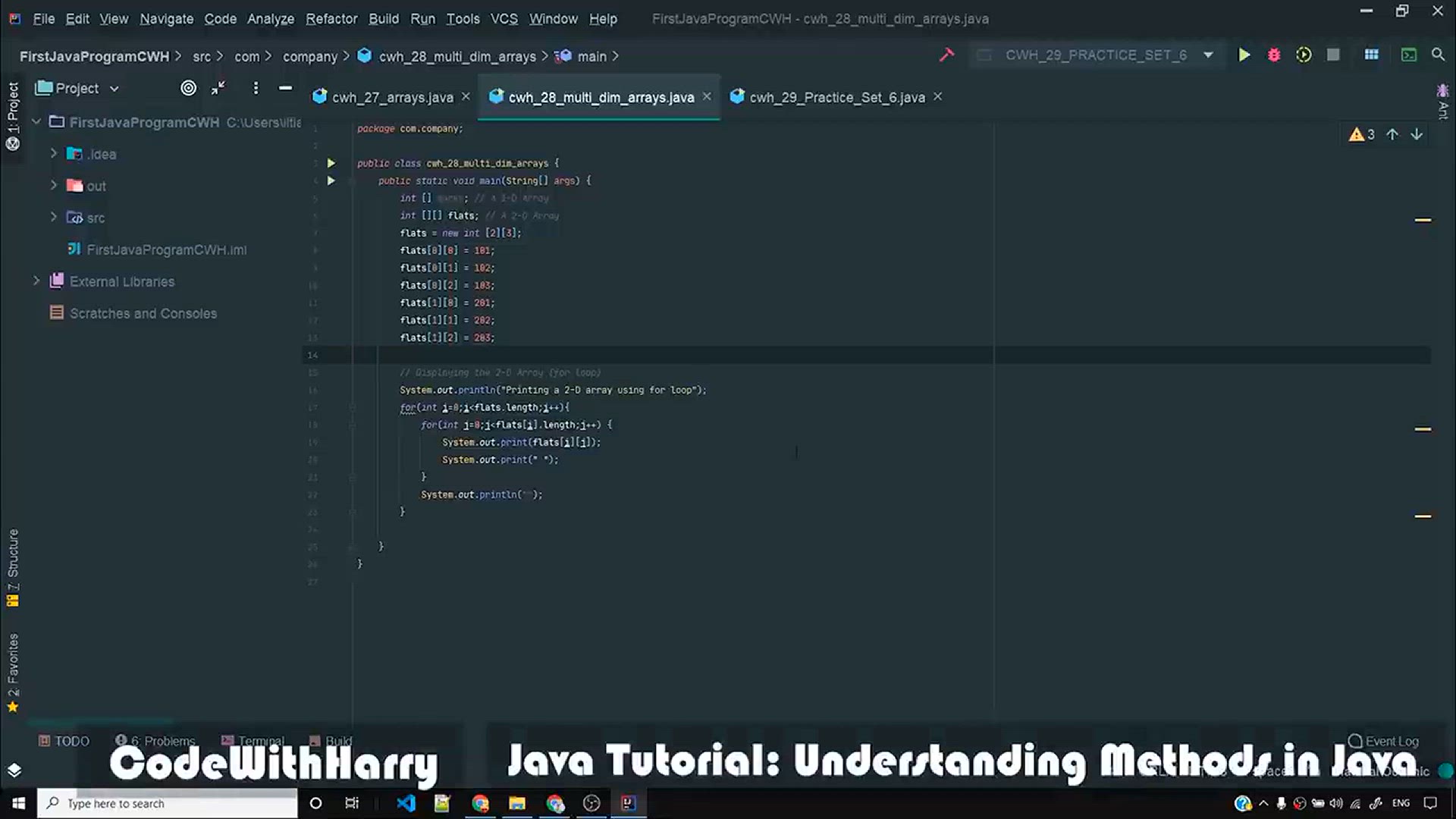
Java Tutorial_ Methods in Java
59 views · Feb 12, 2024 codehunter.online
The "Java Tutorial: Methods in Java" video serves as a comprehensive guide to understanding methods, a crucial aspect of Java programming. It covers how methods are used to encapsulate reusable blocks of code, enhancing code organization, readability, and maintainability. The video explains the syntax for declaring and invoking methods, passing parameters, and returning values. Through clear explanations and practical examples, viewers learn how to define their own methods, understand method overloading, and leverage built-in Java methods effectively. By watching this tutorial, viewers will gain a solid understanding of how to utilize methods in Java programming to write modular and efficient code.
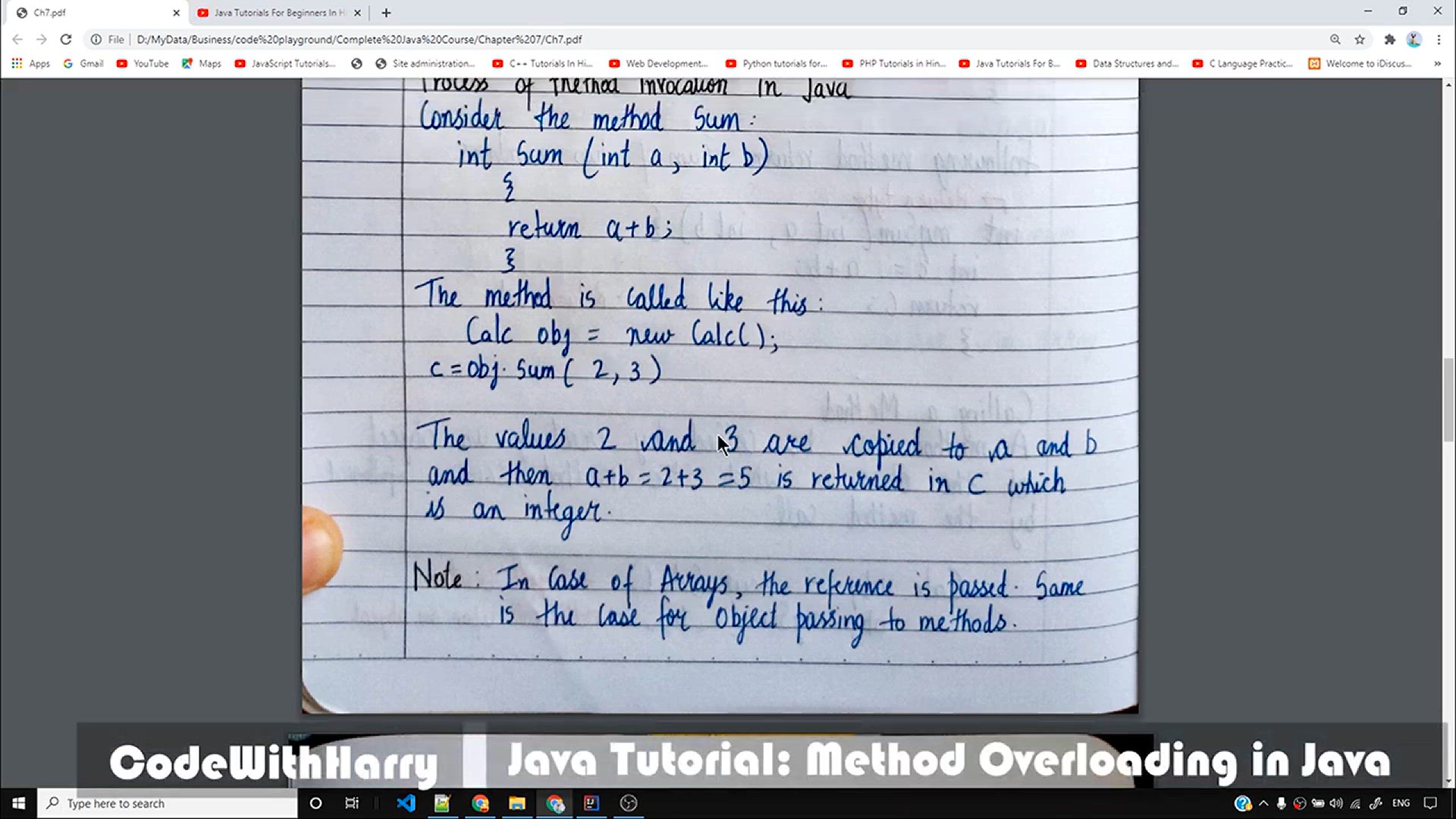
Java Tutorial_ Method Overloading in Java
5 views · Feb 12, 2024 codehunter.online
The "Java Tutorial: Method Overloading in Java" video provides an in-depth explanation of method overloading, a key feature in Java programming. It covers how method overloading allows multiple methods with the same name but different parameters to exist within the same class, enabling more flexible and intuitive code design. The video explores the syntax and rules governing method overloading, as well as its benefits in improving code readability and maintainability. Through clear explanations and practical examples, viewers learn how to effectively use method overloading to create versatile and expressive Java programs. By watching this tutorial, viewers will gain a solid understanding of how to implement and leverage method overloading in their Java projects.
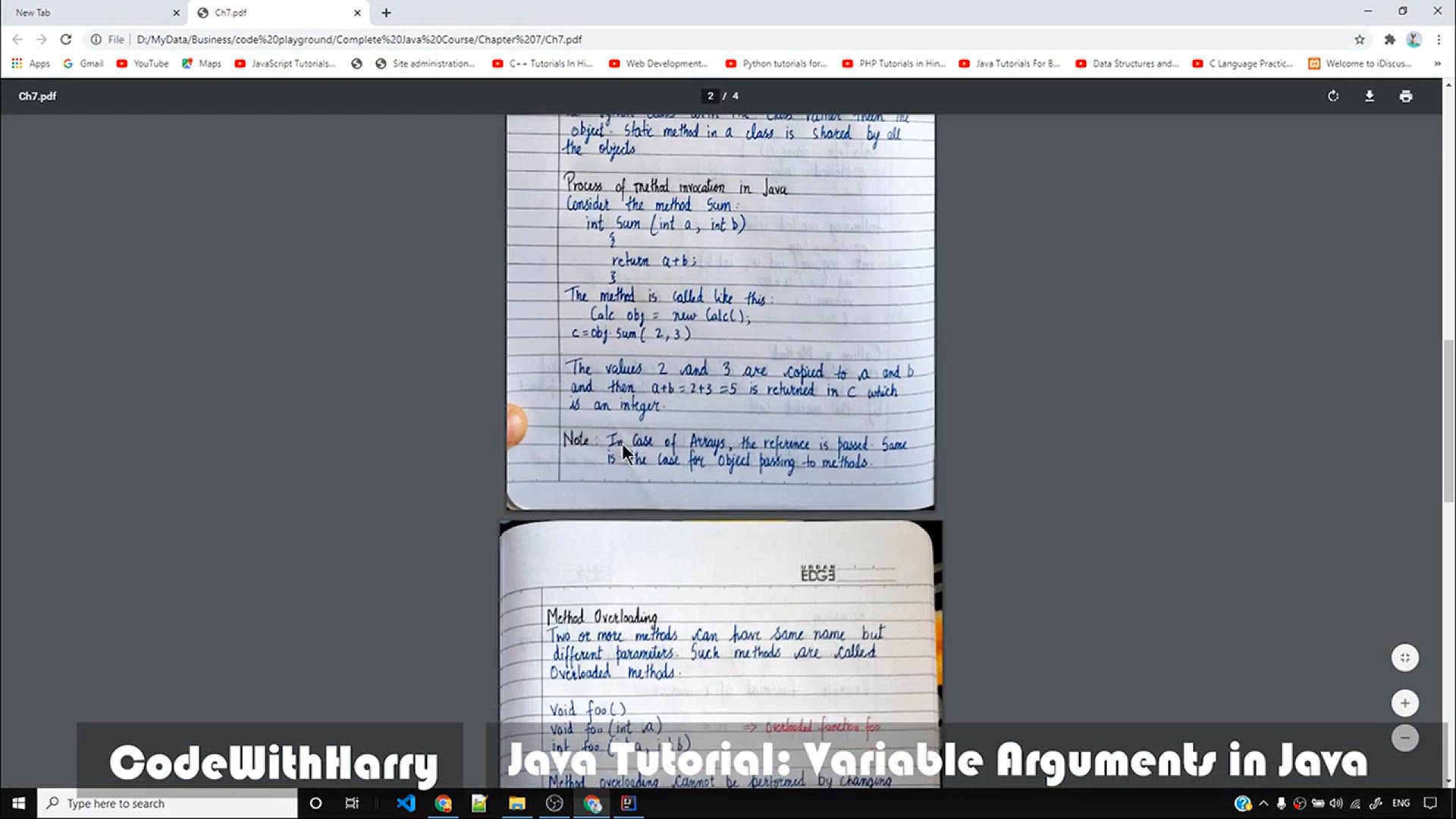
Java Tutorial_ Variable Arguments (VarArgs) in Java
17 views · Feb 12, 2024 codehunter.online
The "Java Tutorial: Variable Arguments (VarArgs) in Java" video provides an in-depth exploration of variable arguments, also known as VarArgs, in Java programming. It covers how VarArgs allows methods to accept a variable number of arguments of the same type, providing flexibility and convenience when working with methods that can accept different numbers of parameters. The video explains the syntax for declaring and using VarArgs, as well as common usage patterns and best practices. Through clear explanations and practical examples, viewers learn how to effectively utilize VarArgs to simplify method declarations and enhance code readability in Java programs. By watching this tutorial, viewers will gain a solid understanding of how to leverage VarArgs to create more versatile and expressive Java methods.
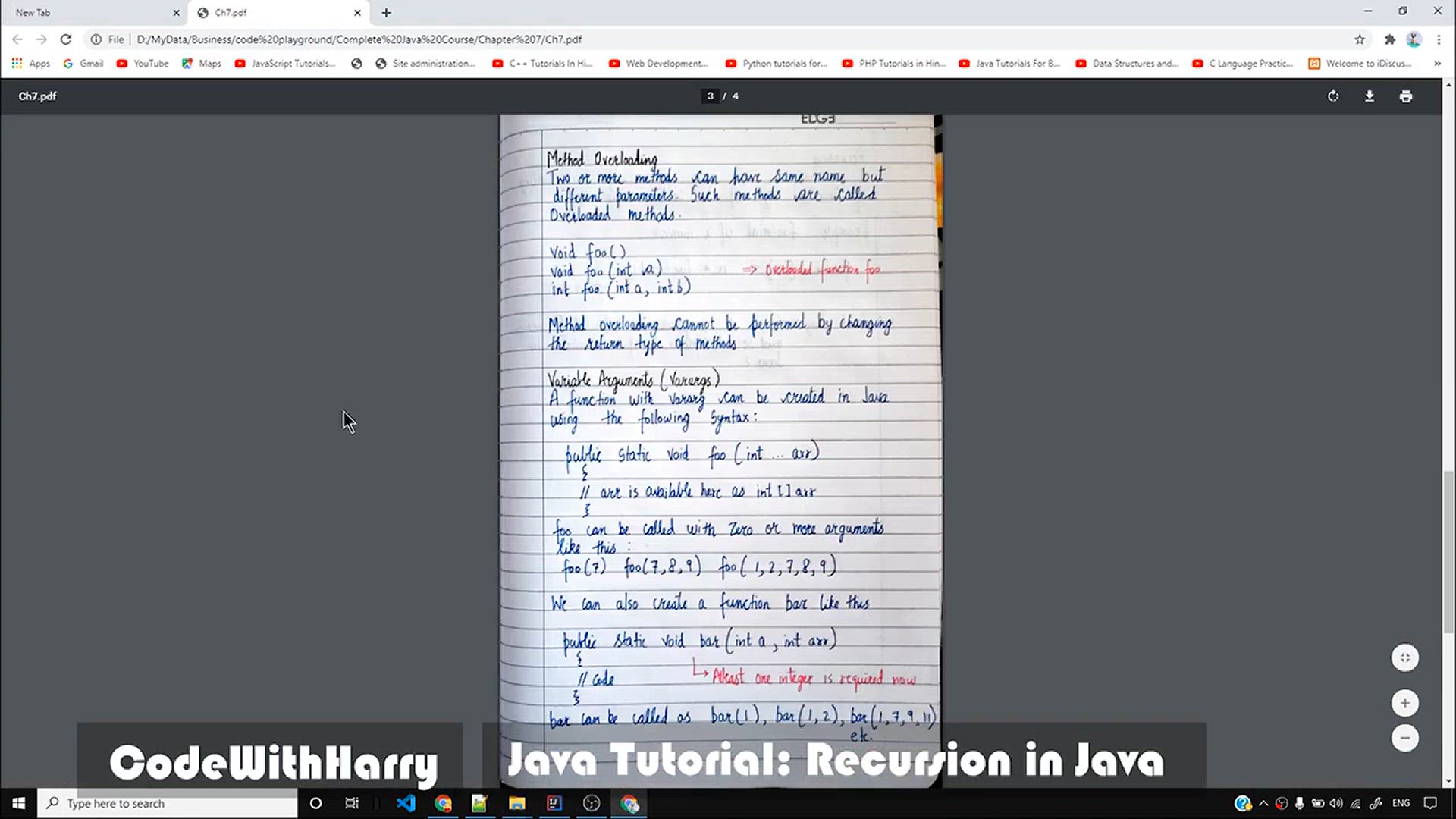
Java Tutorial_ Recursion in Java
25 views · Feb 12, 2024 codehunter.online
The "Java Tutorial: Recursion in Java" video serves as a comprehensive guide to understanding recursion, an essential concept in Java programming. It covers how recursion allows methods to call themselves repeatedly to solve problems by breaking them down into smaller, similar subproblems. The video explains the basic principles of recursion, including base cases and recursive calls, as well as common recursion techniques such as factorial calculation and Fibonacci sequence generation. Through clear explanations and practical examples, viewers learn how to implement and utilize recursion effectively in Java programming to solve a variety of computational problems. By watching this tutorial, viewers will gain a solid understanding of how to leverage recursion as a powerful problem-solving technique in their Java projects.
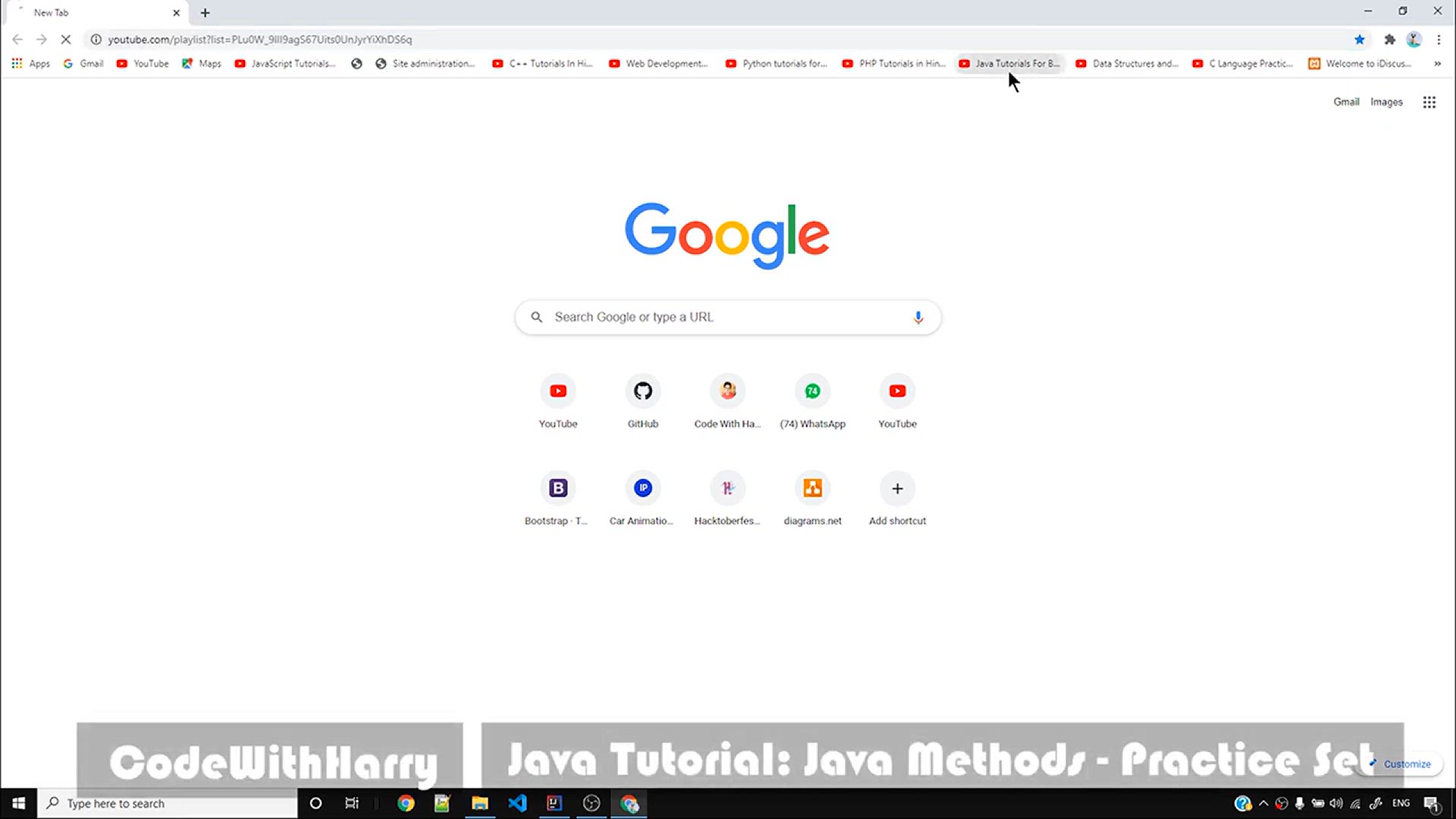
Java Tutorial_ Practice Questions on Java Methods
5K views · Feb 12, 2024 codehunter.online
The "Java Tutorial: Practice Questions on Java Methods" video presents a series of practice questions focused on reinforcing understanding and proficiency in working with methods in Java programming. These questions cover various aspects of method declaration, invocation, parameter passing, return types, and method overloading. By challenging viewers to solve these practice questions independently, the video aims to enhance problem-solving skills and deepen comprehension of method-related concepts in Java programming. This resource serves as a valuable tool for learners seeking to solidify their grasp of methods and their usage in Java programming.
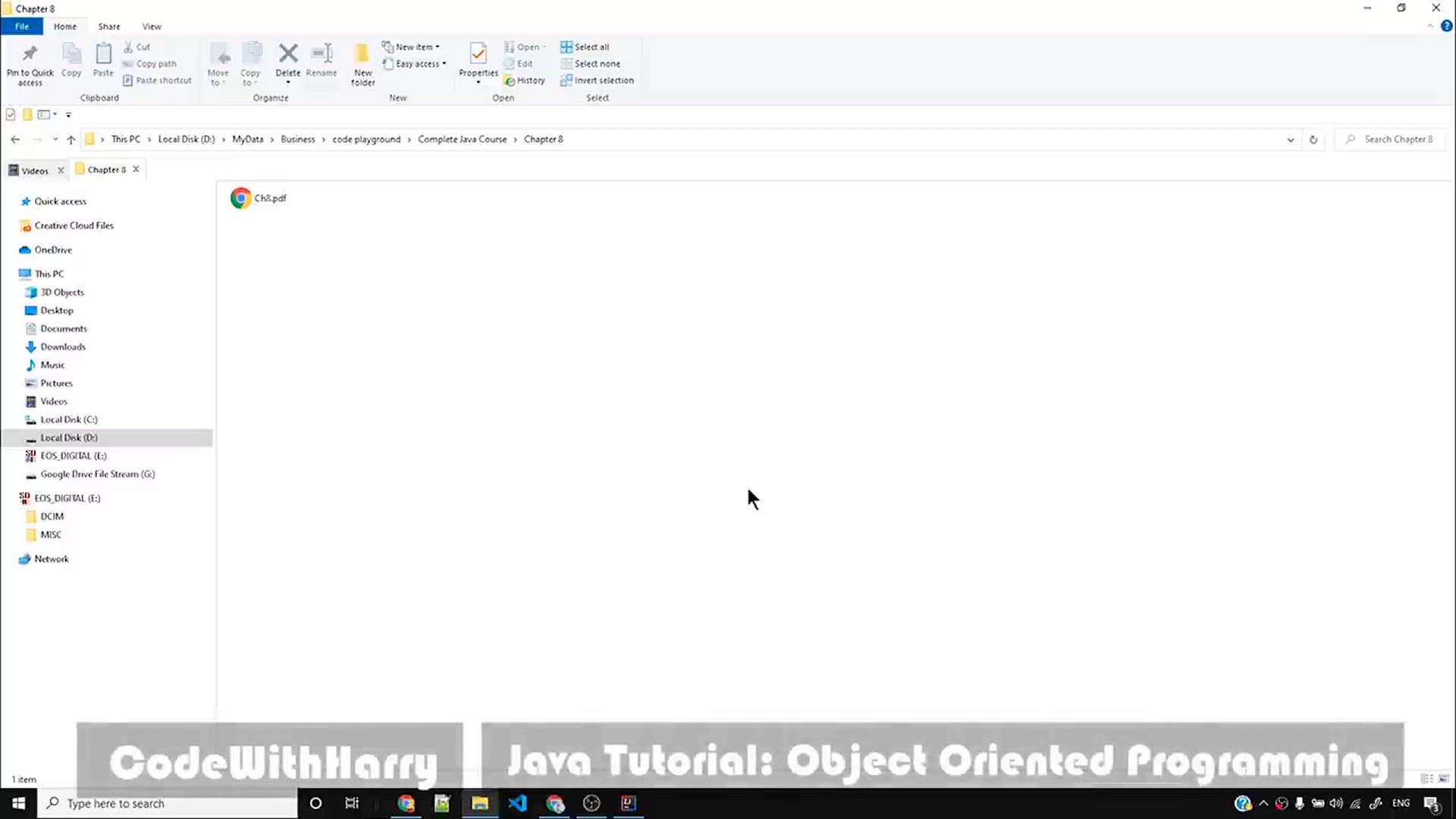
Java Tutorial_ Introduction to Object Oriented Programming
7 views · Feb 12, 2024 codehunter.online
The "Java Tutorial: Introduction to Object-Oriented Programming" video provides viewers with a comprehensive overview of the principles and concepts of Object-Oriented Programming (OOP) in Java. It covers essential OOP concepts such as classes, objects, inheritance, encapsulation, and polymorphism. The video explains how OOP enables developers to model real-world entities as objects with properties and behaviors, fostering modular and reusable code. Through clear explanations and practical examples, viewers learn how to design and implement object-oriented solutions in Java, enabling them to write more efficient, scalable, and maintainable code. By watching this tutorial, viewers will gain a solid understanding of the foundational concepts of OOP and how to apply them effectively in Java programming.
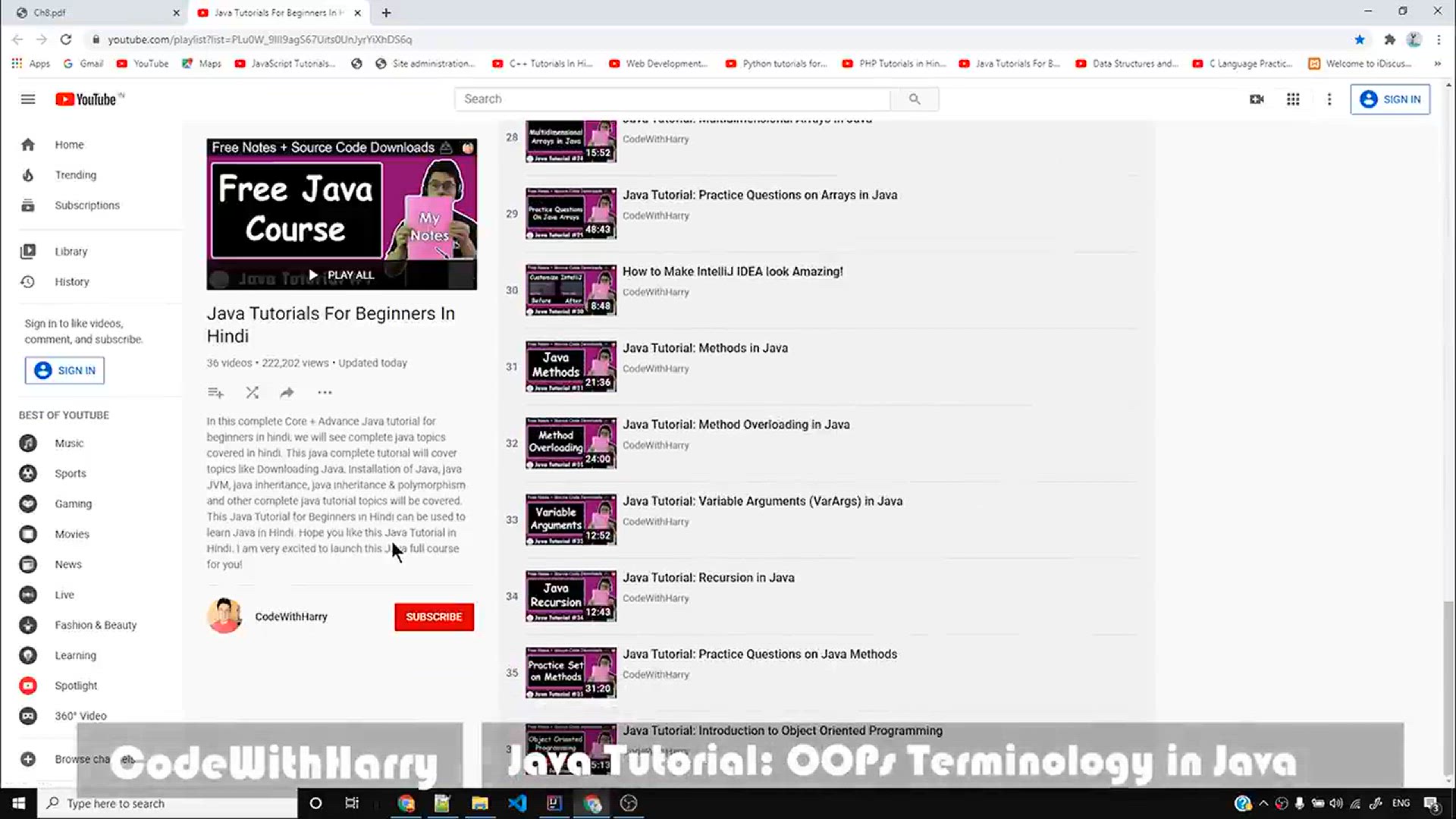
Java Tutorial_ Basic Terminologies in Object Oriented Progra...
279 views · Feb 12, 2024 codehunter.online
The "Java Tutorial: Basic Terminologies in Object-Oriented Programming" video offers an introductory explanation of key terminologies in Object-Oriented Programming (OOP) specific to Java. It covers essential concepts such as classes, objects, inheritance, polymorphism, encapsulation, and abstraction. The video aims to provide viewers with a foundational understanding of these terms, which are fundamental to writing Java programs using an object-oriented approach. Through clear explanations and examples, viewers will gain insight into how these concepts work and how they are used in Java programming. This tutorial serves as a valuable starting point for beginners looking to familiarize themselves with OOP principles in Java.
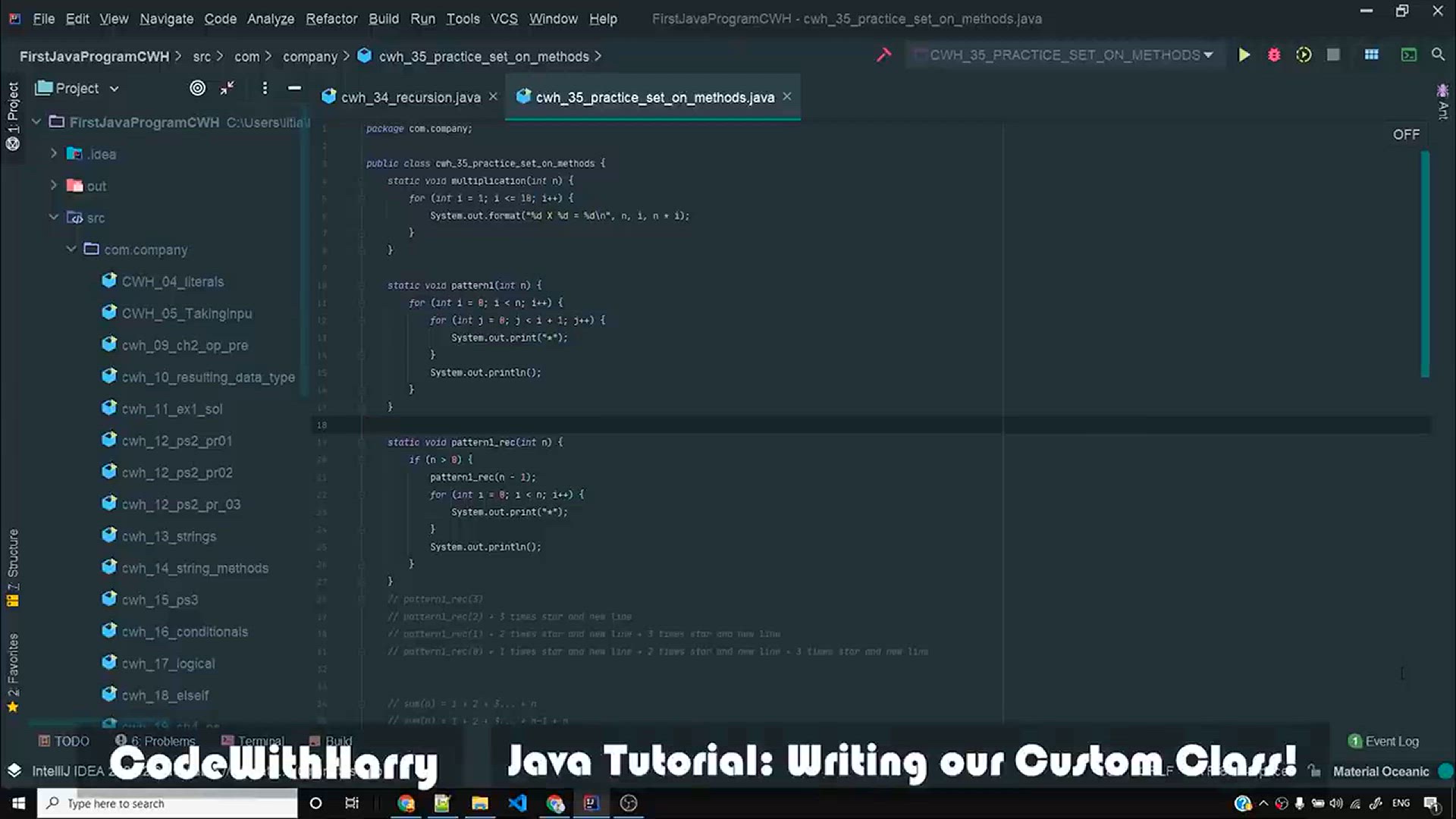
Java Tutorial_ Creating Our Own Java Class
14 views · Feb 12, 2024 codehunter.online
The "Java Tutorial: Creating Our Own Java Class" video is a beginner-friendly tutorial that walks viewers through the process of creating custom Java classes. It covers the essential steps involved in defining a class, including choosing a meaningful class name, declaring attributes (fields), and defining methods. The video emphasizes the importance of encapsulation and abstraction in class design, as well as best practices for naming conventions and code organization. Through clear explanations and practical examples, viewers learn how to create their own custom classes in Java, enabling them to structure their code effectively and promote code reusability. This tutorial serves as a foundational resource for beginners looking to understand the basics of class creation in Java programming.
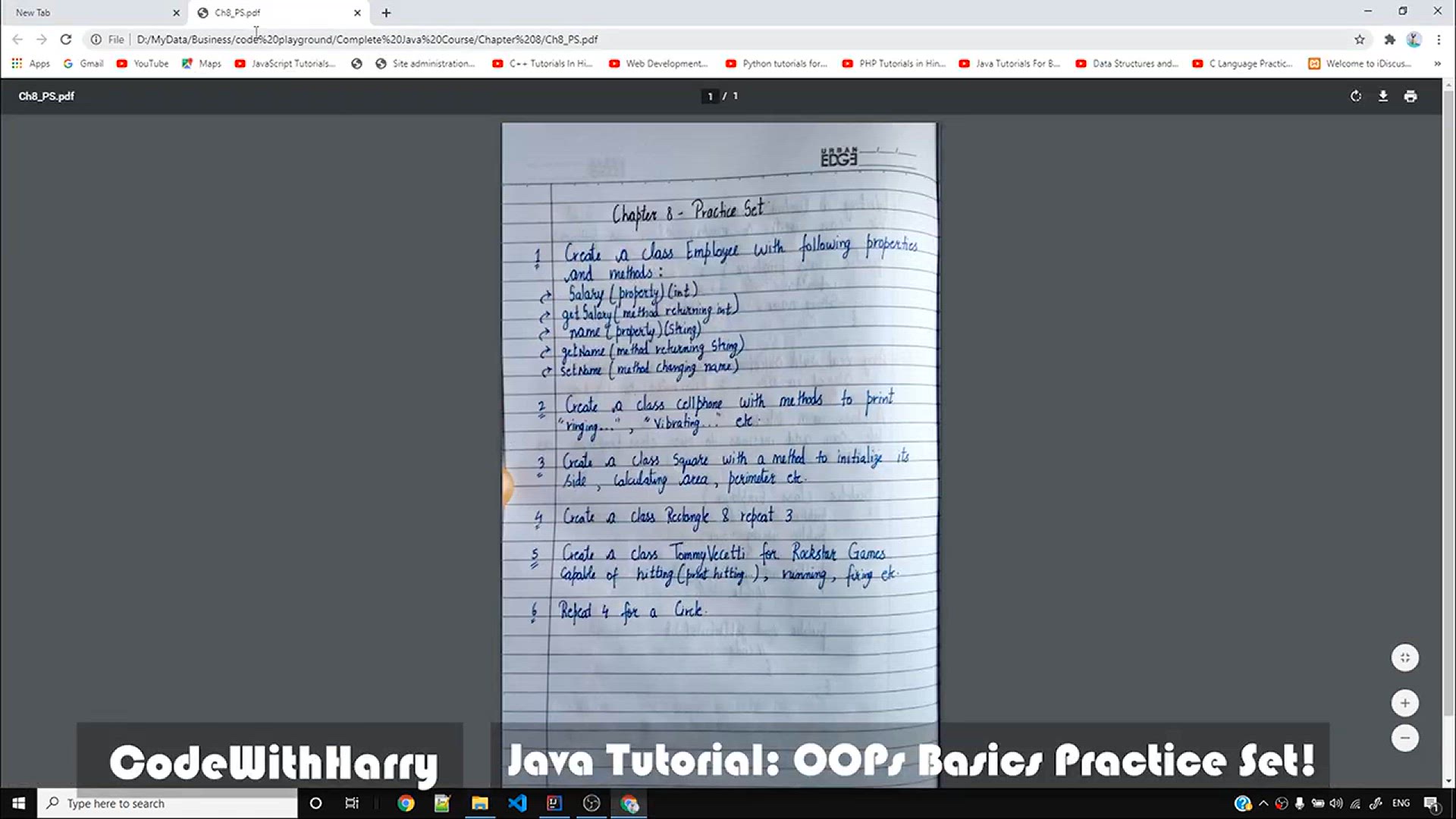
Java Tutorial_ Basic Questions on Object Oriented Programmin...
286 views · Feb 12, 2024 codehunter.online
The "Java Tutorial: Basic Questions on Object-Oriented Programming" video presents a series of fundamental questions aimed at testing viewers' understanding of Object-Oriented Programming (OOP) concepts in Java. These questions cover key topics such as classes, objects, inheritance, polymorphism, encapsulation, and abstraction. By challenging viewers to answer these questions, the video aims to reinforce their comprehension of OOP principles and terminology. Through clear explanations and examples, viewers have the opportunity to deepen their understanding of OOP concepts and enhance their problem-solving skills in Java programming. This resource serves as a valuable tool for learners seeking to solidify their grasp of fundamental OOP concepts in Java.
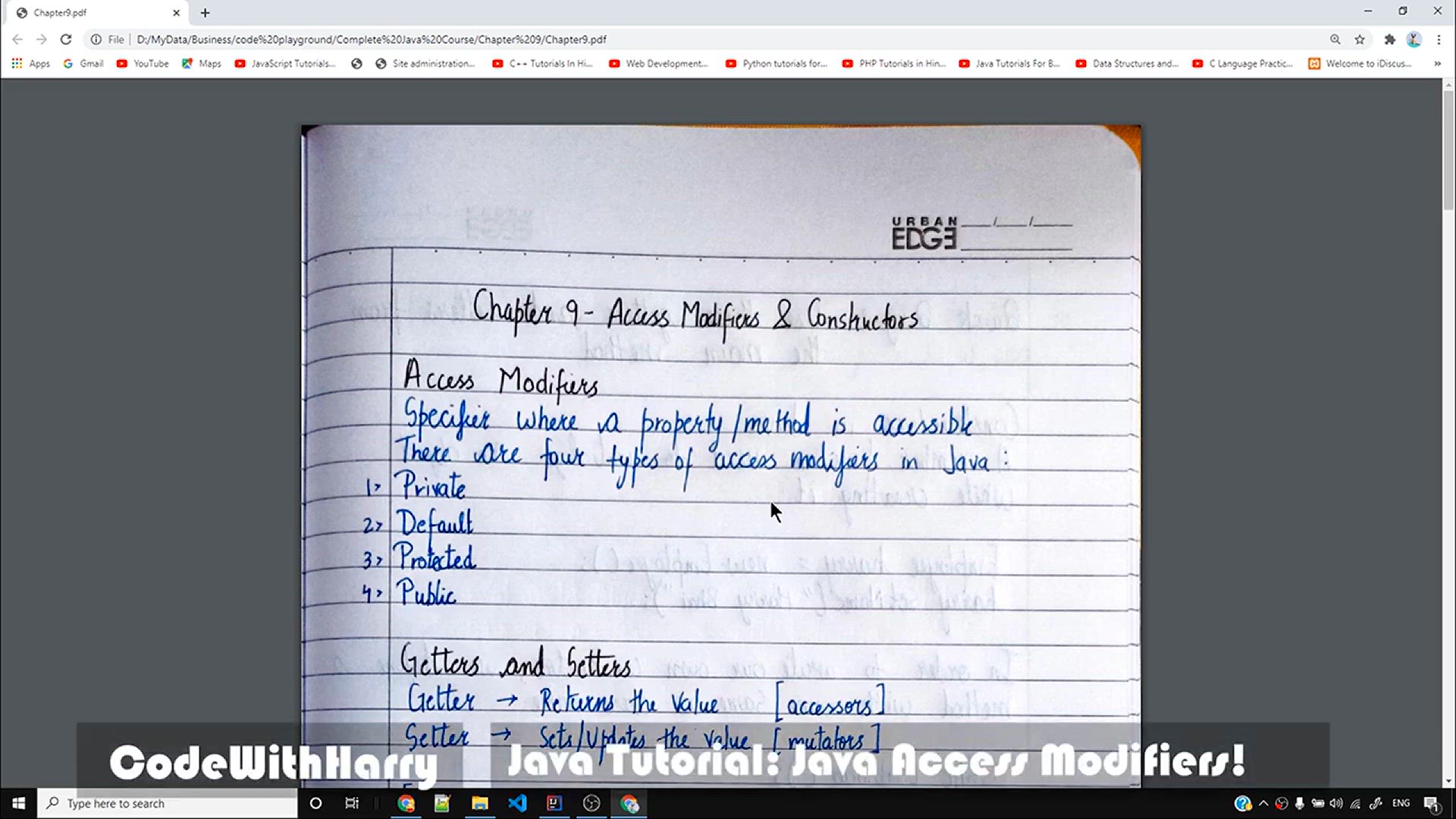
Java Tutorial_ Access modifiers, getters & setters in Ja...
176 views · Feb 12, 2024 codehunter.online
The "Java Tutorial: Access Modifiers, Getters & Setters in Java" video provides a comprehensive overview of access modifiers and the importance of encapsulation in Java programming. It covers how access modifiers such as public, private, protected, and default control the accessibility of classes, variables, and methods within Java programs. Additionally, the video explains the concept of encapsulation and demonstrates how to implement it using getters and setters methods to ensure data integrity and maintainability. Through clear explanations and practical examples, viewers learn how to properly use access modifiers and implement getters and setters to manage data effectively in Java programs. This tutorial serves as a valuable resource for beginners and intermediate learners seeking to enhance their understanding of Java programming principles and best practices.
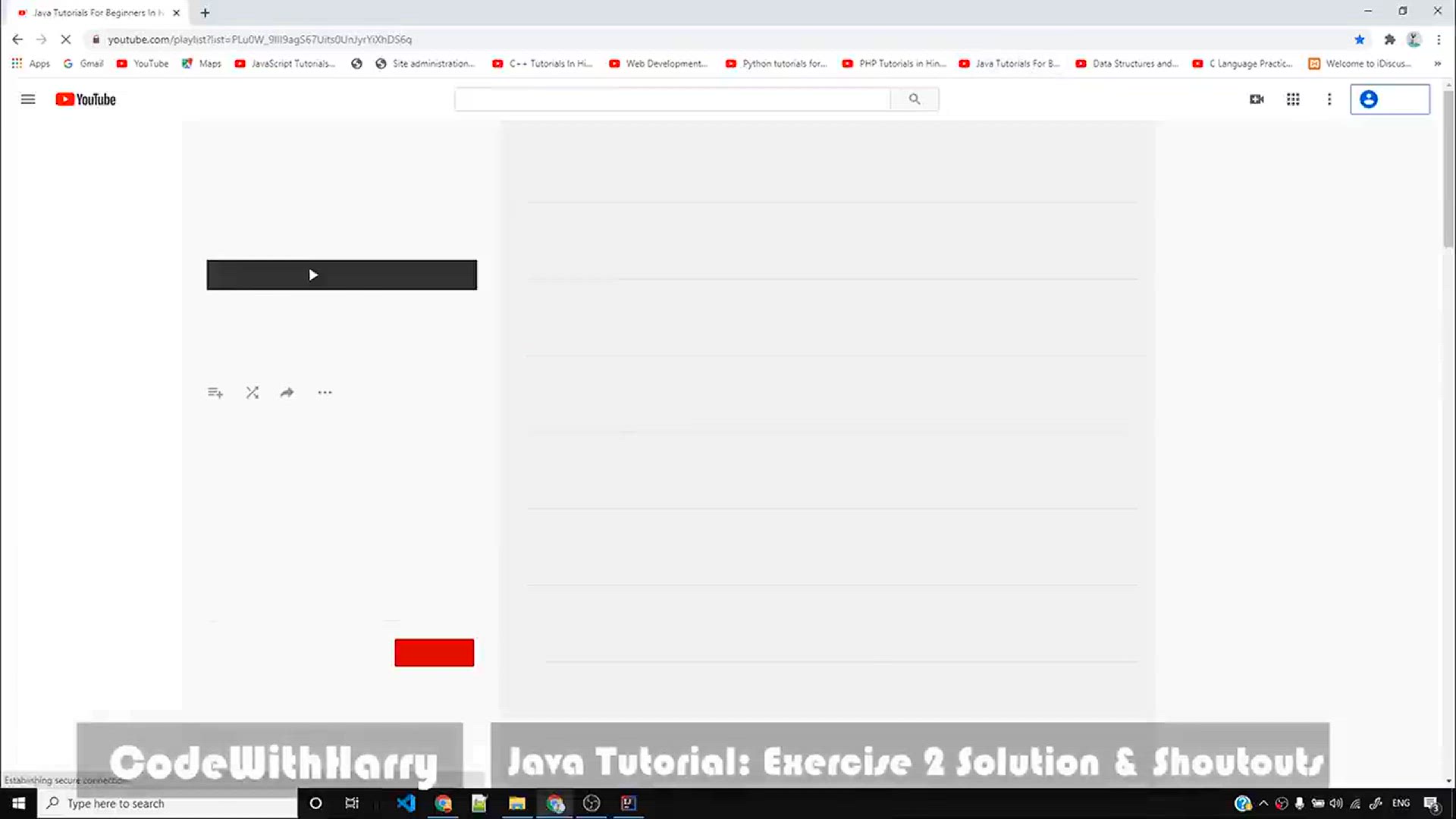
Java Tutorial_ Exercise 2 - Solution and Shoutouts
10 views · Feb 12, 2024 codehunter.online
The "Java Tutorial: Exercise 2 - Solution and Shoutouts" video offers solutions to exercises presented in a previous tutorial session, alongside acknowledgments for viewer contributions or participation, referred to as shoutouts. In this video, the instructor provides step-by-step explanations for solving the exercise problems, demonstrating coding techniques and concepts covered in the tutorial series. Additionally, the video recognizes and appreciates viewer engagement by highlighting comments, suggestions, or code contributions from the audience. Through this interactive format, viewers not only receive guidance on problem-solving but also feel motivated and engaged within the tutorial community. This video serves as a helpful resource for learners looking to validate their understanding of Java programming concepts while fostering a sense of community involvement.
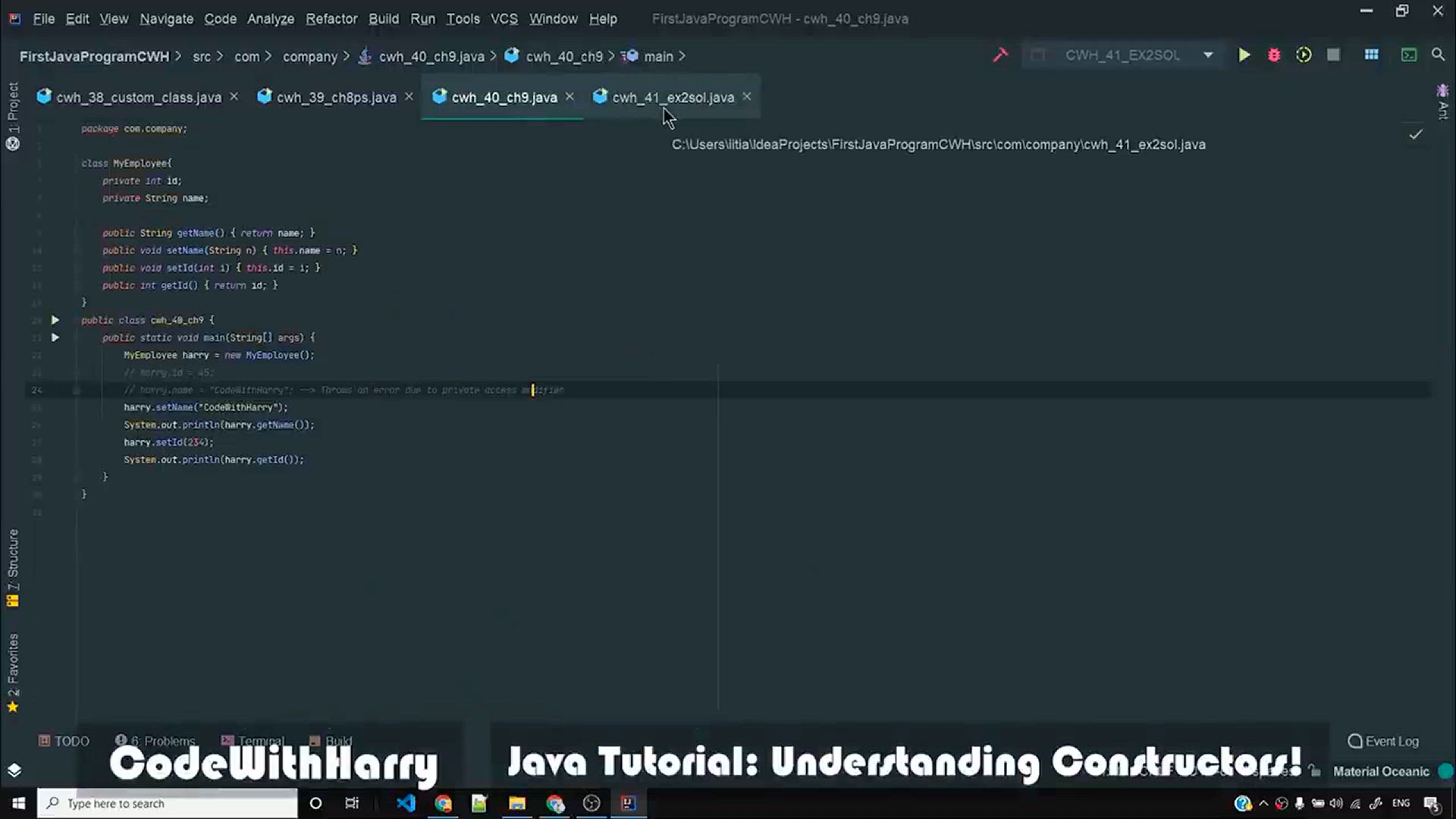
Java Tutorial_ Constructors in Java
6 views · Feb 12, 2024 codehunter.online
The "Java Tutorial: Constructors in Java" video serves as a comprehensive guide to constructors, a key aspect of object-oriented programming in Java. It covers the purpose and functionality of constructors, which are special methods used to initialize objects when they are created. The video explains the syntax for defining constructors, including parameterized constructors and default constructors. Additionally, it explores the role of constructors in class instantiation and object initialization, highlighting their importance in setting initial values for object attributes. Through clear explanations and practical examples, viewers learn how to create and use constructors effectively in Java programming to ensure proper object initialization and facilitate code reusability. This tutorial serves as a valuable resource for beginners and intermediate learners seeking to deepen their understanding of constructors in Java.
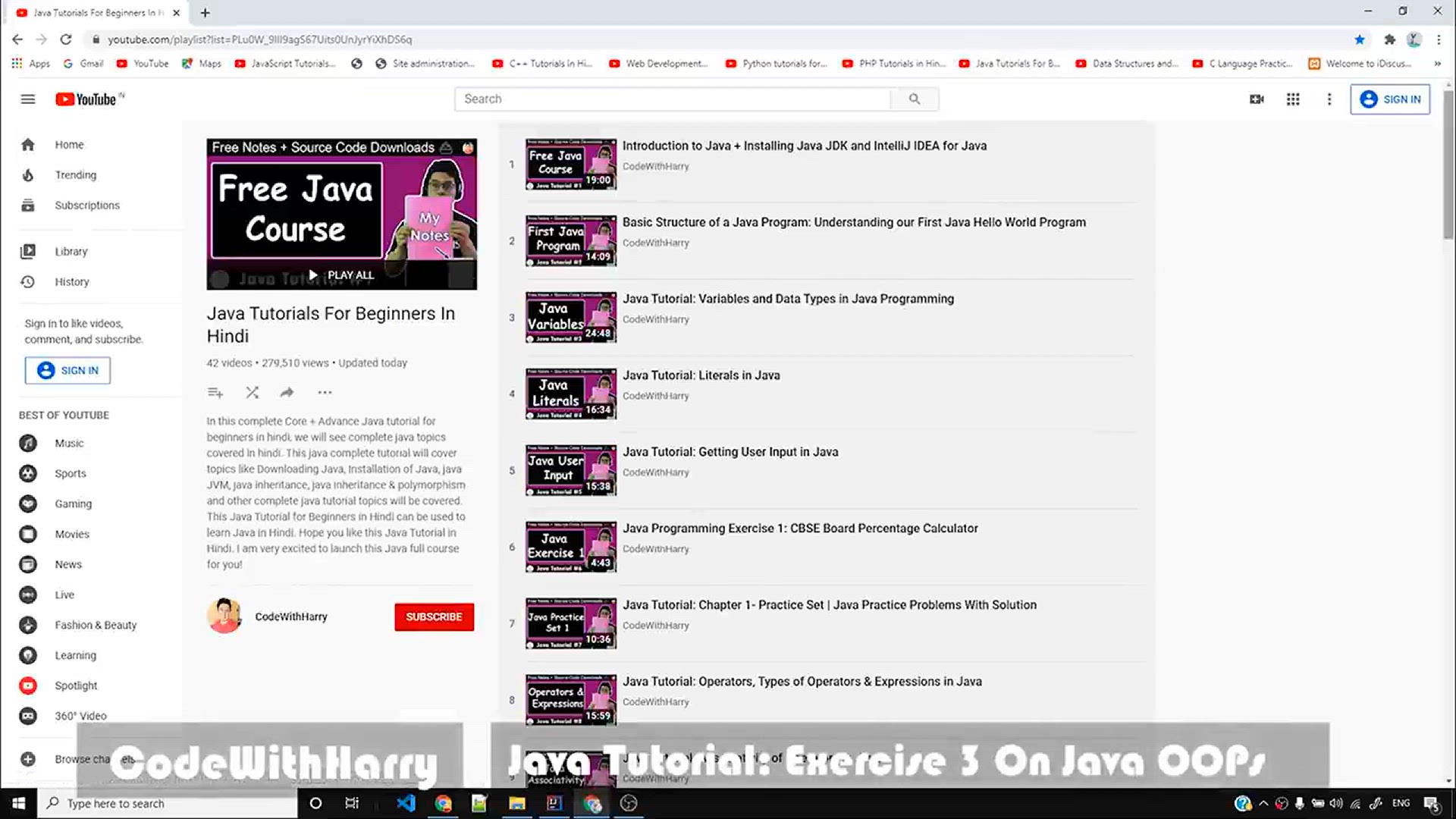
Java Exercise 3_ Guess the Number (OOPs Edition)
38 views · Feb 12, 2024 codehunter.online
The "Java Exercise 3: Guess the Number (OOPs Edition)" video presents a programming exercise focused on implementing the classic "Guess the Number" game using Object-Oriented Programming (OOP) principles in Java. In this exercise, viewers are tasked with designing and coding a Java program that allows a user to guess a randomly generated number within a specified range. The exercise encourages the application of OOP concepts such as classes, objects, methods, and encapsulation to create a modular and maintainable solution. By following the instructions and guidelines provided in the video, viewers can practice their Java programming skills while enhancing their understanding of OOP principles in action. This exercise serves as an engaging opportunity for learners to apply their knowledge and creativity to solve a real-world programming challenge.
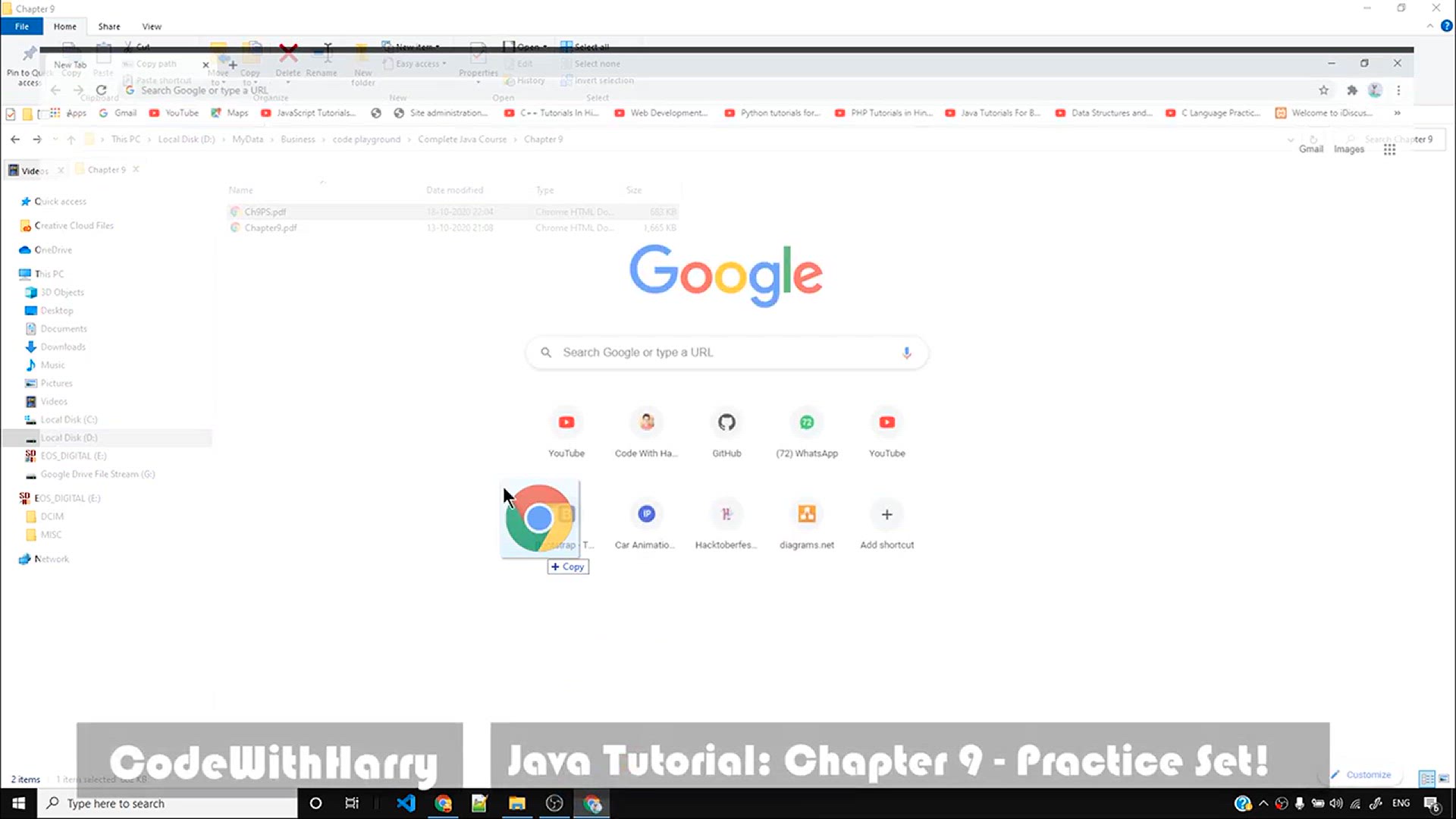
Java Tutorial_ Exercise on Access Modifiers and Constructors
12K views · Feb 12, 2024 codehunter.online
The "Java Tutorial: Exercise on Access Modifiers and Constructors" video presents a programming exercise aimed at reinforcing understanding and proficiency in working with access modifiers and constructors in Java. Viewers are provided with a set of exercises that challenge them to apply concepts related to access modifiers (public, private, protected, and default) and constructors (including parameterized constructors) in Java classes. By actively engaging with the exercise prompts, viewers have the opportunity to practice their coding skills and deepen their understanding of how access modifiers and constructors work in Java programming. This resource serves as a valuable tool for learners seeking to solidify their grasp of these fundamental Java concepts through hands-on practice and problem-solving.
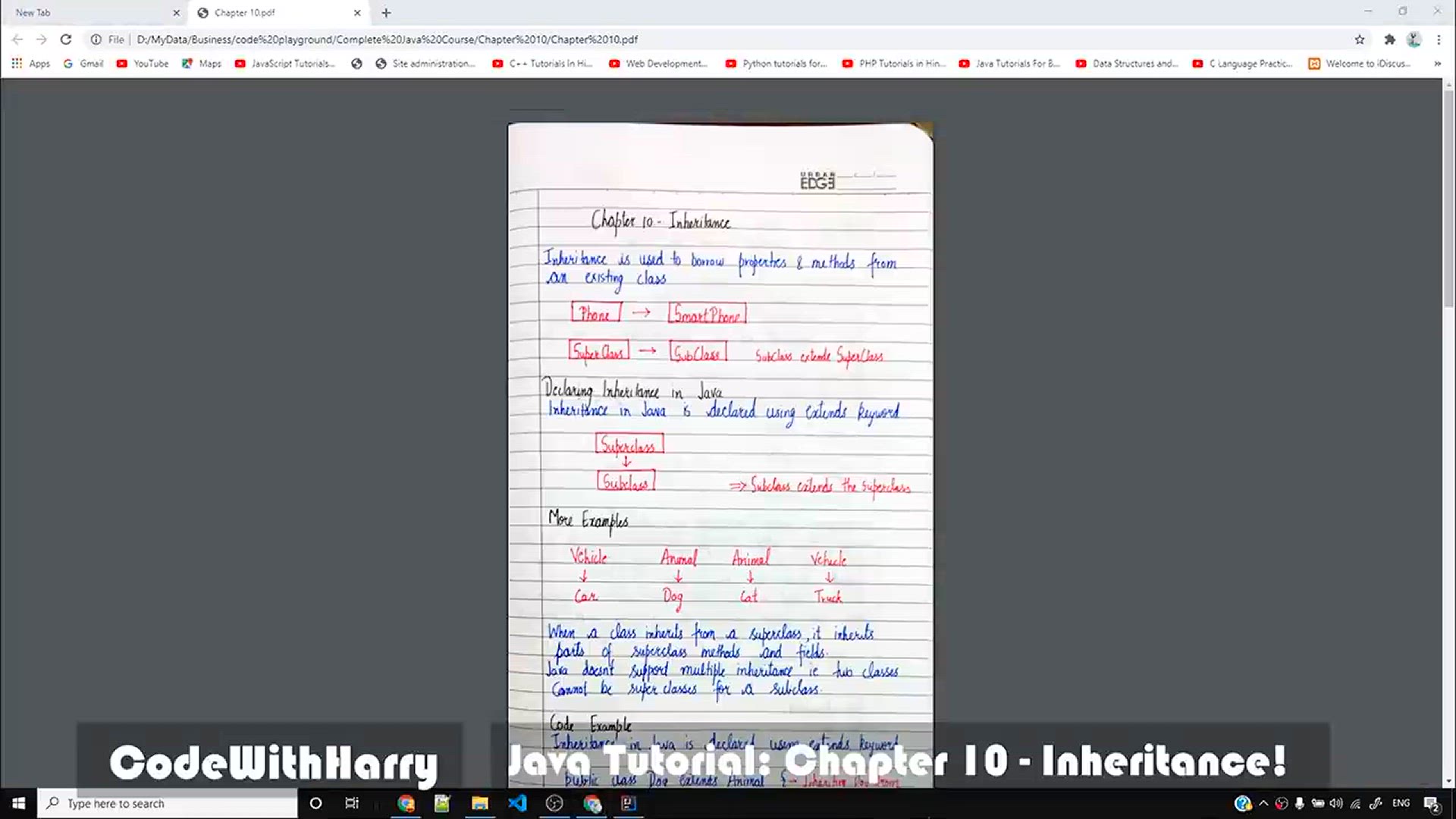
Inheritance in Java
6K views · Feb 12, 2024 codehunter.online
The "Inheritance in Java" video offers a comprehensive explanation of the concept of inheritance, a fundamental principle in object-oriented programming (OOP) and Java specifically. It covers how inheritance allows classes to inherit attributes and behaviors from other classes, promoting code reuse and facilitating the creation of hierarchies among objects. The video delves into various aspects of inheritance, including superclass, subclass, method overriding, access modifiers, and the "super" keyword. Through clear explanations and practical examples, viewers learn how to effectively implement inheritance in Java programming to enhance code organization, flexibility, and maintainability. This tutorial serves as a valuable resource for beginners and intermediate learners seeking to deepen their understanding of inheritance and its application in Java programming.
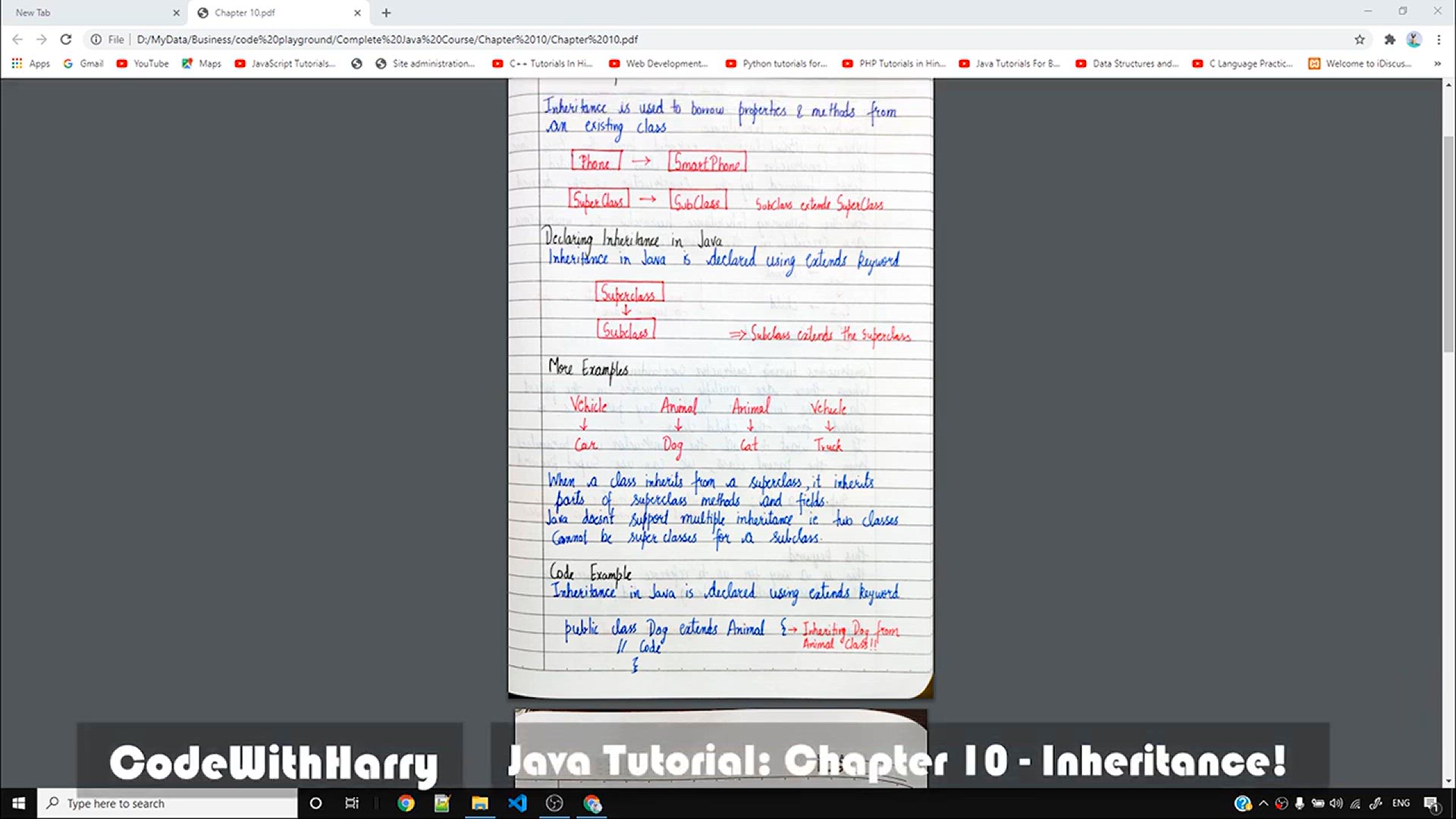
Constructors in Inheritance in Java
152 views · Feb 12, 2024 codehunter.online
The "Constructors in Inheritance in Java" video provides an in-depth explanation of how constructors work in the context of inheritance, a fundamental concept in Java programming. It covers how constructors are inherited from superclass to subclass and how they are invoked during the creation of subclass objects. The video explores various scenarios and rules regarding constructors in inheritance, including constructor chaining, superclass constructor invocation, and default constructors. Through clear explanations and practical examples, viewers learn how to effectively manage constructors in inheritance hierarchies in Java programming, ensuring proper object initialization and facilitating code reuse. This tutorial serves as a valuable resource for learners seeking to deepen their understanding of constructors and inheritance interactions in Java.
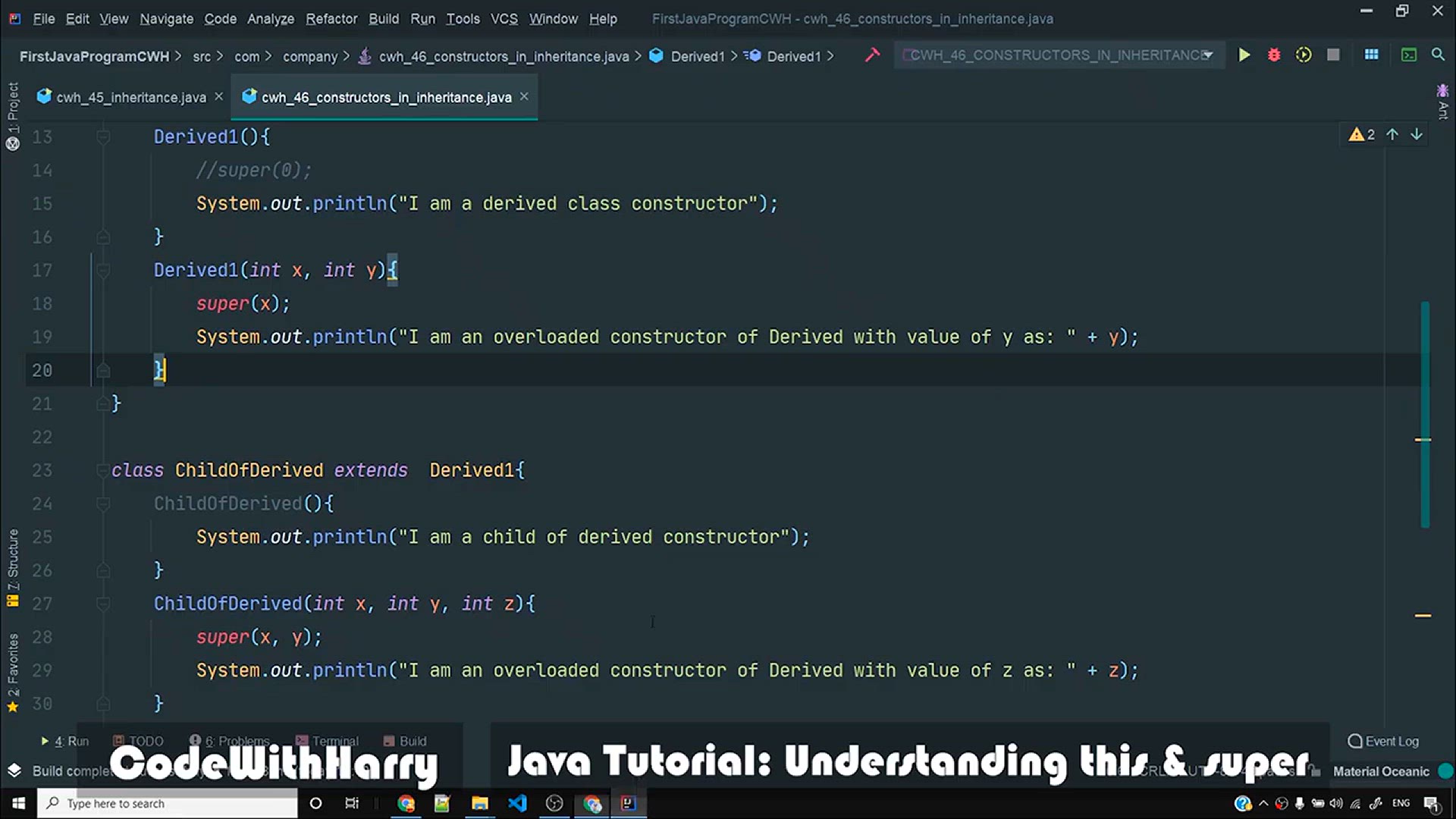
this and super keyword in Java
11 views · Feb 12, 2024 codehunter.online
The "this and super keyword in Java" video provides a comprehensive explanation of the "this" and "super" keywords in Java programming. It covers how "this" refers to the current instance of a class and can be used to access instance variables and methods within the same class. Additionally, it explains how the "super" keyword refers to the superclass of the current instance and can be used to access superclass members and constructors. Through clear explanations and practical examples, viewers learn how to effectively utilize "this" and "super" keywords to resolve naming conflicts, access superclass members, and call superclass constructors in Java programming. This tutorial serves as a valuable resource for beginners and intermediate learners seeking to understand the nuances of these keywords and their applications in Java programming.
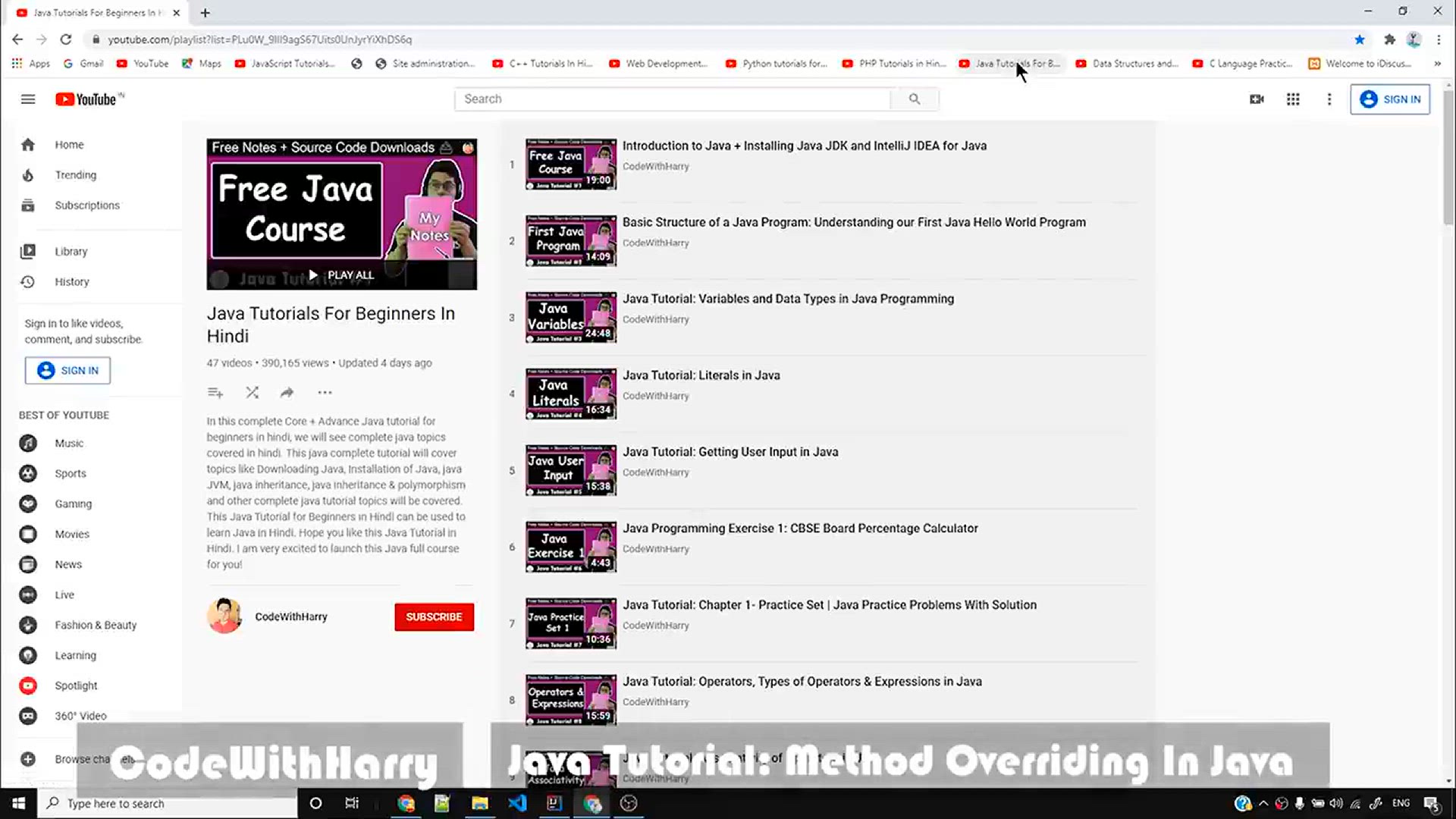
Method Overriding in Java
47 views · Feb 12, 2024 codehunter.online
The "Method Overriding in Java" video offers a comprehensive explanation of method overriding, a crucial concept in Java programming. It covers how method overriding allows a subclass to provide a specific implementation of a method that is already defined in its superclass. The video explores the syntax and rules governing method overriding, including method signature, access modifiers, return types, and exceptions. Through clear explanations and practical examples, viewers learn how to effectively override methods to customize behavior and achieve polymorphism in Java programs. This tutorial serves as a valuable resource for learners seeking to deepen their understanding of method overriding and its role in building flexible and extensible Java applications.
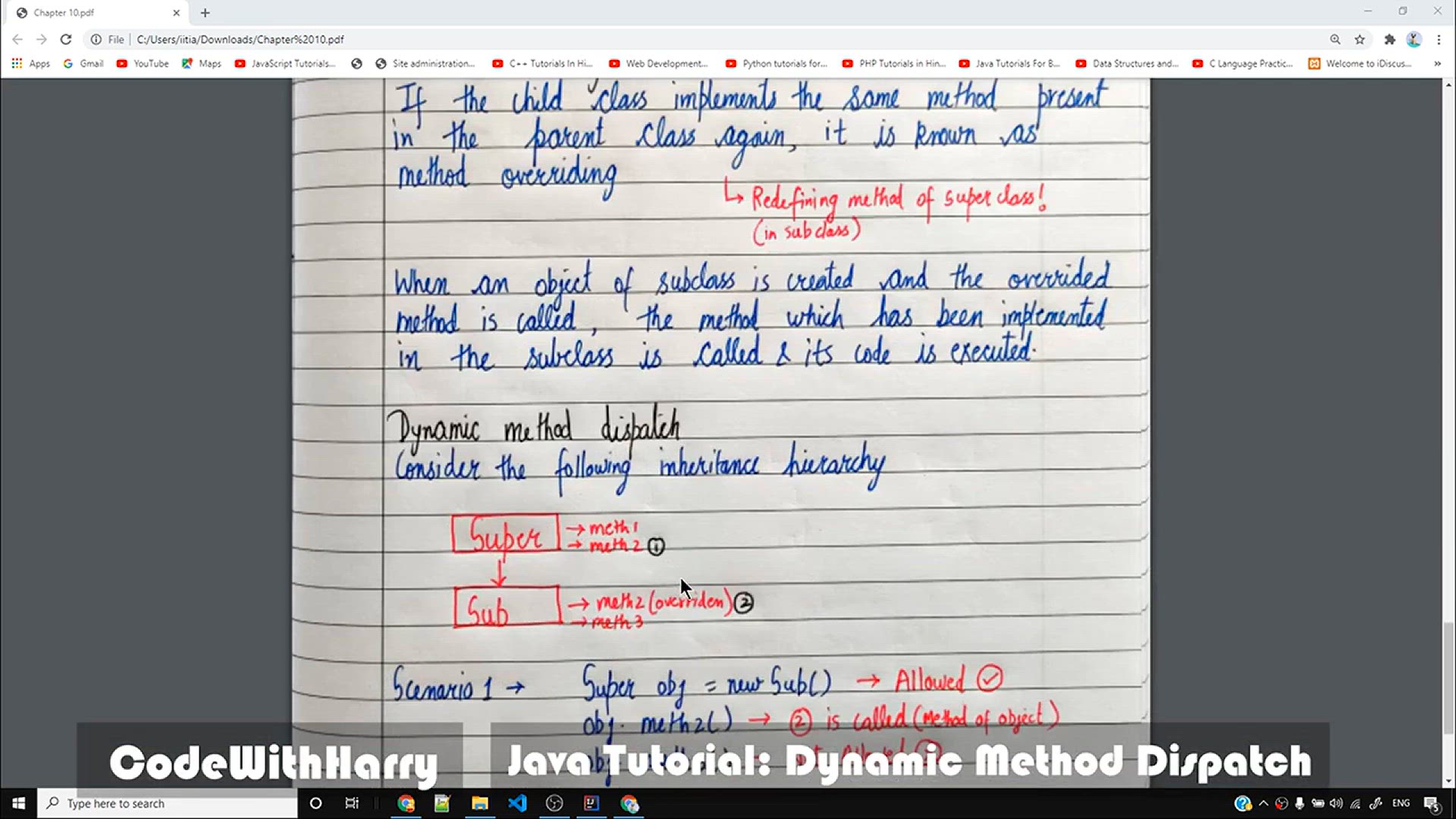
Dynamic Method Dispatch in Java
22 views · Feb 12, 2024 codehunter.online
The "Dynamic Method Dispatch in Java" video provides an in-depth explanation of dynamic method dispatch, an essential concept in Java programming for achieving runtime polymorphism. It covers how dynamic method dispatch allows a superclass reference variable to refer to a subclass object and invoke overridden methods based on the actual object type at runtime. The video explores how this mechanism enables flexibility and extensibility in object-oriented design by facilitating method calls based on the object's actual type rather than the reference type. Through clear explanations and practical examples, viewers learn how dynamic method dispatch works and how to leverage it effectively to write more flexible and maintainable Java code. This tutorial serves as a valuable resource for learners seeking to understand the principles of polymorphism and runtime behavior in Java programming.
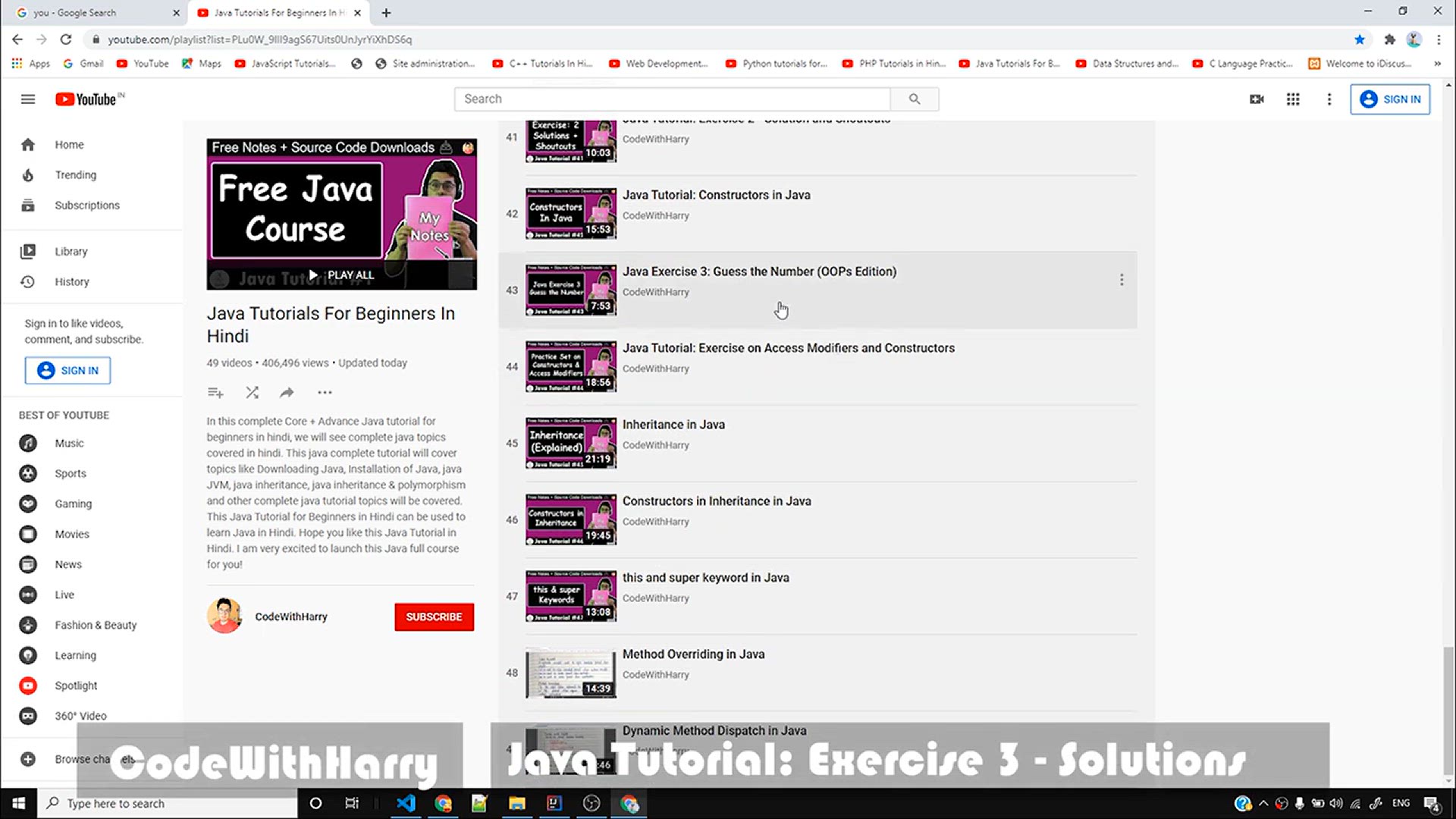
Java Tutorial_ Exercise 3 - Solutions & Shoutouts
33 views · Feb 12, 2024 codehunter.online
The "Java Tutorial: Exercise 3 - Solutions & Shoutouts" video offers comprehensive solutions to the exercises presented in a previous tutorial session, alongside acknowledgments for viewer contributions or participation, referred to as shoutouts. In this video, the instructor provides step-by-step explanations for solving the exercise problems, demonstrating coding techniques and concepts covered in the tutorial series. Additionally, the video recognizes and appreciates viewer engagement by highlighting comments, suggestions, or code contributions from the audience. Through this interactive format, viewers not only receive guidance on problem-solving but also feel motivated and engaged within the tutorial community. This video serves as a helpful resource for learners looking to validate their understanding of Java programming concepts while fostering a sense of community involvement.
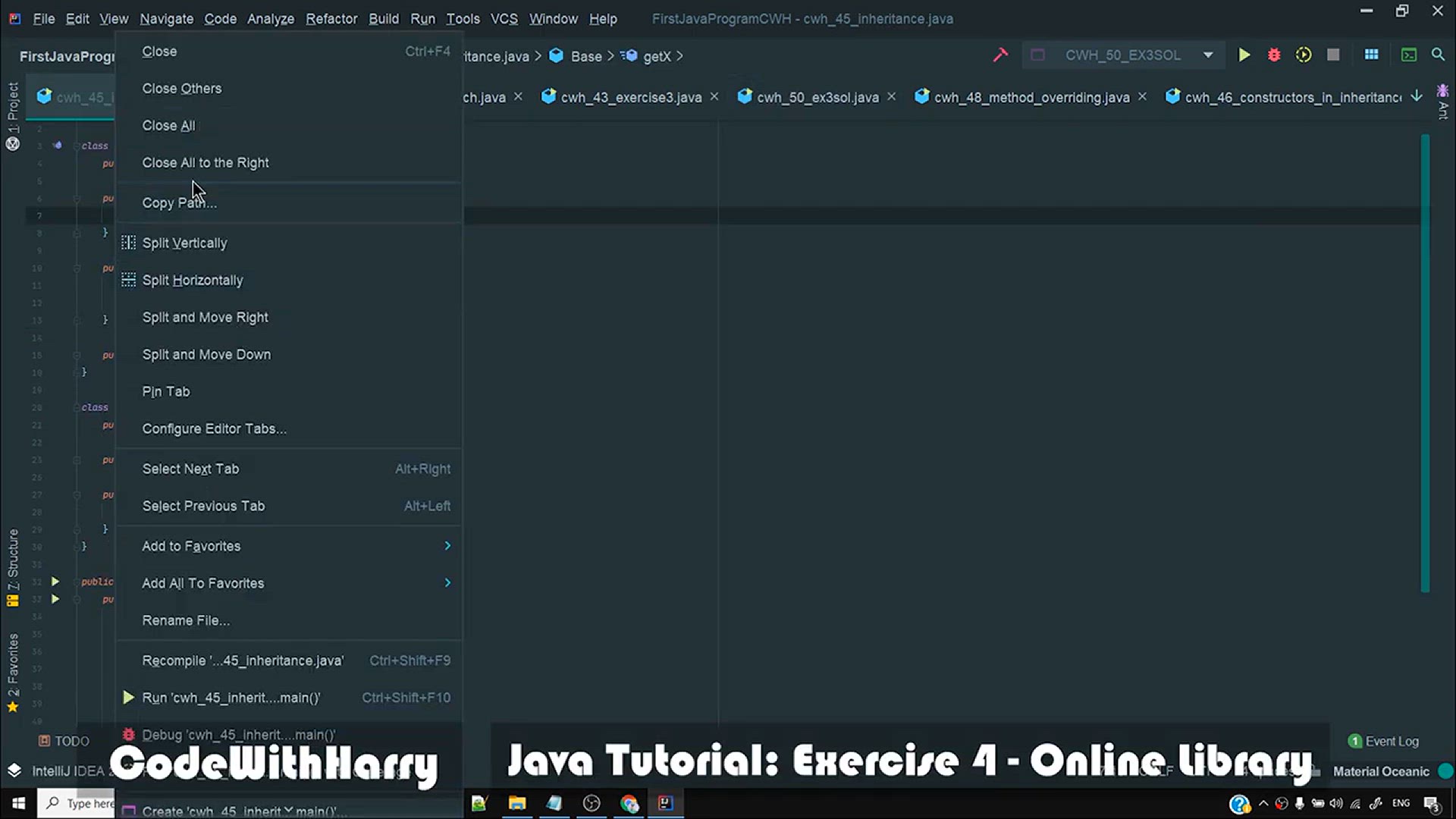
Java Tutorial_ Exercise 4 - Online Library
17K views · Feb 12, 2024 codehunter.online
The "Java Tutorial: Exercise 4 - Online Library" video introduces a programming exercise centered around developing an online library system using Java. In this exercise, viewers are tasked with designing and implementing various features of an online library, such as adding books, searching for books, checking out and returning books, and managing user accounts. The exercise encourages the application of object-oriented programming (OOP) principles, including classes, objects, inheritance, polymorphism, encapsulation, and abstraction, to create a modular and maintainable solution. By following the instructions provided in the video, viewers can practice their Java programming skills while enhancing their understanding of OOP concepts and their application in real-world scenarios. This exercise serves as an engaging opportunity for learners to apply their knowledge and creativity to solve a practical programming challenge in Java.
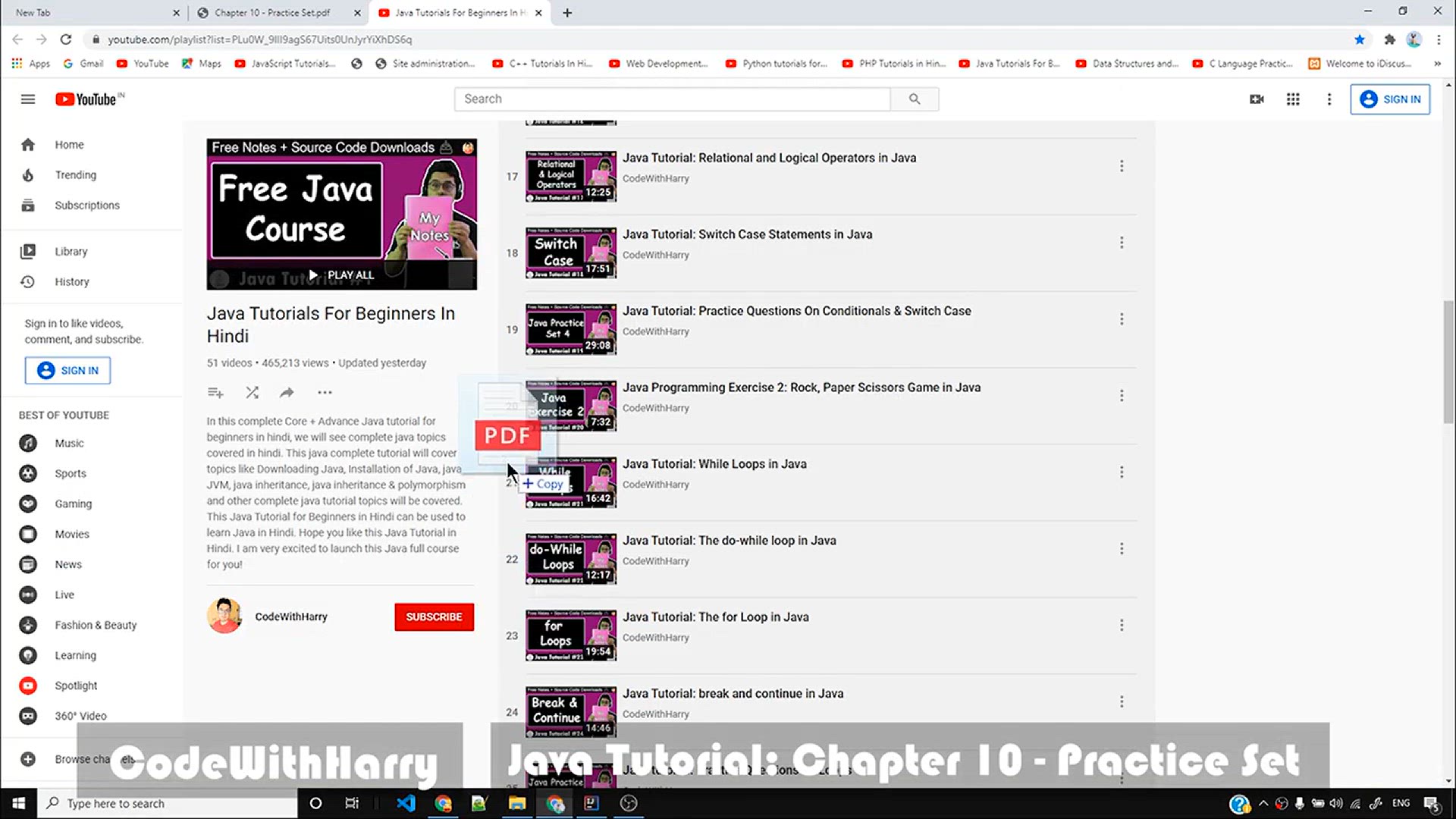
Java Tutorial_ Exercise & Practice Questions on Inherita...
0 views · Feb 12, 2024 codehunter.online
The "Java Tutorial: Exercise & Practice Questions on Inheritance" video presents a series of exercises and practice questions focused on reinforcing understanding and proficiency in working with inheritance in Java programming. These exercises cover various aspects of inheritance, including superclass-subclass relationships, method overriding, access modifiers, constructors, and dynamic method dispatch. By challenging viewers to solve these exercises independently, the video aims to enhance problem-solving skills and deepen comprehension of inheritance-related concepts in Java programming. This resource serves as a valuable tool for learners seeking to solidify their grasp of inheritance and its usage in Java programming through hands-on practice and problem-solving.
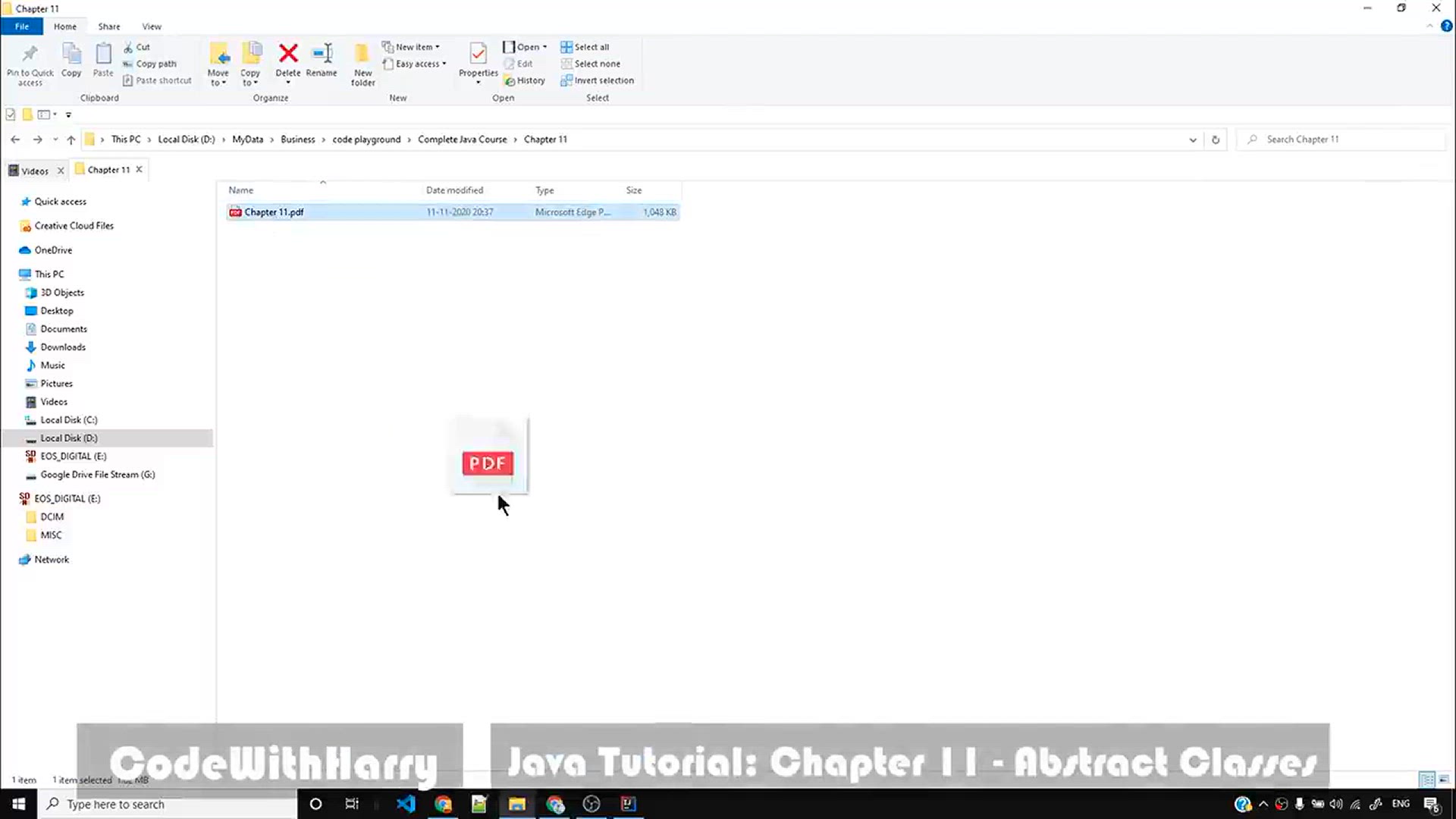
Java Tutorial_ Abstract Class & Abstract Methods
14K views · Feb 12, 2024 codehunter.online
The "Java Tutorial: Abstract Class & Abstract Methods" video provides a comprehensive explanation of abstract classes and abstract methods in Java programming. It covers how abstract classes serve as blueprints for other classes, allowing them to define common behavior and characteristics while leaving specific implementations to their subclasses. The video explains the syntax and usage of abstract classes and methods, highlighting their role in promoting code reusability and providing a framework for polymorphic behavior. Through clear explanations and practical examples, viewers learn how to effectively design and implement abstract classes and methods in Java programming to create flexible and extensible class hierarchies. This tutorial serves as a valuable resource for learners seeking to understand the principles of abstraction and inheritance in Java programming.
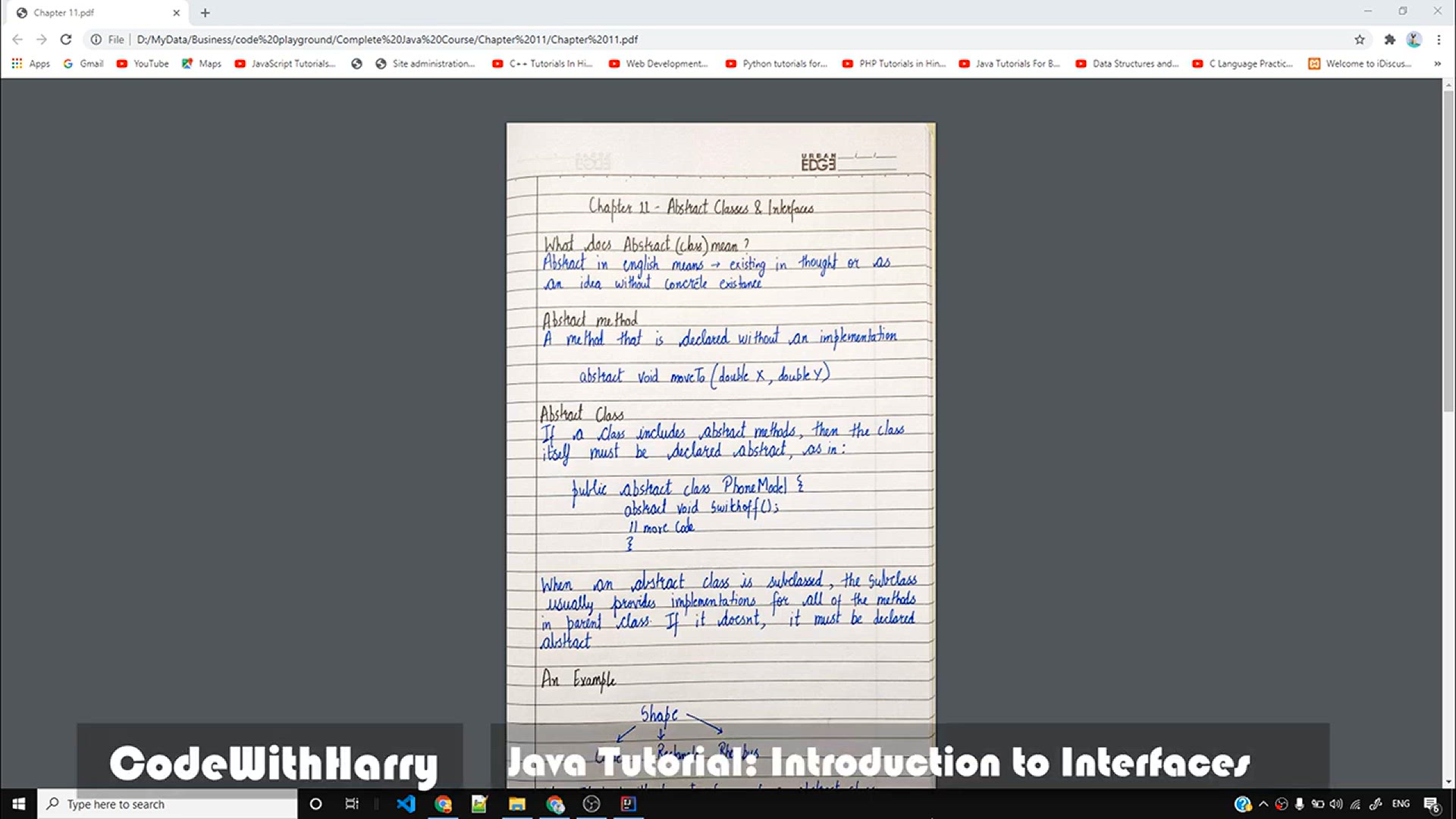
Java Tutorial_ Introduction to Interfaces
5K views · Feb 12, 2024 codehunter.online
The "Java Tutorial: Introduction to Interfaces" video provides an introductory overview of interfaces in Java programming. It covers how interfaces define a contract of methods that classes implementing the interface must adhere to, allowing for the specification of behavior without providing implementation details. The video explains the syntax and usage of interfaces, highlighting their role in achieving polymorphism and facilitating loose coupling between classes. Through clear explanations and practical examples, viewers learn how to effectively use interfaces to define common behaviors and achieve code reusability in Java programming. This tutorial serves as a foundational resource for learners seeking to understand the principles of interfaces and their applications in Java programming.
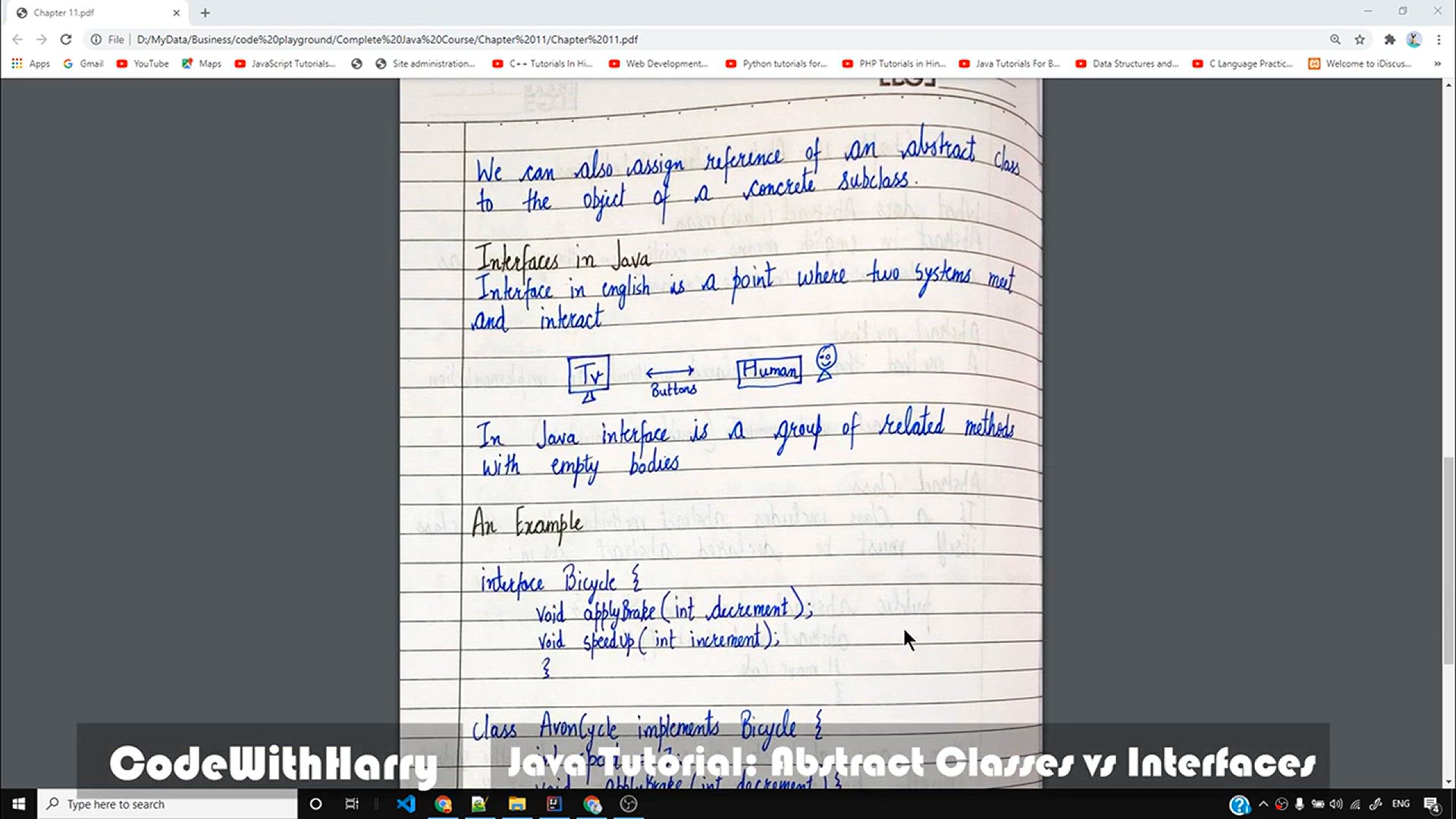
Java Tutorial_ Abstract Classes Vs Interfaces
22K views · Feb 12, 2024 codehunter.online
The "Java Tutorial: Abstract Classes Vs Interfaces" video offers a comparative analysis between abstract classes and interfaces in Java programming. It covers the key similarities and differences between the two concepts, highlighting their respective use cases and advantages. The video discusses how abstract classes provide a partial implementation of methods and allow for code reuse through inheritance, while interfaces define a contract for classes to implement without providing any implementation details. Through clear explanations and practical examples, viewers learn when to use abstract classes versus interfaces based on their specific requirements and design goals in Java programming. This tutorial serves as a valuable resource for learners seeking to understand the distinctions between abstract classes and interfaces and how to effectively utilize each in Java programming.
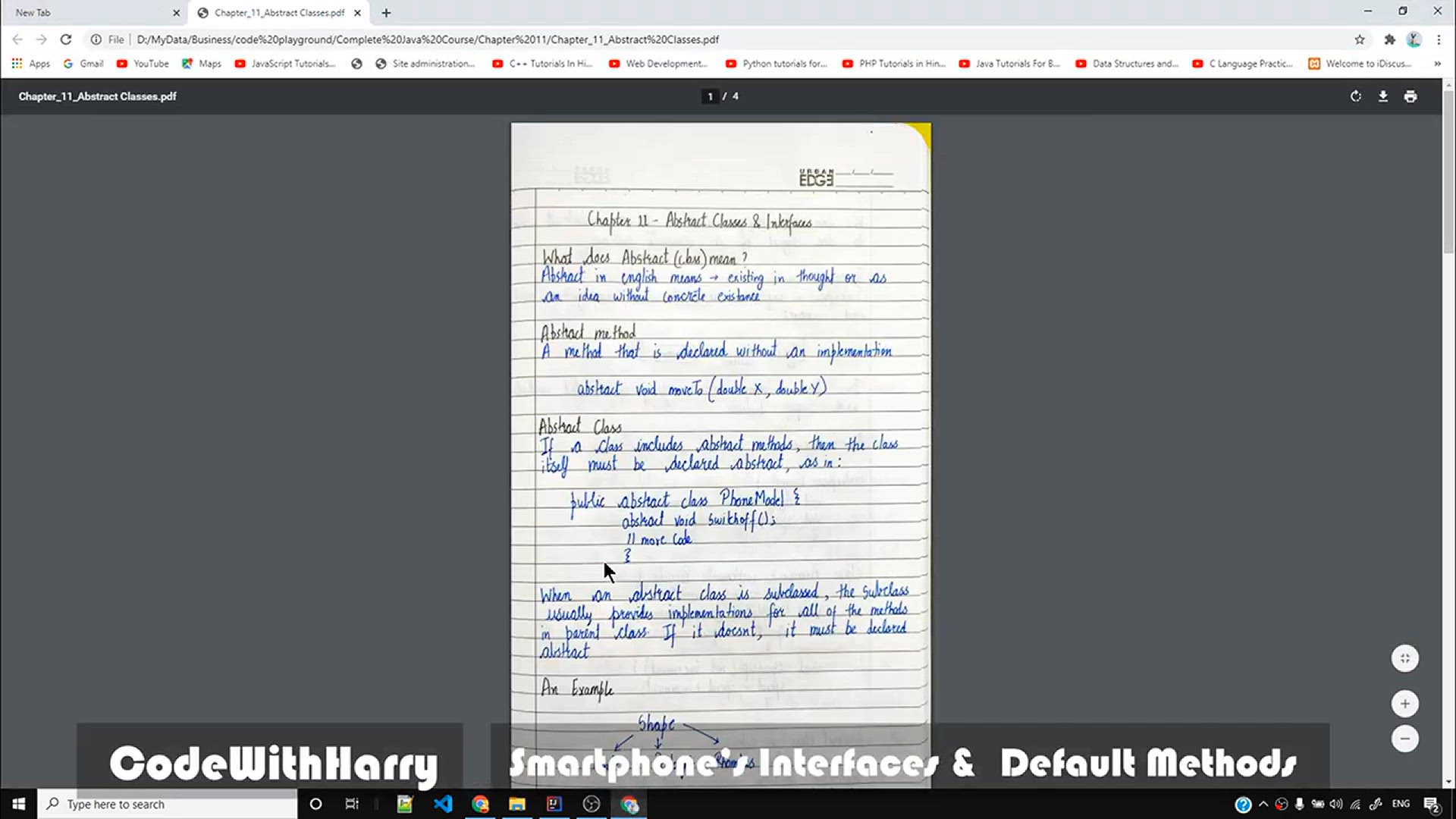
Java Interfaces Example & Default Methods
7K views · Feb 12, 2024 codehunter.online
The "Java Interfaces Example & Default Methods" video provides a practical demonstration of using interfaces in Java programming, specifically focusing on default methods. It covers how interfaces can declare methods that have a default implementation, allowing for backward compatibility and easier evolution of interfaces without breaking existing implementations. The video showcases examples of defining interfaces with default methods and how they can be utilized in class implementations. Through clear explanations and practical examples, viewers learn how to leverage default methods in interfaces to enhance code modularity and flexibility in Java programming. This tutorial serves as a valuable resource for learners seeking to understand how to effectively use interfaces and default methods in their Java projects.
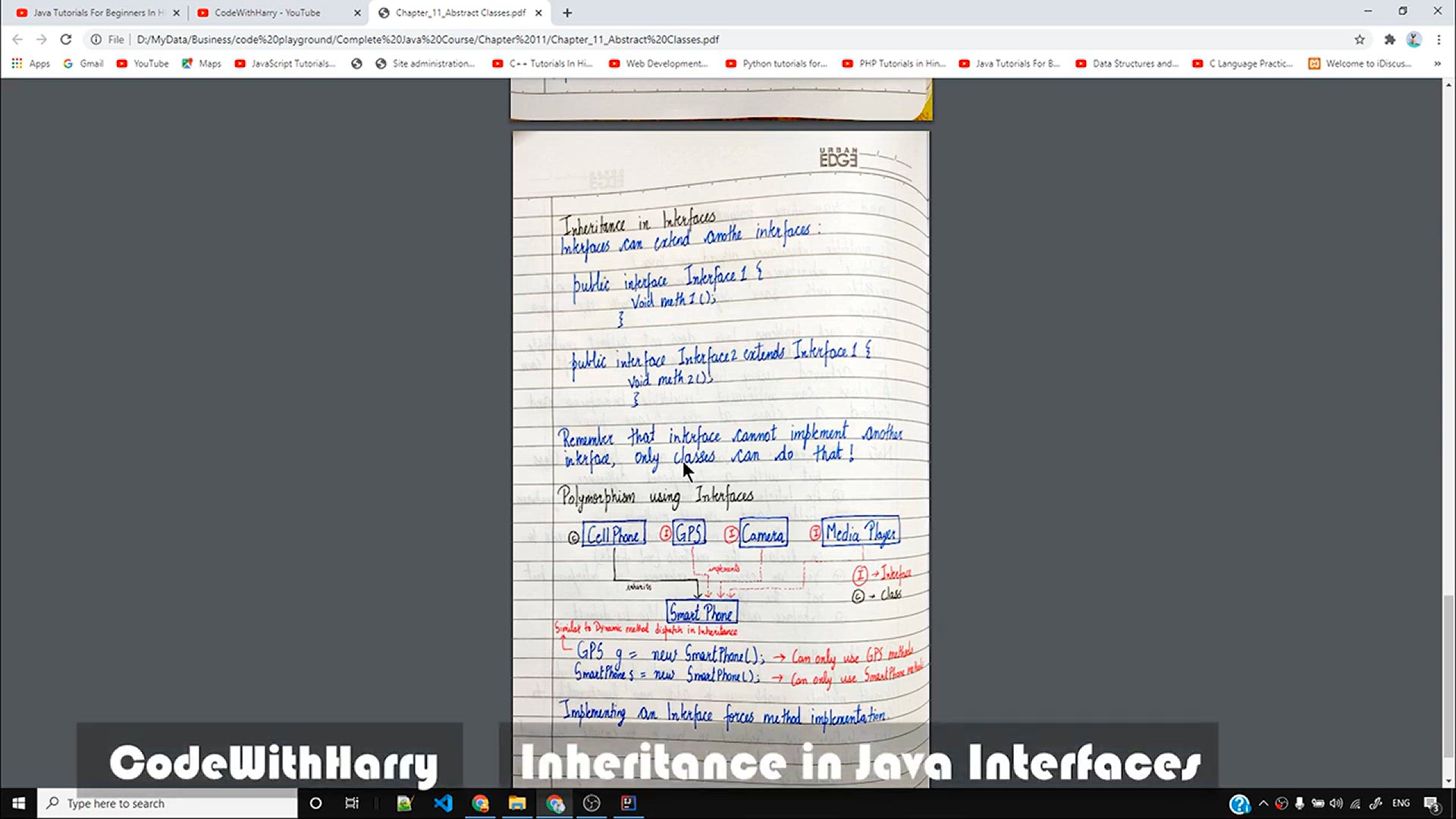
Inheritance in Interfaces
70 views · Feb 12, 2024 codehunter.online
The "Inheritance in Interfaces" video elucidates the concept of inheritance within interfaces in Java programming. It explores how interfaces can extend other interfaces, inheriting their method signatures and constants. The video demonstrates how this inheritance mechanism allows for the establishment of hierarchies of interfaces, promoting code reusability and polymorphism. Through clear explanations and practical examples, viewers gain insight into how inheritance in interfaces facilitates the organization and abstraction of code in Java programs. This tutorial serves as a valuable resource for learners seeking to deepen their understanding of interface inheritance and its application in Java programming.
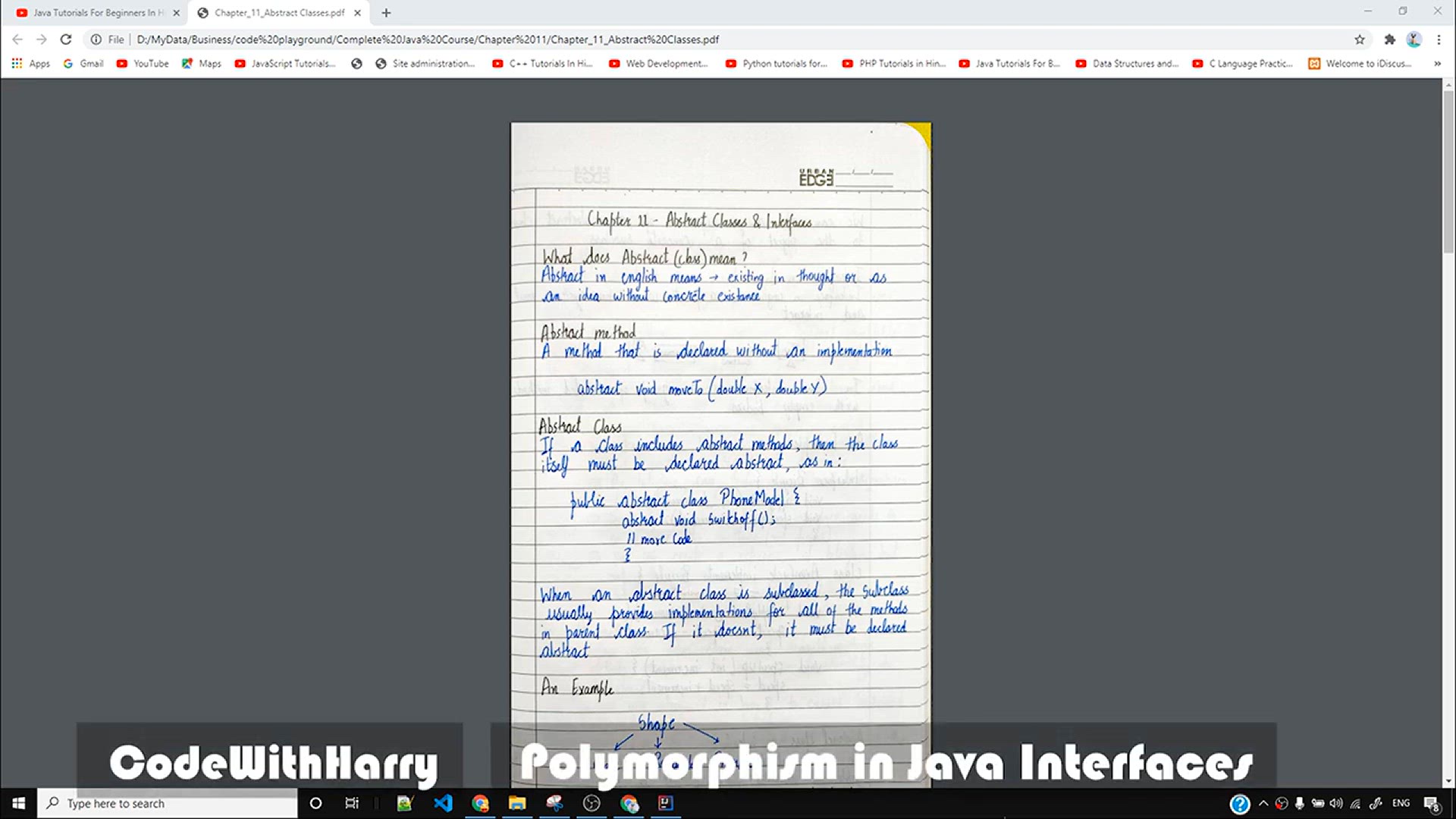
Java Tutorial_ Polymorphism in Interfaces
21K views · Feb 12, 2024 codehunter.online
The "Java Tutorial: Polymorphism in Interfaces" video delves into the concept of polymorphism within interfaces in Java programming. It explains how interfaces can enable polymorphic behavior by allowing multiple classes to implement the same interface and provide their own implementations for its methods. The video demonstrates how this polymorphic capability allows for flexibility and extensibility in Java programs, enabling code to work with objects of different types through a common interface. Through clear explanations and practical examples, viewers learn how to leverage polymorphism in interfaces to write more modular, flexible, and maintainable Java code. This tutorial serves as a valuable resource for learners seeking to understand the principles of polymorphism and its application in interface-based programming in Java.
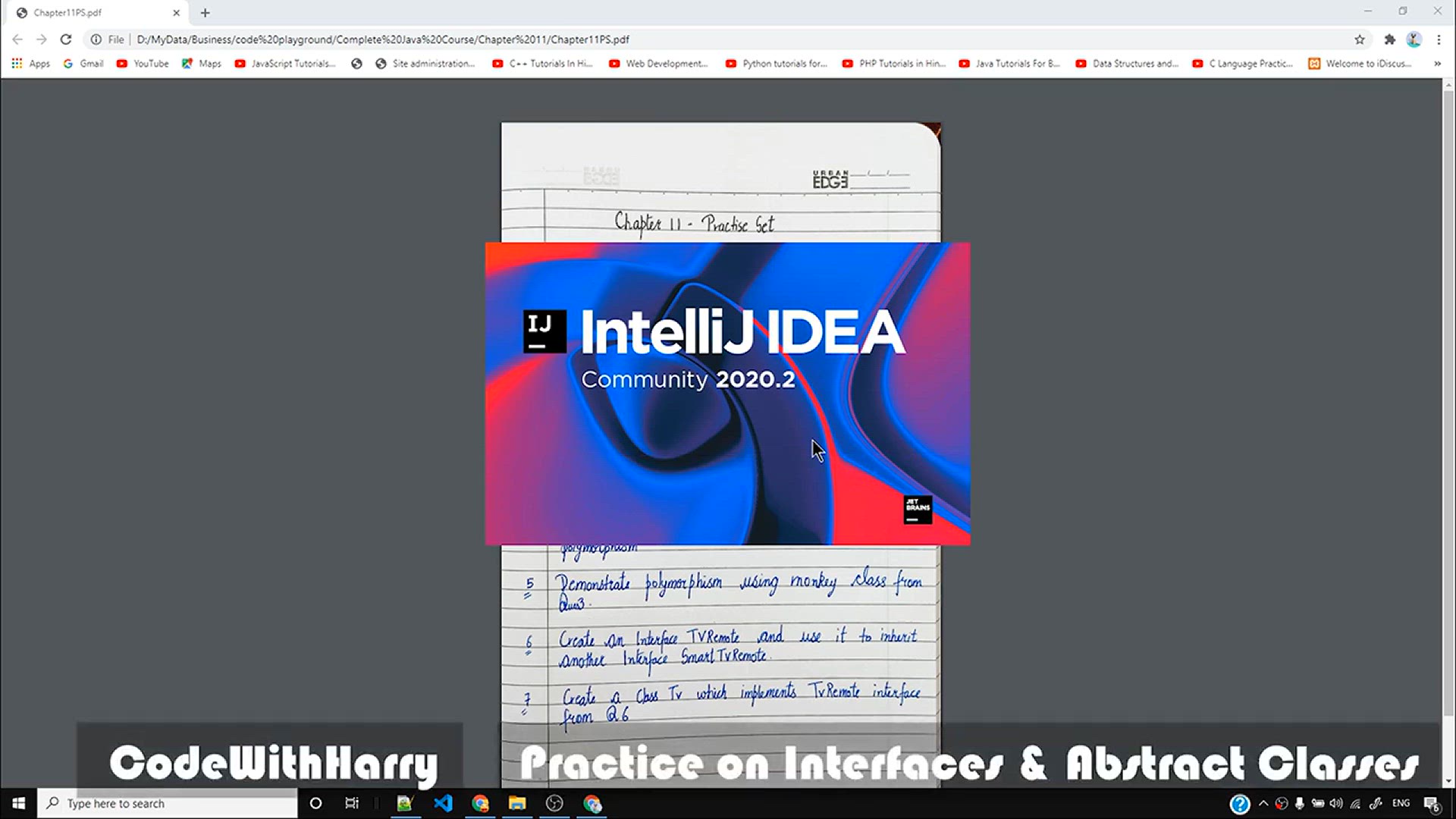
Java Practice Questions on Abstract Classes & Interfaces
1K views · Feb 12, 2024 codehunter.online
The "Java Practice Questions on Abstract Classes & Interfaces" video presents a series of practice questions aimed at reinforcing understanding and proficiency in working with abstract classes and interfaces in Java programming. These questions cover various aspects of abstract classes and interfaces, including declaration, inheritance, method implementation, and polymorphism. By challenging viewers to solve these practice questions independently, the video aims to enhance problem-solving skills and deepen comprehension of abstract classes and interfaces' concepts in Java programming. This resource serves as a valuable tool for learners seeking to solidify their grasp of these fundamental Java concepts through hands-on practice and problem-solving.
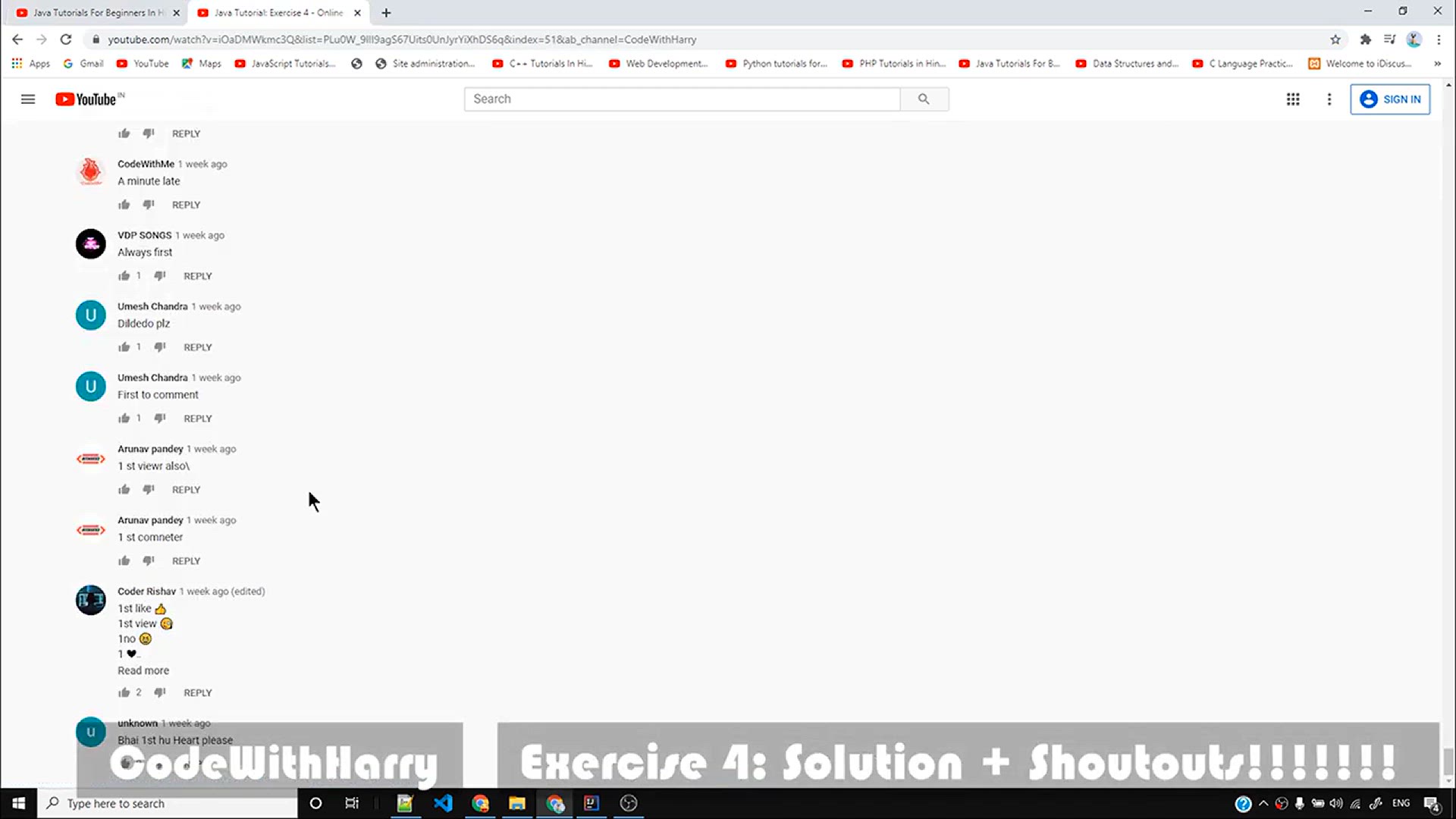
Java Exercise 4_ Solution & Shoutouts!
23 views · Feb 12, 2024 codehunter.online
The "Java Exercise 4: Solution & Shoutouts!" video provides comprehensive solutions to the programming exercises presented in a previous tutorial session, alongside acknowledgments for viewer contributions or participation, known as shoutouts. In this video, the instructor walks through the step-by-step solutions to the exercise problems, demonstrating coding techniques and concepts covered in the tutorial series. Additionally, the video recognizes and appreciates viewer engagement by highlighting comments, suggestions, or code contributions from the audience. Through this interactive format, viewers not only receive guidance on problem-solving but also feel motivated and engaged within the tutorial community. This video serves as a helpful resource for learners looking to validate their understanding of Java programming concepts while fostering a sense of community involvement.
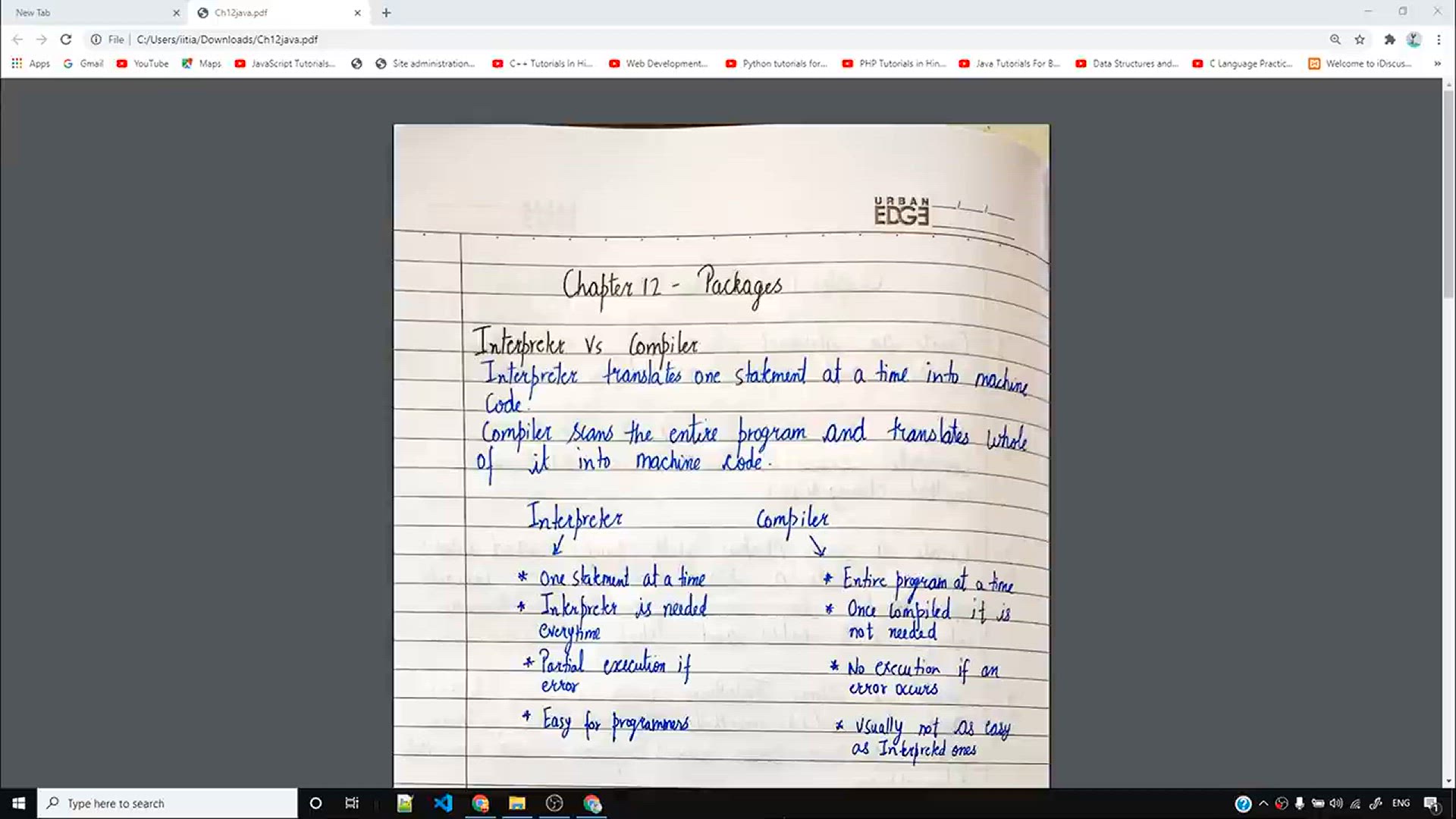
Interpreted vs Compiled Languages!
317 views · Feb 12, 2024 codehunter.online
The "Interpreted vs Compiled Languages" video explores the differences between interpreted and compiled programming languages. It breaks down the concepts of interpretation and compilation, illustrating how each approach executes code. The video highlights the advantages and disadvantages of both interpreted and compiled languages, discussing factors such as performance, portability, and development workflow. Through clear explanations and examples, viewers gain insight into the distinct characteristics of interpreted and compiled languages, enabling them to make informed decisions when choosing a programming language for their projects. This video serves as a valuable resource for programmers and enthusiasts seeking to understand the fundamental differences between these two types of languages.
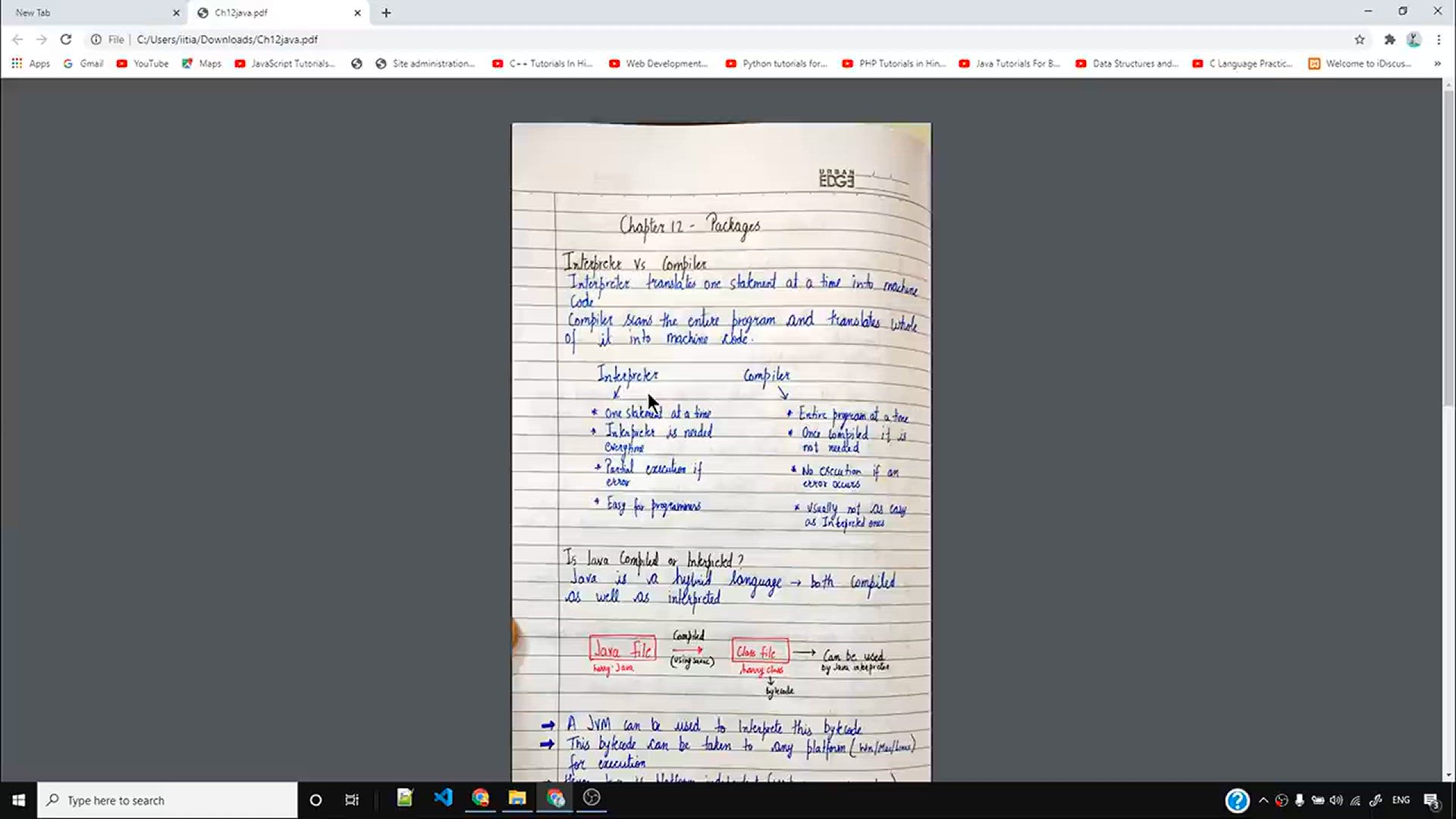
Is Java interpreted or compiled_
708 views · Feb 12, 2024 codehunter.online
The "Is Java interpreted or compiled?" video addresses the common misconception surrounding the nature of Java's execution model. It clarifies that Java employs a hybrid approach, combining both interpretation and compilation. The video explains how Java source code is initially compiled into bytecode by the Java compiler, which is then interpreted by the Java Virtual Machine (JVM) at runtime. Additionally, it discusses the Just-In-Time (JIT) compilation process, where certain bytecode is dynamically compiled into native machine code for improved performance. Through clear explanations, viewers gain a deeper understanding of Java's execution model, debunking the notion of Java being purely interpreted or compiled. This video serves as a valuable resource for programmers and enthusiasts seeking clarity on Java's execution mechanism.
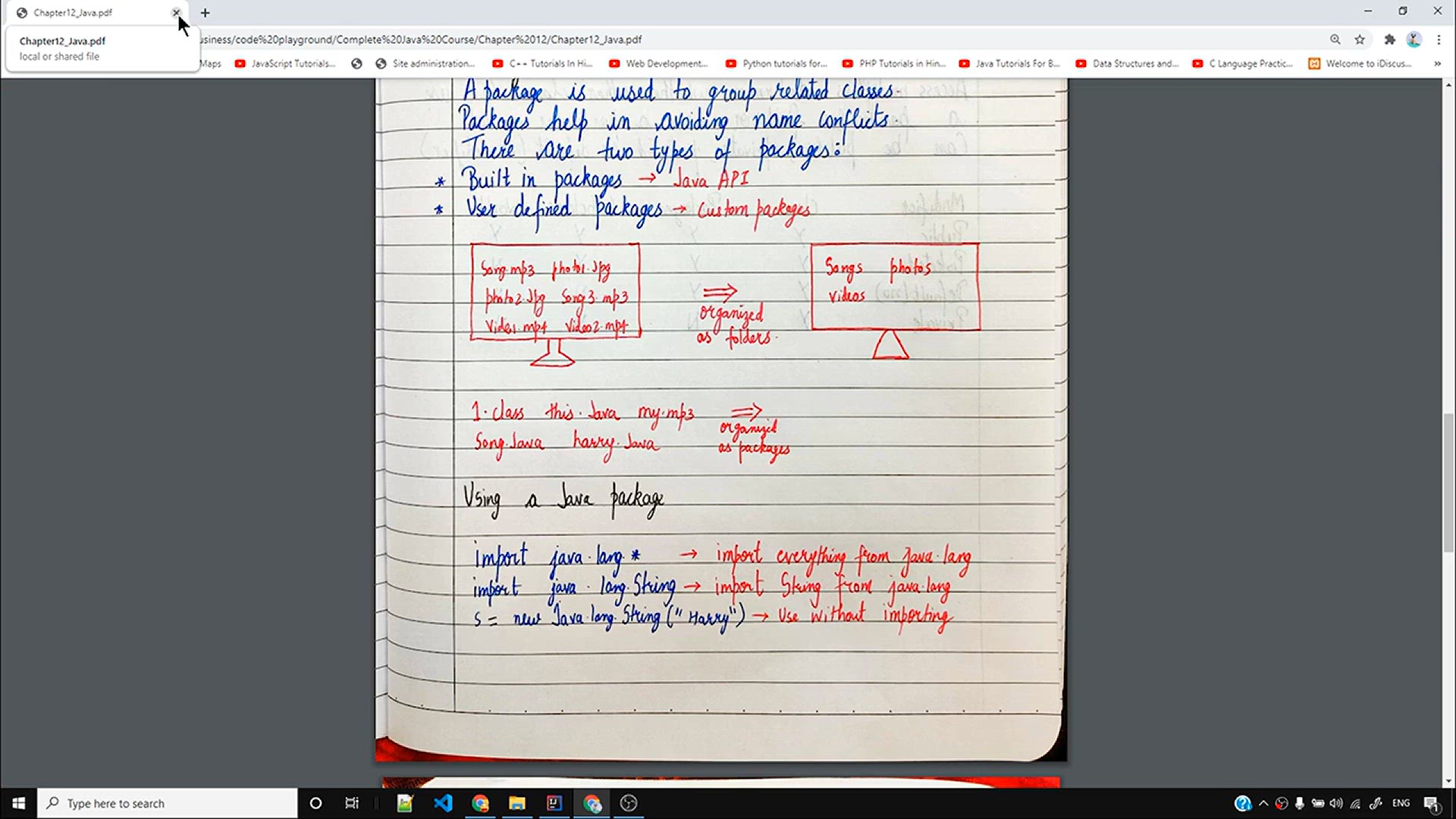
Java Tutorial_ Creating Packages in Java
13K views · Feb 12, 2024 codehunter.online
The "Java Tutorial: Creating Packages in Java" video offers a comprehensive guide to creating and utilizing packages in Java programming. It covers how packages provide a way to organize Java classes and interfaces into namespaces, facilitating code organization, modularity, and reusability. The video explains the syntax and conventions for creating packages, importing classes from other packages, and accessing classes within the same package. Through clear explanations and practical examples, viewers learn how to effectively create and manage packages in Java projects, enabling them to structure their codebase efficiently and promote code reusability. This tutorial serves as a valuable resource for beginners and intermediate learners seeking to understand the principles of package management in Java programming.
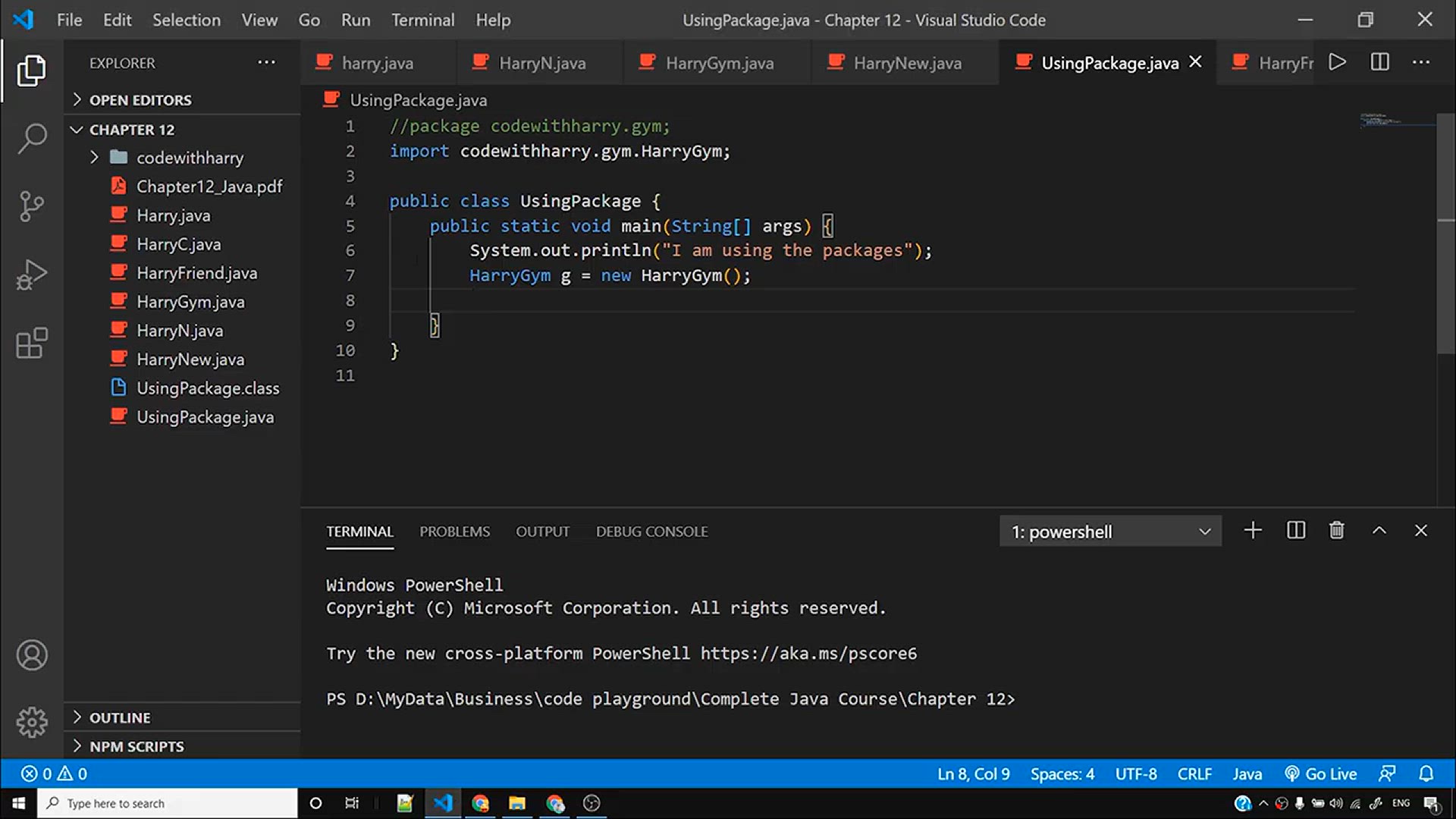
Access Modifiers in Java
38K views · Feb 12, 2024 codehunter.online
The "Access Modifiers in Java" video provides an in-depth exploration of access modifiers, a fundamental aspect of Java programming. It covers how access modifiers control the accessibility of classes, variables, methods, and constructors within Java programs. The video explains the different types of access modifiers in Java - public, private, protected, and default (also known as package-private) - and their respective scopes and visibility rules. Through clear explanations and practical examples, viewers learn how to effectively use access modifiers to enforce encapsulation, manage class accessibility, and ensure code security in Java projects. This tutorial serves as a valuable resource for learners seeking to understand the principles of access control in Java programming.
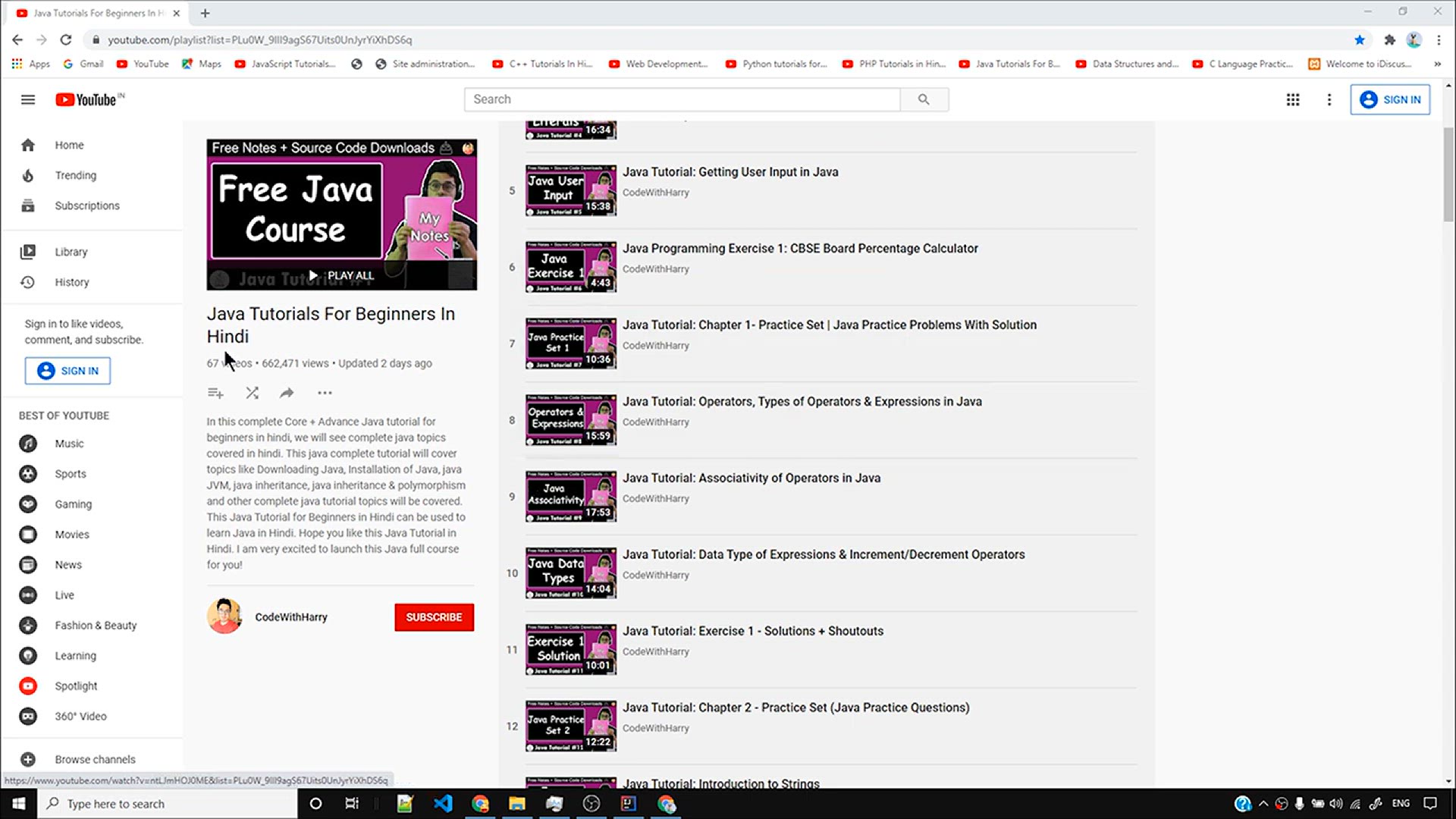
Java Exercise 5_ Creating a Custom Package
79 views · Feb 12, 2024 codehunter.online
The "Java Exercise 5: Creating a Custom Package" video presents a programming exercise focused on creating a custom package in Java. Viewers are tasked with organizing a set of Java classes into a custom package structure, defining classes with appropriate access modifiers and methods, and utilizing the package in a Java application. This exercise encourages viewers to apply their knowledge of package creation and management in Java programming, reinforcing concepts such as access modifiers, class organization, and package structure. By following the instructions provided in the video, viewers can practice their Java programming skills while enhancing their understanding of package management in real-world scenarios. This exercise serves as an engaging opportunity for learners to apply their knowledge and creativity to solve a practical programming challenge in Java.
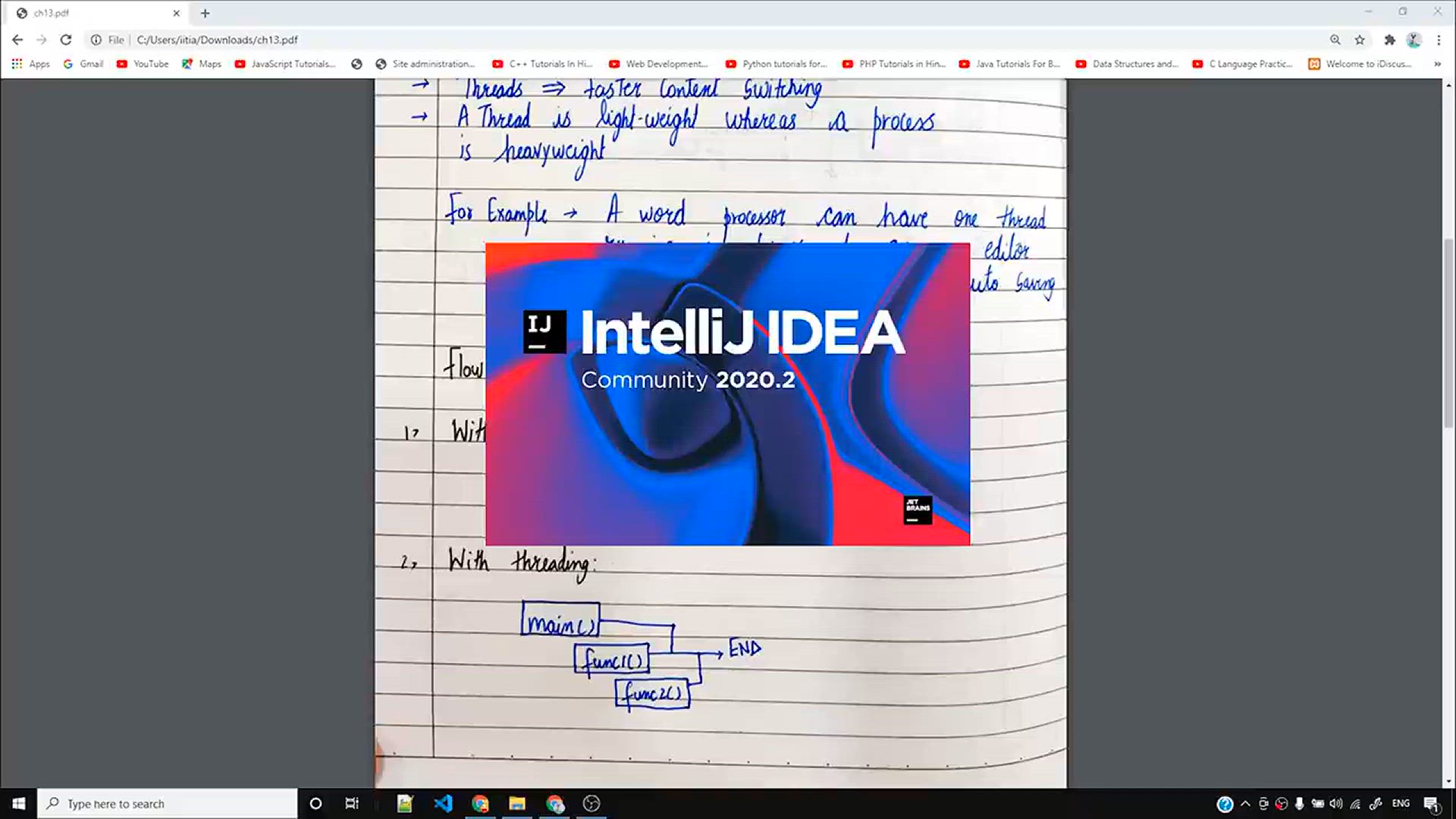
Creating a Thread by Extending Thread class
370 views · Feb 12, 2024 codehunter.online
The "Creating a Thread by Extending Thread class" video demonstrates how to create a thread in Java by extending the Thread class. It covers the process of creating a custom thread class by extending the Thread class and overriding its run() method to define the thread's behavior. The video illustrates how to instantiate and start the custom thread to execute the desired tasks concurrently with other threads in a Java program. Through clear explanations and practical examples, viewers learn how to leverage the Thread class to implement multithreading functionality in their Java applications. This tutorial serves as a valuable resource for learners seeking to understand the basics of multithreading and how to create threads using the Thread class in Java.
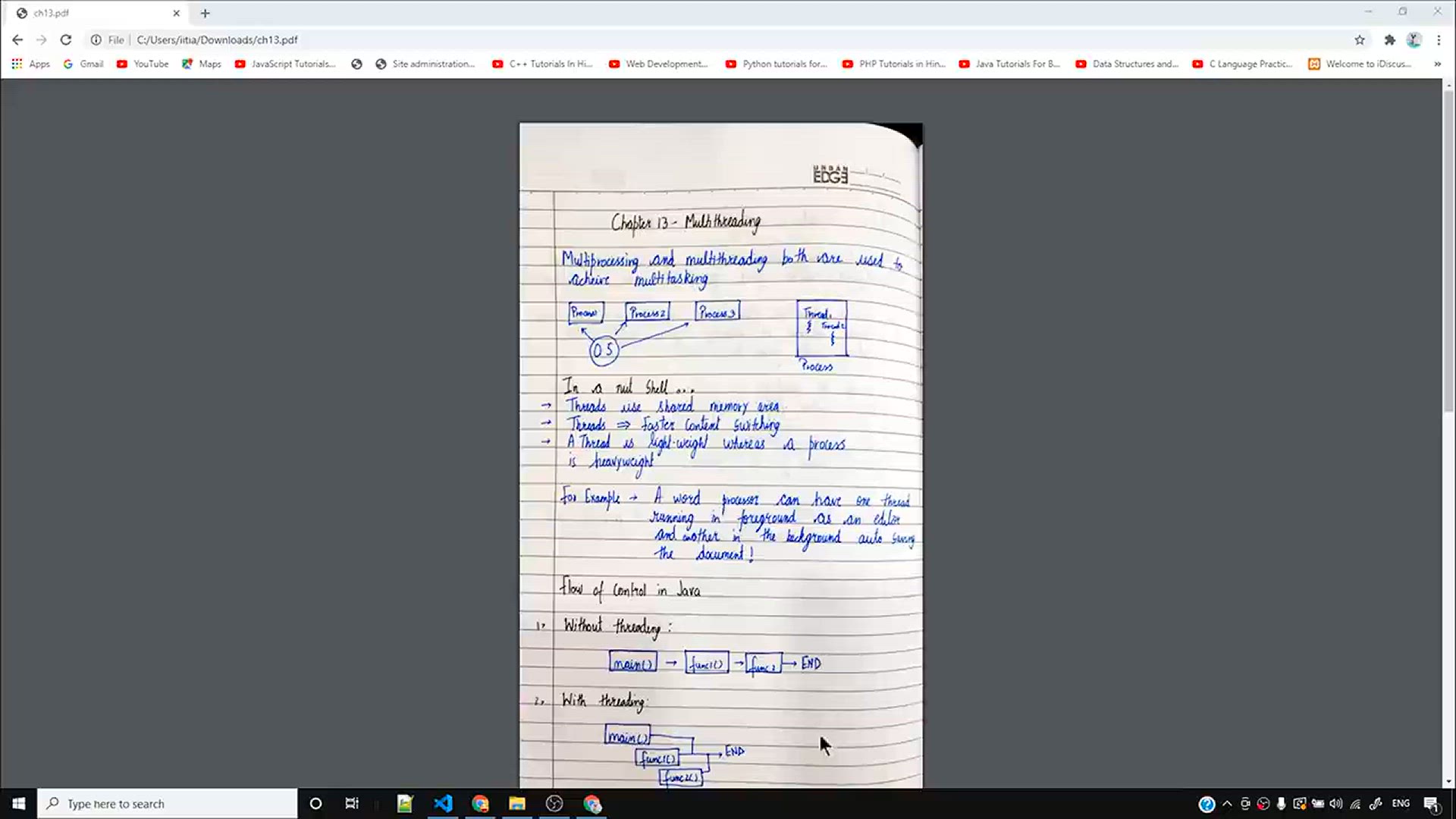
Creating a Java Thread Using Runnable Interface
1 views · Feb 12, 2024 codehunter.online
The "Creating a Java Thread Using Runnable Interface" video demonstrates how to create a thread in Java by implementing the Runnable interface. It covers the process of defining a class that implements the Runnable interface and overrides its run() method to specify the thread's behavior. The video illustrates how to instantiate a Thread object, passing an instance of the custom Runnable class as a parameter, and start the thread to execute concurrently with other threads in a Java program. Through clear explanations and practical examples, viewers learn how to use the Runnable interface to implement multithreading functionality in their Java applications, offering a more flexible approach compared to extending the Thread class. This tutorial serves as a valuable resource for learners seeking to understand multithreading concepts and how to create threads using the Runnable interface in Java.
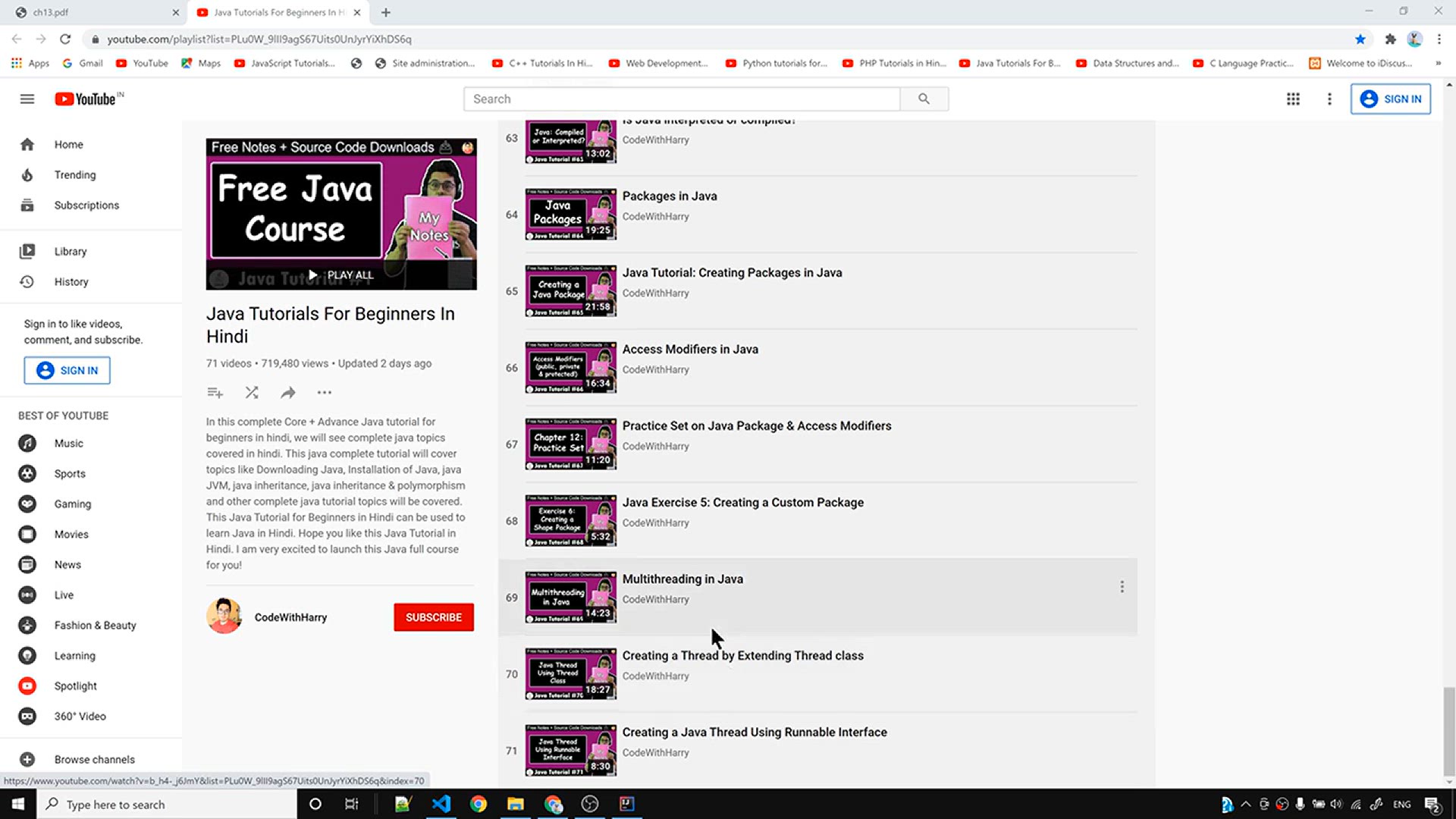
Java Thread Life Cycle
488 views · Feb 12, 2024 codehunter.online
The "Java Thread Life Cycle" video provides a comprehensive overview of the life cycle of a thread in Java. It covers the various states a thread can be in, including new, runnable, blocked, waiting, timed waiting, and terminated. The video explains each state in detail, along with the transitions between states, and illustrates how threads move through the life cycle during program execution. Through clear explanations and visual diagrams, viewers gain a deep understanding of how threads are created, scheduled, and managed by the Java Virtual Machine (JVM). This tutorial serves as a valuable resource for learners seeking to understand the intricacies of multithreading and thread management in Java programming.
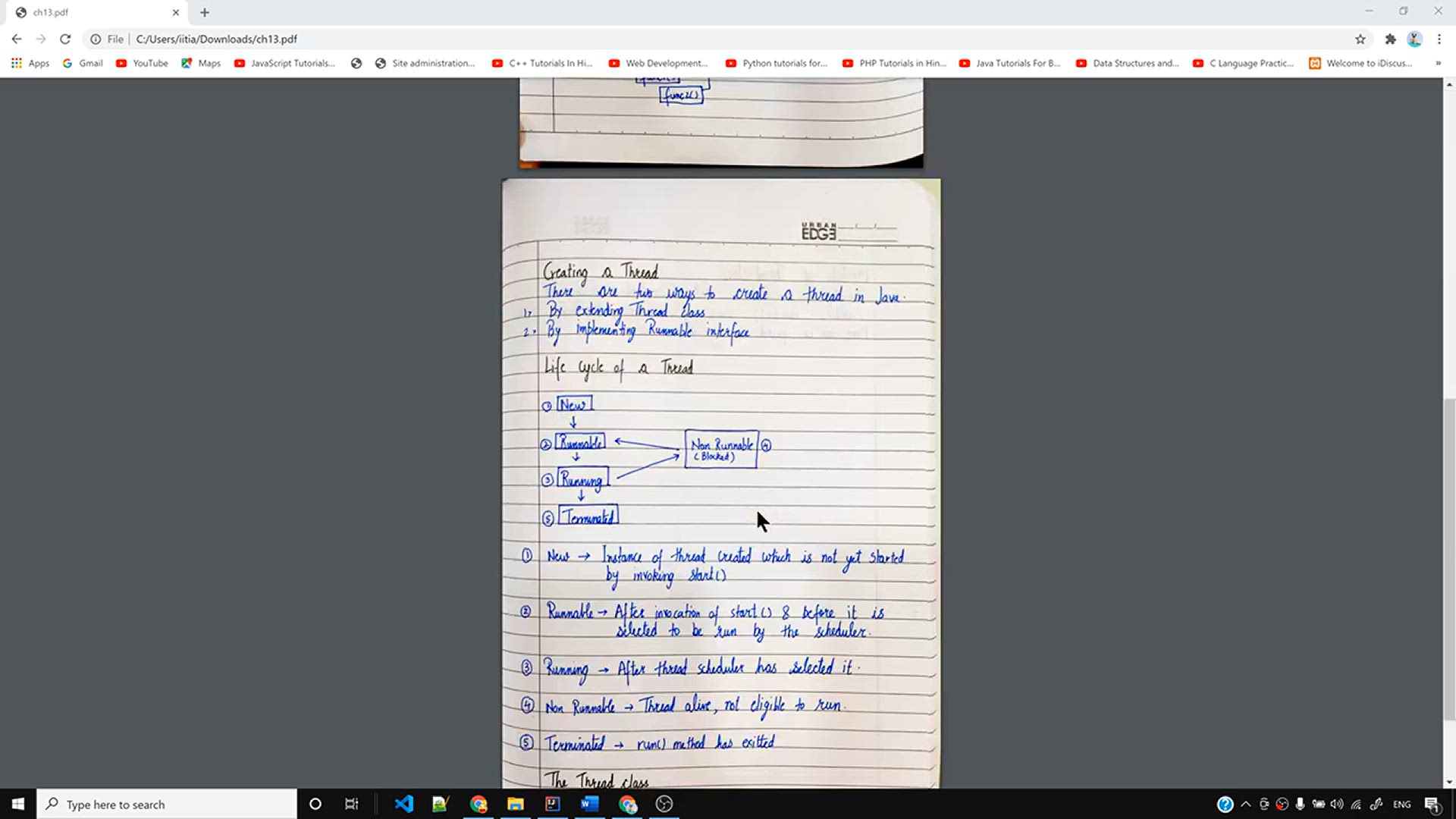
Constructors from Thread class in Java
212 views · Feb 12, 2024 codehunter.online
The "Constructors from Thread class in Java" video explores the constructors available in the Thread class within Java. It discusses the various constructors provided by the Thread class, including those with parameters such as Runnable objects, thread group, and thread name. The video illustrates how these constructors can be utilized to create and customize threads to suit specific requirements within Java applications. Through clear explanations and practical examples, viewers gain insight into the flexibility and functionality offered by the constructors in the Thread class, allowing for efficient management and control of threads in multithreaded Java programs. This tutorial serves as a valuable resource for learners seeking to understand how to effectively utilize constructors from the Thread class in Java programming.
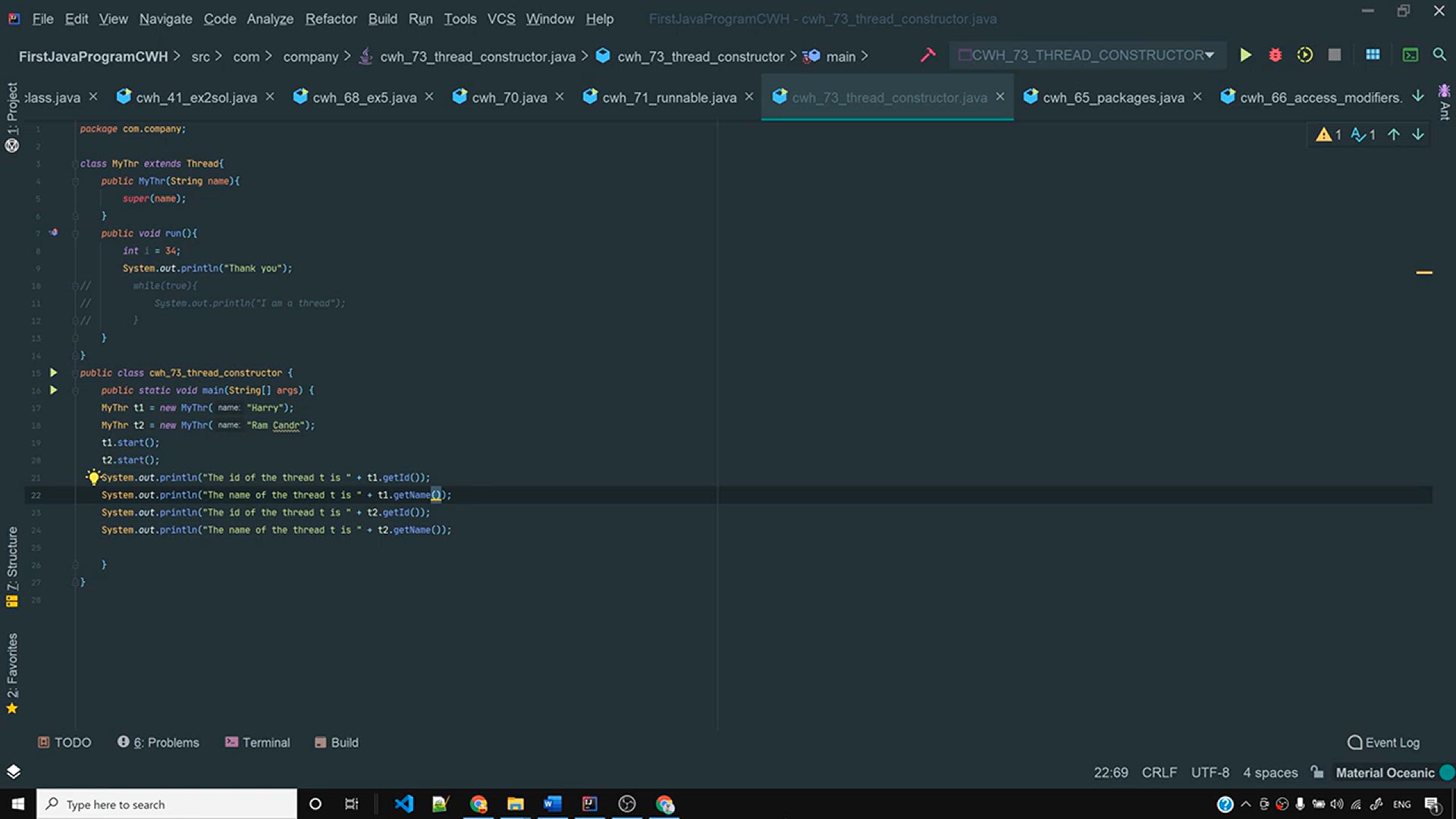
Java Thread Priorities
142 views · Feb 12, 2024 codehunter.online
The "Java Thread Priorities" video provides an overview of thread priorities in Java, allowing viewers to understand how threads are scheduled for execution based on their priority levels. It explains the range of thread priorities and the default priority assigned to threads, as well as how to set and adjust thread priorities using the setPriority() method. Through clear explanations and practical examples, viewers learn how to manage thread priorities effectively to optimize the performance and responsiveness of multithreaded Java applications. This tutorial serves as a valuable resource for learners seeking to understand how to control thread execution order and optimize resource utilization in Java programming.

Java Thread Methods
24 views · Feb 12, 2024 codehunter.online
The "Java Thread Methods" video provides an overview of essential methods available in the Thread class in Java. It covers a range of methods used to manage threads, including start(), join(), sleep(), interrupt(), and isAlive(). The video explains how these methods can be utilized to control thread execution, wait for thread completion, suspend thread execution temporarily, and handle thread interruption. Through clear explanations and practical examples, viewers gain insight into how to effectively use these thread methods to manage multithreading tasks in Java applications. This tutorial serves as a valuable resource for learners seeking to understand the functionality and usage of thread methods in Java programming.
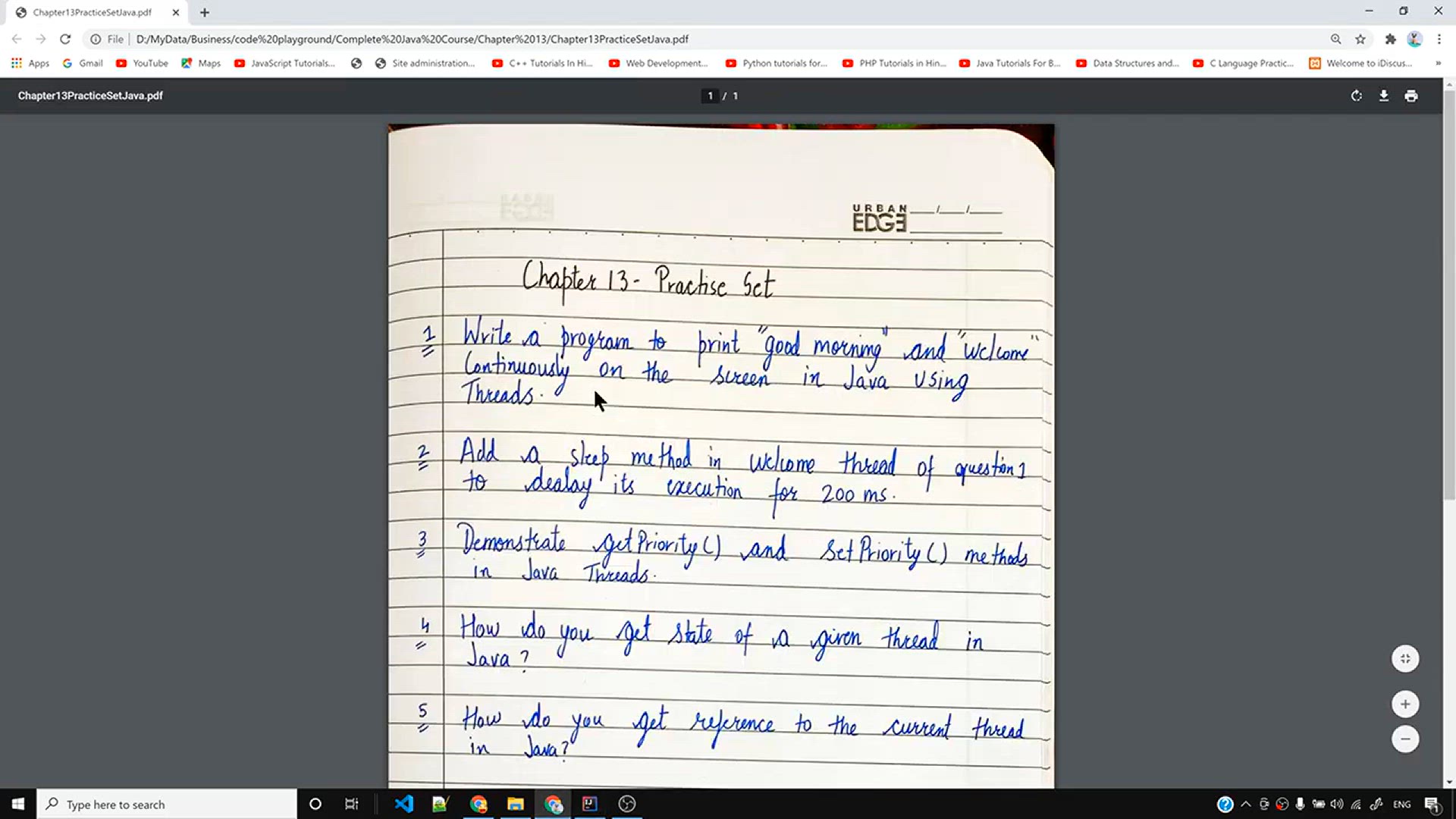
Java Tutorial_ Practice Questions on Thread
557 views · Feb 12, 2024 codehunter.online
The "Java Tutorial: Practice Questions on Thread" video presents a series of practice questions aimed at reinforcing understanding and proficiency in working with threads in Java programming. These questions cover various aspects of thread creation, synchronization, and management, including thread lifecycle, synchronization mechanisms, and concurrent programming concepts. By challenging viewers to solve these practice questions independently, the video aims to enhance problem-solving skills and deepen comprehension of thread-related concepts in Java programming. This resource serves as a valuable tool for learners seeking to solidify their grasp of multithreading concepts through hands-on practice and problem-solving.
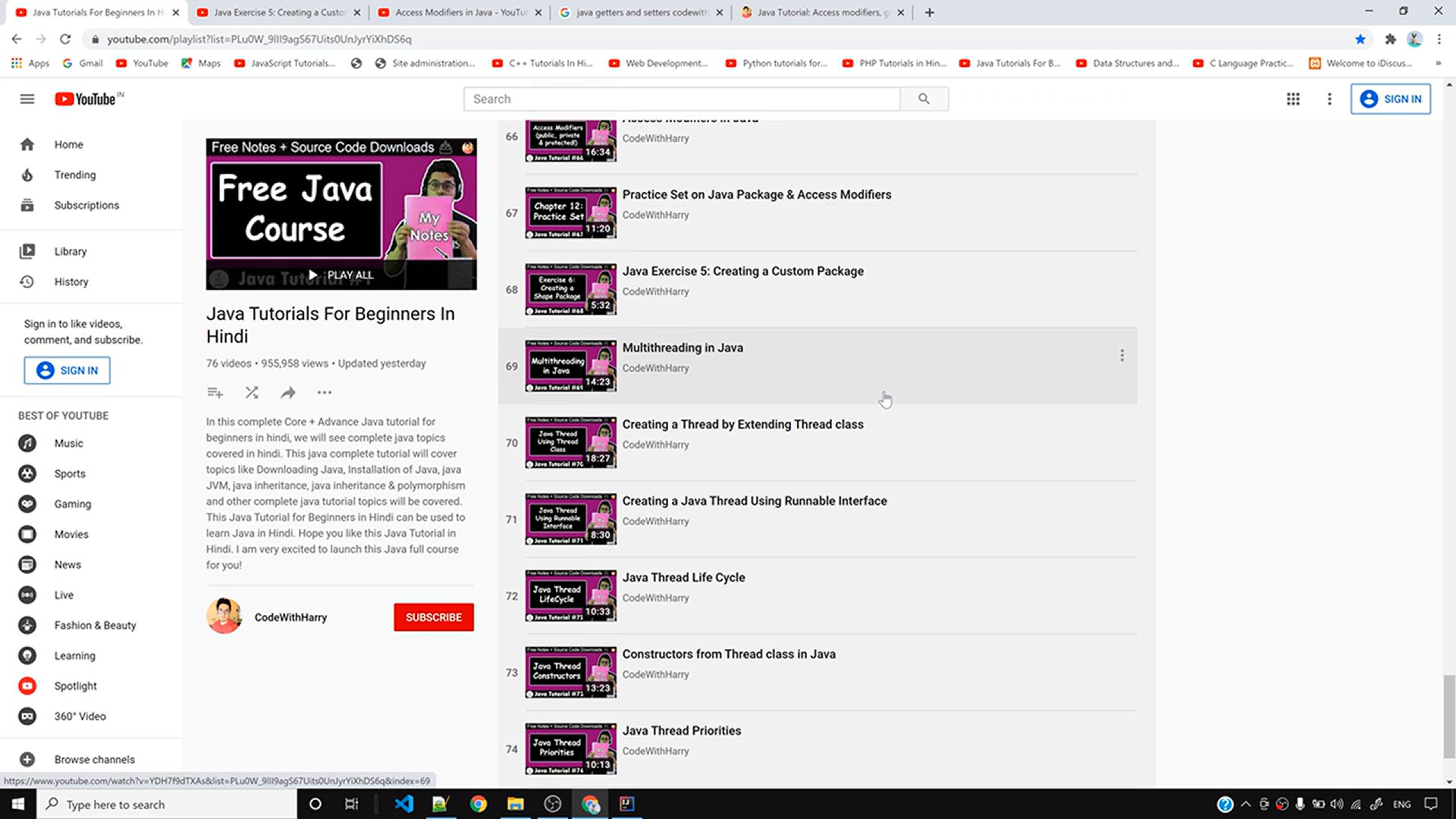
Exercise 5_ Solution & Shoutouts!
20 views · Feb 12, 2024 codehunter.online
The "Exercise 5: Solution & Shoutouts!" video offers comprehensive solutions to programming exercises presented in previous tutorial sessions, along with acknowledgments for viewer contributions or participation, known as shoutouts. In this video, the instructor provides step-by-step explanations for solving the exercise problems, demonstrating coding techniques and concepts covered in the tutorial series. Additionally, the video recognizes and appreciates viewer engagement by highlighting comments, suggestions, or code contributions from the audience. Through this interactive format, viewers not only receive guidance on problem-solving but also feel motivated and engaged within the tutorial community. This video serves as a helpful resource for learners looking to validate their understanding of Java programming concepts while fostering a sense of community involvement.
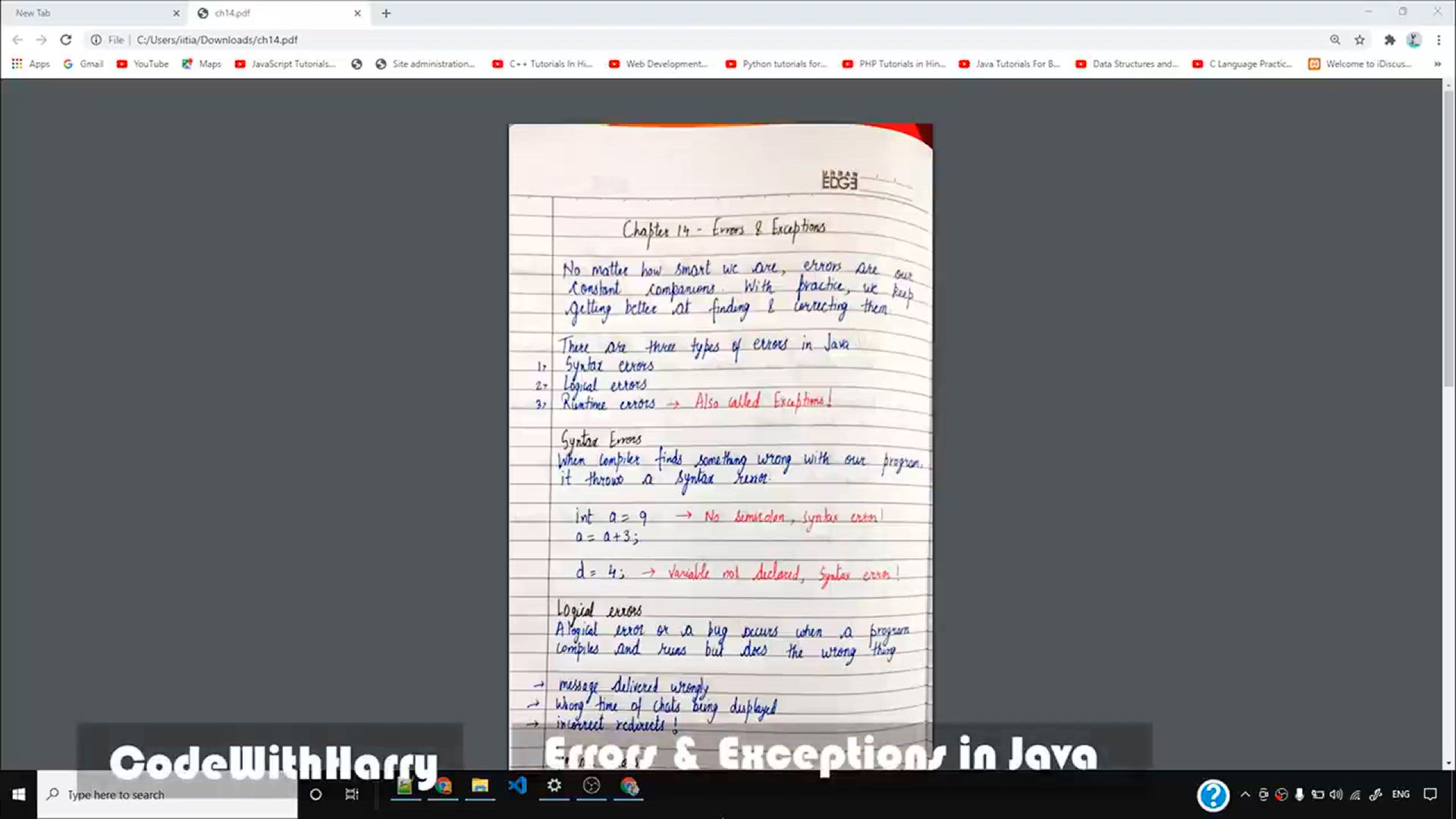
Errors & Exception in Java
609 views · Feb 12, 2024 codehunter.online
The "Errors & Exceptions in Java" video provides an in-depth exploration of errors and exceptions handling in Java programming. It covers the differences between errors and exceptions, the hierarchy of exception classes in Java, and the try-catch-finally blocks for handling exceptions. The video discusses various types of exceptions, such as checked exceptions, unchecked exceptions, and errors, along with best practices for exception handling and propagation. Through clear explanations and practical examples, viewers learn how to effectively manage errors and exceptions in Java programs to ensure robustness and reliability. This tutorial serves as a valuable resource for learners seeking to understand the principles of error and exception handling in Java programming.
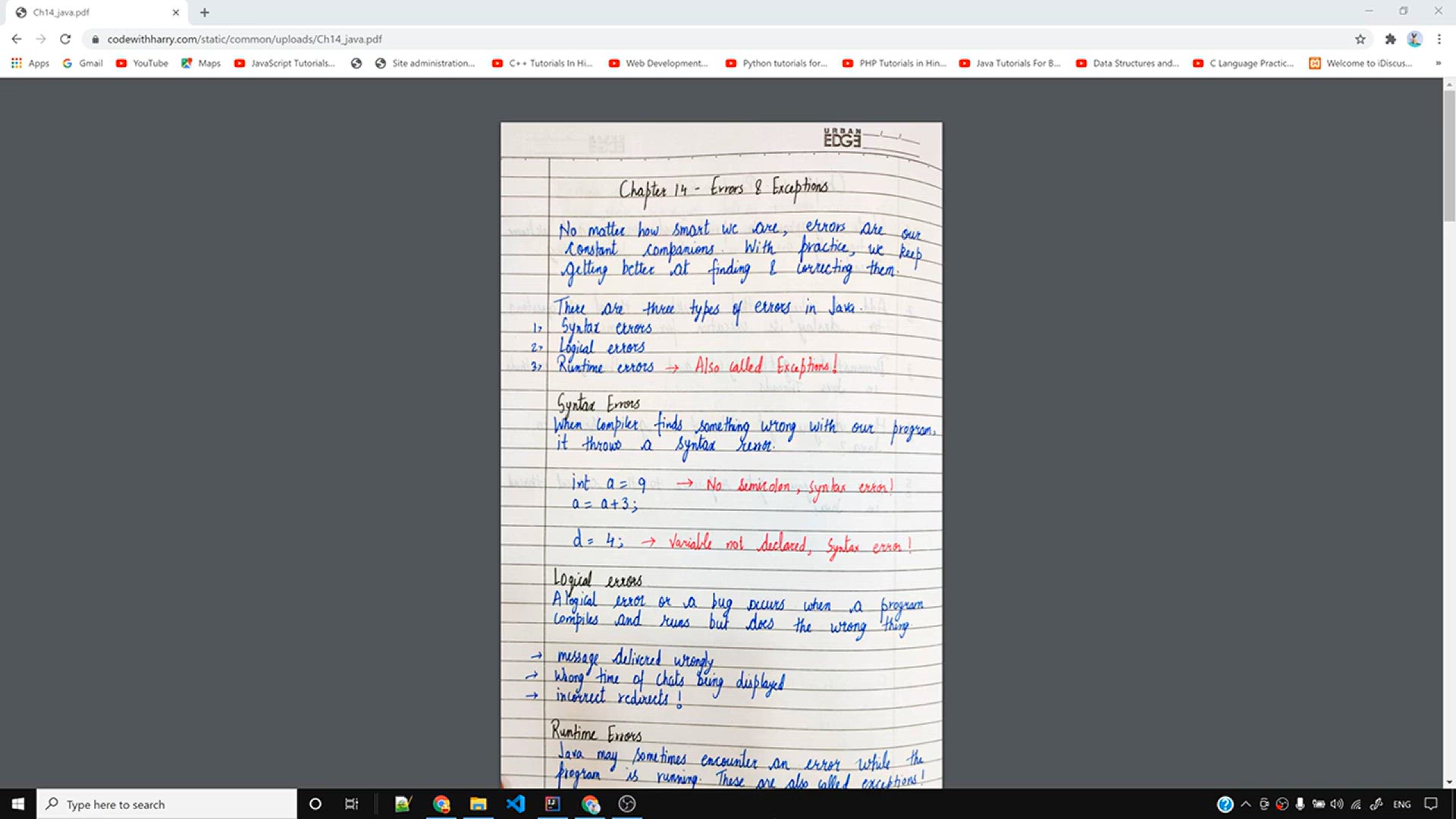
Handling Specific Exceptions in Java
6K views · Feb 12, 2024 codehunter.online
The "Handling Specific Exceptions in Java" video delves into the nuanced approach of handling specific exceptions in Java programming. It explores how to use try-catch blocks to target and manage particular exceptions, offering a more refined error-handling mechanism. The video demonstrates the syntax and usage of catching specific exceptions, providing clear examples to illustrate the concept. Through detailed explanations and practical demonstrations, viewers learn how to tailor exception handling to specific scenarios, improving code readability and maintainability. This tutorial serves as a valuable resource for learners seeking to enhance their understanding of exception handling in Java and develop robust error management strategies for their applications.

Finally Block in Java & Why is it needed!
95 views · Feb 12, 2024 codehunter.online
The "Finally Block in Java & Why is it needed!" video explores the significance of the finally block in Java exception handling. It elucidates how the finally block ensures certain code segments are executed regardless of whether an exception occurs or not, offering a crucial mechanism for resource cleanup and program stability. The video demonstrates the syntax and usage of the finally block, emphasizing its role in closing resources, releasing locks, and performing cleanup operations. Through clear explanations and practical examples, viewers gain insight into the importance of the finally block in ensuring deterministic behavior and maintaining code integrity in Java applications. This tutorial serves as a valuable resource for learners seeking to understand the necessity of the finally block and its practical implications in exception handling scenarios.
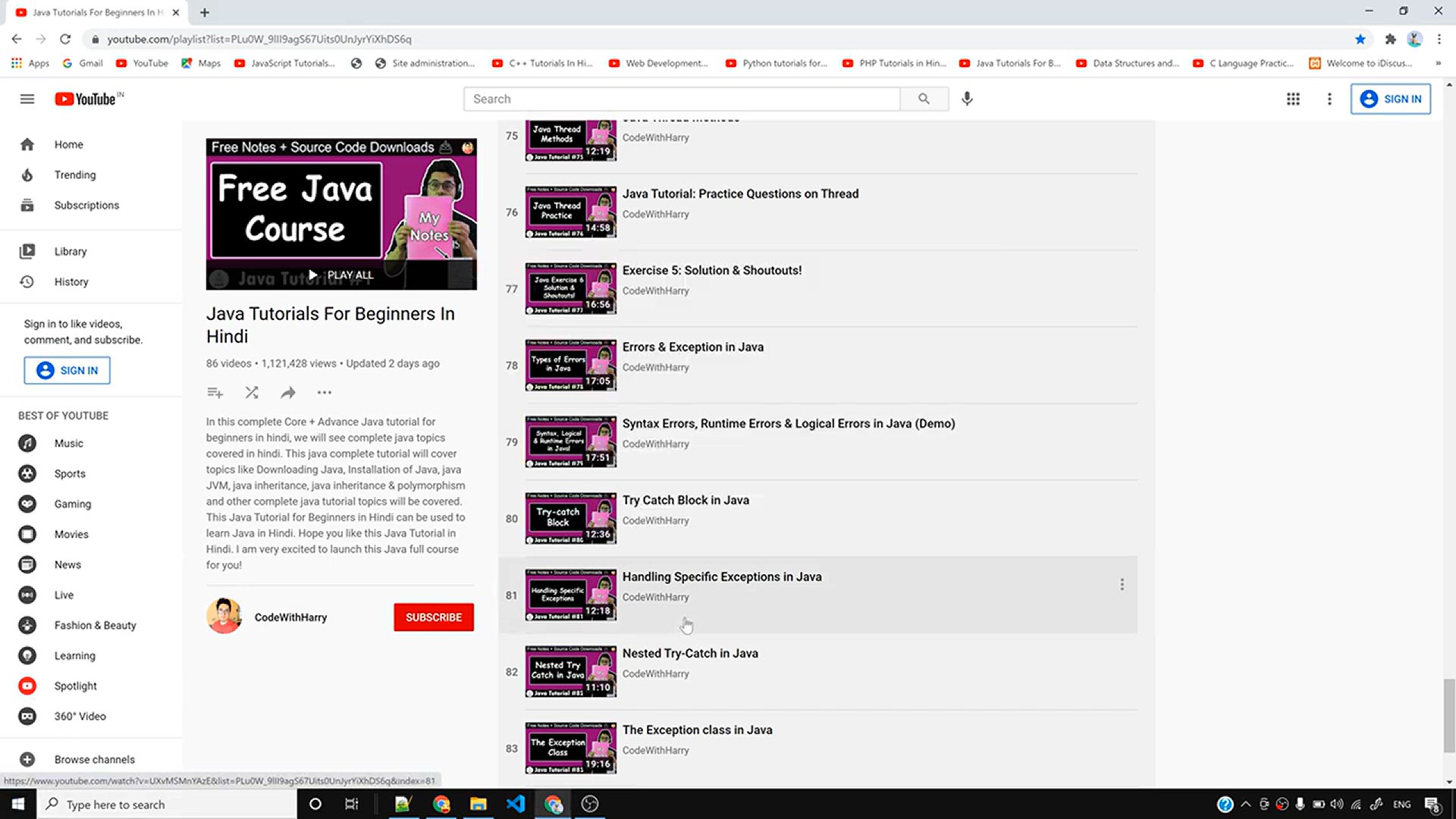
Java Exercise 6_ Custom Calculator _ Java Practice Question
1 views · Feb 12, 2024 codehunter.online
The "Java Exercise 6: Custom Calculator - Java Practice Question" video presents a programming exercise centered around creating a custom calculator in Java. Viewers are challenged to design and implement a Java program that can perform basic arithmetic operations such as addition, subtraction, multiplication, and division. The exercise encourages viewers to apply their knowledge of object-oriented programming concepts, including classes, methods, and encapsulation, to develop a modular and efficient calculator application. By following the instructions provided in the video, viewers have the opportunity to enhance their Java programming skills while tackling a practical programming challenge. This exercise serves as an engaging opportunity for learners to practice problem-solving and strengthen their understanding of Java programming concepts.
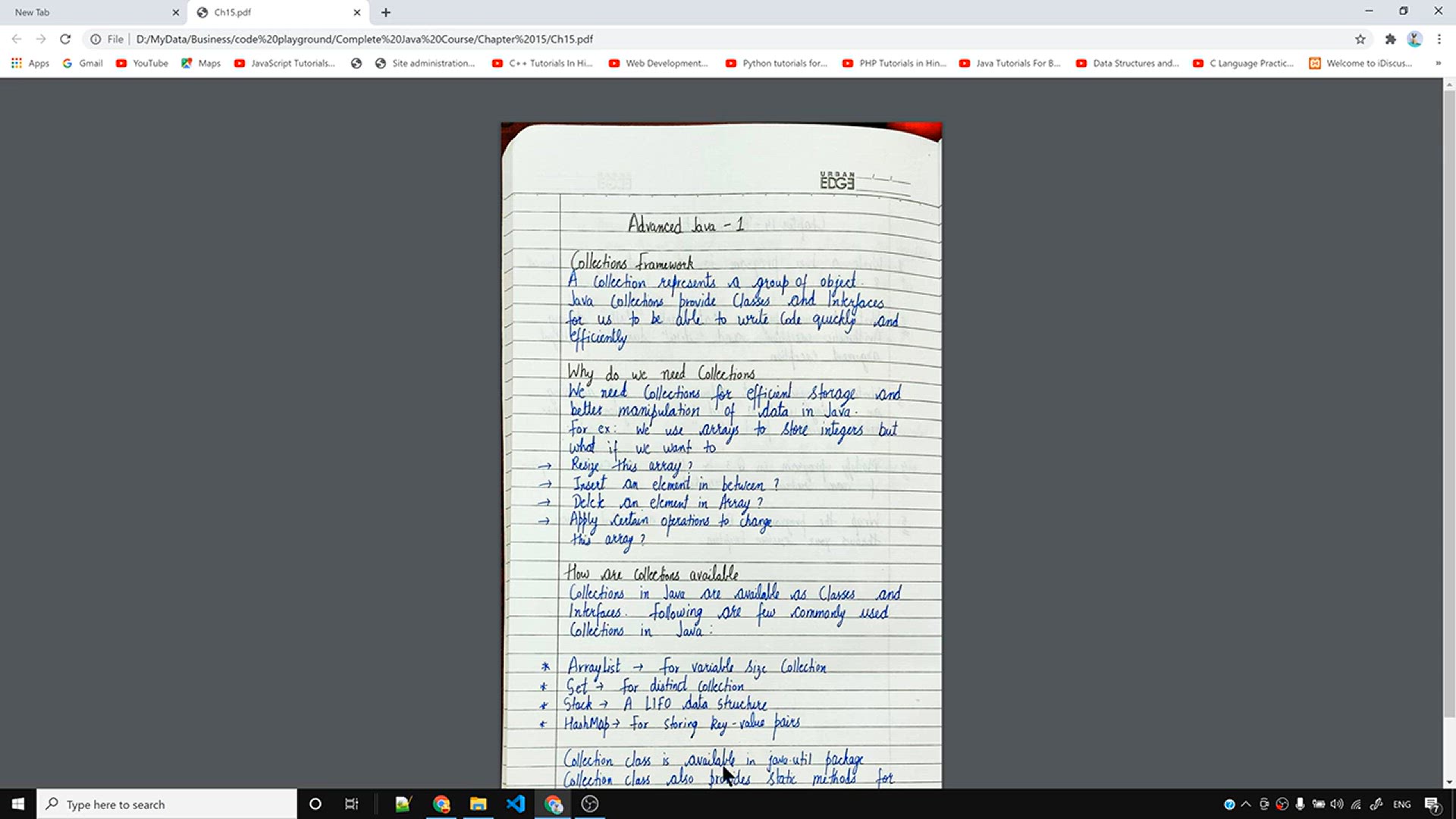
Java Collections Framework
124 views · Feb 12, 2024 codehunter.online
The "Java Collections Framework" video provides an overview of the Java Collections Framework, a set of classes and interfaces in Java that provide implementations of common data structures and algorithms for handling collections of objects. It covers the hierarchy of interfaces and classes in the Collections Framework, including lists, sets, maps, queues, and their implementations such as ArrayList, HashSet, HashMap, and LinkedList. The video explains how to use these data structures effectively to store, manipulate, and access collections of objects in Java programs. Through clear explanations and practical examples, viewers learn how to leverage the Java Collections Framework to improve the efficiency and functionality of their Java applications. This tutorial serves as a valuable resource for learners seeking to understand the fundamentals of collections handling in Java programming.
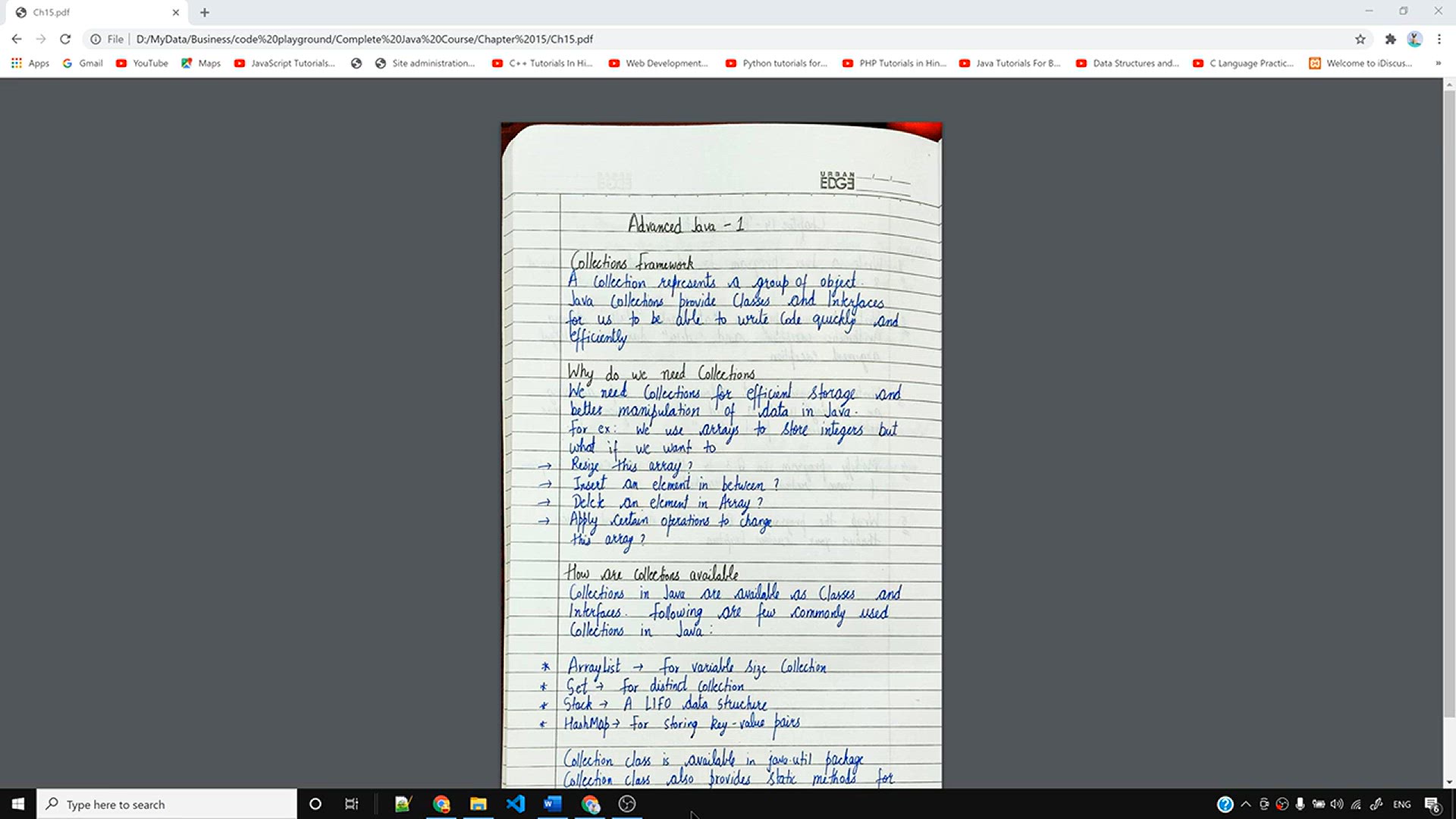
Collections Hierarchy in Java
2K views · Feb 12, 2024 codehunter.online
The "Collections Hierarchy in Java" video offers a comprehensive overview of the hierarchy of interfaces and classes in the Java Collections Framework. It explains how collections are organized into interfaces such as List, Set, Queue, and Map, along with their corresponding implementations such as ArrayList, HashSet, LinkedList, and HashMap. The video covers the relationships between these interfaces and classes, illustrating how they enable developers to work with various data structures efficiently. Through clear explanations and visual diagrams, viewers gain insight into the structure of the Java Collections Framework and learn how to choose the appropriate collection types for their programming needs. This tutorial serves as a valuable resource for learners seeking to understand the hierarchy of collections in Java programming and how to use them effectively in their applications.
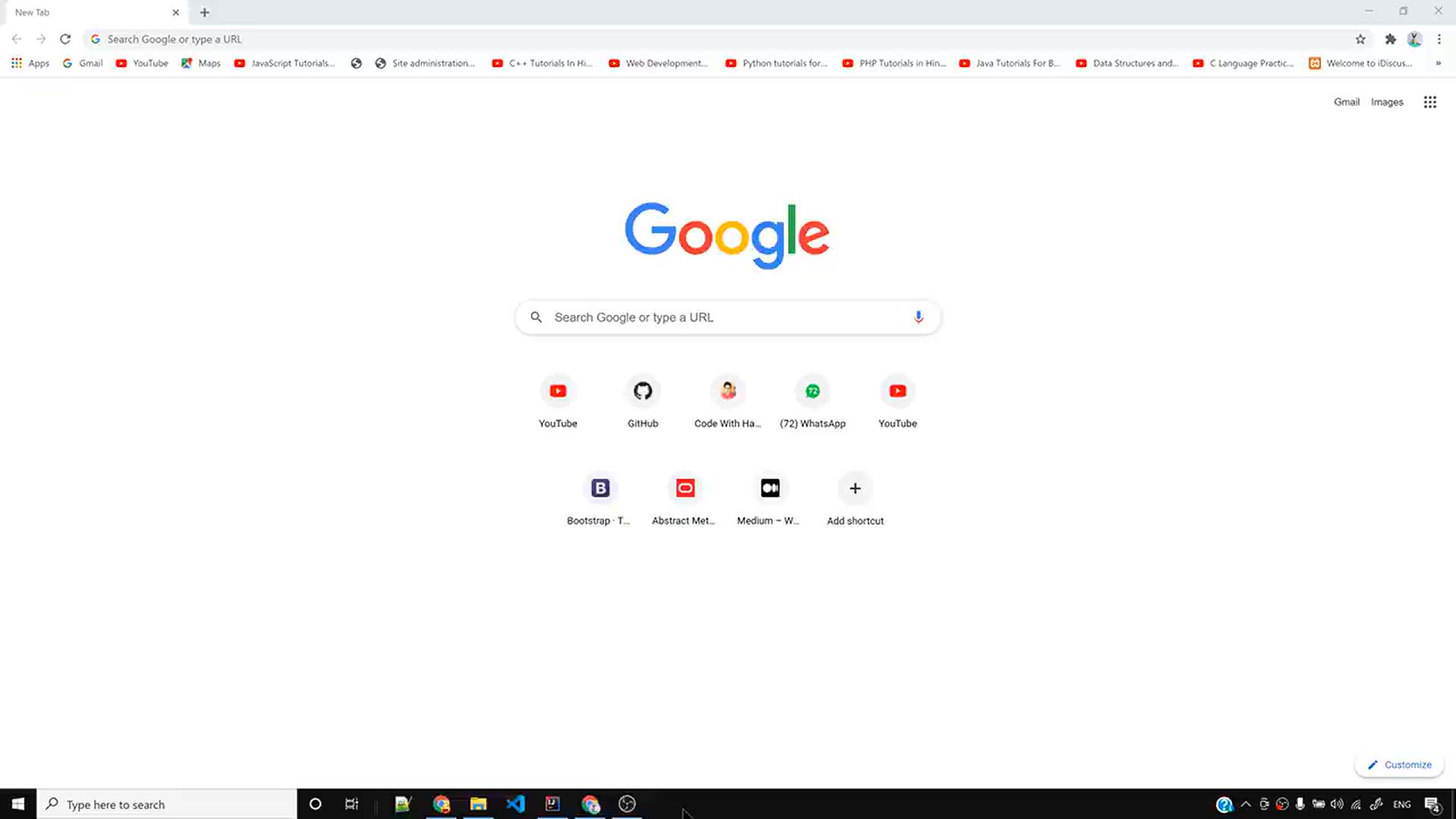
How to View Java Documentation (Correct Way)
222 views · Feb 12, 2024 codehunter.online
The "How to View Java Documentation (Correct Way)" video provides guidance on effectively accessing and navigating Java documentation. It demonstrates the correct method to access the official Java documentation from Oracle's website and explains how to search for classes, methods, and other components within the documentation. The video emphasizes the importance of using the official documentation as a reliable and up-to-date resource for understanding the Java programming language and its standard libraries. Through clear explanations and practical examples, viewers learn how to utilize the Java documentation to find information on classes, methods, parameters, return types, and more. This tutorial serves as a valuable resource for learners seeking to improve their programming skills and enhance their understanding of Java through proper documentation usage.
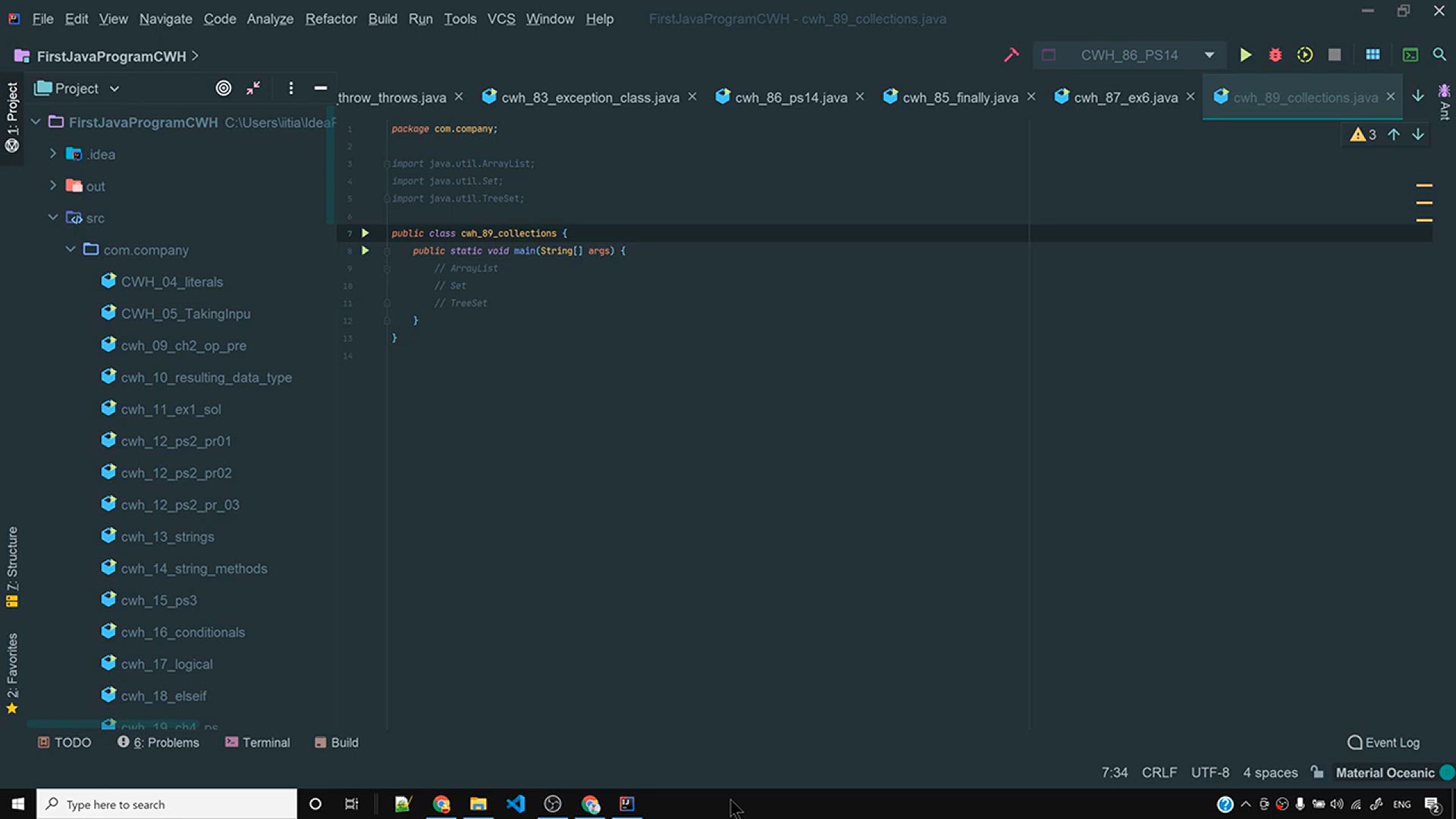
ArrayList in Java_ Demo & Methods
59 views · Feb 12, 2024 codehunter.online
The "ArrayList in Java: Demo & Methods" video provides a practical demonstration of the ArrayList class in Java, a dynamic array implementation that offers flexibility and functionality for managing lists of objects. The video showcases various methods provided by the ArrayList class, including adding, removing, and accessing elements, as well as manipulating the size and capacity of the list. Through clear explanations and practical examples, viewers learn how to use ArrayList effectively to store and manipulate collections of objects in their Java programs. This tutorial serves as a valuable resource for learners seeking to understand the features and functionalities of ArrayList and how to leverage it in their Java applications.
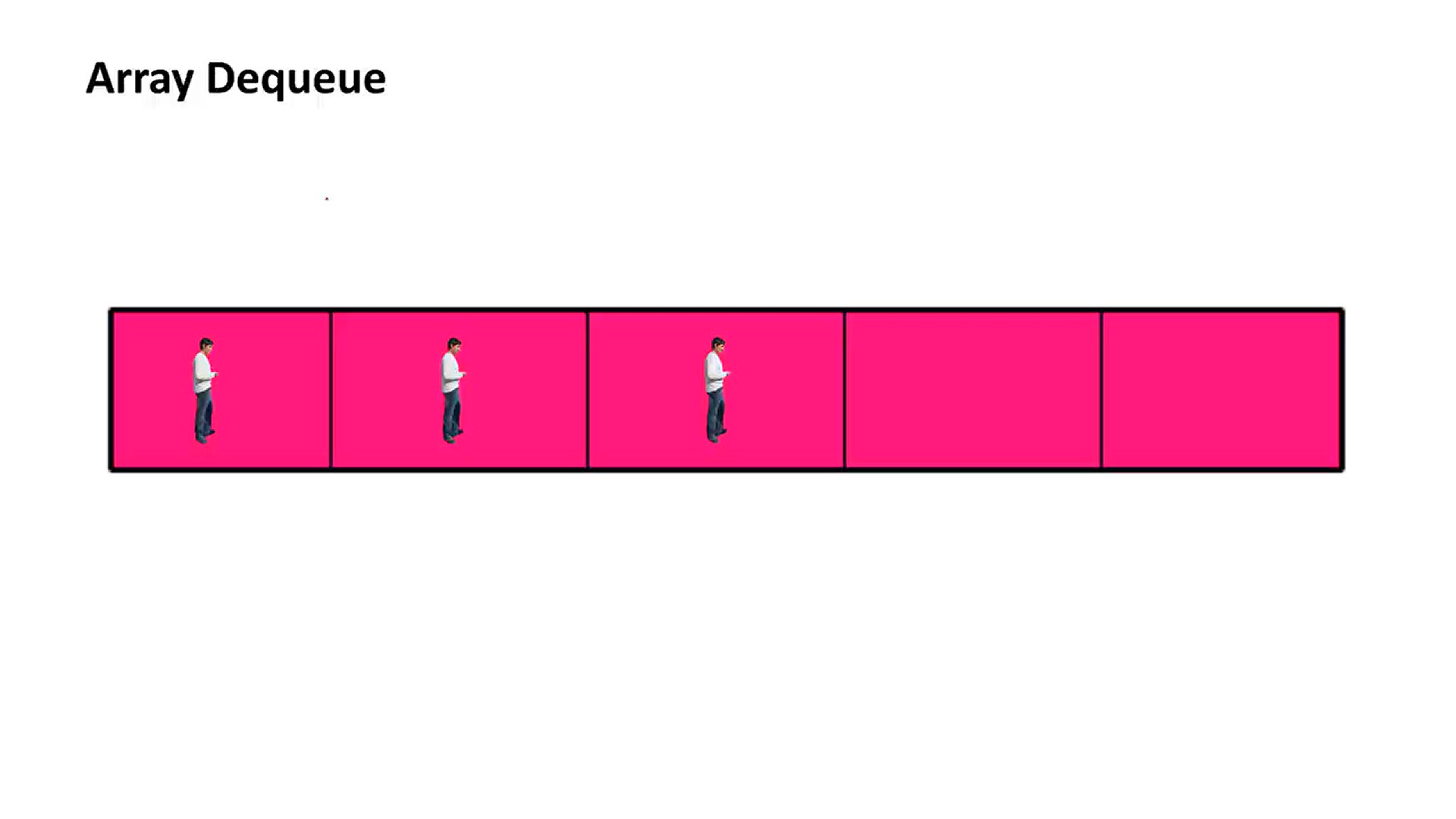
ArrayDeque in Java
44 views · Feb 12, 2024 codehunter.online
The "ArrayDeque in Java" video explores the ArrayDeque class, which implements a double-ended queue in Java's Collections Framework. It demonstrates how ArrayDeque provides efficient operations for adding and removing elements from both ends of the deque, making it suitable for implementing stacks, queues, and other data structures. The video covers the methods provided by the ArrayDeque class, including insertion, removal, and access operations, along with its characteristics and performance considerations. Through clear explanations and practical examples, viewers gain insight into how to use ArrayDeque effectively in their Java applications to manage collections of elements. This tutorial serves as a valuable resource for learners seeking to understand the features and functionality of ArrayDeque and how to leverage it in their Java programming projects.
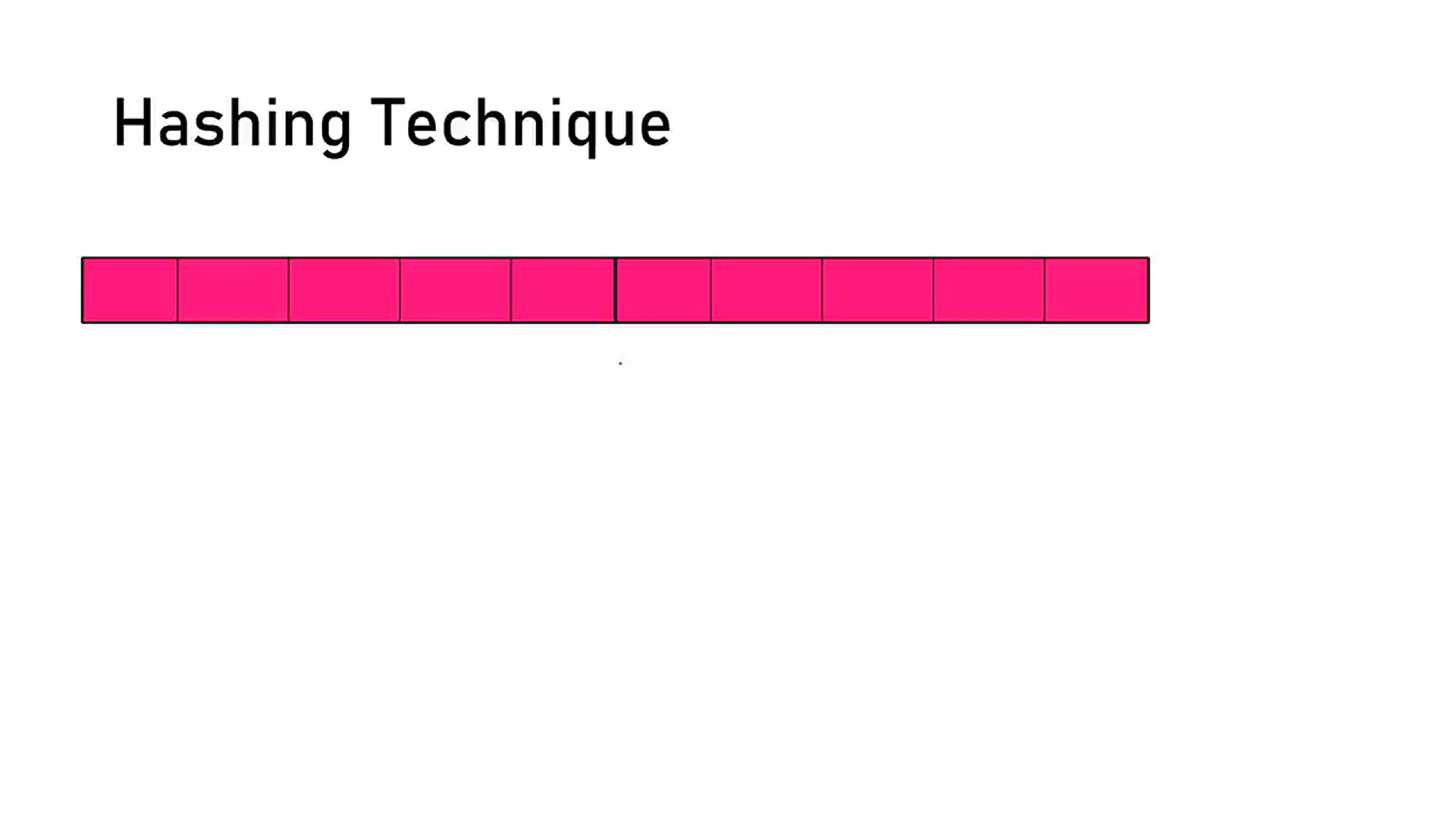
Hashing in Java
18 views · Feb 12, 2024 codehunter.online
The "Hashing in Java" video delves into the concept of hashing and its implementation in Java programming. It explains how hashing functions convert input data into a fixed-size value called a hash code, which is used to index and retrieve data in hash-based data structures such as HashMap and HashSet. The video covers the principles of hash code generation, collision resolution techniques, and the importance of implementing proper hashCode() and equals() methods for objects used as keys in hash-based collections. Through clear explanations and practical examples, viewers learn how hashing facilitates efficient data retrieval and storage in Java applications, providing insights into optimizing hash-based collections for performance and reliability. This tutorial serves as a valuable resource for learners seeking to understand the fundamentals of hashing and its applications in Java programming.
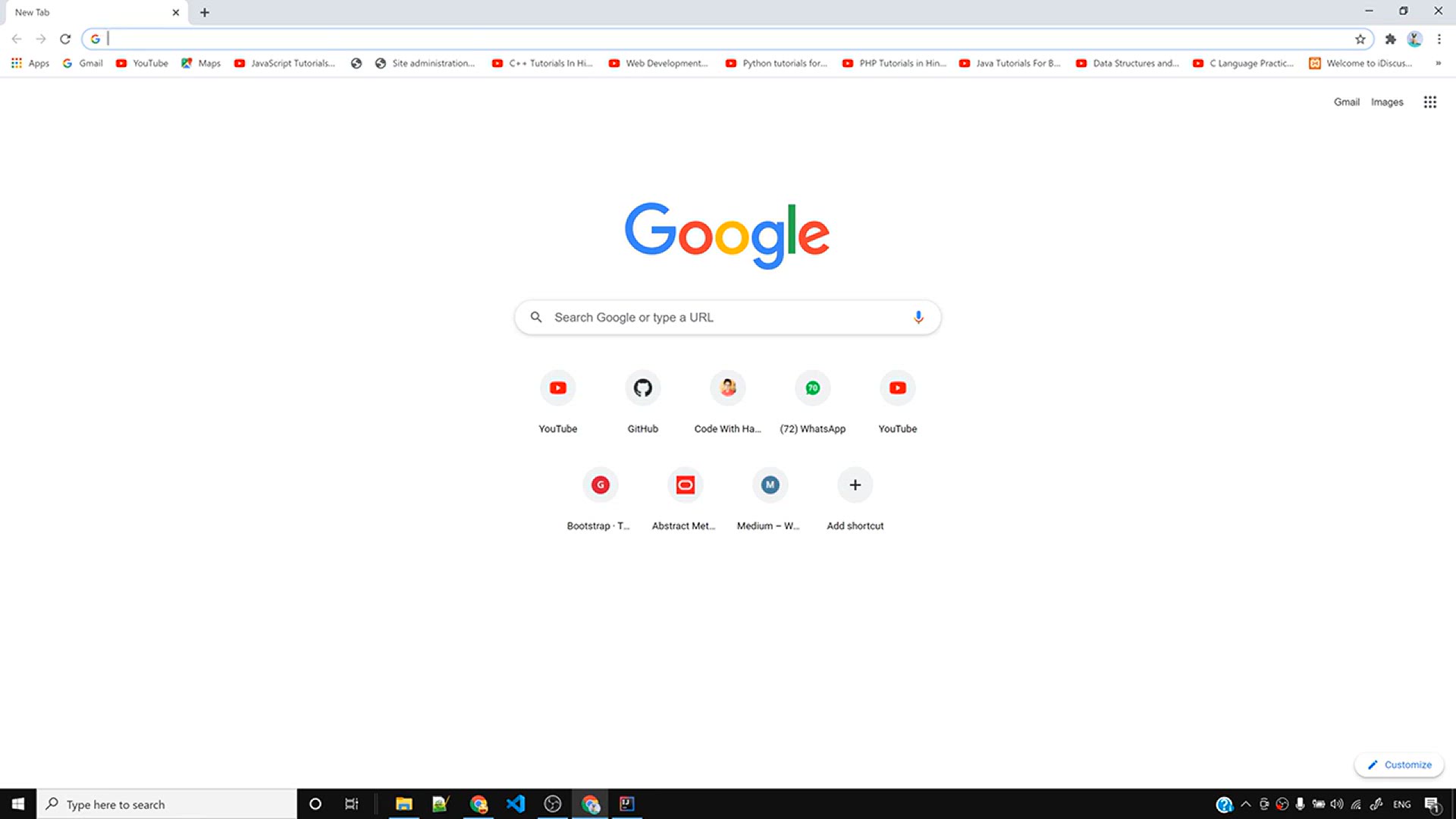
HashSet in Java
246 views · Feb 12, 2024 codehunter.online
The "HashSet in Java" video explores the HashSet class, a part of Java's Collections Framework, designed to store unique elements with no duplicate values. It demonstrates how HashSet implements the Set interface and leverages hashing to provide constant-time performance for basic operations such as add, remove, and contains. The video covers various methods provided by HashSet for manipulating and querying elements, along with its characteristics and best practices for usage. Through clear explanations and practical examples, viewers gain insight into how to use HashSet effectively to manage collections of unique elements in their Java applications. This tutorial serves as a valuable resource for learners seeking to understand the features and functionality of HashSet and how to leverage it in their Java programming projects.
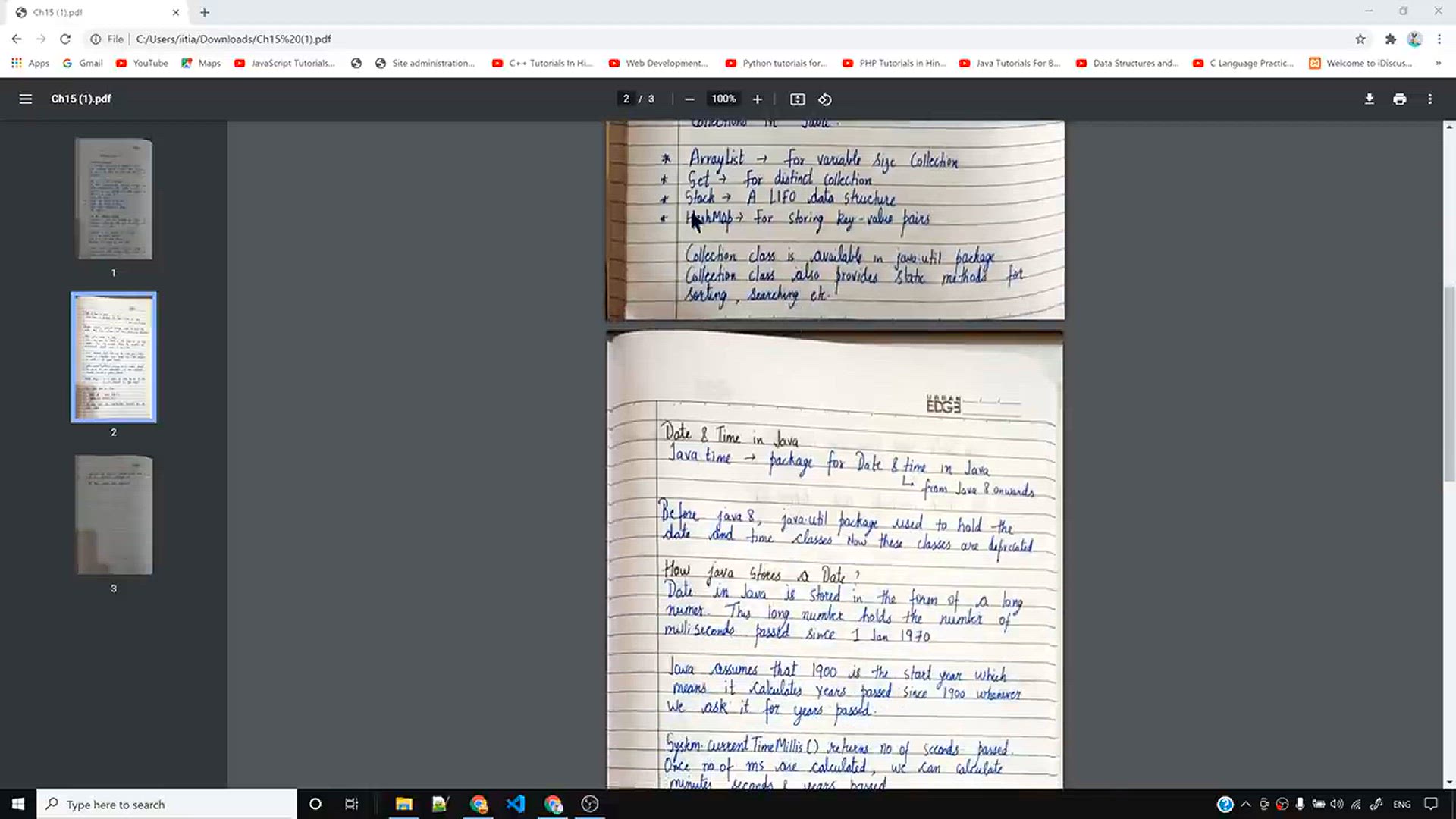
Date and Time in Java
24 views · Feb 12, 2024 codehunter.online
The "Date and Time in Java" video provides an overview of handling dates and times in Java using the java.time package introduced in Java 8. It explores the various classes and methods available in java.time, such as LocalDate, LocalTime, LocalDateTime, ZonedDateTime, Period, and Duration, to represent and manipulate dates, times, and time zones effectively. The video covers how to perform operations like parsing, formatting, arithmetic, and comparison on date and time objects, along with handling time zones and daylight saving time adjustments. Through clear explanations and practical examples, viewers learn how to work with dates and times in Java programming, leveraging the robust capabilities provided by the java.time package for accurate and reliable date and time management. This tutorial serves as a valuable resource for learners seeking to understand the modern approach to handling date and time in Java applications.

Calendar Class in Java
20 views · Feb 12, 2024 codehunter.online
The "Calendar Class in Java" video introduces the Calendar class, which provides functionality for working with dates and times in Java. It covers how to create Calendar objects, set specific dates and times, and perform various operations such as adding and subtracting time units. The video also explains how to extract information such as the day of the week, month, or year from a Calendar object. Through clear explanations and practical examples, viewers gain insight into how to use the Calendar class effectively for date and time manipulation in Java programming. This tutorial serves as a valuable resource for learners seeking to understand traditional date and time handling in Java using the Calendar class.
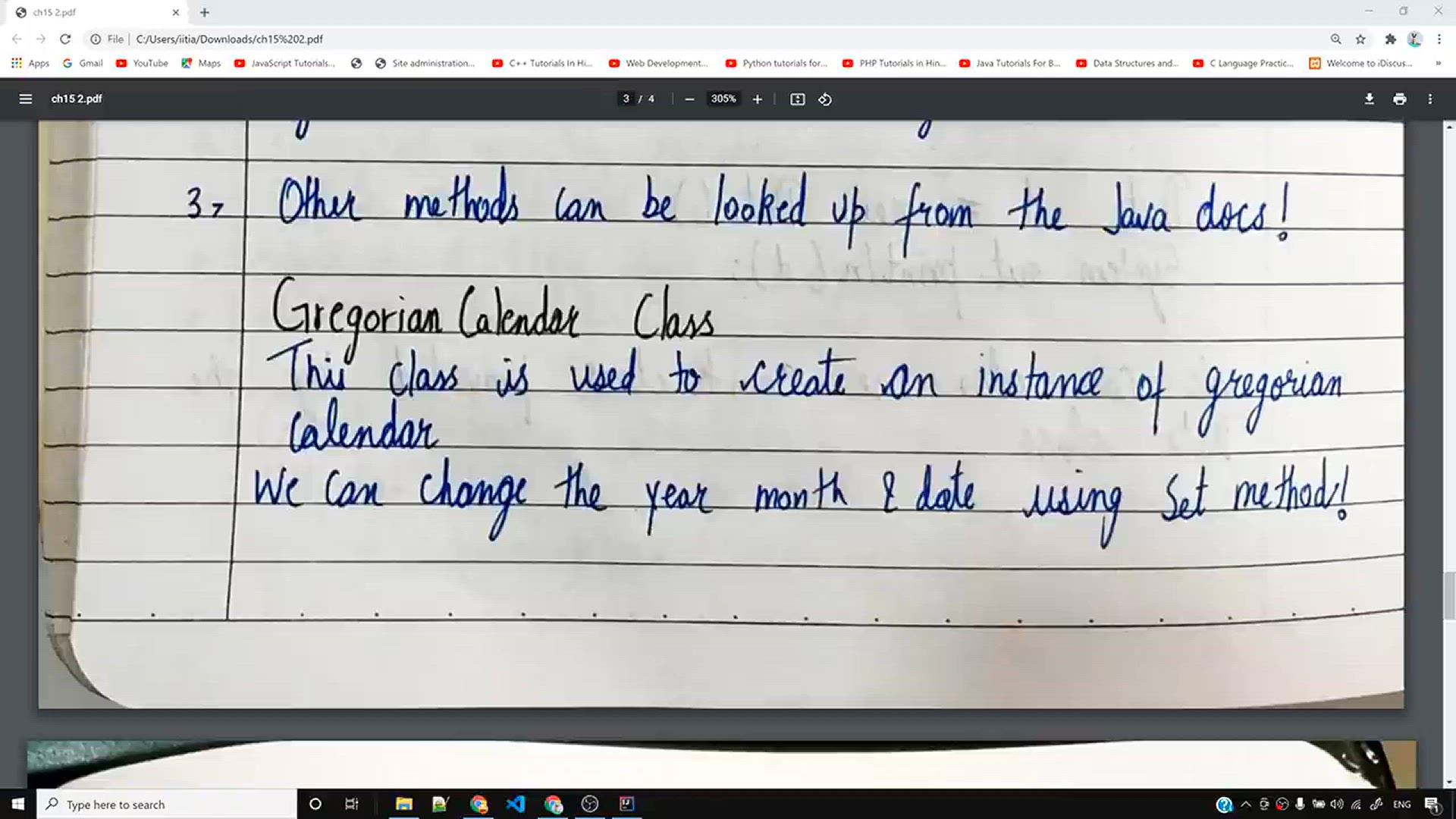
GregorianCalendar class & TimeZone in java
22 views · Feb 12, 2024 codehunter.online
The "GregorianCalendar Class & TimeZone in Java" video explores the GregorianCalendar class and TimeZone functionality, which are used for managing dates, times, and time zones in Java. It delves into how GregorianCalendar extends the Calendar class to provide enhanced capabilities, including support for the Gregorian calendar system and time calculations. Additionally, the video discusses TimeZone, explaining how it represents a geographic region's standard time offset from Coordinated Universal Time (UTC) and how it's used to handle time zone conversions and adjustments. Through clear explanations and practical examples, viewers learn how to use the GregorianCalendar class and TimeZone functionality effectively for precise date and time management in Java programming. This tutorial serves as a valuable resource for learners seeking to understand advanced date and time handling and time zone management in Java applications.
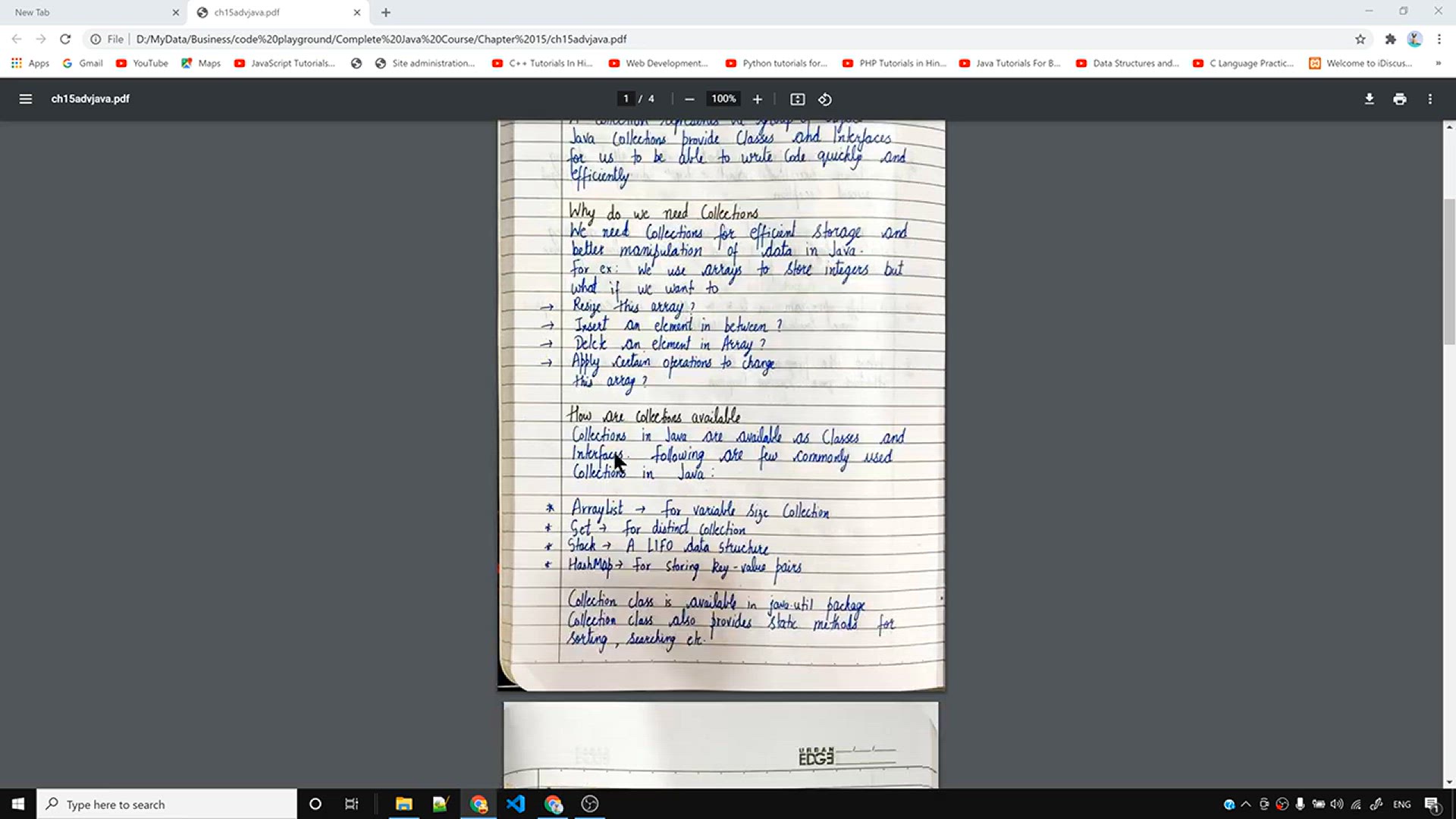
java.time API - Classes & Methods
785 views · Feb 12, 2024 codehunter.online
The "java.time API - Classes & Methods" video offers an in-depth exploration of the java.time package, introduced in Java 8, which provides modern date and time functionality. It covers the various classes and methods available in the java.time API, including LocalDate, LocalTime, LocalDateTime, ZonedDateTime, Duration, and Period. The video demonstrates how to create, manipulate, and format date and time objects using these classes, along with performing various operations such as arithmetic, comparison, and parsing. Through clear explanations and practical examples, viewers gain insight into how to leverage the java.time API effectively for accurate and reliable date and time management in Java programming. This tutorial serves as a valuable resource for learners seeking to master modern date and time handling in Java applications.
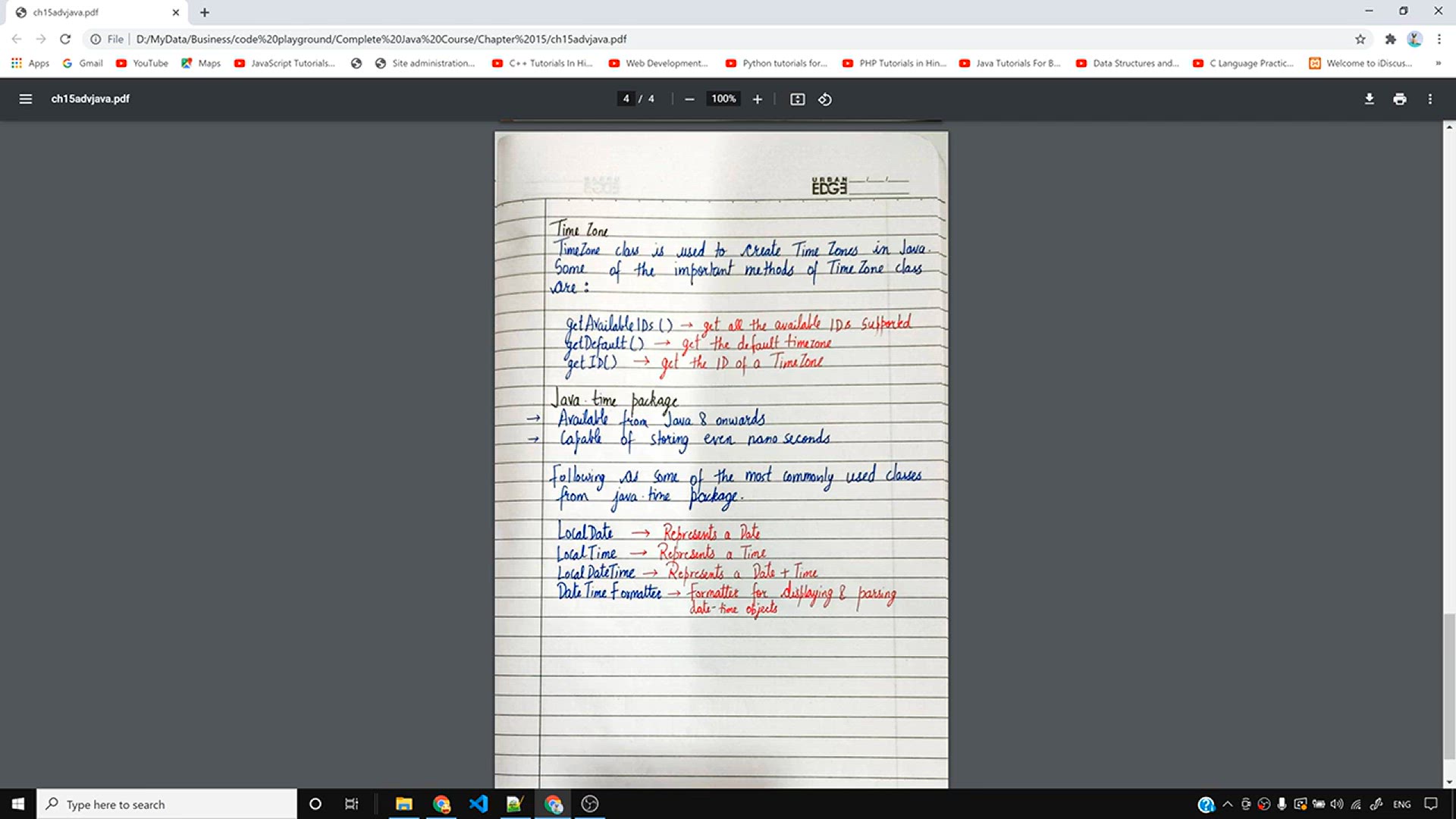
DateTimeFormatter in Java
943 views · Feb 12, 2024 codehunter.online
The "DateTimeFormatter in Java" video explores the DateTimeFormatter class in Java, which is used to format and parse dates and times in various formats. It covers how to create DateTimeFormatter objects, specify custom patterns for formatting and parsing dates and times, and how to use predefined formatter constants provided by the class. The video also demonstrates how to format and parse dates and times using localized formats, enabling support for different languages and regions. Through clear explanations and practical examples, viewers learn how to use DateTimeFormatter effectively for precise and flexible date and time formatting and parsing in Java programming. This tutorial serves as a valuable resource for learners seeking to understand advanced date and time handling techniques in Java applications.
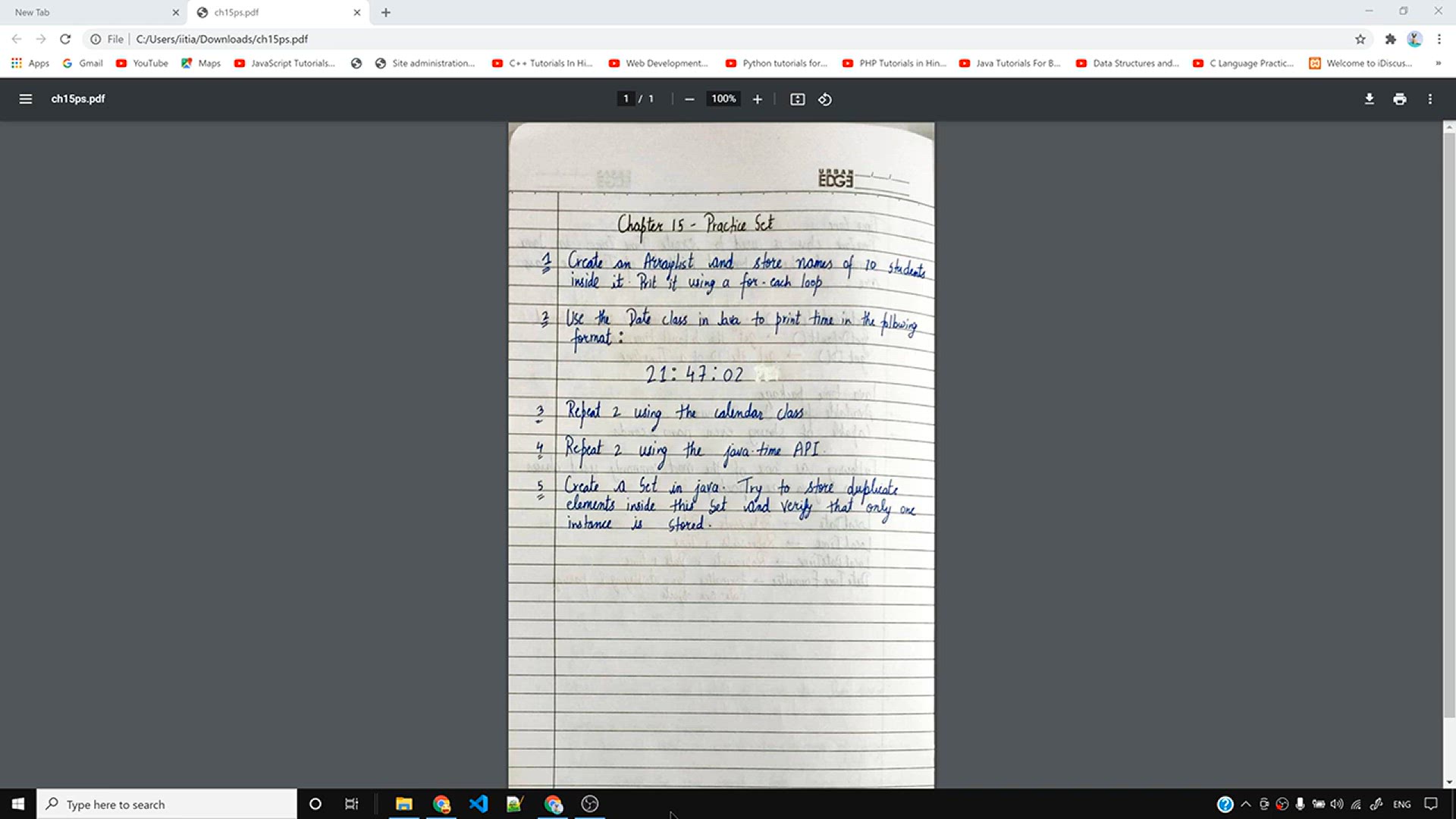
Advanced Java Practice Set
42 views · Feb 12, 2024 codehunter.online
The "Advanced Java Practice Set" video presents a series of challenging programming exercises aimed at reinforcing advanced Java programming concepts. These exercises cover a range of topics, including multithreading, collections, date and time handling, and exception handling. Through these practice problems, viewers have the opportunity to apply their knowledge and skills to solve real-world programming challenges, enhancing their problem-solving abilities and deepening their understanding of advanced Java concepts. By tackling these exercises, viewers can further develop their proficiency in Java programming and gain confidence in tackling complex programming tasks. This video serves as an engaging resource for learners seeking to hone their skills and expand their expertise in advanced Java programming.
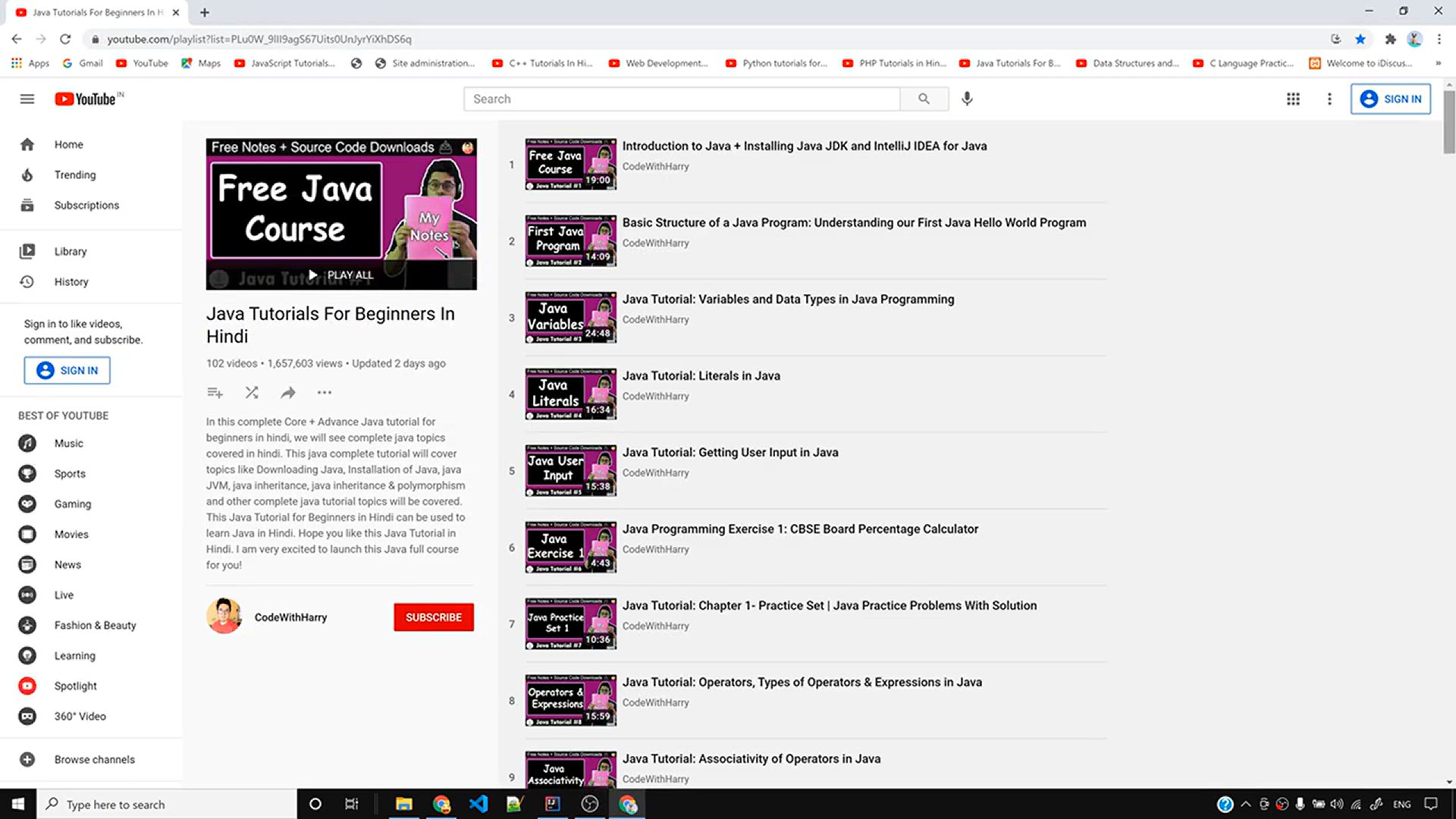
Java Exercise 6_ Solution _ Custom Calculator
19 views · Feb 12, 2024 codehunter.online
The "Java Exercise 6: Solution - Custom Calculator" video provides a comprehensive solution to the programming exercise centered around creating a custom calculator in Java. Viewers are guided through the step-by-step process of designing and implementing the custom calculator application. The video demonstrates how to define classes and methods to perform arithmetic operations such as addition, subtraction, multiplication, and division. Additionally, it covers how to handle user input, display results, and ensure error handling for invalid inputs. Through clear explanations and practical examples, viewers gain insight into how to approach and solve programming challenges in Java effectively. This tutorial serves as a valuable resource for learners seeking to reinforce their Java programming skills and gain confidence in developing applications.
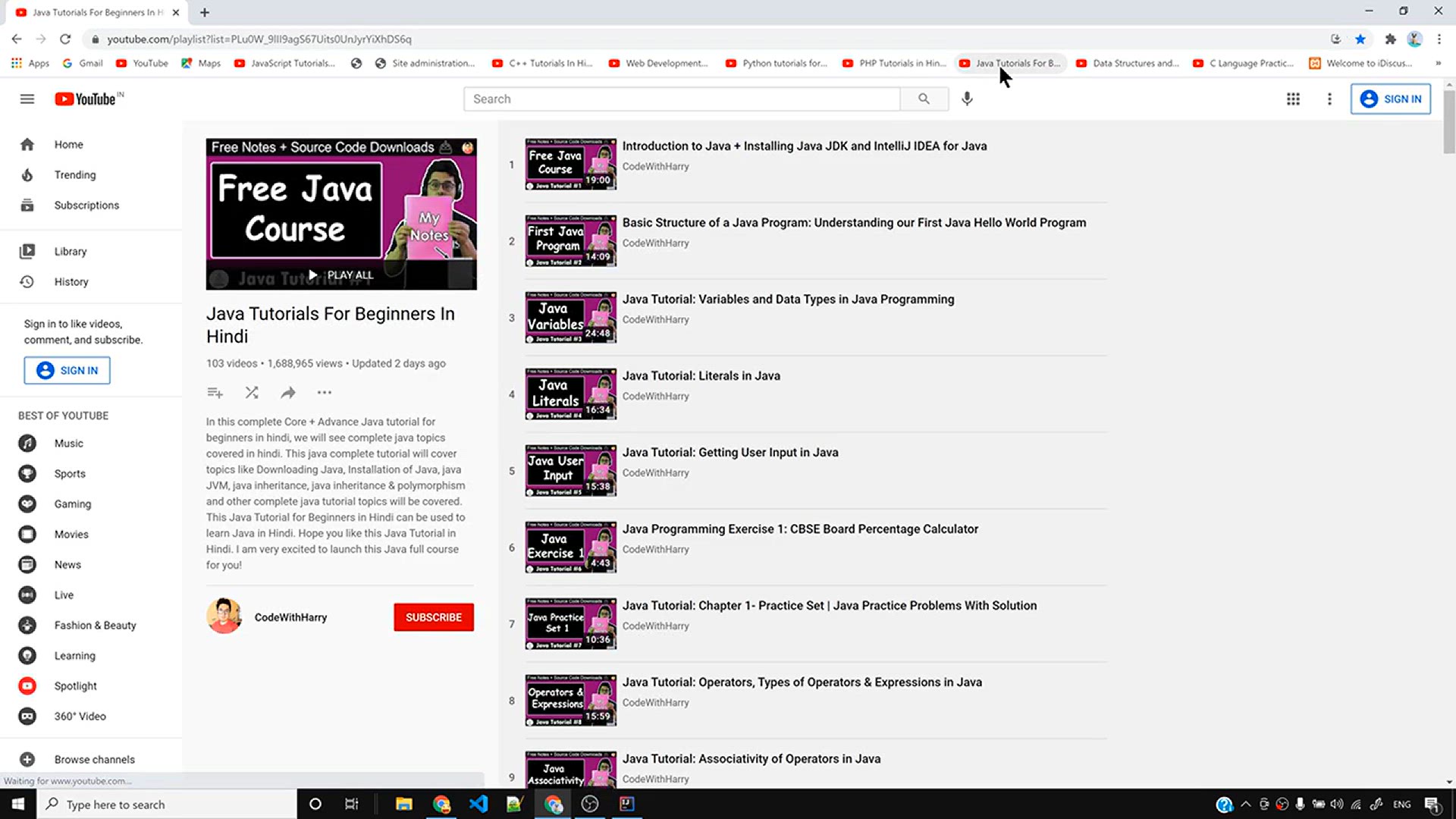
Java Exercise 7_ Library Management System in Java
140 views · Feb 12, 2024 codehunter.online
The "Java Exercise 7: Library Management System in Java" video presents a challenging programming exercise focused on implementing a library management system using Java. Viewers are tasked with designing and developing a system that allows users to perform various library-related tasks such as adding, removing, and searching for books, managing library members, and handling borrowing and returning books. The exercise encourages viewers to apply their knowledge of object-oriented programming, data structures, and file handling to create a robust and efficient library management system. Through step-by-step guidance and practical examples, viewers have the opportunity to enhance their problem-solving skills and deepen their understanding of Java programming concepts. This video serves as an engaging resource for learners seeking to expand their expertise in Java programming and develop real-world applications.
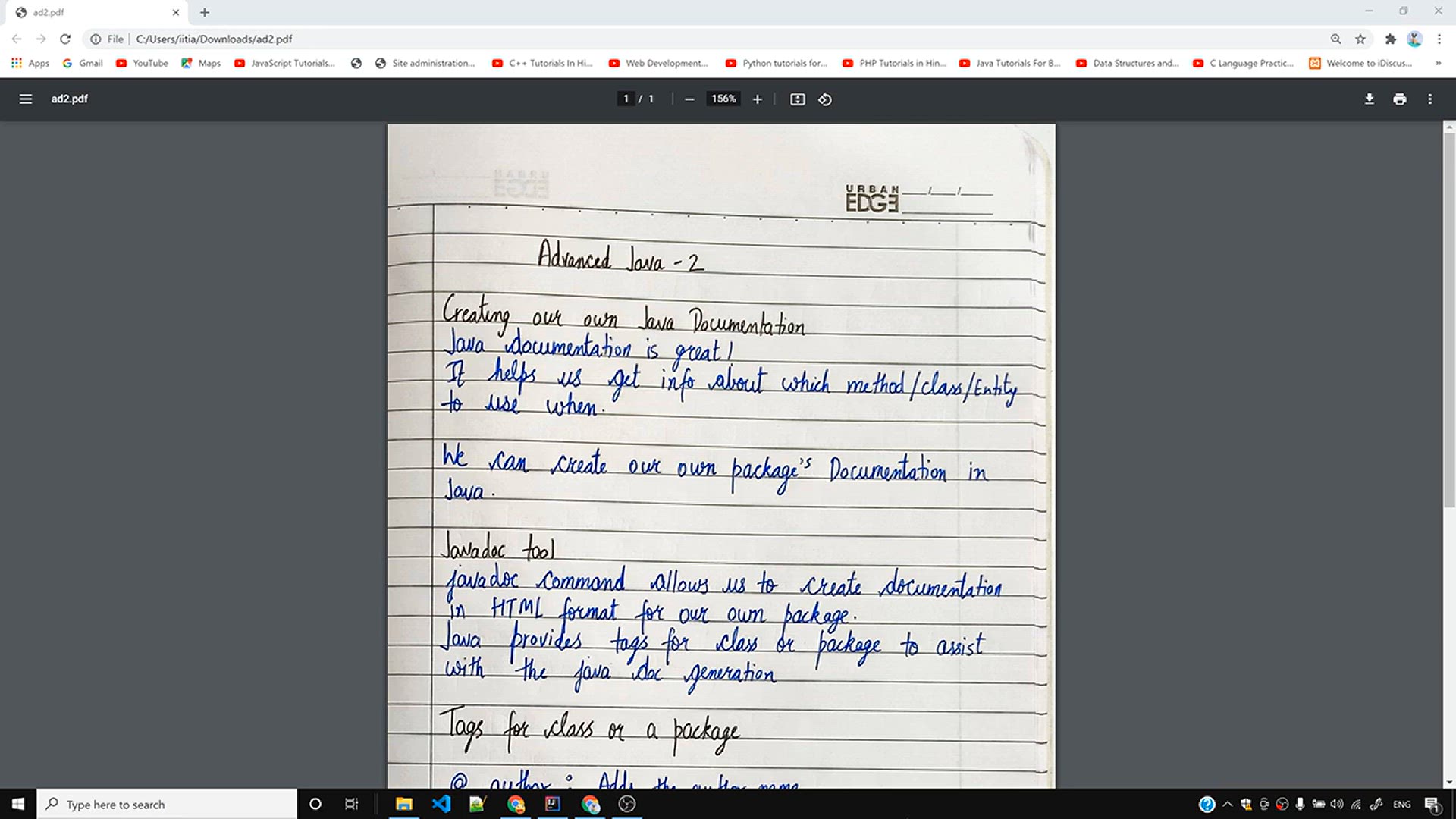
Generating our own JavaDocs for our Package
48 views · Feb 12, 2024 codehunter.online
The "Generating our own JavaDocs for our Package" video demonstrates the process of generating Java documentation (JavaDocs) for a custom Java package using the `javadoc` tool. It covers how to write meaningful comments and documentation within the source code, including descriptions of classes, methods, parameters, and return values. The video explains how to use the `javadoc` command to generate HTML documentation from the source code, specifying the package name and output directory. Through clear explanations and practical examples, viewers learn how to create professional and comprehensive documentation for their Java packages, enabling better code understanding and maintenance. This tutorial serves as a valuable resource for learners seeking to improve their code documentation practices and enhance collaboration and communication within their development teams.
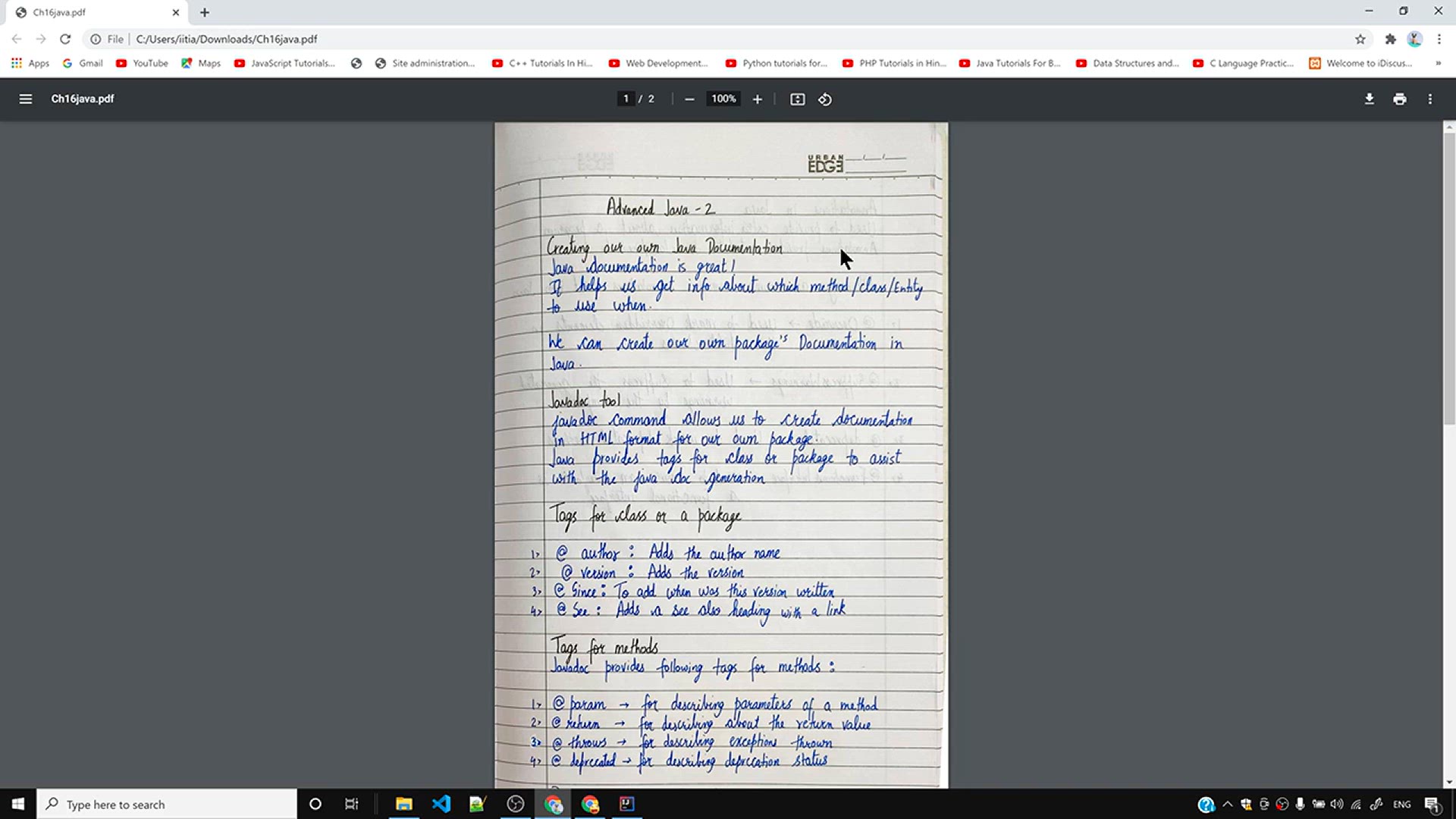
Javadocs_ Method Tags For Generating java Documentation
934 views · Feb 12, 2024 codehunter.online
The "Javadocs: Method Tags for Generating Java Documentation" video delves into the process of enriching Java documentation with method tags to generate comprehensive JavaDocs. It explores various method tags such as `@param`, `@return`, and `@throws`, which provide additional information about method parameters, return values, and exceptions, respectively. The video illustrates how to effectively use these tags within the code comments to produce clear and informative documentation. Through practical examples and clear explanations, viewers learn how to enhance the quality and readability of their Java documentation, facilitating better understanding and usage of their code by other developers. This tutorial serves as a valuable resource for learners seeking to master the art of producing high-quality Java documentation using method tags.
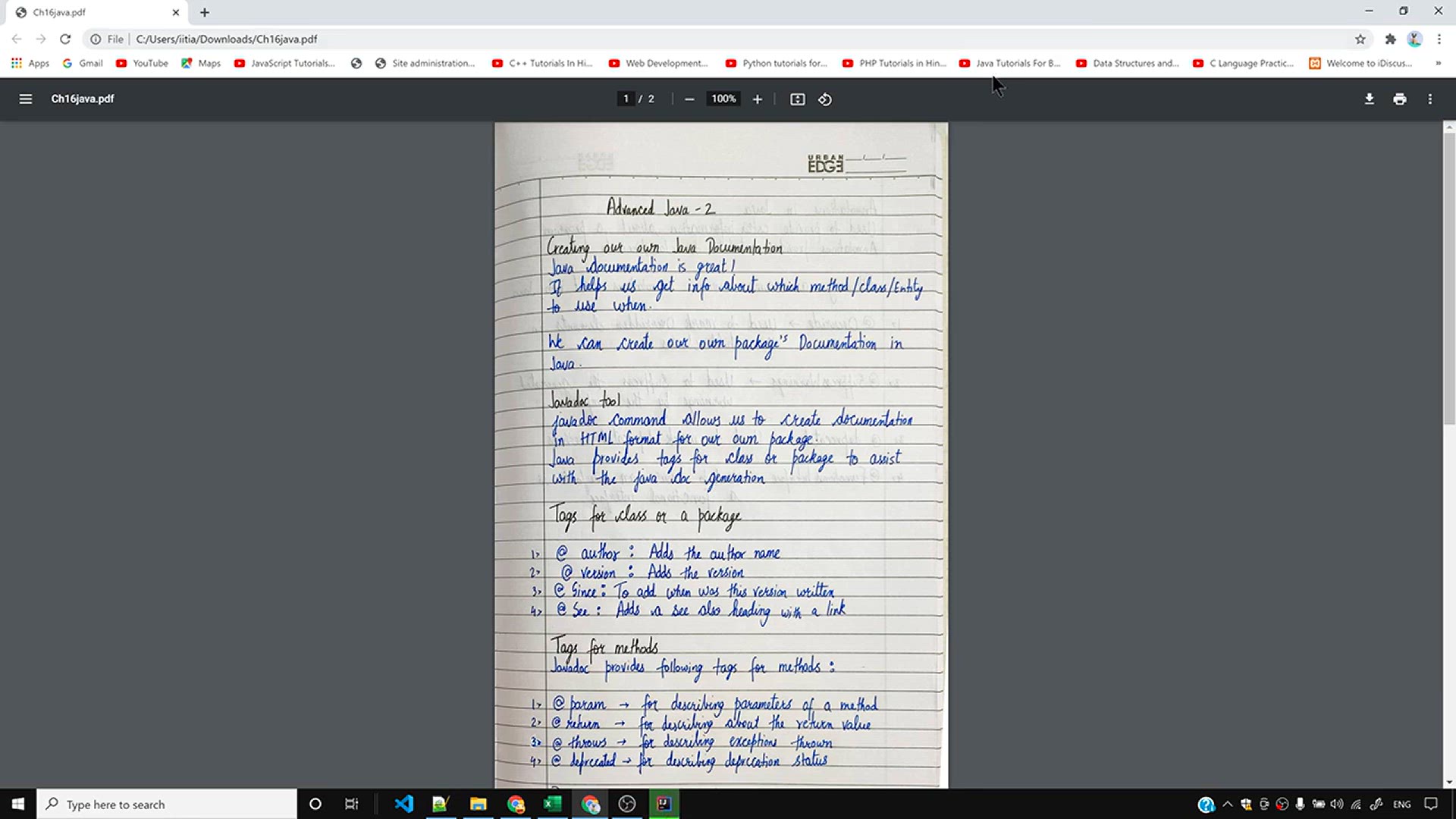
Annotations in Java
108 views · Feb 12, 2024 codehunter.online
The "Annotations in Java" video provides an overview of annotations, a powerful feature introduced in Java 5 for adding metadata to code elements. It explores the syntax and usage of annotations in Java, covering built-in annotations like @Override, @Deprecated, and @SuppressWarnings, as well as custom annotations. The video explains how annotations can be applied to classes, methods, fields, and other program elements to convey additional information to compilers, tools, and frameworks. Through practical examples and clear explanations, viewers learn how to leverage annotations to improve code readability, enable compile-time checks, and facilitate automated tasks in Java programming. This tutorial serves as a valuable resource for learners seeking to understand the principles and applications of annotations in Java development.
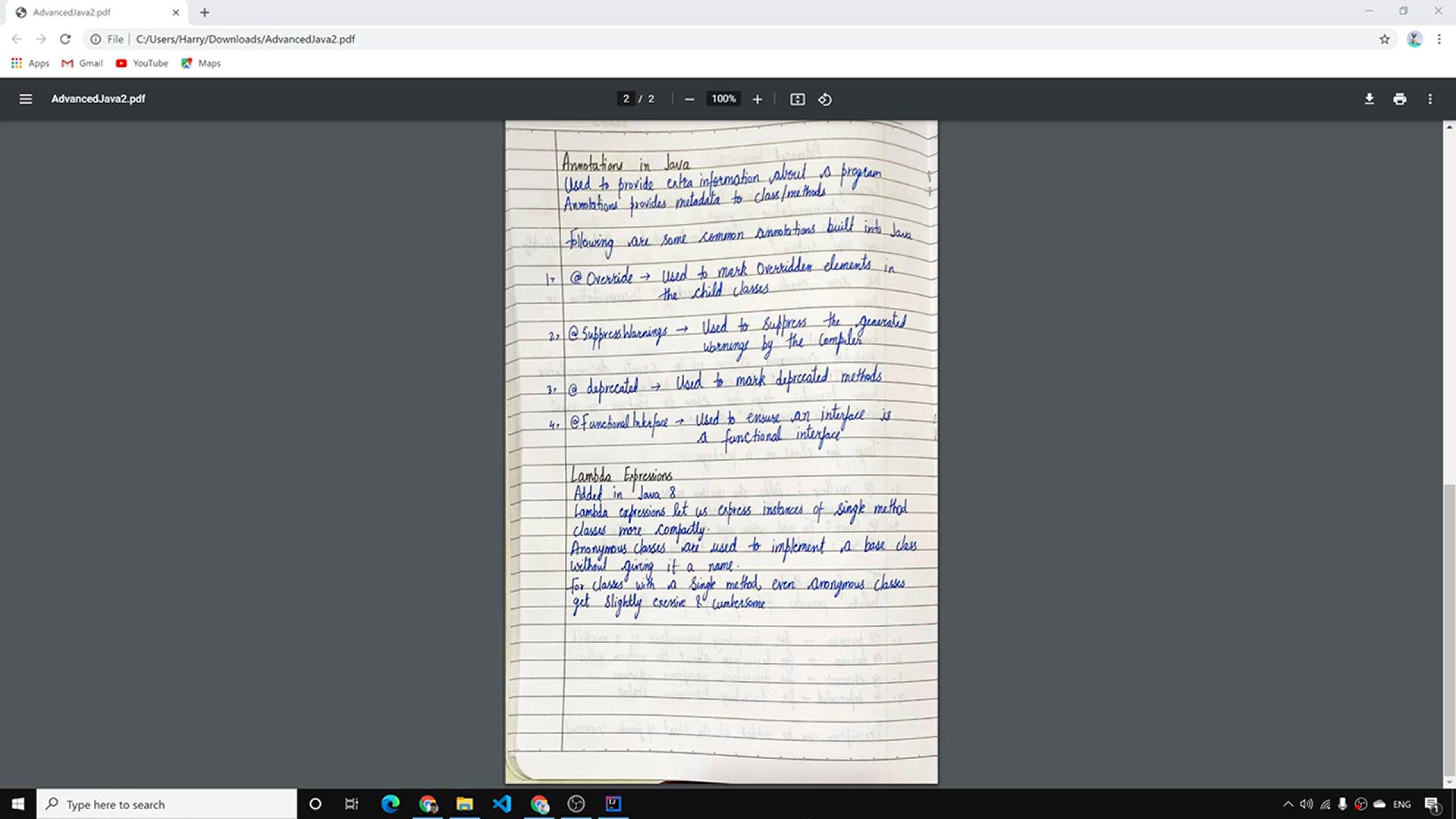
Java Anonymous Classes & Lambda Expressions
61 views · Feb 12, 2024 codehunter.online
The "Java Anonymous Classes & Lambda Expressions" video explores two powerful features in Java programming: anonymous classes and lambda expressions. It covers how anonymous classes allow for the creation of inline, unnamed classes that implement interfaces or extend classes, offering a concise way to define ad-hoc behavior. Additionally, the video introduces lambda expressions, which provide a more streamlined syntax for creating small, anonymous functions, especially useful when working with functional interfaces. Through clear explanations and practical examples, viewers learn how to leverage both anonymous classes and lambda expressions to write more expressive, readable, and concise code in Java. This tutorial serves as a valuable resource for learners seeking to understand advanced Java programming techniques and functional programming concepts.
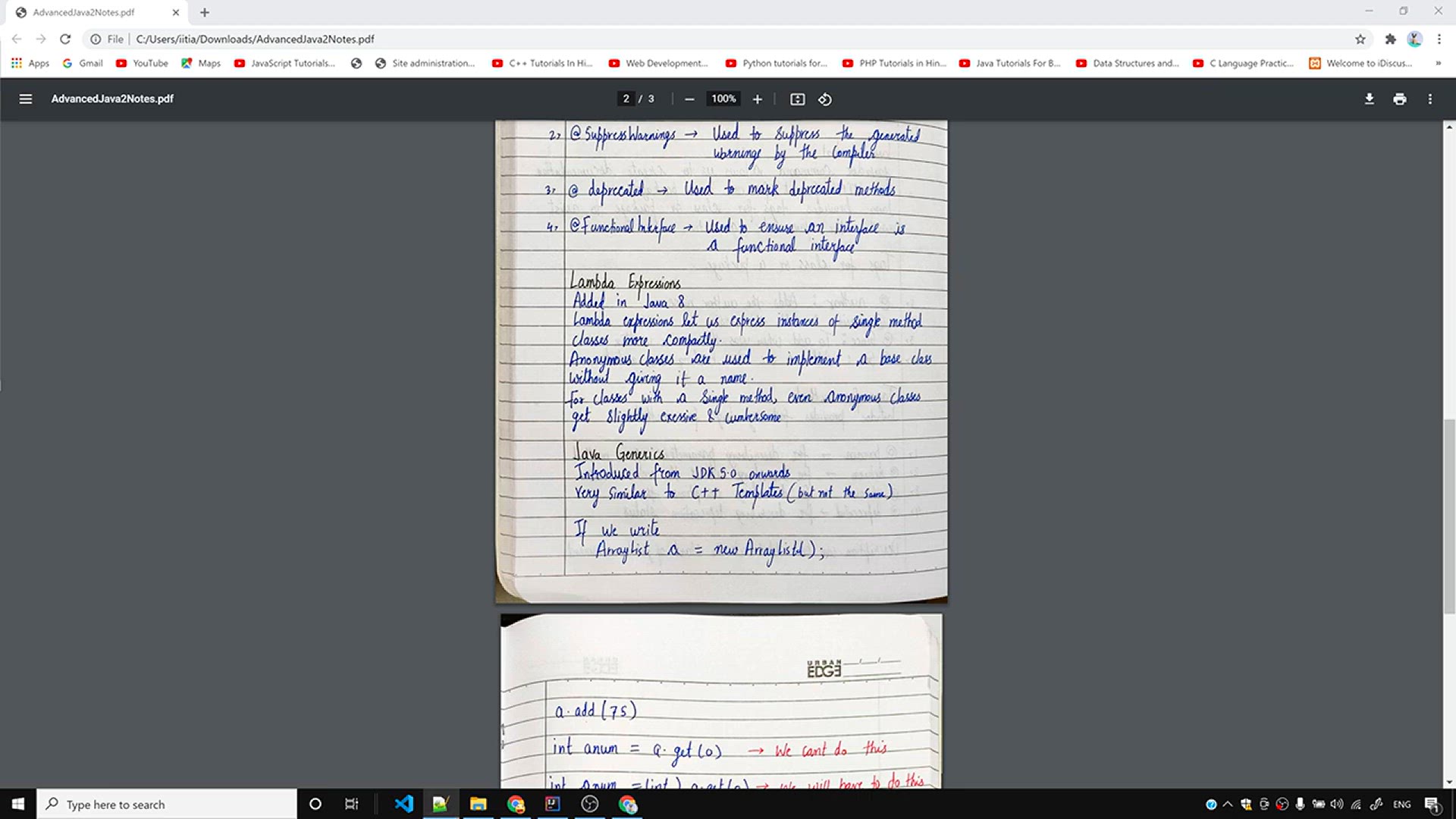
Java Generics
651 views · Feb 12, 2024 codehunter.online
The "Java Generics" video explores the concept of generics in Java, a powerful feature introduced in Java 5 that enables the creation of parameterized types. It covers how generics allow for type-safe collections and methods, enhancing code readability and maintainability. The video demonstrates how to define generic classes, methods, and interfaces, as well as how to use wildcard types to extend the flexibility of generics. Through clear explanations and practical examples, viewers learn how to leverage generics to write more reusable and flexible code in Java. This tutorial serves as a valuable resource for learners seeking to understand the principles and applications of generics in Java programming.
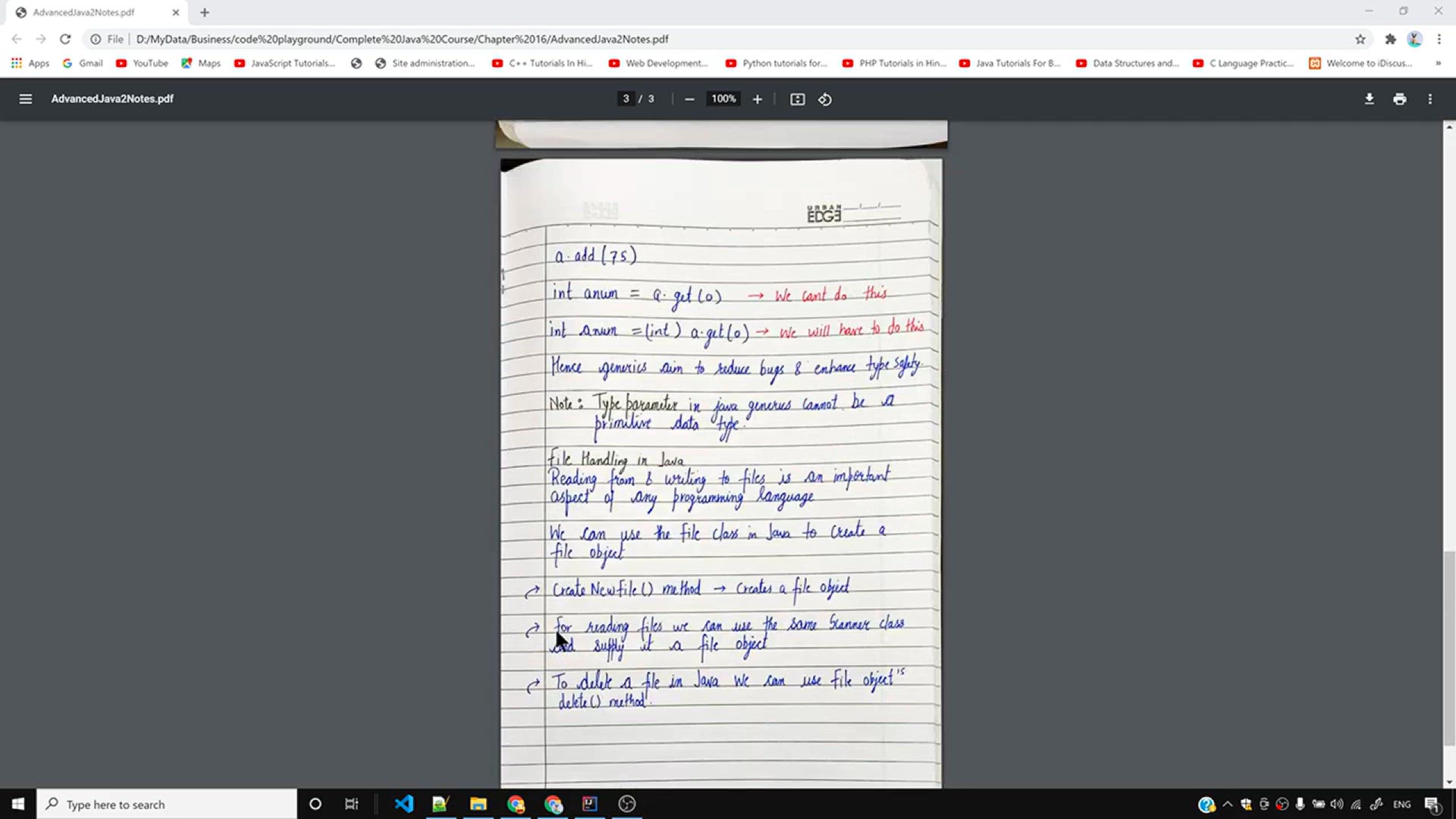
File Handling in Java
71 views · Feb 12, 2024 codehunter.online
The "File Handling in Java" video provides an overview of how to handle files in Java, covering the various operations that can be performed, such as reading from and writing to files, creating directories, and deleting files. It explores the classes and methods available in Java's File I/O API, including FileReader, FileWriter, BufferedReader, BufferedWriter, and File class, which enable developers to interact with files and directories effectively. The video demonstrates how to handle exceptions that may occur during file operations and emphasizes best practices for working with files in Java. Through clear explanations and practical examples, viewers learn how to implement file handling functionality in their Java applications. This tutorial serves as a valuable resource for learners seeking to understand and master file handling techniques in Java programming.
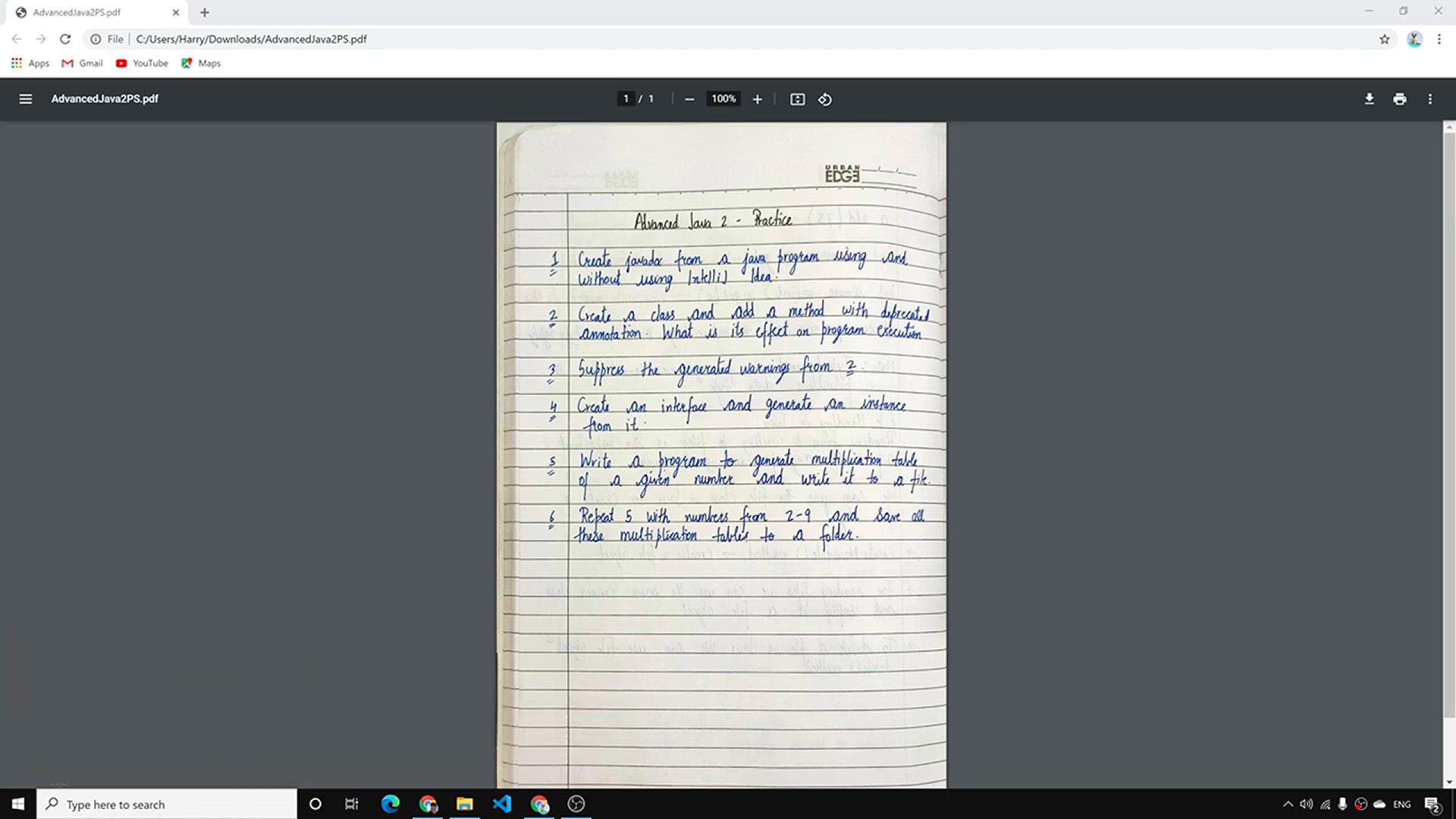
Advanced Java 2 - Practice Set
5K views · Feb 12, 2024 codehunter.online
The "Advanced Java 2 - Practice Set" video presents a series of advanced programming exercises aimed at reinforcing and expanding upon the Java skills acquired in previous tutorials. These exercises cover a wide range of topics, including multithreading, collections, exception handling, generics, file handling, and more. By engaging with these challenging problems, viewers have the opportunity to further deepen their understanding of advanced Java concepts and improve their problem-solving skills. Through clear explanations and practical examples, viewers can enhance their proficiency in Java programming and gain confidence in tackling complex programming tasks. This video serves as an engaging resource for learners seeking to expand their expertise in advanced Java programming.
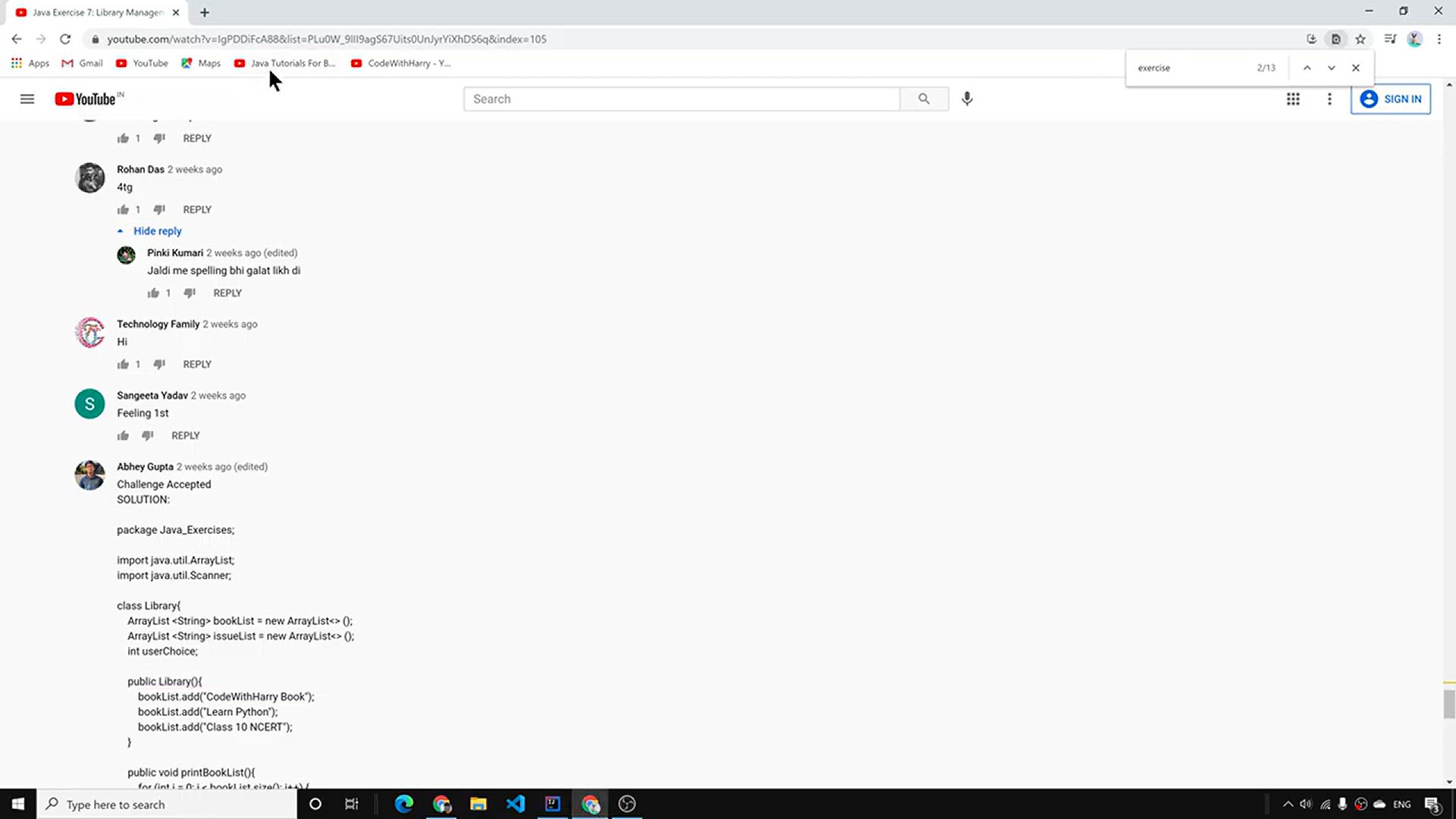
Exercise 7_ Solutions + Shoutouts
41 views · Feb 12, 2024 codehunter.online
The "Exercise 7: Solutions + Shoutouts" video provides comprehensive solutions to the programming exercises presented in a previous session, likely Exercise 7. Additionally, the video acknowledges and appreciates viewer engagement and participation, known as shoutouts. The solutions offered walk viewers through the step-by-step process of solving each exercise, ensuring clarity and understanding. By following these solutions, viewers can solidify their understanding of Java programming concepts and gain insights into problem-solving strategies. This video serves as a valuable resource for learners seeking to reinforce their skills and deepen their knowledge of Java programming.
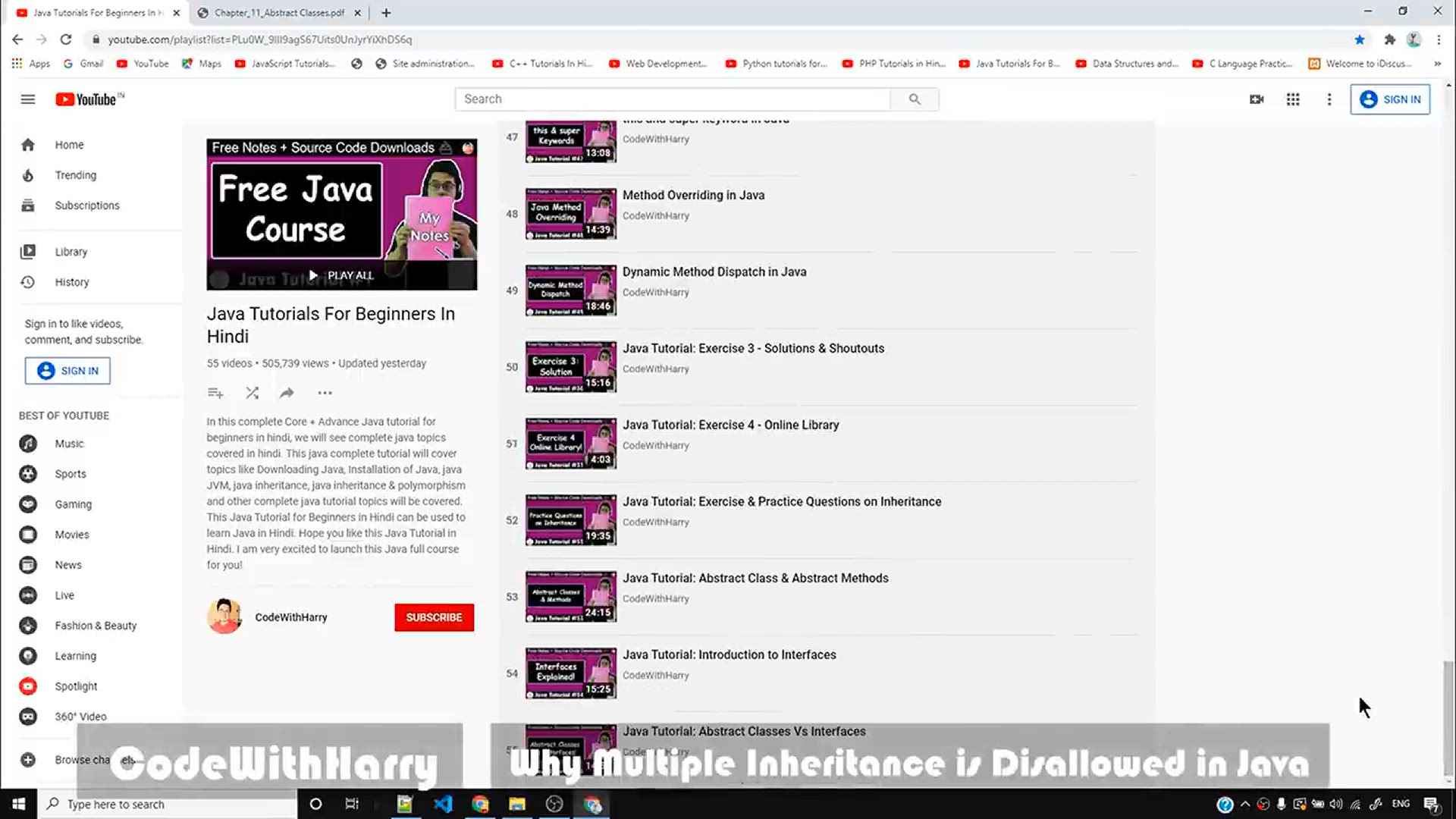
Why multiple inheritance is not supported in java_
80 views · Feb 12, 2024 codehunter.online
The "Why Multiple Inheritance is Not Supported in Java" video addresses the concept of multiple inheritance and explains why it is not directly supported in Java. It discusses the challenges and complexities associated with multiple inheritance, such as the diamond problem and ambiguity in method resolution. The video also explores how Java's design principles, particularly the desire for simplicity and avoidance of ambiguity, led to the decision to avoid multiple inheritance in the language. Through clear explanations and practical examples, viewers gain insight into the rationale behind Java's design choices and how to work around limitations related to multiple inheritance in Java programming. This tutorial serves as a valuable resource for learners seeking to understand the trade-offs and considerations involved in language design decisions.
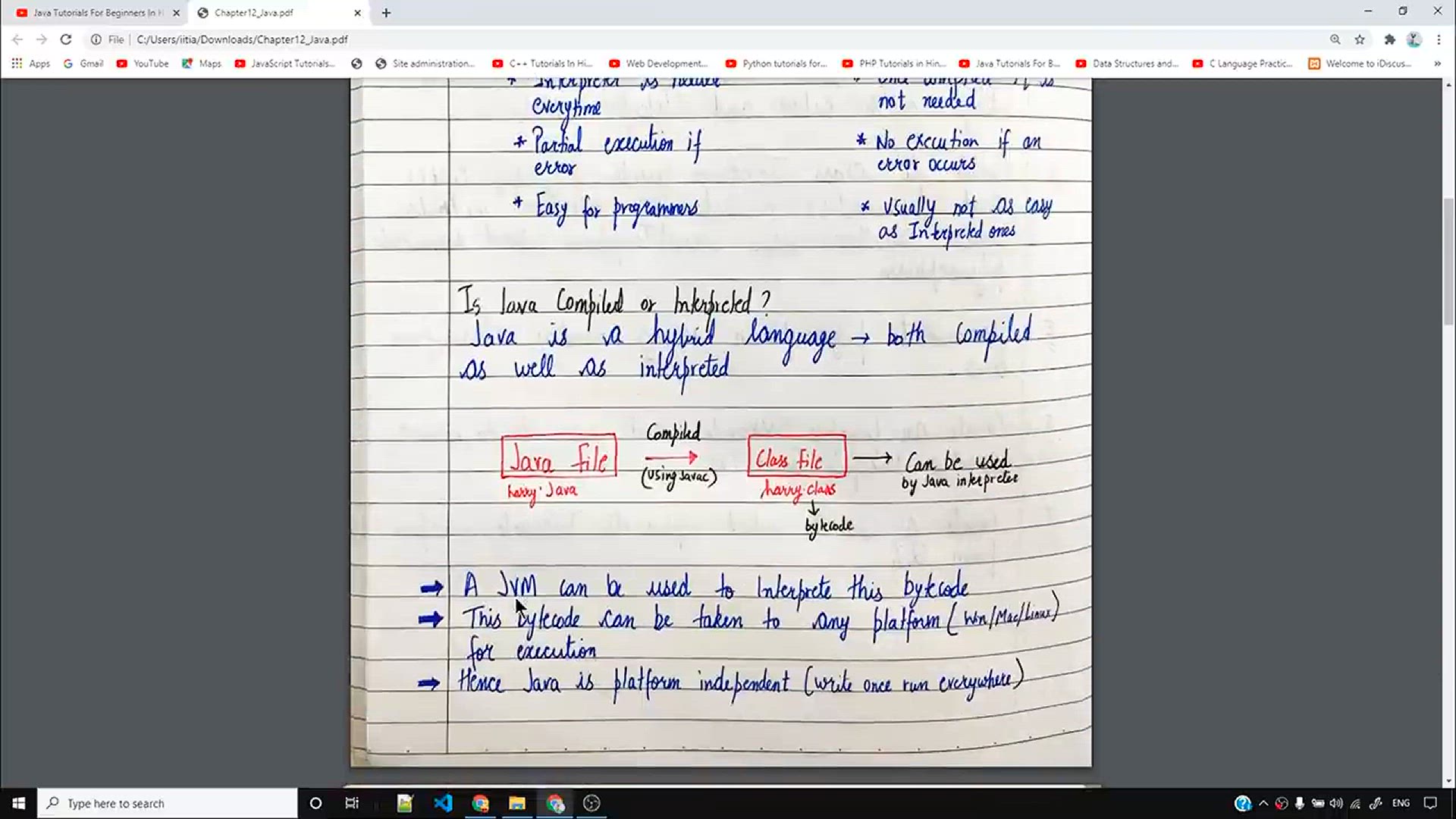
Packages in Java
73 views · Feb 12, 2024 codehunter.online
The "Packages in Java" video provides an overview of the concept of packages in Java, which are used to organize and structure code into logical units. It covers how packages help manage large codebases by providing a namespace for classes and preventing naming conflicts. The video explains how to create, import, and use packages in Java, as well as how to access classes from different packages within a Java program. Through clear explanations and practical examples, viewers learn how to effectively organize their Java code into packages to improve code organization, reusability, and maintainability. This tutorial serves as a valuable resource for learners seeking to understand the fundamentals of packaging in Java programming.
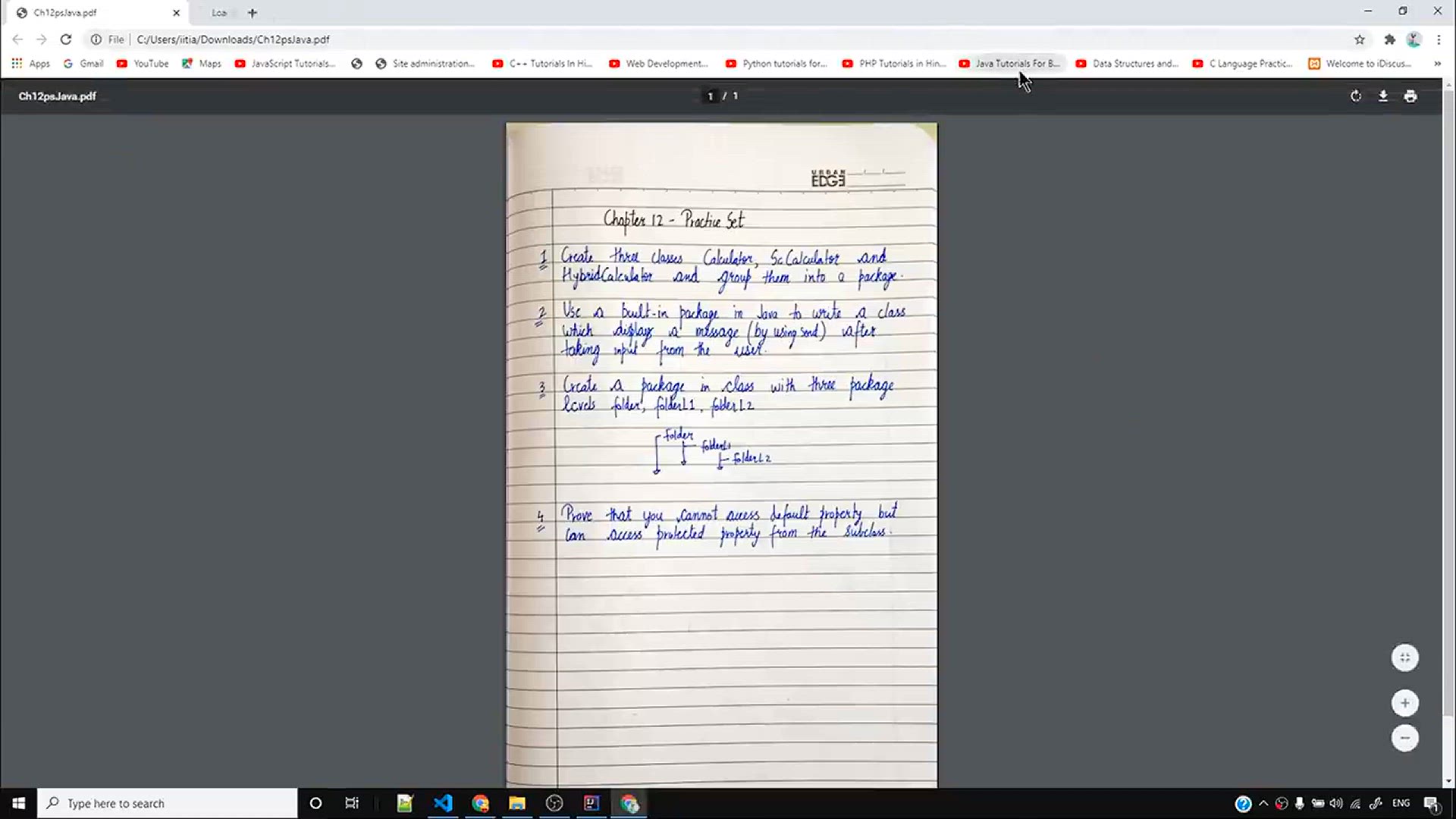
Practice Set on Java Package & Access Modifiers
14 views · Feb 12, 2024 codehunter.online
The "Practice Set on Java Package & Access Modifiers" video presents a series of programming exercises focused on reinforcing knowledge of Java packages and access modifiers. These exercises cover various aspects, such as creating and organizing classes into packages, accessing classes from different packages, and applying access modifiers (public, private, protected, default) to control visibility and accessibility of class members. Through practical examples and guided solutions, viewers have the opportunity to strengthen their understanding of packaging and access control in Java programming. By engaging with these exercises, learners can improve their proficiency in organizing and managing Java code effectively. This video serves as a valuable resource for learners seeking to solidify their knowledge of Java packages and access modifiers through hands-on practice.
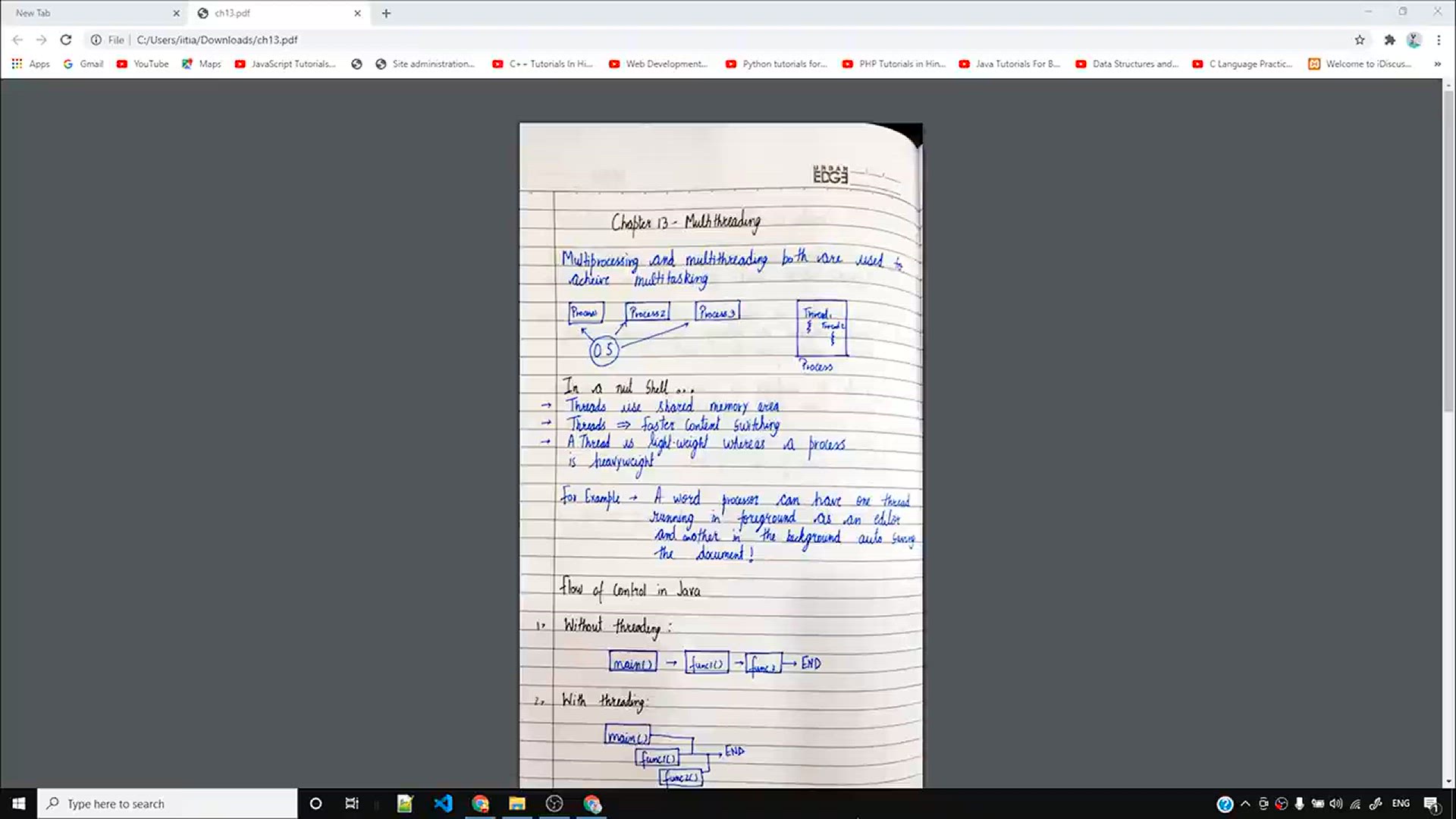
Multithreading in Java
311 views · Feb 12, 2024 codehunter.online
The "Multithreading in Java" video introduces the concept of multithreading and explains how it is implemented in Java. Multithreading allows programs to execute multiple tasks concurrently, improving performance and responsiveness. This video covers topics such as creating and managing threads, synchronization, thread lifecycle, and thread pooling. Through clear explanations and practical examples, viewers learn how to leverage multithreading to write efficient and responsive Java applications. This tutorial serves as a valuable resource for learners seeking to understand and implement multithreading in Java programming.
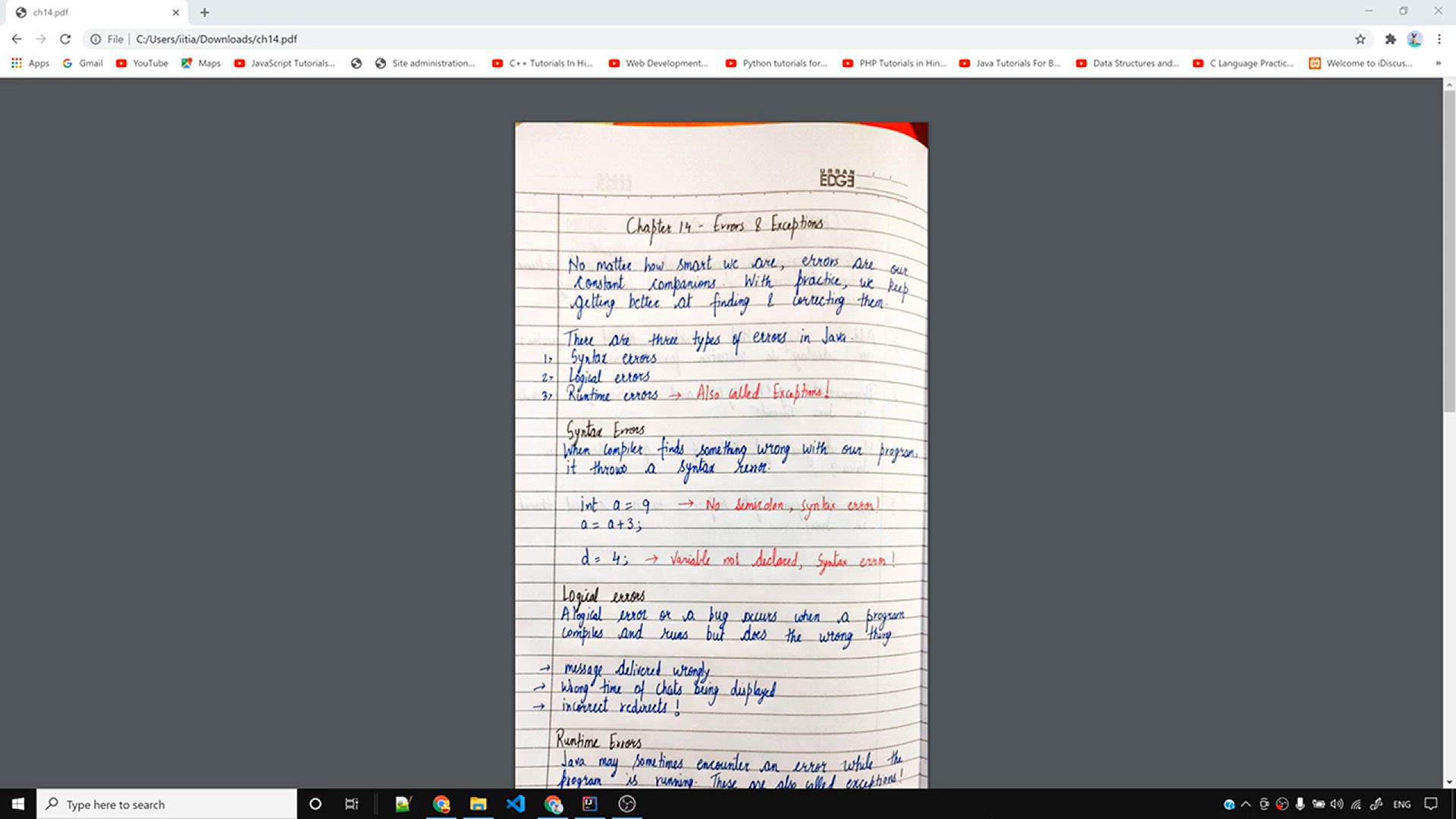
Syntax Errors, Runtime Errors & Logical Errors in Java (...
269 views · Feb 12, 2024 codehunter.online
The "Syntax Errors, Runtime Errors & Logical Errors in Java (Demo)" video provides a demonstration of the three main types of errors encountered in Java programming: syntax errors, runtime errors, and logical errors. It explores how syntax errors occur due to violations of the language's rules and are detected by the compiler during the compilation process. The video also discusses how runtime errors occur during program execution, such as null pointer exceptions or arithmetic exceptions, and are detected by the Java Virtual Machine (JVM). Additionally, it covers logical errors, which result from flawed logic in the program's design and require careful debugging to identify and fix. Through practical examples and clear explanations, viewers gain insight into identifying and addressing different types of errors in Java programming, enhancing their debugging skills and code quality. This tutorial serves as a valuable resource for learners seeking to understand and troubleshoot errors encountered in Java development.
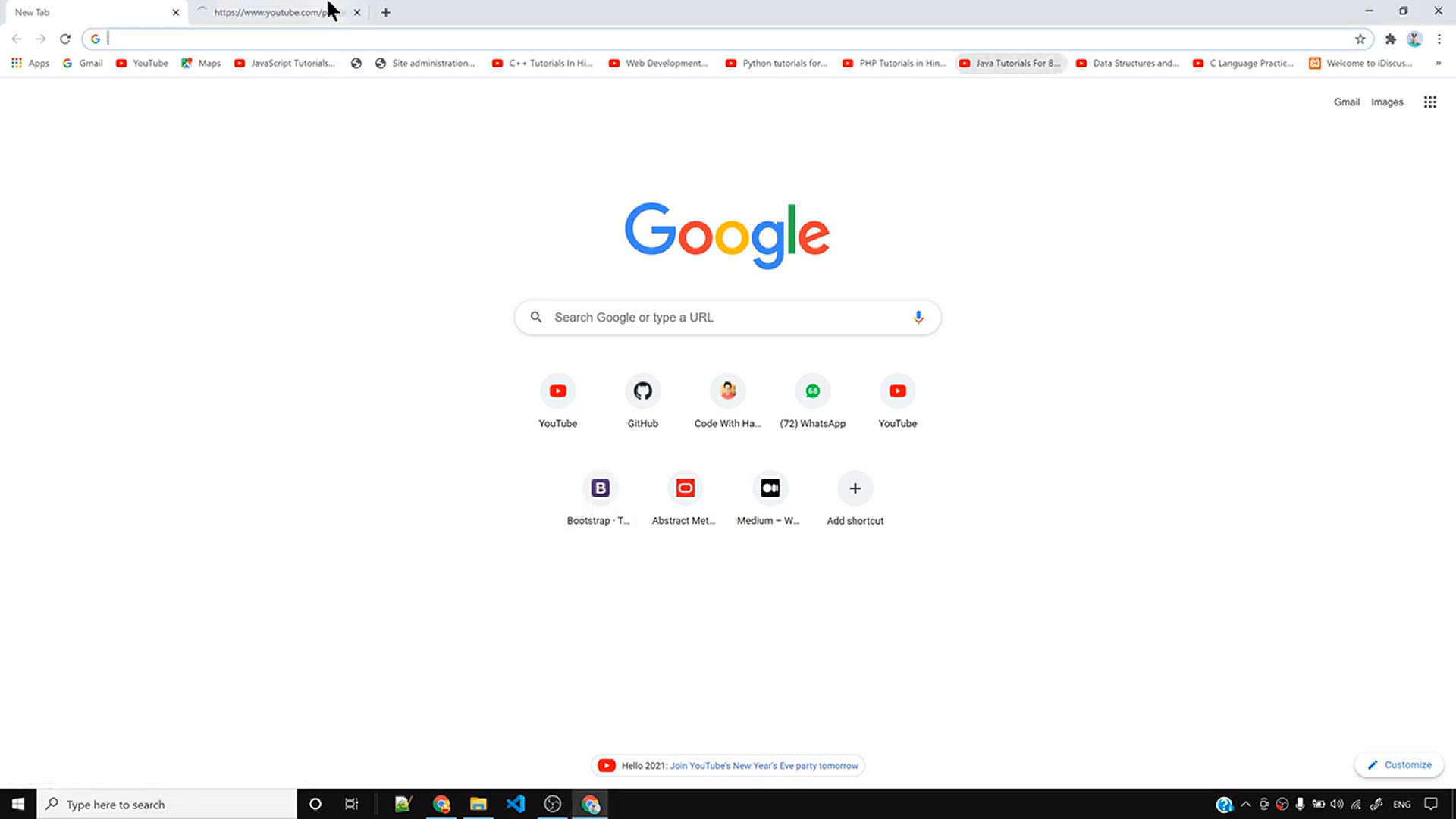
Try Catch Block in Java
55 views · Feb 12, 2024 codehunter.online
The "Try Catch Block in Java" video provides an overview of exception handling using the try-catch block in Java. It explains how the try block is used to enclose code that may potentially throw exceptions, while the catch block is used to handle and manage those exceptions. The video demonstrates the syntax of try-catch blocks and discusses the importance of handling exceptions to ensure robust and fault-tolerant code. Through clear explanations and practical examples, viewers learn how to use try-catch blocks effectively to gracefully handle exceptions and prevent program crashes. This tutorial serves as a valuable resource for learners seeking to understand exception handling concepts and techniques in Java programming.
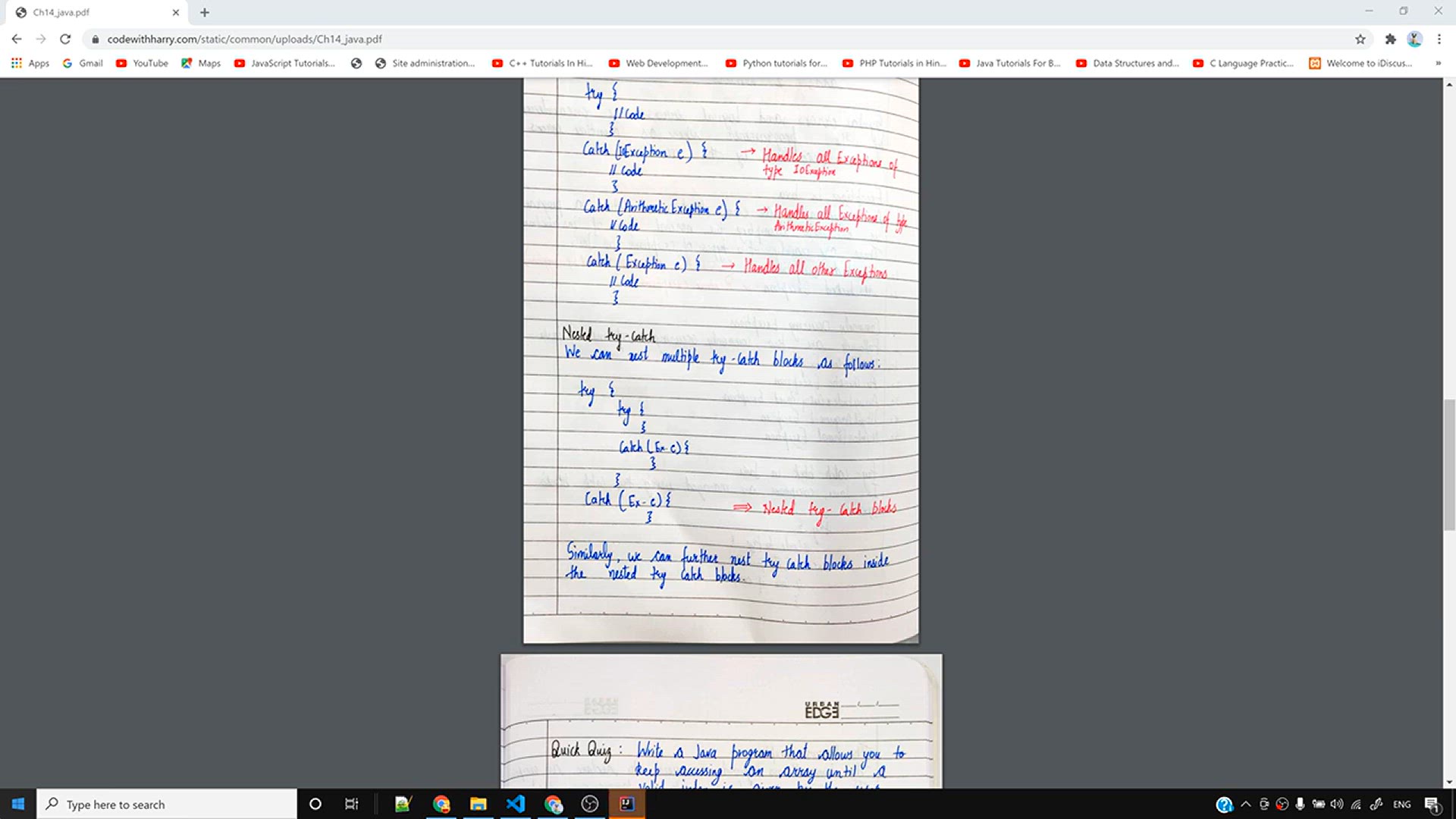
Nested Try-Catch in Java
135 views · Feb 12, 2024 codehunter.online
The "Nested Try-Catch in Java" video explores the concept of nested try-catch blocks in Java for more granular exception handling. It explains how nested try-catch blocks allow for handling exceptions at different levels of code execution, providing a finer level of control and flexibility in error management. The video demonstrates the syntax and usage of nested try-catch blocks, emphasizing their usefulness in scenarios where exceptions may occur within exception-handling code or in nested code structures. Through clear explanations and practical examples, viewers learn how to effectively utilize nested try-catch blocks to create robust and fault-tolerant Java applications. This tutorial serves as a valuable resource for learners seeking to deepen their understanding of exception handling techniques in Java programming.
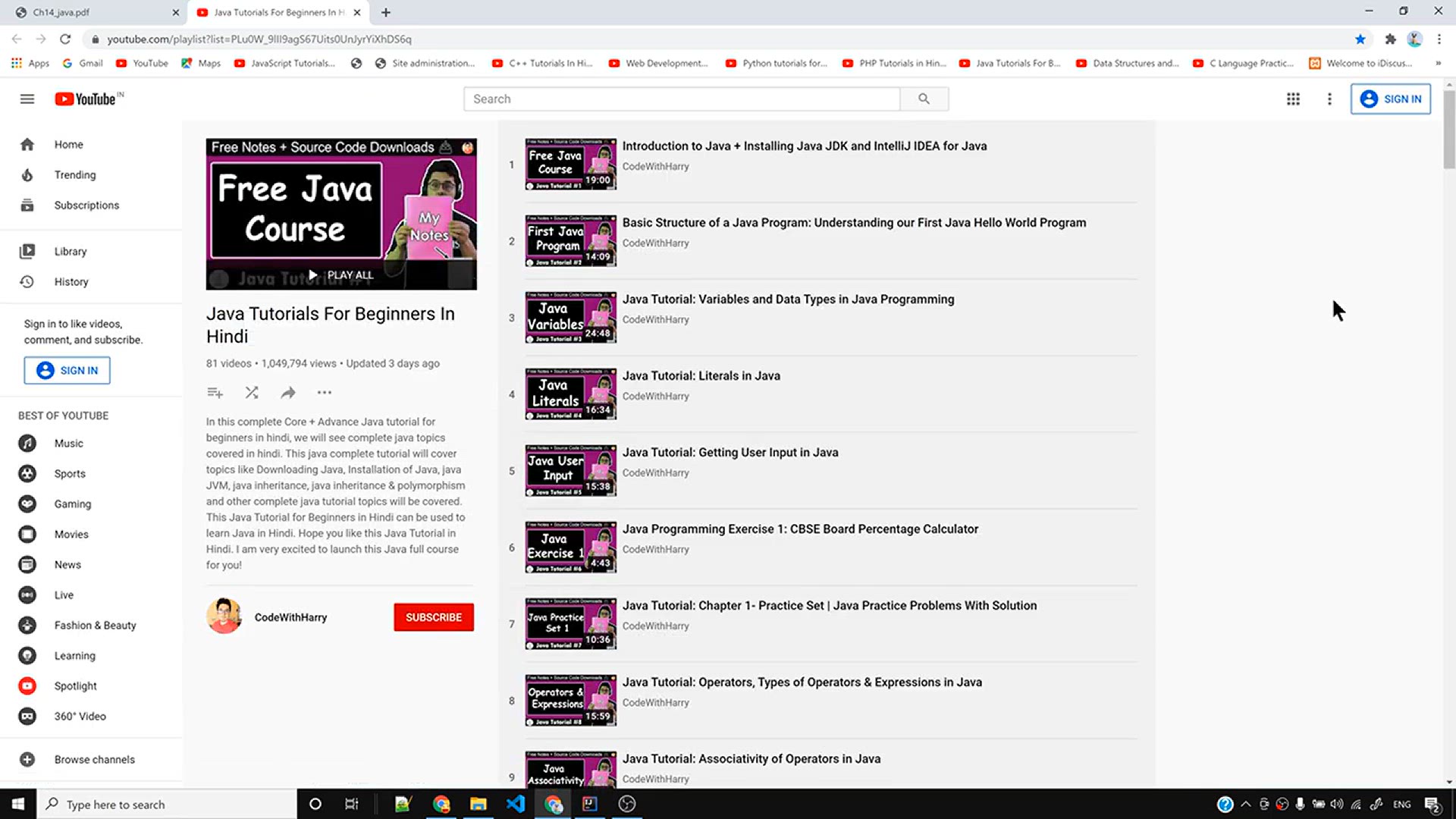
The Exception class in Java
20 views · Feb 12, 2024 codehunter.online
The "The Exception Class in Java" video delves into the Exception class, a fundamental part of Java's exception handling mechanism. It explores how exceptions are represented as objects in Java and discusses the hierarchy of exception classes, with Exception serving as the root class for all exceptions. The video explains how to create custom exception classes by extending the Exception class, allowing developers to define and handle specific types of errors in their Java programs. Through clear explanations and practical examples, viewers learn how to use the Exception class effectively to handle errors and exceptions in their Java applications. This tutorial serves as a valuable resource for learners seeking to understand the Exception class and its role in Java's exception handling framework.
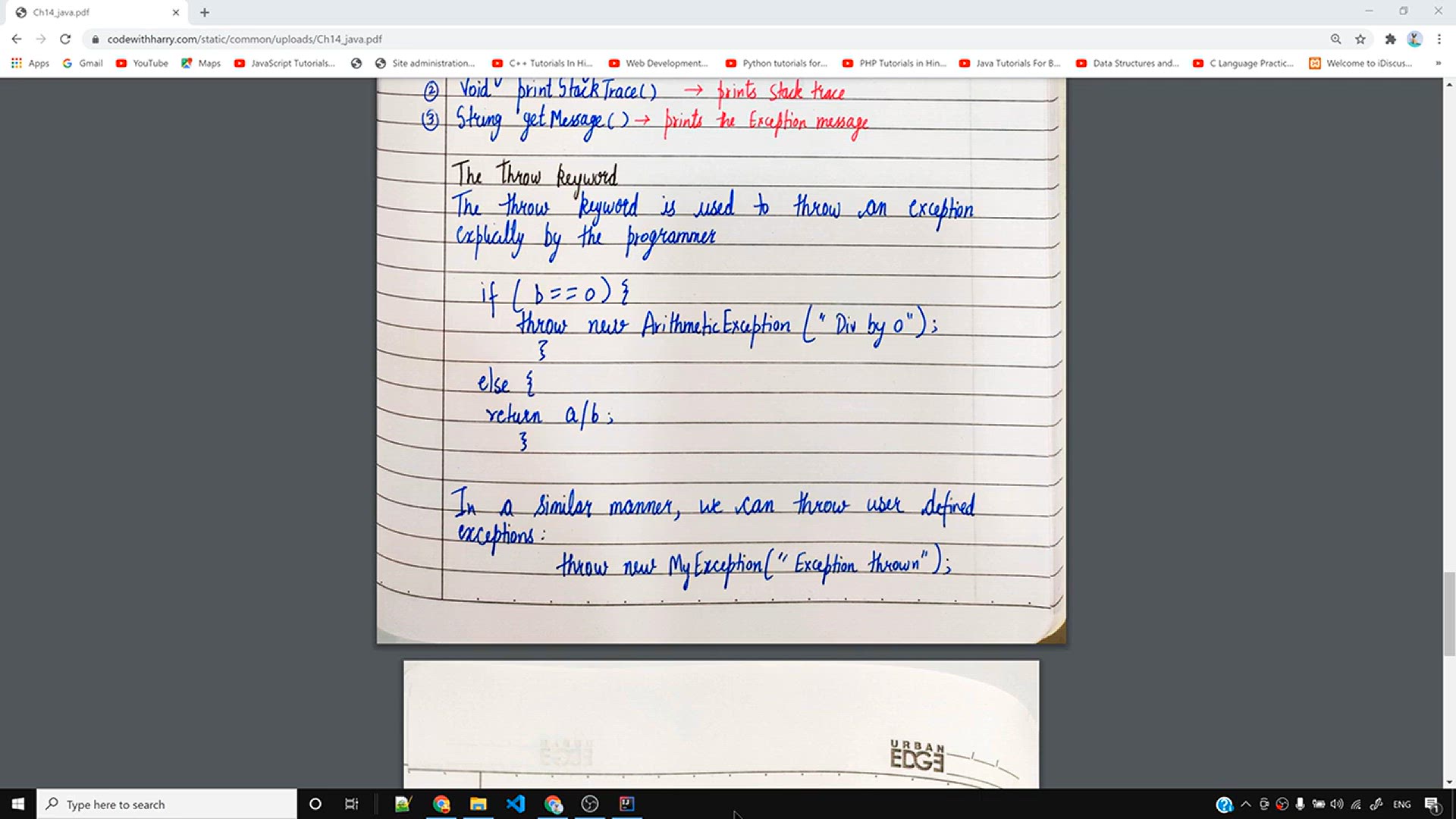
Throw vs Throws in Java
154 views · Feb 12, 2024 codehunter.online
The "Throw vs Throws in Java" video compares and contrasts the "throw" and "throws" keywords in Java's exception handling mechanism. It explains that "throw" is used to manually throw an exception within a method, while "throws" is used to declare that a method may throw a particular type of exception and is used in the method signature. The video demonstrates how "throw" is used to raise an exception explicitly, whereas "throws" is used to indicate the potential for exceptions to occur, allowing callers to handle them appropriately. Through clear explanations and practical examples, viewers learn how to use "throw" and "throws" effectively in their Java code to handle and propagate exceptions. This tutorial serves as a valuable resource for learners seeking to understand the nuances of exception handling in Java.
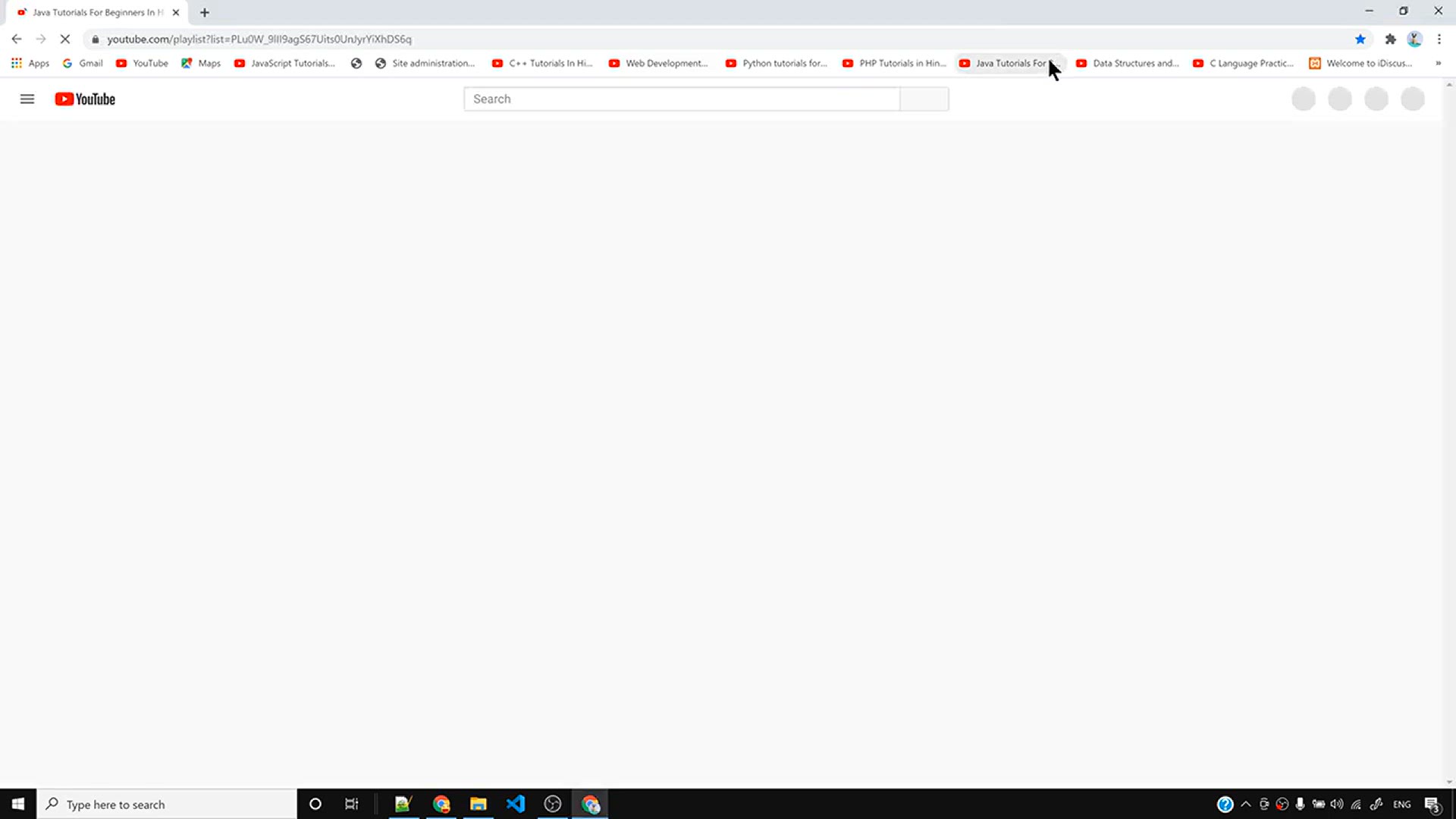
Practice Set on Errors & Exceptions
4K views · Feb 12, 2024 codehunter.online
The "Practice Set on Errors & Exceptions" video presents a series of programming exercises focused on reinforcing and applying concepts related to errors and exceptions in Java programming. These exercises cover various aspects such as handling syntax errors, runtime errors, logical errors, using try-catch blocks, nested try-catch blocks, custom exceptions, and understanding the differences between "throw" and "throws". Through practical examples and guided solutions, viewers have the opportunity to strengthen their understanding of error handling techniques and improve their problem-solving skills in Java. By engaging with these exercises, learners can gain confidence in effectively managing errors and exceptions in their Java applications. This video serves as a valuable resource for learners seeking to enhance their proficiency in error handling and exception management in Java programming.
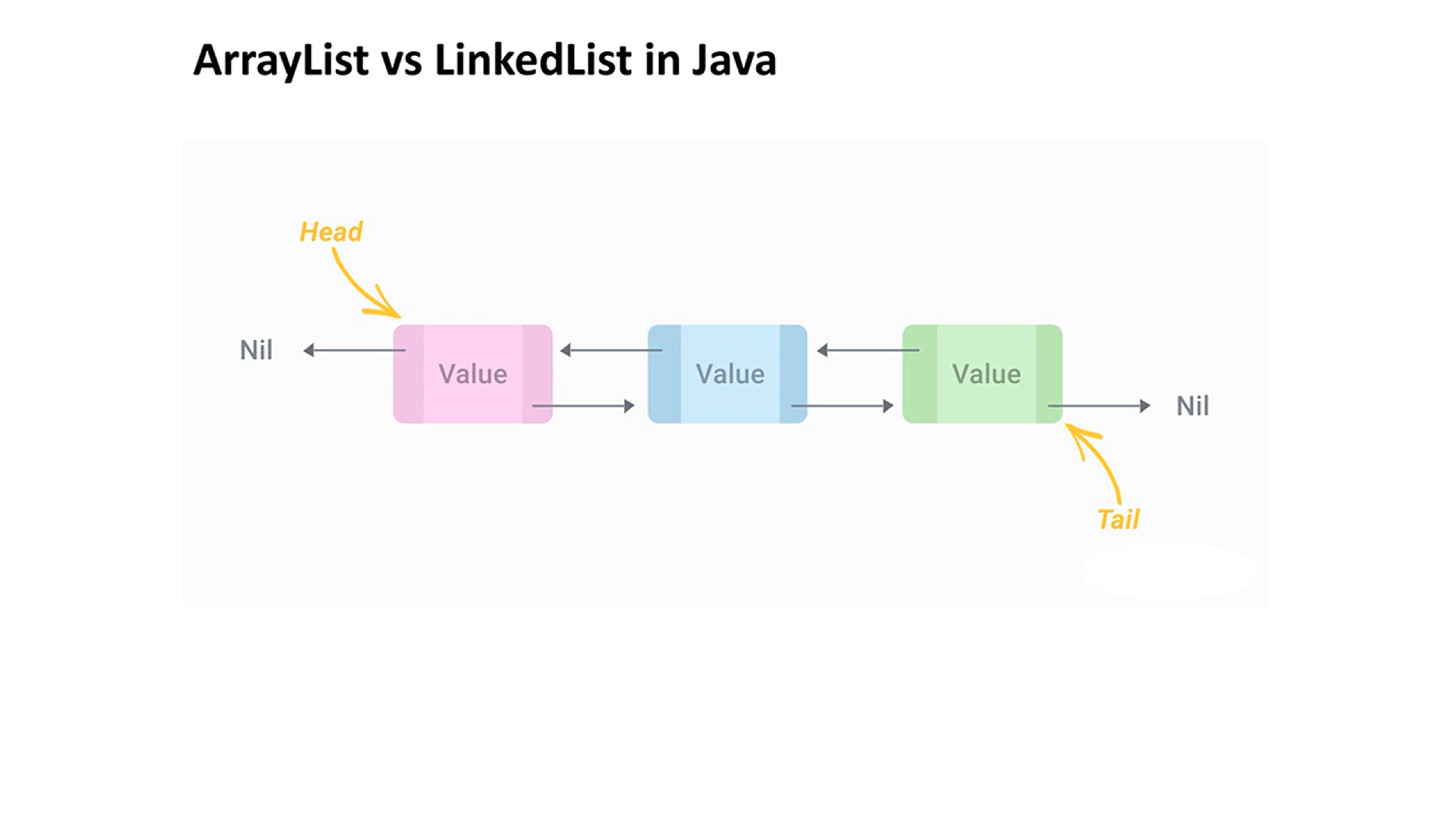
LinkedList in Java_ Demo & Methods
2K views · Feb 12, 2024 codehunter.online
The "LinkedList in Java: Demo & Methods" video provides an overview of the LinkedList class in Java's Collections Framework. It explores how LinkedList implements a doubly-linked list data structure and demonstrates its various methods for adding, removing, and accessing elements. The video covers common operations like adding elements to the beginning or end of the list, removing elements, and iterating through the list using iterators. Through clear explanations and practical examples, viewers learn how to utilize LinkedList effectively in their Java applications to manage collections of elements. This tutorial serves as a valuable resource for learners seeking to understand the features and functionality of LinkedList and how to leverage it in their Java programming projects.
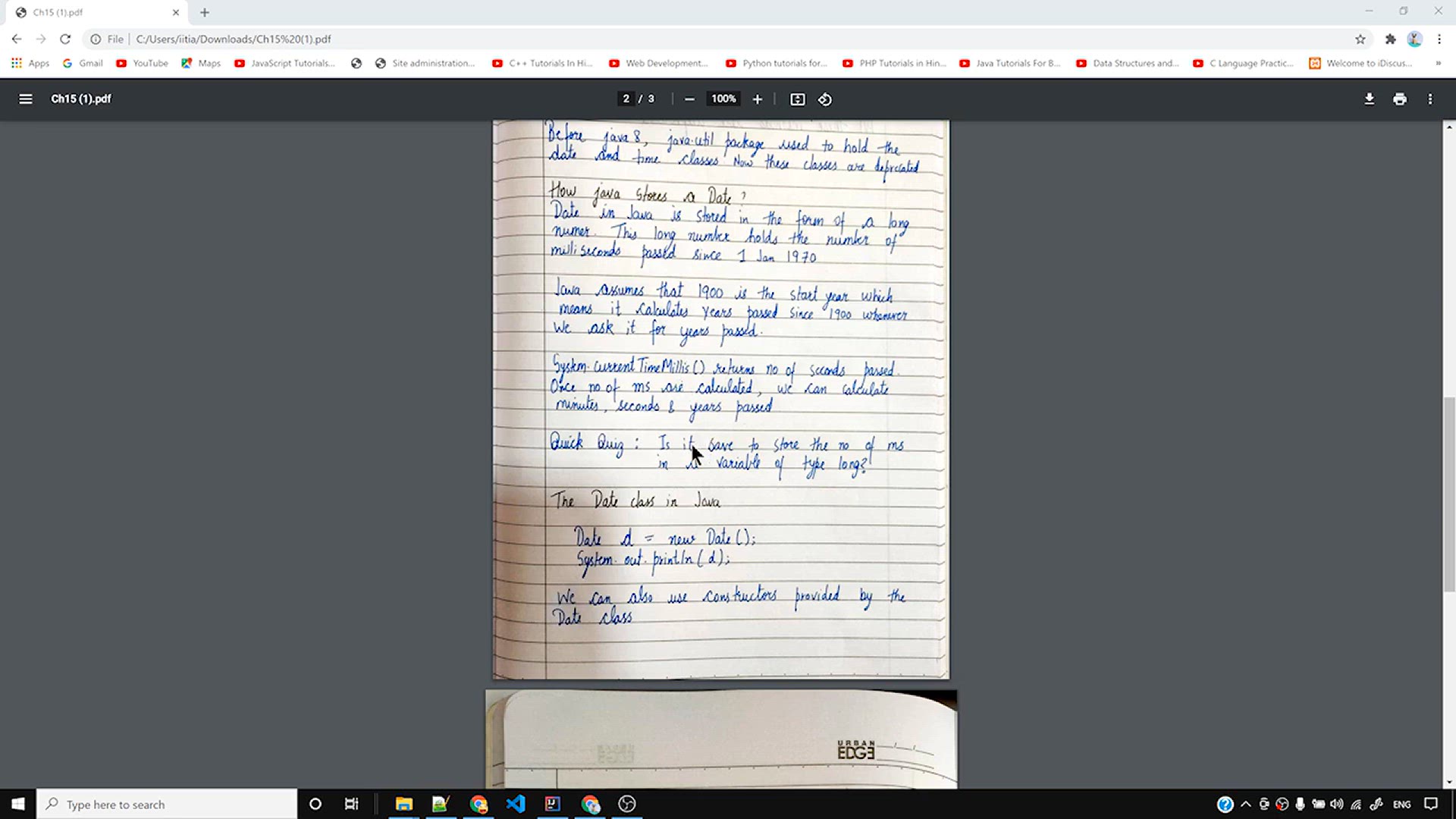
The Date Class in Java
3K views · Feb 12, 2024 codehunter.online
The "The Date Class in Java" video explores the functionality of the Date class in Java, which is used to represent dates and times. It covers how to create Date objects, manipulate dates, and perform various operations such as comparing dates and extracting components like year, month, and day. The video also discusses the limitations of the Date class and introduces alternatives such as the java.time package introduced in Java 8 for more robust date and time handling. Through clear explanations and practical examples, viewers gain insight into working with dates in Java using the Date class. This tutorial serves as a valuable resource for learners seeking to understand date and time handling in Java programming.
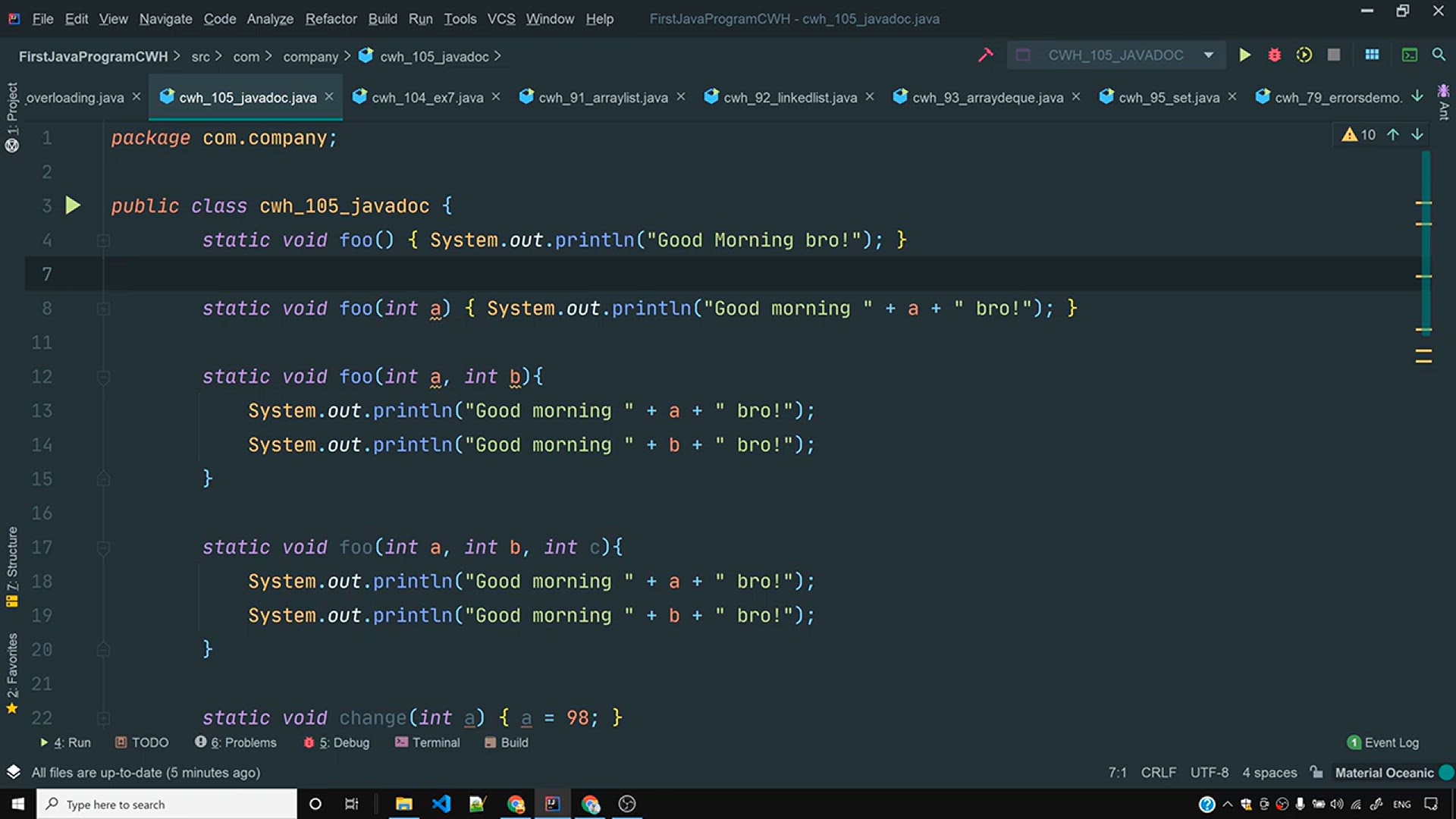
Javadocs_ Tags for Documenting Classes
52 views · Feb 12, 2024 codehunter.online
The "Javadocs: Tags for Documenting Classes" video provides an in-depth exploration of the tags used for documenting classes in Java code with Javadoc. It covers essential tags such as @author, @version, @param, @return, and @throws, explaining their purpose and usage in documenting classes effectively. The video also introduces additional tags like @see and @since for referencing related classes and indicating the version when a class or method was introduced. Through clear explanations and practical examples, viewers learn how to use these tags to create comprehensive and informative documentation for their Java classes, facilitating better code understanding and maintenance. This tutorial serves as a valuable resource for learners seeking to improve their documentation practices and enhance collaboration and communication within their development teams.